TheParliamentarian

IN THIS ISSUE
Human rights in the Commonwealth: Legal protections in Cyprus
PAGE 40
Civic education and youth political participation in Samoa and Victoria
PAGES 43-49
Unparliamentary Language and Decorum in Parliaments
PAGES 54-58
One of the longest established Public Accounts Committees in the Commonwealth
PAGE 63
Commonwealth
Local Climate Action
PAGE 70
The importance and challenges of online visability for Women
Parliamentarians
PAGE 80
PAGES 20-38
Journal of the Parliaments of the Commonwealth
Established in 1920 | Over 100 years of publishing 2024 | Volume 105 | Issue One | Price £14
ARTIFICIAL INTELLIGENCE, DISINFORMATION AND PARLIAMENT
Ensuring the Integrity of our Digital Democracy
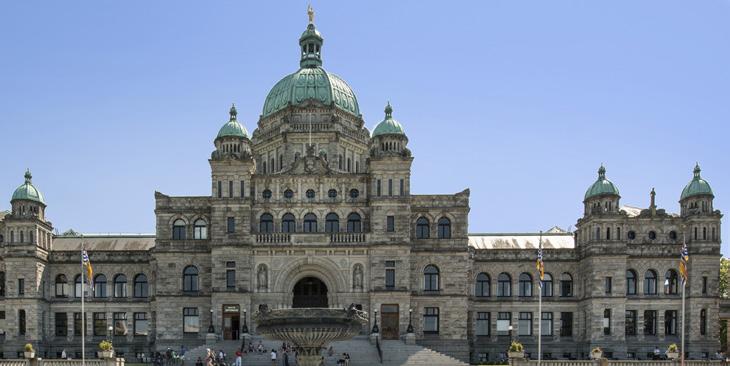
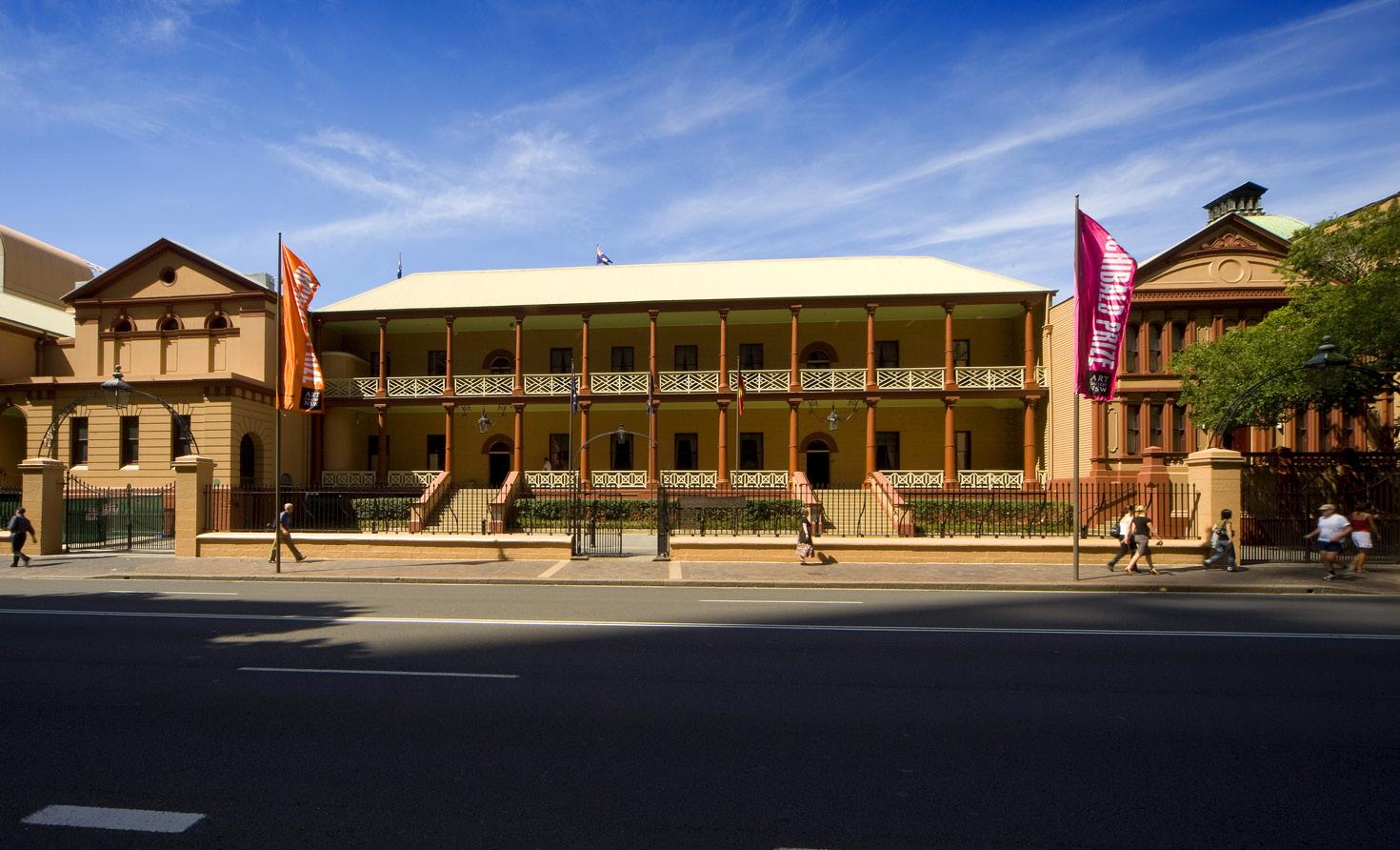
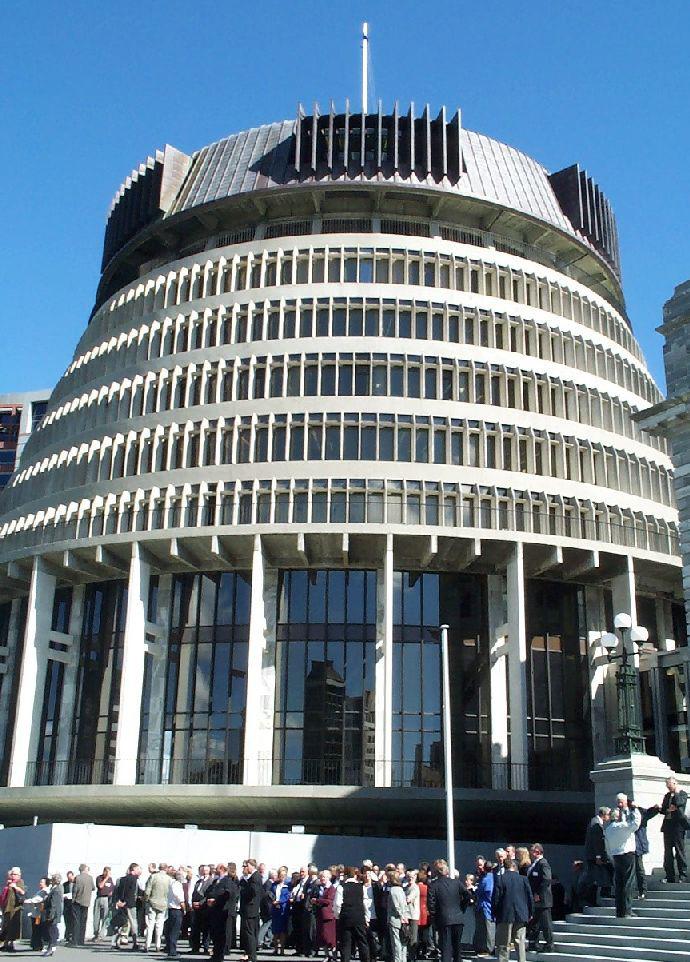
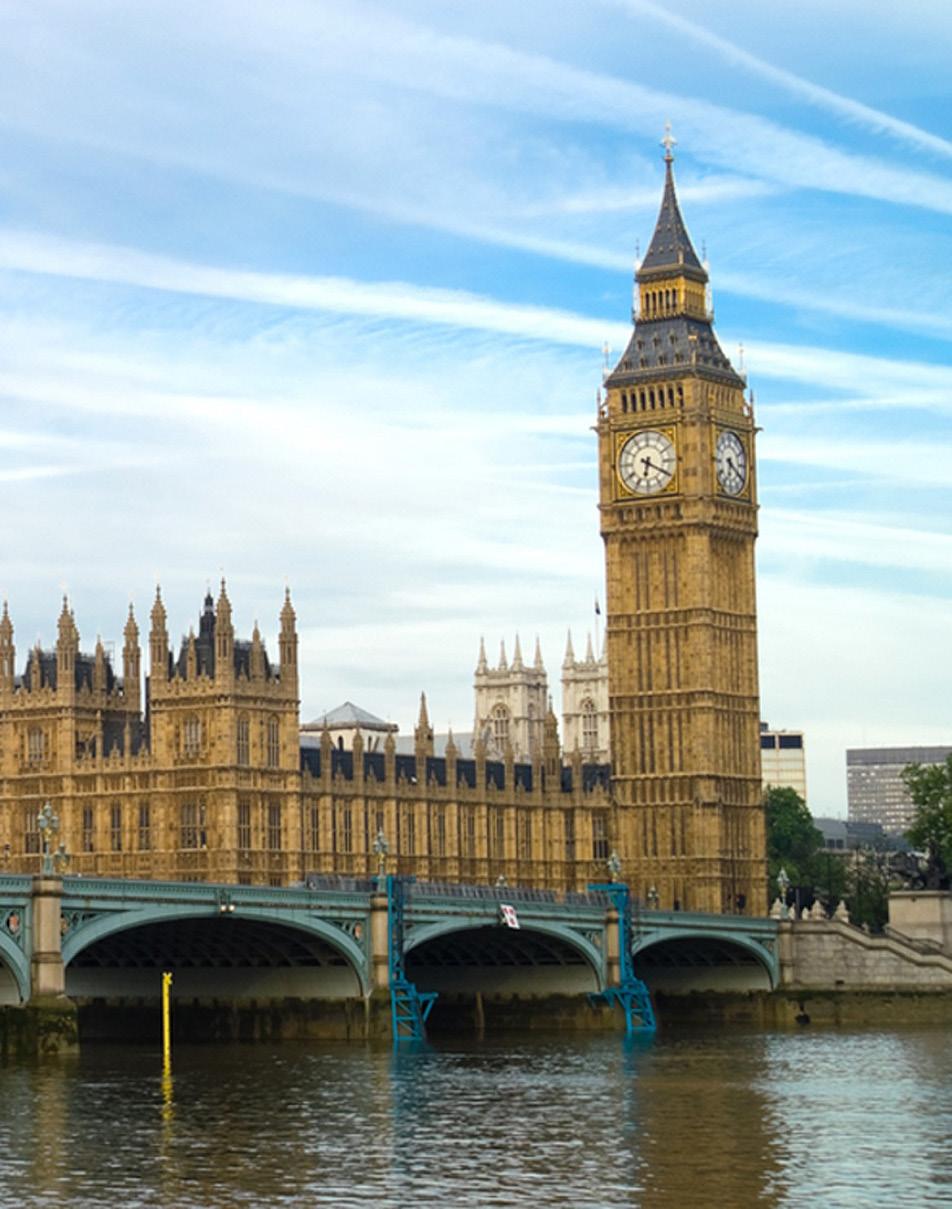
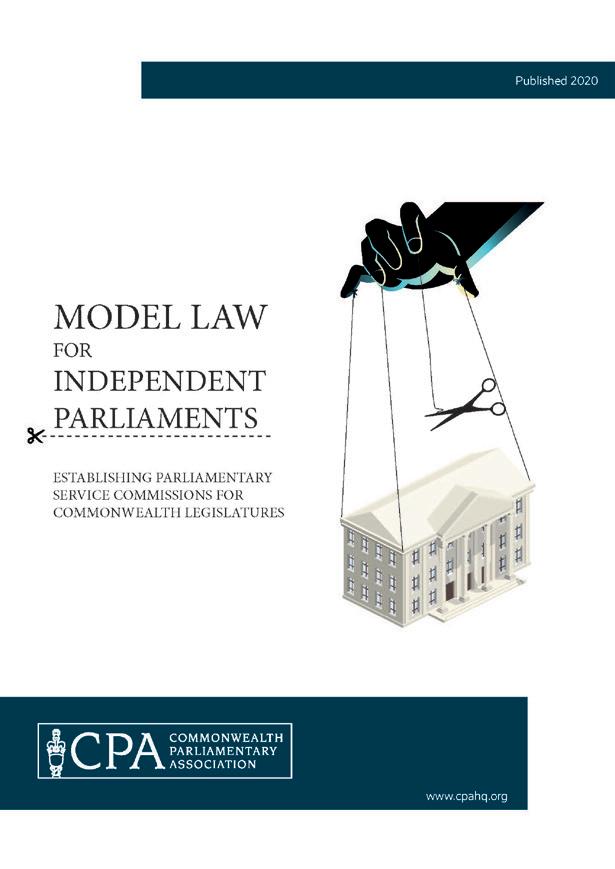
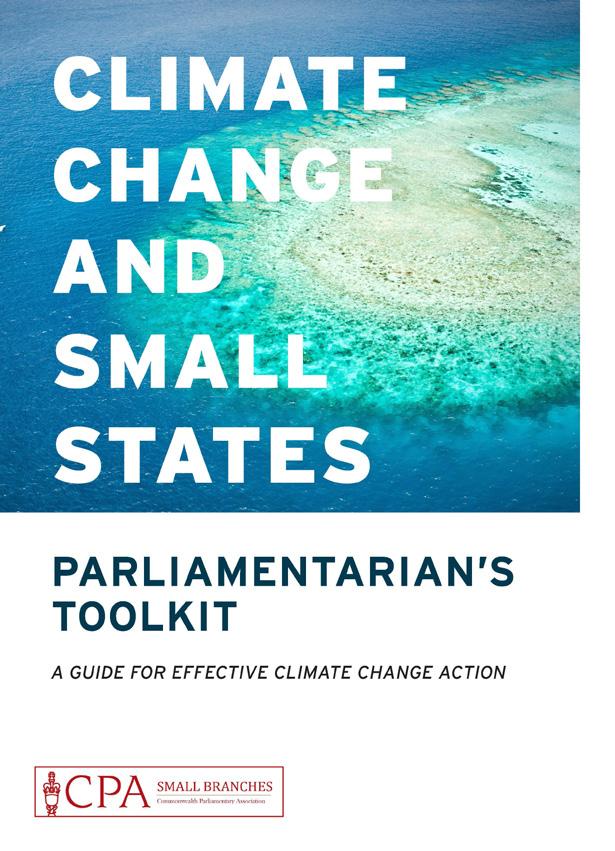
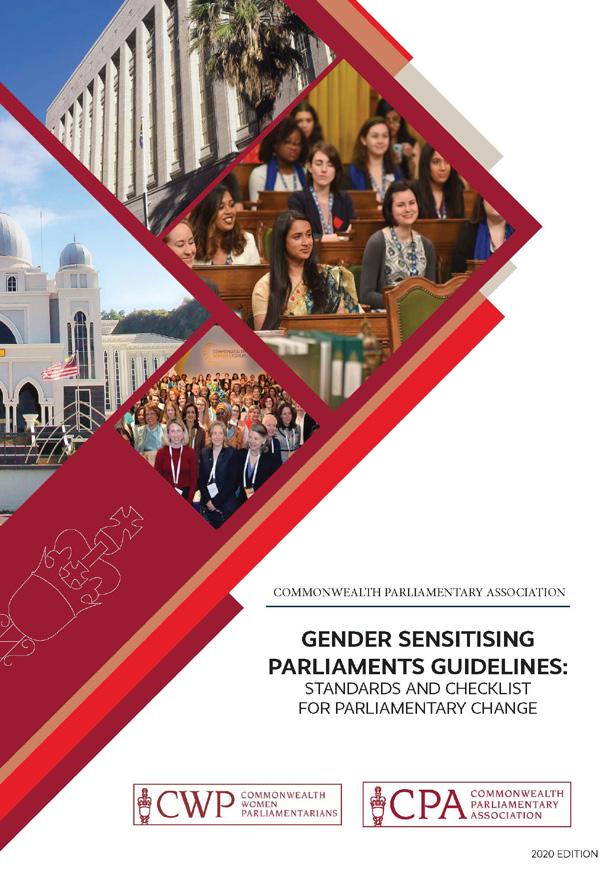
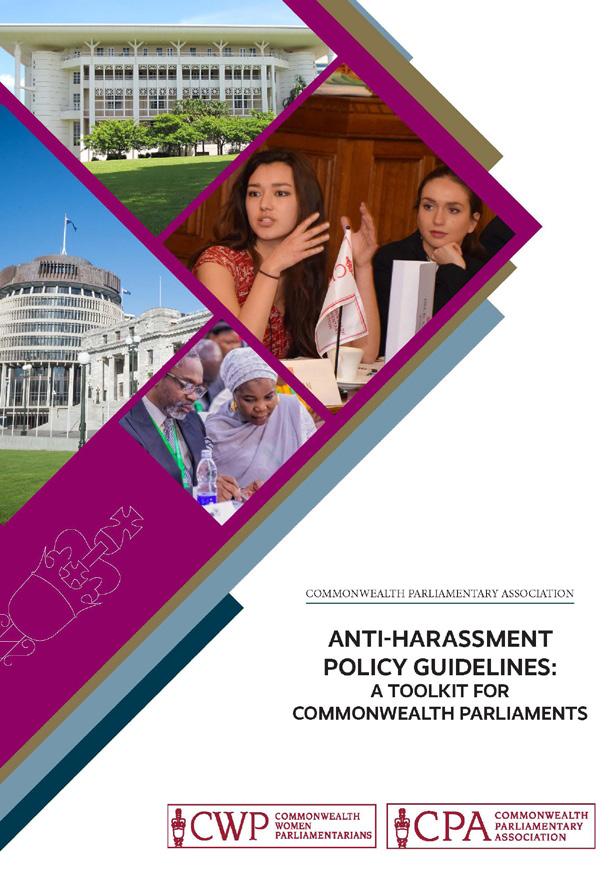
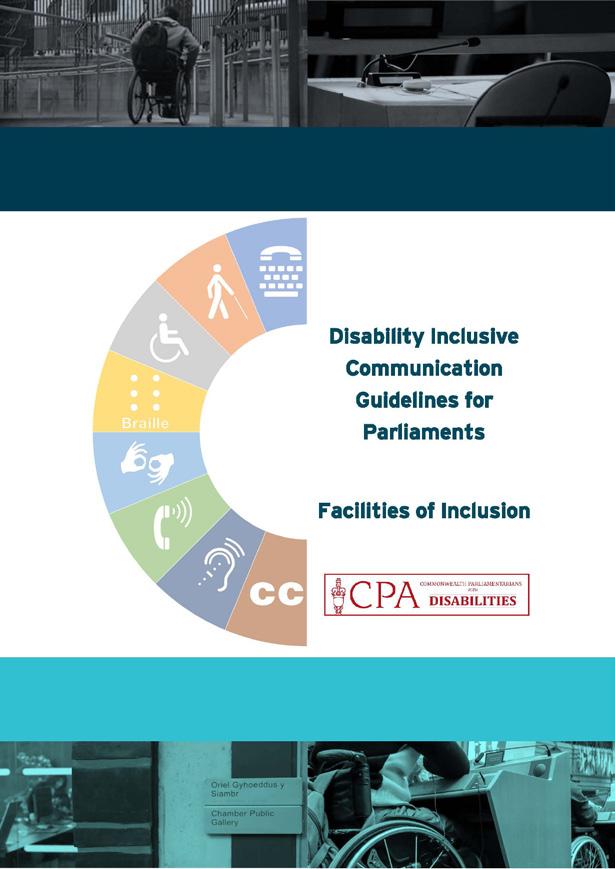
DID YOU KNOW THAT CPA HAS RESOURCES AVAILABLE FOR COMMONWEALTH PARLIAMENTS? DOWNLOAD CPA’S NEW PUBLICATIONS AND TOOLKITS Visit www.cpahq.org or email hq.sec@cpahq.org www.cpahq.org
March
4 to 8 March 2024
7 to 10 March 2024
8 March 2024
11 March 2023
11 to 15 March 2024
11 to 22 March 2024
17 to 22 March 2024

Calendar of Forthcoming Events
Updated as at 29 February 2024
Commonwealth Law Ministers’ Meeting, Zanzibar
Commonwealth Women Parliamentarians British Islands and Mediterranean (BIM) Regional Conference, Malta
International Women's Day
Commonwealth Day
72nd Westminster Seminar, UK Parliament (CPA UK event)
68th UN Commission on the Status of Women (CSW68)
CPA Canadian Parliamentary Seminar, Ottawa, Canada (CPA Canada Regional event)
20 March 2024 ‘Online harassment and violence against Women Parliamentarians’
23 to 27 March 2024
April
3 to 5 April 2024
May
CWP event with ICWS, London, UK/Hybrid
148th IPU Assembly and related meetings, Geneva, Switzerland
3rd UK Commons and Overseas Territories Speakers’ Conference (COTSC), Providenciales, Turks and Caicos Islands
7 to 8 May 2024 Mid-Year CPA Executive Committee meeting, Virtual
16 to 17 May 2024
18 to 25 May 2024
June
9 to 15 June 2024
21 to 29 June 2024
30 June 2024
July
Commonwealth Education Ministers Meeting, London, UK (Commonwealth Secretariat)
53rd CPA British Islands and Mediterranean Regional Conference, St Helena
CPA Parliamentary Academy: Residency Programme for Clerks and Parliamentary staff, Colombo, Sri Lanka
46th CPA Caribbean, Americas and the Atlantic Regional Conference, Antigua and Barbuda plus 14th Commonwealth Women Parliamentarians (CWP) CAA Regional Conference and 17th CAA Caribbean Youth Parliament
International Day of Parliamentarism / World Parliament Day (IPU initiative)
20 to 27 July 2024 60th CPA Canadian Regional Conference, Toronto, Ontario, Canada plus Commonwealth Women Parliamentarians (CWP) Canada Regional Conference
September
2 to 6 September 2024 12th Commonwealth Youth Parliament, New Zealand
5 September 2024 2024 Parliamentarian of the Year Awards – nomination deadline closes 15 September 2024
International Day of Democracy
October
21 to 27 October 2024 27th Commonwealth Heads of Government Meeting (CHOGM), Apia, Samoa
November
4 to 8 November 2024 67th Commonwealth Parliamentary Conference, Sydney, New South Wales, Australia including 40th CPA Small Branches Conference; Commonwealth Women Parliamentarians (CWP) and Commonwealth Parliamentarians with Disabilities (CPwD) meetings; 67th CPA General Assembly; CPA Executive Committee meetings; and the 58th Society of Clerks at the Table (SoCATT) meetings.
The CPA calendar fosters the exchange of events and activities between CPA Regions and Branches. For further information on any events, please contact the CPA Branch concerned or the CPA Headquarters Secretariat via hq.sec@cpahq.org or visit www. cpahq.org. CPA Branch Secretaries are asked to send notices of all events to the CPA Headquarters in advance of the publication deadline to ensure the calendar is accurate.
2024
PAGE 43 & 45
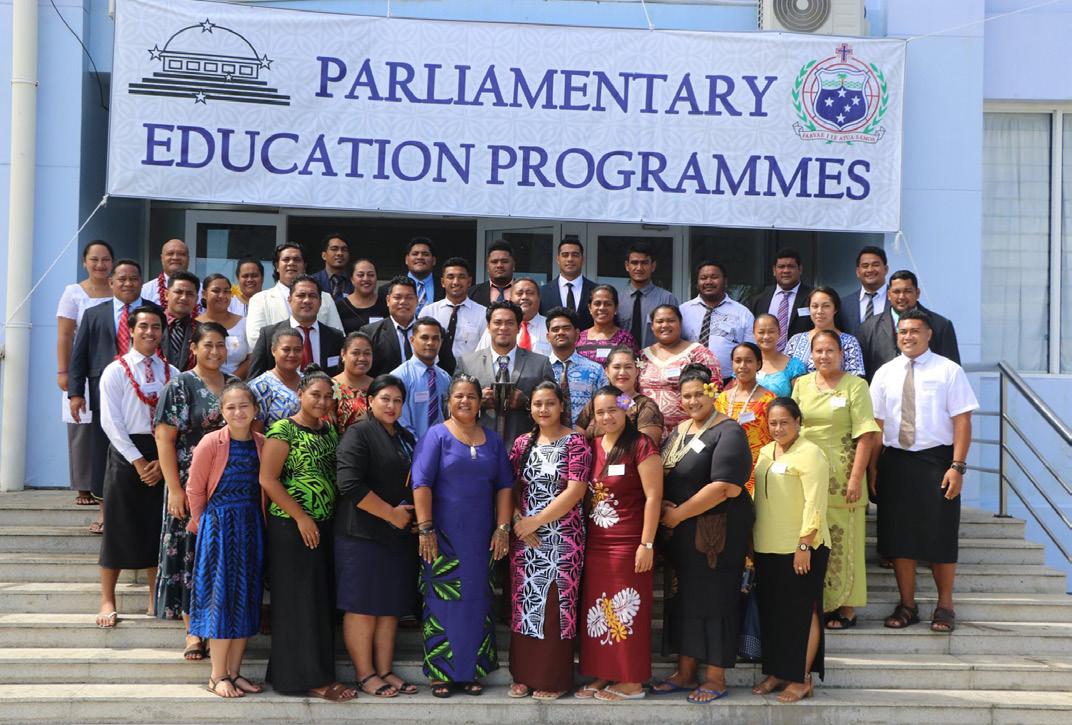
PAGE 50
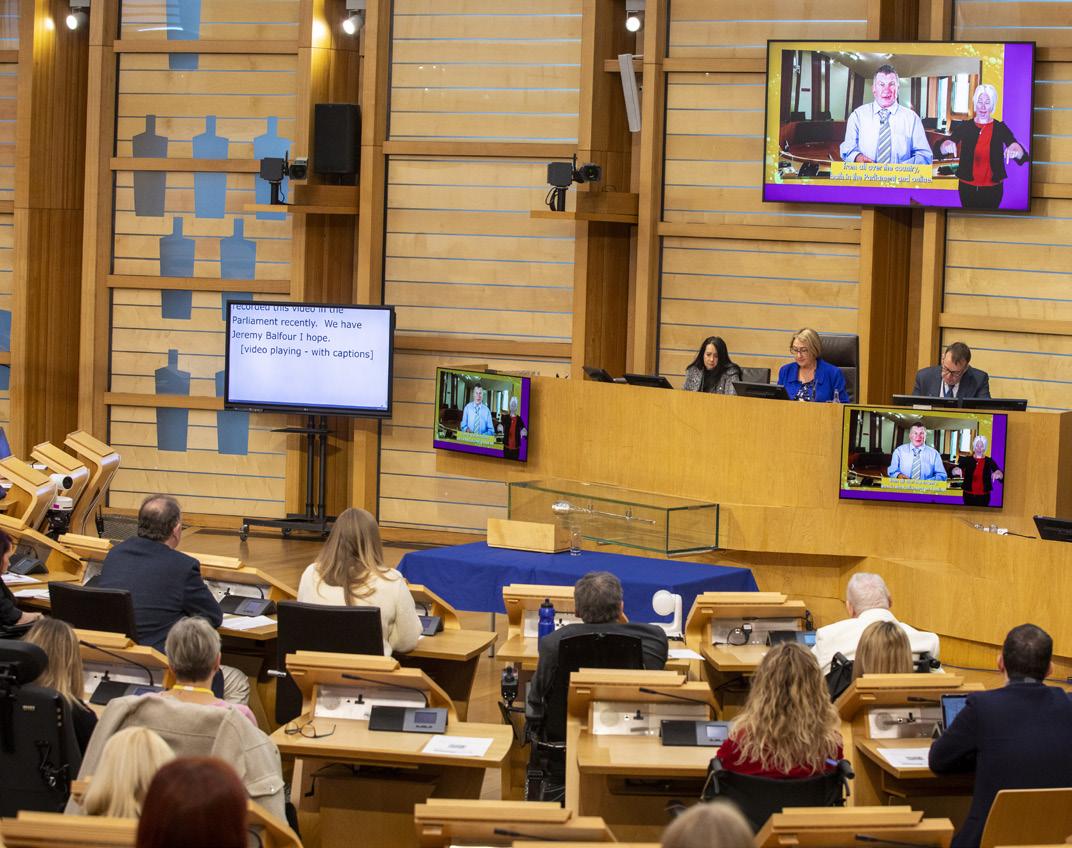

PAGE 70
PAGE 63

CONTENTS
THE PARLIAMENTARIAN: 2024 ISSUE ONE
VIEWS
& COMMENT
Editor’s Note Artificial Intelligence, Disinformation and Parliament Page 4
View from the CPA Chairperson
2024 Message to CPA Branches Page 6
View from the CPA Small Branches Chairperson
The importance of youth engagement for Parliaments Page 7
NEWS & PHOTOS
CPA news
News reports from CPA and Commonwealth activities
Pages 12-17
27th Conference of Speakers and Presiding Officers of the Commonwealth News of the 27th CSPOC in Uganda and a 'behind the scenes' report about planning an international conference
Pages 18-19
View from the Commonwealth Parliamentarians with Disabilities (CPwD) Chairperson
The challenges facing women MPs with disabilities Page 8
View from the CPA Secretary-General
Looking ahead to Commonwealth and CPA activities in 2024 Page 10
CPA Benchmarks news
Namibia, Tonga, Fiji, Botswana, Maldives and Kiribati undertake CPA Benchmarks assessments
Pages 74-76
SoCATT Africa news
Parliamentary Clerks at SoCATT Africa workshop in Lesotho
Page 77
Commonwealth Women Parliamentarians (CWP) news
Reporting on CWP activities
Pages 84-86
PARLIAMENTARY REPORTS
Parliamentary Reports and Third Readings
Reports from Australia, Trinidad and Tobago, Canada, British Columbia, New Zealand and the United Kingdom
Pages 88-102
Obituary
Former CPA Chair 1993-96
Pages 102-103
Book Review
Caribbean policy in aftermath of COVID-19 pandemic Page 103
2 | The Parliamentarian | 2024: Issue One | Over 100 years of publishing
ARTIFICIAL INTELLIGENCE, DISINFORMATION AND PARLIAMENT
Why a Principled Approach to AI Matters
Former UK Innovation and Technology Minister
Page 20
What is synthetic disinformation and how does it threaten democracies?
An expert on Generative AI outlines the issues that we face
Page 23
Artificial Intelligence in Parliaments’ Traditional Halls
Experts from Bússola Tech and NovaWorks outline the opportunities, challenges and ethical considerations
Page 26
Artificial Intelligence, Disinformation and Elections
A case study from Pakistan
Page 32
Artificial Intelligence, new technologies and their impact on gender equality
The Chairperson of the Commonwealth Women Parliamentarians gives her view on AI and gender
Page 34
AI, Disinformation and democracy: The need for Parliaments to act What can Parliaments do to prepare for the impact of AI and new technology?
The CPA's Deputy Head of Programmes offers his expert advice
Page 36
FEATURE ARTICLES
Human rights in the Commonwealth
Enhancing human rights protection in Cyprus
Page 40
Young people and Parliaments
Youth participation in Samoa
Page 43
Civic education and youth political participation
A case study from Samoa
Page 45
Taking youth engagement seriously
A case study from Victoria
Page 48
How to host a disability outreach event
The Scottish Parliament's inaugural disability summit
Page 50
Building parliamentary networks on mental health
Best practice from Scotland
Page 52
Managing Unparliamentary Language in Parliament
Examples from the Australian Parliament
Page 54
Decorum in Parliamentary Debates
A persistent problem for Presiding Officers
Page 57
Curating the Record of Free Speech in Parliament
Accurate Hansard reporting in New Zealand's Parliament
Page 59
One of the longest established Public Accounts Committees
A case study from Tasmania
Page 63
Evidence-based Academic Analysis
Legislative and Parliamentary Research in Pakistan
Page 67
Commonwealth Local Climate Action
From Kigali to Dubai
Page 70
Fast-Tracking Urban Public Health
Tackling public health challenges
Page 72
She Should Run
Inspiring tools and supports for women interested in seeking elected positions
Page 78
The importance and challenges of online visability for Women Parliamentarians
A perspective from Tanzania
Page 80
Combatting Violence Against Women and Girls
Policy initatives in Jersey
Page 82
CPA DIRECTORY
CPA Organisational Structure
CPA Executive Committee, CWP and CPA Small Branches Steering Committees, CPwD Regional Champions and CPA Regional Secretaries
Page 104
CONTENTS
The Parliamentarian: Journal of the Parliaments of the Commonwealth Volume 105 | 2024: Issue One
The Parliamentarian ISSN 0031-2282
Issued and published by the Commonwealth Parliamentary Association, CPA Headquarters Secretariat, Richmond House, Houses of Parliament, London, SW1A 0AA, United Kingdom.
Tel: +44 (0) 20 7799 1460 Email: hq.sec@cpahq.org www.cpahq.org
Twitter @CPA_Secretariat Facebook.com/CPAHQ
Stephen Twigg CPA Secretary-General
Mr Jeffrey Hyland Editor, The Parliamentarian editor@cpahq.org
Annual subscription: Four issues including supplements: UK: £44 inc. postage. | Worldwide: £46 surface post and £52 airmail
Price per issue: UK: £14 cover price plus UK or worldwide postage.
Disclaimer: Opinions and comments expressed in articles and reviews published in The Parliamentarian are those of the individual contributors and should not be attributed to the Secretariat of the Association.
Contributors: Thank you to all contributors for this issue.
Printed in: United Kingdom by Warners Midlands, PLC; and Times Printers, Singapore.
Limited print run - contact editor@cpahq.org for details of print copies for CPA Branches.
Main images: CPA Headquarters
Secretariat. Additional images: CPA Branches and Shutterstock. Front cover
image: Shutterstock_2209861103 / AI background


The Parliamentarian | 2024: Issue One | Over 100 years of publishing | 3

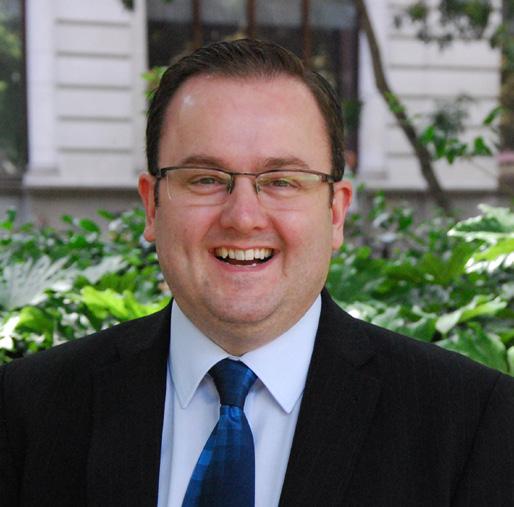 Mr Jeffrey Hyland, Editor, The Parliamentarian, Commonwealth Parliamentary Association
Mr Jeffrey Hyland, Editor, The Parliamentarian, Commonwealth Parliamentary Association
ARTIFICIAL INTELLIGENCE, DISINFORMATION AND PARLIAMENT: ENSURING THE INTEGRITY OF OUR DIGITAL DEMOCRACY
The explosion of new developments in Artificial Intelligence (AI) and synthetic media have resulted in new levels of difficulty when combating disinformation. These technologies can create highly realistic but entirely fabricated content, making it increasingly difficult for individuals and organisations to distinguish between truth and falsehood.
The challenges for Parliaments and Parliamentarians are increasing as awareness grows around the extent of misinformation, disinformation, fake news and the manipulation of information, which often takes place with the purpose of undermining democracy and Commonwealth values. With more than half the world’s population set to vote in elections during 2024, the impact of Artificial Intelligence on the integrity of our democracies and on the wider public discourse is a key challenge for all.
In response to these emerging technologies, the Commonwealth Parliamentary Association (CPA) and the Organization of American States (OAS) have developed the Parliamentary Handbook on Disinformation, AI and Synthetic Media. The handbook provides readers with an overview of disinformation, the different forms it can take, and the contemporary techniques used to spread it.
In this first issue of The Parliamentarian for 2024, we examine the challenges that Artificial Intelligence, disinformation and synthetic media are creating for democracy in the Commonwealth and how Parliaments can face these challenges.
Cassidy Bereskin, Founder and Director of OxGen AI and the lead author of the new CPA AI handbook explains what synthetic disinformation is and how it threatens democracies.
Former UK Secretary of State for Science, Innovation and Technology, Rt Hon. Chloe Smith, MP (United Kingdom) asks why a principled approach to AI matters.
Artificial Intelligence is creating numerous issues for Commonwealth Parliaments and two tech experts - Luís Kimaid from Bússola Tech and Jonathan Ruckert from NovaWorks Australialook at the opportunities, challenges and ethical considerations.
Artificial Intelligence and disinformation can provoke particular challenges during elections and the recent elections in Pakistan saw an unprecedented level of AI-generated content used online, highlighting key challenges for Parliaments and Governments in protecting digital democracy. The Research Directorate at the National Assembly of Pakistan Secretariat provide a detailed case study of recent events.
The impact of Artificial Intelligence and new technologies is most keenly felt by certain groups in society. The Chairperson of the Commonwealth Women Parliamentarians (CWP), Hon. Dr Zainab Gimba, MP (Nigeria Federal) writes about AI and gender equality.
The need for Parliaments to act on AI and disinformation is paramount and the CPA’s Deputy Head of Programmes and lead at the recent CPA AI Conference and CPC Workshop on AI, James Pinnell examines what can be done.
This issue of The Parliamentarian also features articles on a wide range of other topics.
Youth engagement is a key topic for Commonwealth Parliaments and 2024 continues the ‘Commonwealth Year of Youth’. It was also the topic for the recent 40th CPA Australia and Pacific Regional Conference in Brisbane, Queensland in November 2023. In this issue of The Parliamentarian, we publish a number of presentations from the CPA Regional Conference.
The CPA Small Branches Chairperson, Joy Burch, MLA, Speaker of the Legislative Assembly of the Australian Capital Territory shares the perspective of a young Parliamentarian from the ACT Assembly and the importance of youth engagement for Parliaments.
The Deputy Speaker of the Legislative Assembly of Samoa, Hon. Au'uapaau Mulipola Aloitafua, MP writes about representation and participation for young people in Parliaments, while Hon. Fonotoe Pierre Lauofo, MP (Samoa) looks at the importance of civic education for youth political participation.
Naomi Simmonds from the Parliament of Victoria suggests that Parliaments need to take youth engagement seriously and provides a case study of recent activities in the State Parliament.
In his View article for this issue of The Parliamentarian, the Chairperson of the CPA Executive Committee, Hon. Ian LiddellGrainger, MP (United Kingdom) sends his message to CPA Branches for 2024 and the CPA Secretary-General, Stephen Twigg looks ahead to Commonwealth and CPA activities in 2024, including the 27th Commonwealth Heads of Government Meeting (CHOGM) in Samoa, the 67th Commonwealth Parliamentary Conference (CPC) in New South Wales, Australia and the 12th Commonwealth Youth Parliament (CYP) in New Zealand.
In this issue, we publish an extract from the BBC Africa Daily Podcast in which the Commonwealth Parliamentarians with Disabilities (CPwD) Chairperson, Hon. Laura Kanushu, MP
4 | The Parliamentarian | 2024: Issue One | Over 100 years of publishing EDITOR’S NOTE
(Uganda) spoke about the challenges facing women MPs with disabilities.
Dr Alexis Antoniades (International Relations Officer at the House of Representatives of Cyprus) explores human rights in the Commonwealth and shares new developments in enhancing human rights protection that the Parliament and Government have introduced.
Two articles feature in this issue from Scotland - Hon. Jeremy Balfour, MSP (Scotland) writes about hosting a disability outreach event following the Scottish Parliament’s inaugural disability summit and Senior Clerk, Neil Stewart (Scotland) outlines how building a parliamentary network to promote good mental health can benefit both Parliamentarians and parliamentary staff.
There is an increasing focus on Members’ behaviour in the Chamber and how Parliaments can manage these issues. Joel Bateman and Ophelia Tynan (House of Representatives at the Parliament of Australia) write about managing unparliamentary language in the Parliament Chamber with examples from the Australian Federal Parliament. Rachel Nauta (Executive Assistant to the Speaker of the Legislative Assembly of Ontario) writes about decorum in Parliamentary debates and how Presiding Officers can manage the debate.

processes in Parliaments.
Former Chair of the Commonwealth Women Parliamentarians (CWP) Canadian Region and now Minister Responsible for the Status of Women in the Government of Saskatchewan, Hon. Laura Ross, MLA highlights inspiring tools and supports for women interested in seeking elected positions.
All Commonwealth Parliaments attach a great importance to the accuracy of Hansard reporting as a historical record of parliamentary debates. Hansard Editor at the Parliament of New Zealand, Cecilia Edwards writes about the importance of curating the record of free speech.
Public Accounts Committees are a long-established feature of many Commonwealth Parliaments. Simon Scott (Committee Secretary, Tasmania) examines the history of the Parliamentary Joint Standing Committee of Public Accounts based in Tasmania, one of the longest established in the Commonwealth.
The importance of evidence-based academic analysis in Legislative and Parliamentary research is highlighted by Professor Muhammad Rashid Mafzool Zaka, Director General of Research at the Pakistan Institute for Parliamentary Services (PIPS).
The recent Commonwealth Local Government Conference in Rwanda with its focus on building local resilience was followed by the United Nations Climate Change Conference (COP 28) in Dubai which highlighted the importance of local climate action. Dr Carl Wright is Secretary-General Emeritus of the Commonwealth Local Government Forum (CLGF) and a member of the Editorial Advisory Board of The Parliamentarian, and he writes about the impact of these two importance conferences.
The Fast-Track Cities network was originally established to accelerate urban responses to HIV/AIDS but it has grown to tackle urban public health challenges across the Commonwealth. Dr José M. Zuniga, President/CEO of the Fast-Track Cities Institute shares examples of their work.
Romeo Adams, Secretary of the Western Cape Provincial Parliament in South Africa shares an update on the SoCATT Africa South Subregion and their recent training for Parliamentary Clerks on modernisation of public participation and Committee legislative
The challenges of online visibility for Women Parliamentarians is a key issue facing many women who enter politics. Political campaigner, Hon. Neema Lugangira, MP (Tanzania) provides a perspective from Tanzania.
Kate Wright, Chair of the Violence Against Women and Girls Taskforce in Jersey, recently joined a Commonwealth Women Parliamentarians online seminar on gender-based violence. Here, she shares a case study and recent report from Jersey about the ‘hidden problem’ of violence against women and girls (VAWG).
News reports in this issue of The Parliamentarian include the biennial 27th Conference of Speakers and Presiding Officers Conference (CSPOC) in Uganda; the CPA Africa Region Capacity Building Workshop in Tanzania; CPA Canada Federal visits to Guyana, Cameroon and UK; the Rwanda Parliament hosting the 13th Inter-Parliamentary Games for MPs and parliamentary staff; the 40th Canadian Presiding Officers Conference in Northwest Territories; 84th All India Presiding Officers Conference at the Maharashtra Legislative Assembly; and the Speakers Forum of South Africa’s two-day summit in Cape Town. We also report on the CPA Democratic Benchmarks assessments taking place in Fiji, Tonga, Botswana, Namibia, Maldives, Kiribati and Lesotho.
The Parliamentary Report and Third Reading section includes parliamentary and legislative news from Canada Federal; British Columbia, Trinidad and Tobago; New Zealand; United Kingdom and Australia Federal. We also publish an obituary for the former CPA Chairperson, Sir Colin Shepherd (1938-2024) who died recently.
We look forward to hearing your feedback on this issue of The Parliamentarian and to receiving your future contributions.
Jeffrey Hyland Editor, The Parliamentarian editor@cpahq.org
The Parliamentarian | 2024: Issue One | Over 100 years of publishing | 5
EDITOR’S NOTE
Image: Shutterstock_1675920508.

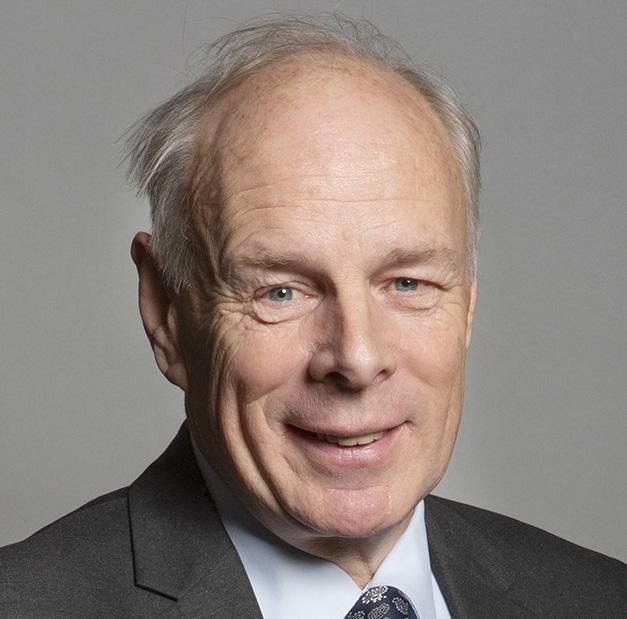 Hon. Ian Liddell-Grainger, MP, Chairperson of the CPA Executive Committee and Member of the United Kingdom Parliament.
Hon. Ian Liddell-Grainger, MP, Chairperson of the CPA Executive Committee and Member of the United Kingdom Parliament.
CPA CHAIRPERSON’S MESSAGE TO CPA BRANCHES FOR 2024
In this first issue of The Parliamentarian for 2024, I would like to take this opportunity to wish you all a Happy New Year. 2023 was an extraordinarily busy year for the CPA, and I had the great privilege of attending so many fantastic events across the Commonwealth, working together with colleagues to promote the values of our organisation. We marked the anniversaries of both the Commonwealth Charter and the Commonwealth Latimer House Principles on the Three Branches of Government, and convened for the 66th Commonwealth Parliamentary Conference (CPC), hosted so brilliantly by our colleagues in Ghana.
Looking ahead to this year, it will no doubt be just as busy as 2023, if not more so, with so much happening across the Commonwealth. Next month we will of course celebrate Commonwealth Day, this year marking the 75th anniversary of the modern Commonwealth. I particularly look forward to hosting those Speakers and Presiding Officers visiting London for the UK Speaker, Rt Hon. Sir Lindsay Hoyle’s Commonwealth Day Summit for a CPA Roundtable the following day; providing us with an opportunity to discuss CPA developments since the CPC. In May, we will hold our Mid-Year meeting of the CPA Executive Committee – meeting virtually as agreed by the Committee in Gibraltar last year. We will be considering issues of vital importance to the future of the CPA, notably our legal status, and the preparations for the 67th CPC in November.
Later in May, our friends in the CPA St Helena Branch will host the 53rd CPA British Islands and Mediterranean (BIM) Regional Conference, which I will be attending. The Conference theme, ‘Addressing Challenges to Sustainable Development in Times of Global Uncertainty’, will cover a range of topics to increase our understanding of the challenges many Parliaments face – both in the Region and from those observer Parliaments from other CPA Regions who will attend.
As we approach the end of the year, CPA activities will have really gathered steam.
Our CPA Secretariat will be working alongside the Commonwealth Secretariat and partner organisations in the run up to the Commonwealth Heads of Government Meeting (CHOGM), which is being hosted in October in Samoa - the first to be held in a Pacific Small Island Developing State. This will then of course be followed a few weeks later by the 67th CPC, hosted in Sydney by the CPA New South Wales Branch from 4-8 November 2024. It will be the first time that the CPC has been held in Australia for more than two decades, and, appropriately, this year also marks the 200-year anniversary of the New South Wales Legislative Council. I look forward to Parliaments and Parliamentarians from throughout the Commonwealth coming together, along with parliamentary staff and partner organisations, to engage on the big issues that matter so much to our Members. It will no doubt be a fantastic event.
As a global community, we continue to face many challenges and it is vital that throughout this year and beyond we continue to embody the values of our organisation, and ensure the promotion of democracy and prosperity within the Commonwealth.
I wish you all the very best for 2024.
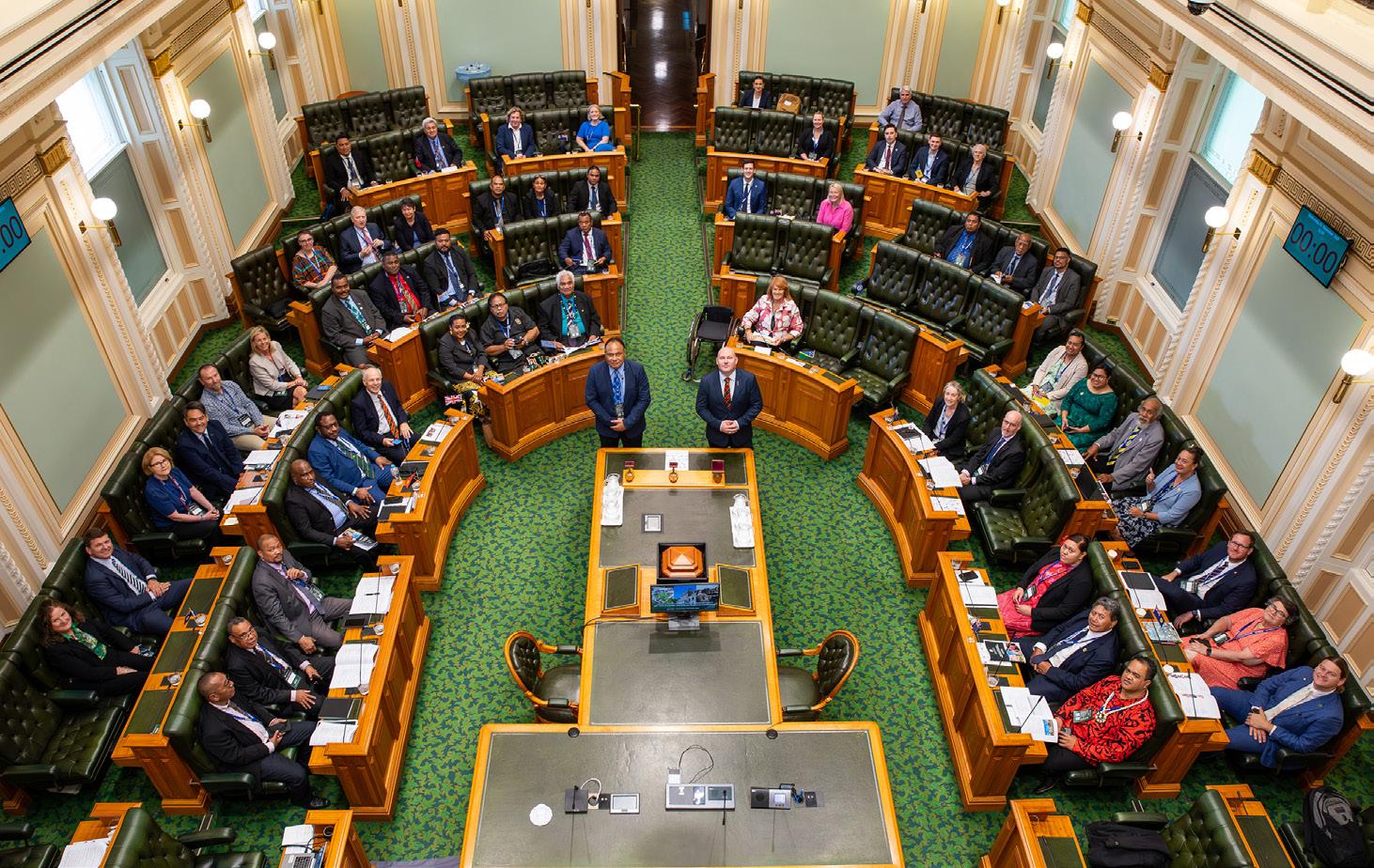
6 | The Parliamentarian | 2024: Issue One | Over 100 years of publishing VIEW FROM THE
CPA CHAIRPERSON
Image: Queensland Parliament.
The 40th CPA Australia and Pacific Regional Conference took place in Brisbane, Queensland in November 2023.


THE IMPORTANCE OF YOUTH ENGAGEMENT FOR PARLIAMENTS
The CPA Small Branches Chairperson shares the perspective of a young Parliamentarian from the ACT Assembly.
There’s an expression I have shared on occasion when referring to women and diversity in politics, “you can’t be what you can’t see”. There is no question the same applies for young people and their pathways to becoming more actively engaged in and indeed Members of Parliaments. Increasing youth participation and engagement is no doubt a conversation we have all been part of and it continues to be a topic worthy of contemplation.
The Legislative Assembly of the Australian Capital Territory (ACT) is not dissimilar to many other Parliaments and has over its time seen a diverse age-range of elected Members. The youngest MLA elected at age 22, and the oldest, 81. However, there is no doubt that like all Parliaments, we must continue looking at ways to improve youth representation and voice.
Recently, my colleague Michael Pettersson, MLA attended the 40th CPA Australia and Pacific Regional Conference in Queensland. Michael, who was first elected to the Legislative Assembly in 2016 at the age of 25, brought his own unique lived experience to the table. He expresses that involving young people in our democracies makes them stronger, not weaker.
“As a young Parliamentarian, I was incredibly fortunate to represent the ACT Legislative Assembly at the 2023 CPA Australia and Pacific Regional Conference. The conference theme was ‘Representation for the Future: Young people and Parliaments’ and I was enthusiastic to share the perspectives of younger generations.
The conference had a key focus of looking at how Parliaments can better listen to, and engage with, young people, improve their accessibility to Parliaments and be more pro-active and deliberative in youth engagement.
Across Australia and the Pacific, it was clear that many Parliaments struggled to engage young people in a consistent and methodical way. Several examples of youth engagement, commonly through the Committee system or one-off initiatives were given, but it was acknowledged that these engagements had been linked with issues considered to be youth issues, rather than regularly seeking the views and participation of young people in all aspects of deliberative democracy.
Ideally, youth engagement should be ongoing, span all policy areas and allow for greater youth participation. This was
showcased best by the Queensland Parliament and its Youth Parliament. It would serve as a good model for jurisdictions seeking to enhance their engagement with young people.
Representation of young people in Parliaments was also discussed. There were a wide range of views on the appropriateness of supporting young people into parliamentary positions and the efficacy of any such measures. The conference had many delegates who were young Parliamentarians and they shared some of their experiences in the role, attributed to their age. It was a common experience for these Parliamentarians to have been mistaken for a member of staff on occasion.
The CPA Regional Conference also discussed the growing disenfranchisement of young people with political systems and institutions and how best to address it. Delegates suggested various reasons for the growing distrust in politics and Parliaments such as declining economic conditions, changing media environments and the actions (or inaction) of Parliaments. Various presentations suggested actions that might improve youth participation in the political process such as expanding voting rights, creating pathways for young women into politics as well as expanding civic education in schools.
The conference left all attendees with a clear understanding that Parliaments and Parliamentarians are enhanced by engaging and supporting young people effectively and consistently.”
I look forward to seeing the Parliaments and Legislatures in our CPA Small Branches network put some of the presentations shared at the Regional Conference into action and thank Michael for his contribution to this issue of The Parliamentarian.
To read about the 40th CPA Australia and Pacific Regional Conference in Queensland – please refer to The Parliamentarian 2023 Issue Four, page 280.
The Parliamentarian | 2024: Issue One | Over 100 years of publishing | 7
VIEW FROM CPA SMALL BRANCHES CHAIRPERSON
Chairperson of the CPA Small Branches, Joy Burch, MLA, Speaker of the Legislative Assembly of the Australian Capital Territory

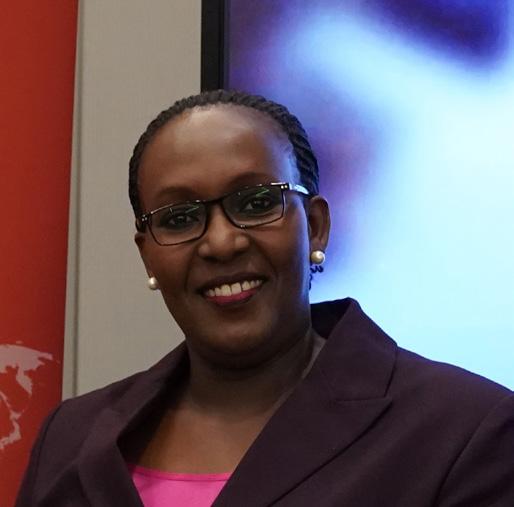
WHY IS IT HARD TO SUCCEED AS A FEMALE POLITICIAN WITH A DISABILITY?
In this interview extract, the Commonwealth Parliamentarians with Disabilities Chairperson spoke to the BBC Africa Daily Podcast about the challenges facing MPs with disabilities.
Interviewer: Alan Kasujja
Another woman used to breaking barriers is Ugandan Member of Parliament, Laura Kanushu Opori. She sits in Parliament under a quota system. In Uganda, there are five seats reserved for disabled people. She's also the Chairperson of the group, Commonwealth Parliamentarians with Disabilities, or CPwD. She told me more about the challenges people with disabilities face when they go into politics.
Hon. Laura Kanushu, MP
Parliaments across the Commonwealth, first of all, have not embraced fully the representation of people with disabilities. Still, also some Parliaments have not considered the access needs of Members of Parliament with disabilities. But there are also Parliaments across the Commonwealth that actually have no Members of Parliament with disabilities. To bring this understanding to all Parliaments across the Commonwealth is quite a challenging task, but we're doing what we can.
Interviewer: Alan Kasujja
What is it like as a woman with disabilities taking on leadership? Are people sensitive to your needs? As a woman, a politician with disabilities?
Hon. Laura Kanushu, MP
There are quite many challenges. There are quite many challenges, and I can tell you about that. In my country, Uganda, if there was no specific quota that allowed me to become a Member of Parliament representing people with disabilities. Perhaps I couldn't have been able to stand in the mainstream despite my capacities, despite my education, but because of the attitudes, because of the perspectives that the voters have towards me. Perhaps I wouldn’t be in Parliament. The chance I have to be in Parliament is because there's a specific slot for five Members who must be people with disabilities, and also the finances are because elections in the country can be very expensive and not very many women with disabilities can actually have access to those finances.
Interviewer: Alan Kasujja
Please walk me through the process of you taking on one of the five slots that's been allocated to people living with disabilities in Uganda. What's that process like?
Hon. Laura Kanushu, MP
So the process is very, very hectic because unlike my colleagues who campaign in a smaller constituency, I have to campaign throughout the country. My campaign is actually like a presidential campaign, I don't have a constituency that is small, like the women, the other women or the other constituency MPs. I have to go across the country, and I am elected through an Electoral College from every district of Uganda. So, my campaign is actually like a presidential campaign.
Interviewer: Alan Kasujja
You know, there's this, the fact that you're a woman, but also the fact that you're disabled. I wonder what that makes the politics like, because a lot of people will argue that politics by its nature is just toxic.
Hon. Laura Kanushu, MP
Yes, it makes it very, very toxic. I know that even when you have been elected as a Member of Parliament, you in that Parliament as a national leader, but it's unfortunate that some Members will still look at you as a person who is only there to talk about disability. So every time you want to speak about a different issue, people still want to push you into their disability corner and say this is not your space. You can't speak about another issue, if you are not speaking about disability, then you better keep quiet. So it's a very toxic environment, but it's also good for people to accept and know that, you know, despite your disabilities, you can actually do so much. You can have other positions. You can lead a Committee of Parliament. Those are things we're still grappling with and in this current Parliament, none of us is a Chair of any Committee, not because we don't have the capacities. We don't know why that is the case. Unlike in the 10th Parliament, we had about three Members of Parliament with disabilities being Chairs
8 | The Parliamentarian | 2024: Issue One | Over 100 years of publishing
Commonwealth Parliamentarians with Disabilities (CPwD)
VIEW FROM THE COMMONWEALTH PARLIAMENTARIANS WITH DISABILITIES
Chairperson, Hon. Laura Kanushu, MP, Parliament of Uganda
of Committees. So again, I think it goes back to attitude and to think that we can't perform beyond what we are there for as representatives of people with disabilities.
Interviewer: Alan Kasujja
There are so many issues facing people with disabilities. Do those who say that you should focus on those issues have a point? Isn't it that you are elected to concentrate on issues faced by persons with disabilities, not to prove that you can do everything else?
Hon. Laura Kanushu, MP
No, I don't think so. So let me give you an example. If Parliament is talking about women generally, I don’t always have to say women with disabilities because there are things that are common about a woman, disabled or non-disabled, and there are things that affect youth. There are matters that affect our youth with disability differently, but we're talking about youth.
Interviewer: Alan Kasujja
I agree with you, but if it's a challenge facing youth. It is more likely to impact on youth with disabilities more, and that is where your focus should be on speaking for those who need your voice more, which is young people with disabilities?
Hon. Laura Kanushu, MP
Not necessarily. I'll give you an example. If a law is being passed in Uganda that I do not agree with or I agree with and it has nothing to do with disability, as a Member of Parliament, I have no right to speak about any issue that comes on the floor. And I know, yes that my constituency is disability and that's why all the women MPs are not really talking about women's issues. They're talking about all the other issues that affect the country. So, for you to say, even when we are talking about, you know, things that are not necessarily about for disability that should keep quiet is to deny me the fact that I am a Member of Parliament and I discuss national issues.
VIEW FROM THE COMMONWEALTH PARLIAMENTARIANS WITH DISABILITIES
Interviewer: Alan Kasujja
I wonder what your message is to able-bodied voters. They might not want to vote for you and others with disabilities because they think that you'll only be interested in disability rights, which is clearly not the case from what you've told me. They might also think that someone with a disability who is blind or deaf won't be able to manage the work of Parliament with all the chaos, the debate and the madness that surrounds politics. I wonder what, what do you say to those people?
Hon. Laura Kanushu, MP
Representation in Parliament is about people's capacities, and capacity has nothing to do with my blindness, my deafness, or my physical disability. And again, it's a question of attitude that, you know, attitude alone can change in a day. See me as a person first and then see the disability. That would be more important than seeing my disability before you see the person. So, what do you consider when you're choosing a Member of Parliament? Do you want a Member of Parliament who is well-educated? Do you want a Member of Parliament who can articulate your issues? Do you want a Member of Parliament who is intentional about the rights of people? Those are the things you should look at. If you focus your eyes on my disability, you will definitely never vote for me. You will never think I can do anything, but also you need to look at my experience. What have I done, even as a woman with disability. What other work have I done? Rather than focus on the things I can't do, and I keep telling people, there's nothing I can't do. It's the environment that disables me. For me, I don't consider myself as a person who can't do anything. Unless the environment puts me in a position where I can't do those things.
Interviewer: Alan Kasujja
Can you be President?
Hon. Laura Kanushu, MP
Of course I can. Of course I can be President. Why not?

This is an interview with Hon. Laura Kanushu, MP which featured as part of the BBC Africa Daily Podcast – ‘Why is it hard to succeed as a female politician with a disability?’ (Release date: 13 February 2024). To listen to the programme in full, search 'BBC Africa Daily' wherever you get your podcasts or download here: https:// bbc.co.uk/programmes/p0hbjtpw.
The Parliamentarian | 2024: Issue One | Over 100 years of publishing | 9
Image: Parliament of Ghana.
Left: The CPwD Chairperson, Hon. Laura Kanushu, MP (centre), recently highlighted the work of local projects helping persons with disabilities when she visited the Accra Rehabilitation Centre in the West Ridge area of Ghana’s capital city, to see their work.

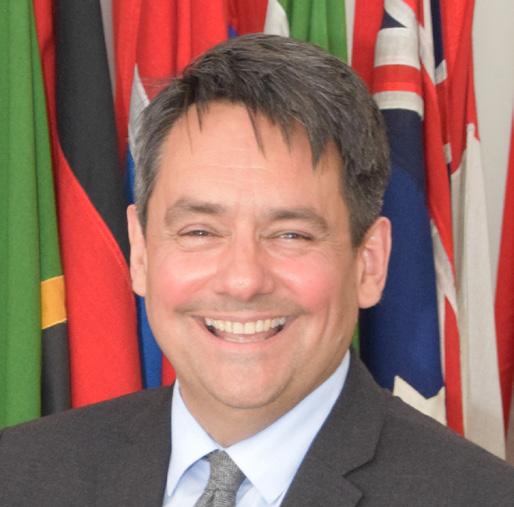
LOOKING AHEAD TO COMMONWEALTH AND CPA ACTIVITIES IN 2024
2024 is set to be a busy and important year for the CPA and the wider Commonwealth. In October, the 27th Commonwealth Heads of Government Meeting (CHOGM) will be hosted by Samoa. As usual, the CPA will be there to ensure that our voice is heard by the Leaders and Governments of the Commonwealth. This CHOGM will be especially important as it will appoint the seventh Secretary-General of the Commonwealth to succeed Rt Hon. Patricia Scotland, KC.
The CPA’s participation at CHOGM includes two important elements – working with the Commonwealth Secretariat and other Commonwealth Organisations to deliver the Commonwealth Women’s Forum and working with other Associated Organisations to make a presentation to Commonwealth Foreign Affairs Ministers. I was pleased to have the opportunity to participate in both elements in Kigali in 2022 and I look forward to leading the CPA’s team attending this year’s CHOGM in Samoa.
In November, the 67th Commonwealth Parliamentary Conference (CPC) will be held in Sydney, Australia, hosted by the CPA New South Wales Branch. Preparations are already underway for the CPC and a full report will be presented to the CPA Executive Committee at its Mid-Year Meeting being held virtually in May of this year. An important component of the 67th CPC will be the meetings of our three networks – CPA Small Branches, Commonwealth Parliamentarians with Disabilities (CPwD) and Commonwealth Women Parliamentarians (CWP). In all three cases, we will learn from the meetings and events held at the 66th CPC to ensure that the networks have the time and support necessary to maximise their impact and presence at the 67th CPC.
The longstanding matter of the CPA’s legal status will feature prominently on the agenda of the 67th CPC following the important decisions made at the 66th CPC in Accra, Ghana, in October 2023. Over the past year, we have made very significant progress in our discussions with the United Kingdom Government. I am delighted to report that Rt Hon. Dame Maria Miller’s Bill which includes provisions relating to CPA’s legal status was given its Second Reading in the UK House of Commons on 19th January 2024.
I am grateful to Dame Maria for her leadership on this. The Bill provides a framework for the CPA to achieve a new legal
status in the UK. It also provides a framework for the International Committee of the Red Cross (ICRC) to do so as well. Like the CPA, the ICRC has been keen to secure UK legislation.
The Bill enjoys wide cross-party support in both chambers of the UK Parliament. Its progress is dependent on the availability of parliamentary time including the timing of the UK’s General Election. Therefore, the Bill’s progress is by no means a certainty, but we are closer than we have ever been to achieving our goal. I will keep everyone informed as this matter moves forward in the crucial next few weeks and months.
As well as our work on CHOGM, the 67th CPC and Status, the CPA will deliver a wide range of activities throughout 2024 including Academy Residencies, the CWP Workshop and the CPA Small Branches Workshop.
In September, New Zealand will host the 12th Commonwealth Youth Parliament (CYP). This will be an important part of the CPA’s contribution to the ‘Commonwealth Year of Youth’ which continues this year.
Many Commonwealth jurisdictions have elections during 2024 and we look forward to working with the newly elected cohorts of legislators including both new and re-elected Members. Our online CPA Parliamentary Academy provides a comprehensive set of learning and development opportunities which we encourage both Members and parliamentary staff to make use of. During 2024 we will be launching two new courses, one on Human Rights and the other addressing the role of Chairs of Committees.
When I joined the CPA as Secretary-General in 2020, one of my early priorities was to consult widely on the development of a new CPA Strategic Plan. The current Plan was adopted in 2021 and runs from 2022 to 2025. So, we have just passed the halfway point and we are beginning a mid-term review. This important strand of work will help inform our work programme for the remainder of this Strategic Plan as well as providing a foundation for the work we will do to develop the next Strategic Plan.
The regions of the CPA are crucial to our work. In 2023, I was pleased to have the opportunity to attend CPA Regional Conferences for India, Canada, Australia & Pacific and the British Islands and Mediterranean Regions. The CPA Deputy SecretaryGeneral, Jarvis Matiya, attended the Caribbean, Americas and the Atlantic Regional Conference. The CPA Chairperson, Hon
10 | The Parliamentarian | 2024: Issue One | Over 100 years of publishing VIEW FROM THE CPA SECRETARY-GENERAL
The Secretary-General of the Commonwealth Parliamentary Association, Stephen Twigg
Ian Liddell-Grainger joined me or Jarvis at almost all of the 2023 Regional Conferences.
At the time of writing, I am looking forward to a visit in March to Tanzania which will include meeting the CPA Africa Regional Secretariat in Dodoma and attending the Commonwealth Law Ministers Meeting in Zanzibar.
During this busy year, the priority for the CPA HQ Secretariat
CPA PHOTO GALLERY
VIEW FROM THE CPA SECRETARY-GENERAL
team will be to provide CPA’s Branches, regions and networks with the support needed to maximise their impact and effectiveness. Mutual learning and co-operation always lie at the heart of what the CPA does and I am confident that this busy year will be one in which we learn from each other as we take forward our shared priorities and values.
Right: A parliamentary delegation from the Parliament of Namibia has visited the UK Parliament for a four-day bilateral programme organised by the CPA UK Branch. Members of the National Assembly and the National Council of Namibia joined the programme which included meeting with UK Parliamentarians and key stakeholders. The CPA UK Chair, Rt Hon. Dame Maria Miller, MP welcomed the delegation to the UK. The Namibia delegation met with the CPA Secretary-General, Stephen Twigg to discuss the CPA’s activities with the CPA Namibia Branch and in the wider CPA Africa Region. The Parliament of Namibia recently undertook a CPA Democratic Benchmarks assessment to focus on parliamentary strengthening and to provide a legislative framework linked to the UN Sustainable Development Goals. The Namibian High Commissioner to the UK, HE Linda Scott also joined the meeting.
Right: The CPA Secretary-General, Stephen Twigg met with three Senators from the Senate of Pakistan during their visit to the Parliament of the United Kingdom as part of a programme with the UK House of Lords Overseas Office. Senator Abida Muhammad Azeem (Balochistan), Senator Khalida Ateeb (Sindh) and Senator Keshoo Bai (Sindh) were able to hear about the work of the CPA in Pakistan and the wider Region as well as the activities of the Commonwealth Women Parliamentarians (CWP) network in supporting women in Parliament. The delegation from the Senate of Pakistan was accompanied by Mr Hafeezullah Sheikh, Additional Secretary at the Parliament of Pakistan.
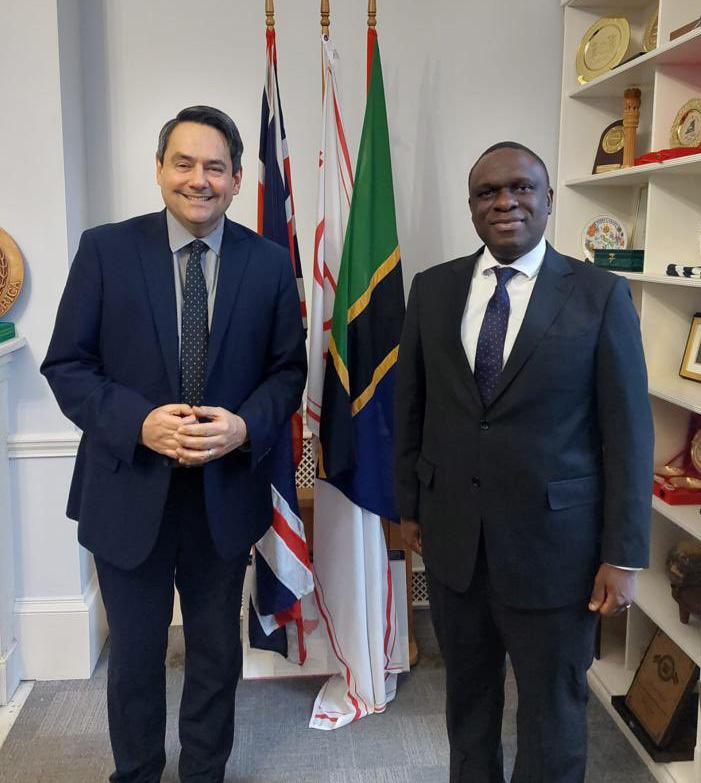
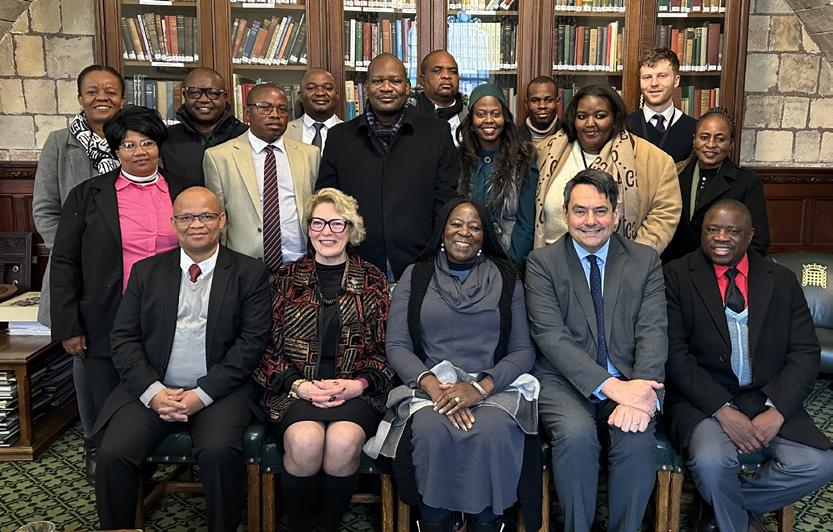
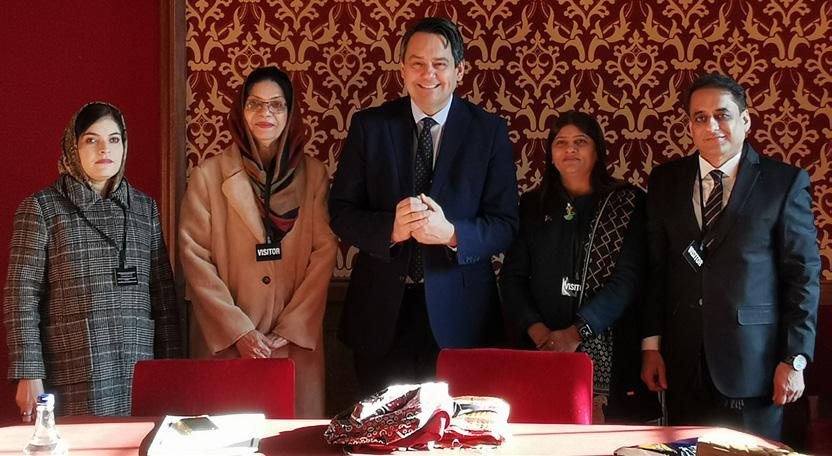
in Africa. The Parliament of Tanzania is the CPA Africa
The Parliament of Tanzania recently hosted the second Commonwealth Women

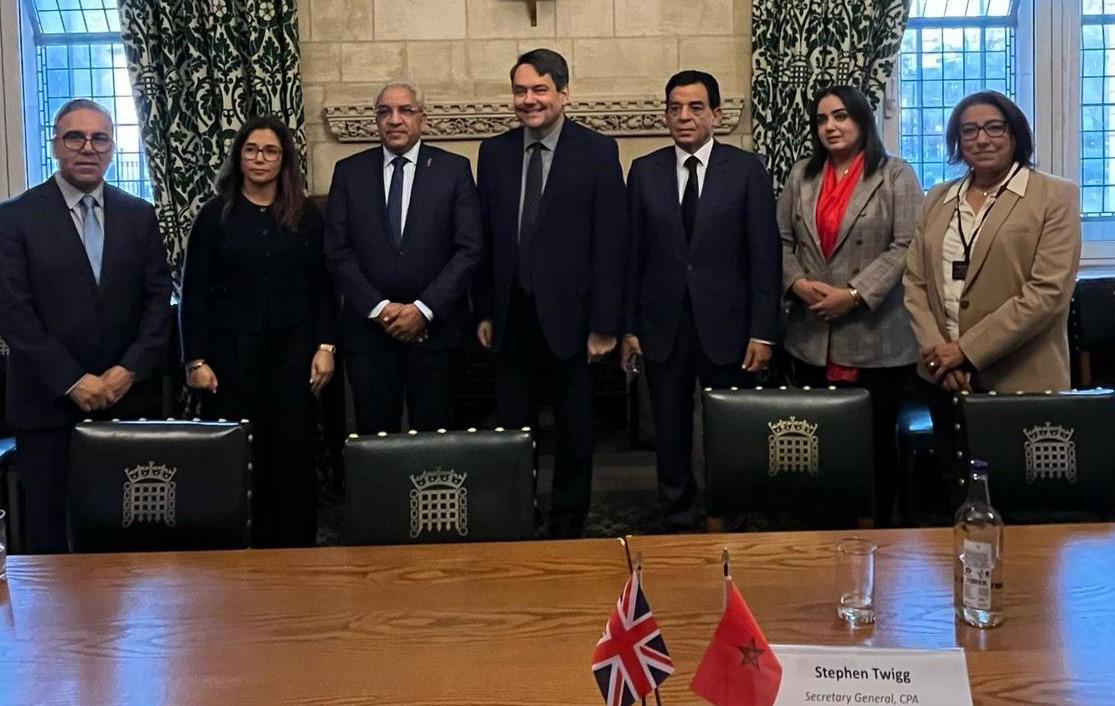
The Parliamentarian | 2024: Issue One | Over 100 years of publishing | 11
Left: The CPA Secretary-General, Stephen Twigg met with the Tanzania High Commissioner to the United Kingdom, Mbelwa Kairuki to discuss the Commonwealth Parliamentary Association's work with 63 national and subnational Legislatures
Regional Secretariat.
Parliamentarians (CWP) Workshop on ‘Champions for Gender Equality: Achieving Equal Participation in Commonwealth Parliaments’ with Commonwealth Parliamentarians from 17 different jurisdictions and the CPA Africa Region Capacity Building Workshop for CPA Branch Desk officers, parliamentary staff and Regional Secretariat team members from 10 CPA Branches in the CPA Africa Region.
Image credits: CPA Headquarters Secretariat.
Right: The First Deputy Speaker of the House of Representatives of the Kingdom of Morocco, Hon. Mohamed Sabbari and a parliamentary delegation of MPs (Hon. Mohamed Joudar, Hon. Nadia Touhami, Hon. Zaina Idhali, Hon. Abdelaziz Lachehab and Hon. Ilham Essaki) met with the CPA Secretary-General, Stephen Twigg during a visit to the UK Parliament. The Deputy Speaker was able to discuss potential areas of collaboration with the CPA and many shared interests between Parliaments, particularly across the CPA Africa Region. The Parliament of the Kingdom of Morocco is also a member of a number of inter-parliamentary organisations and assemblies who work with the CPA on different projects and initiatives including the Inter-Parliamentary Union (IPU) and the Parliamentary Assembly of the Mediterranean (PAM), which signed a cooperation agreement with the CPA in 2021.
Left: CPA Regional Secretaries - representing nine CPA Regions - met virtually on 13 February 2024 with CPA Secretary-General, Stephen Twigg and CPA Headquarters staff to discuss governance and future CPA activities. The Commonwealth Parliamentary Association represents Parliaments in nine CPA Regions across the CommonwealthAfrica; Asia; Australia; British Islands and Mediterranean; Canada; Caribbean, Americas and Atlantic; India; Pacific; South-East Asia.
PARLIAMENTARY OFFICIALS’ TRAINING BUILDS CAPACITY FOR CPA ENGAGEMENT IN AFRICA REGION
A group of CPA Branch Desk officers, parliamentary staff and Regional Secretariat team members attended the CPA Africa Region Capacity Building Workshop in Arusha, Tanzania from 14 to 15 November 2023. Representatives from 10 CPA Branches in the CPA Africa Region attended the event at the East African Legislative Assembly in Arusha, which provided guidance on supporting Parliamentarians and parliamentary staff both at a regional and international level.
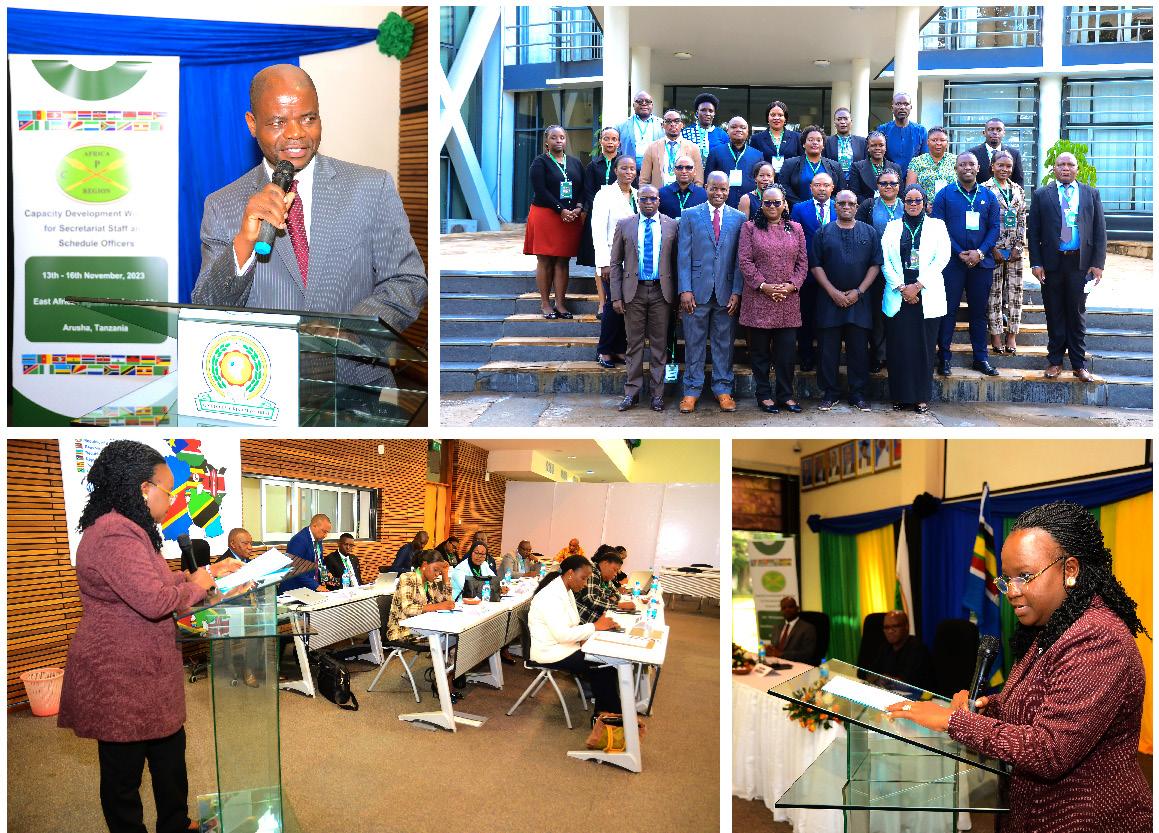
Delegates were welcomed by the CPA Africa Regional Secretary, Ms Nenelwa Joyce Mwihambi, who is also the Clerk of the National Assembly of Tanzania and said: “One of the objectives of the CPA Africa Region is to promote transparency and accountability in the operation of the Region’s organs and bodies in all member countries. To realise this objective requires concerted efforts of each and everyone in the Region. The skills and knowledge gained from this workshop will enable staff to serve the needs of our member Parliaments better and strengthen parliamentary democracy within the Commonwealth. Together, let us strive towards building stronger and more effective Parliaments that can truly represent the aspirations of our people.”
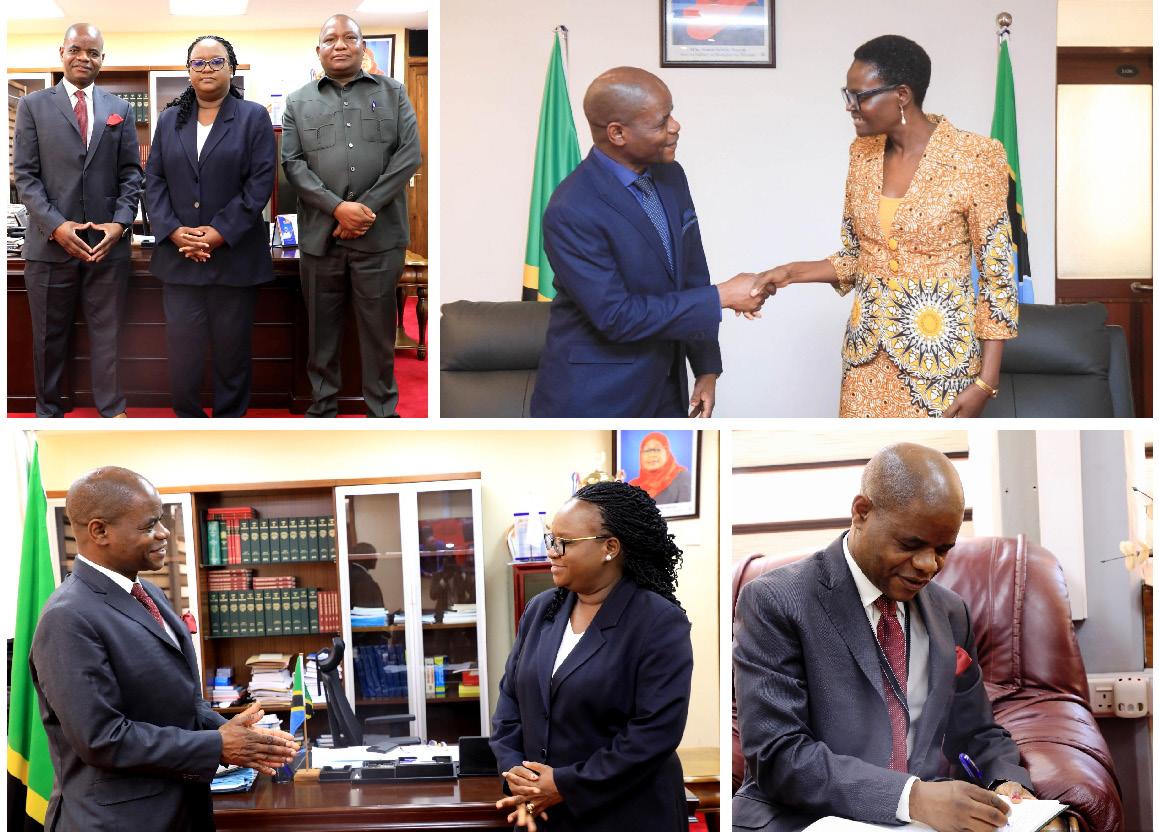
The CPA Deputy Secretary-General, Jarvis Matiya facilitated discussions at the workshop and said: “I am grateful to the CPA Africa Region for this capacity building workshop where I was able to provide information to CPA Desk Officers on their role in supporting the CPA, both at the regional and international level, and how they can help to coordinate and promote greater awareness of the CPA. The CPA appreciates the work of all CPA Desk Officers in supporting and coordinating the CPA’s activities and I was also able to update staff on the latest CPA events and developments on CPA Status.”
Earlier in the week, the CPA Deputy Secretary-General Jarvis Matiya met with the Speaker of the National Assembly of Tanzania, Dr Tulia Ackson to discuss activities in the CPA Africa Region. The Speaker was recently elected as the new President of the Inter-Parliamentary Union (IPU). The CPA Deputy Secretary-General also met with the Clerk of the National Assembly of Tanzania, Ms Nenelwa Joyce Mwihambi, to discuss the CPA’s activities in the CPA Africa Region. The meeting was also attended by the Director of Communications and International Relations Office, Daniel Eliufoo, who is the Assistant CPA Africa Regional Secretary.
CPA AFRICA REGION BUDGET COMMITTEE IN NAMIBIA
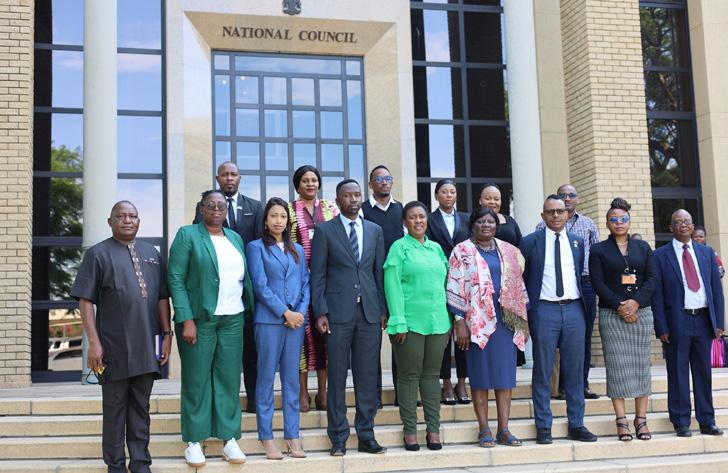
The Parliament of Namibia hosted a meeting of the Budget Committee of the Commonwealth Parliamentary Association (CPA) Africa Region from 23 to 26 January 2024. The Committee, responsible for organising, facilitating and formulating recommendations on the CPA Africa Region’s financial investments, convened in Windhoek. Hon. Lukas Sinimbo Muha, Chairperson of the National Council of Namibia and Vice-Chairperson of the CPA Africa Region Executive Committee, opened the Committee meeting, which was chaired by the CPA Africa Region Treasurer, Hon. Ntombi Lentheng Mekgwe, the Speaker of the Gauteng Provincial Legislature in South Africa. Members from CPA Branches in Gauteng, KwaZuluNatal, Botswana, Mauritius, Nigeria and Tanzania also attended. The CPA Africa Region Budget Committee Members also paid a visit to the Speaker of the National Assembly of Namibia, Hon. Professor Peter Katjavivi ahead of their meeting.

For the latest CPA and Commonwealth news please visit www.cpahq.org or follow the CPA on social mediaTwitter @CPA_Secretariat | Facebook.com/CPAHQ | LinkedIn | Instagram @cpa_secretariat
12 | The Parliamentarian | 2024: Issue One | Over 100 years of publishing CPA NEWS
Images: Parliament of Tanzania.
Image credit: Parliament of Namibia.
Images: Parliament of Tanzania.
INDIA VICE-PRESIDENT INAUGURATES 84th ALL INDIA PRESIDING OFFICERS CONFERENCE AT THE MAHARASHTRA LEGISLATIVE ASSEMBLY
The Vice-President of India and the Chairman of the Rajya Sabha, the India Parliament’s Upper House, Shri Hon. Jagdeep Dhankhar inaugurated the two-day 84th All India Presiding Officers Conference in Mumbai held from 27 to 29 January 2024. Speakers and Presiding Officers from across the CPA India Region, including National and State Legislatures, attended the event held at the Maharashtra Legislative Assembly. In his opening address, the Vice-President of India emphasised the importance of the authority of Presiding Officers which is essential to maintaining the decorum of debates and ensuring that the public have faith in the democratic system. Presiding Officers also have a role in nurturing new Legislators and ensuring that both Houses work together.
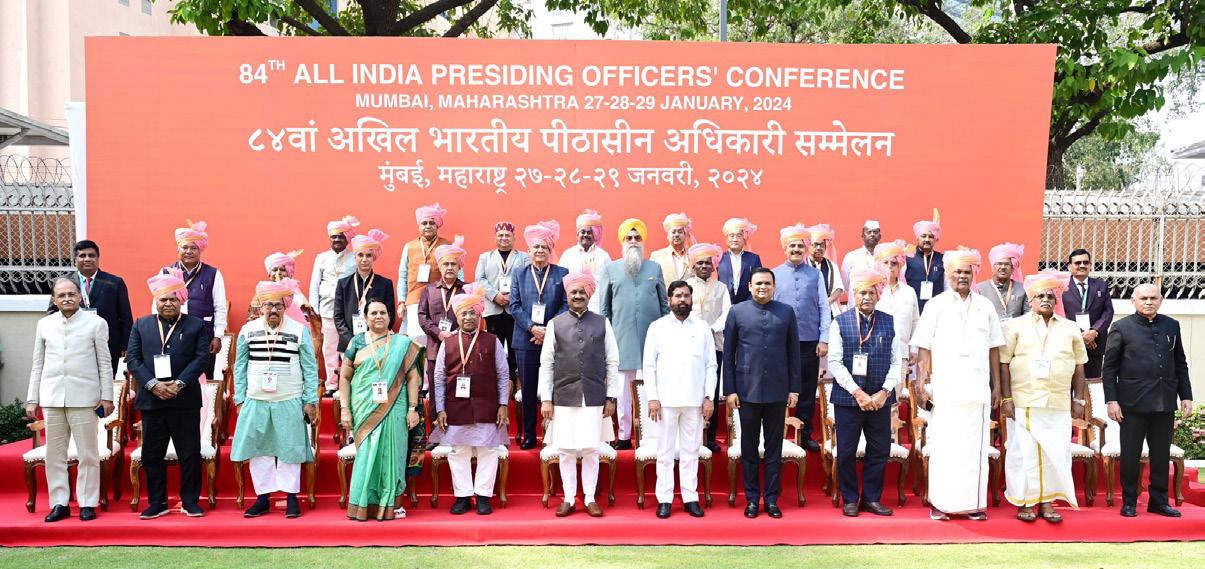
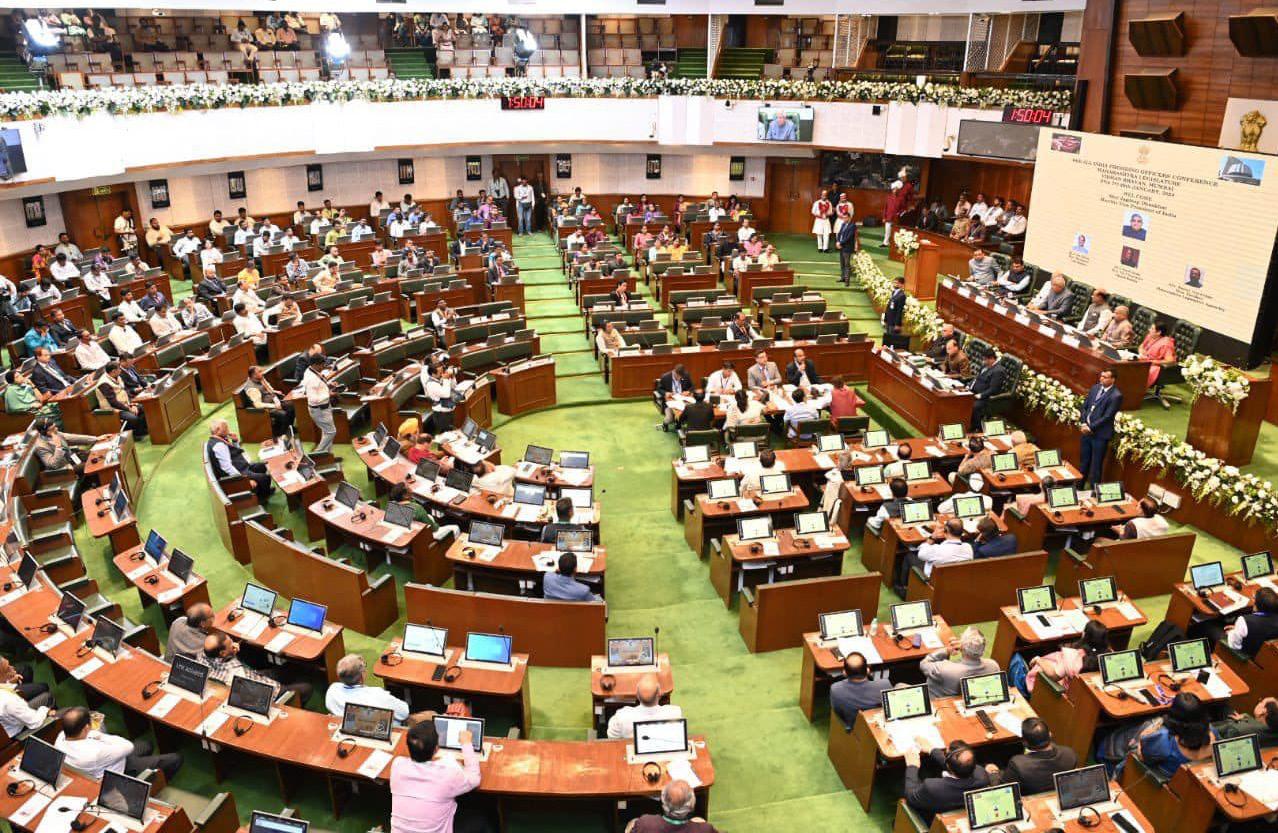
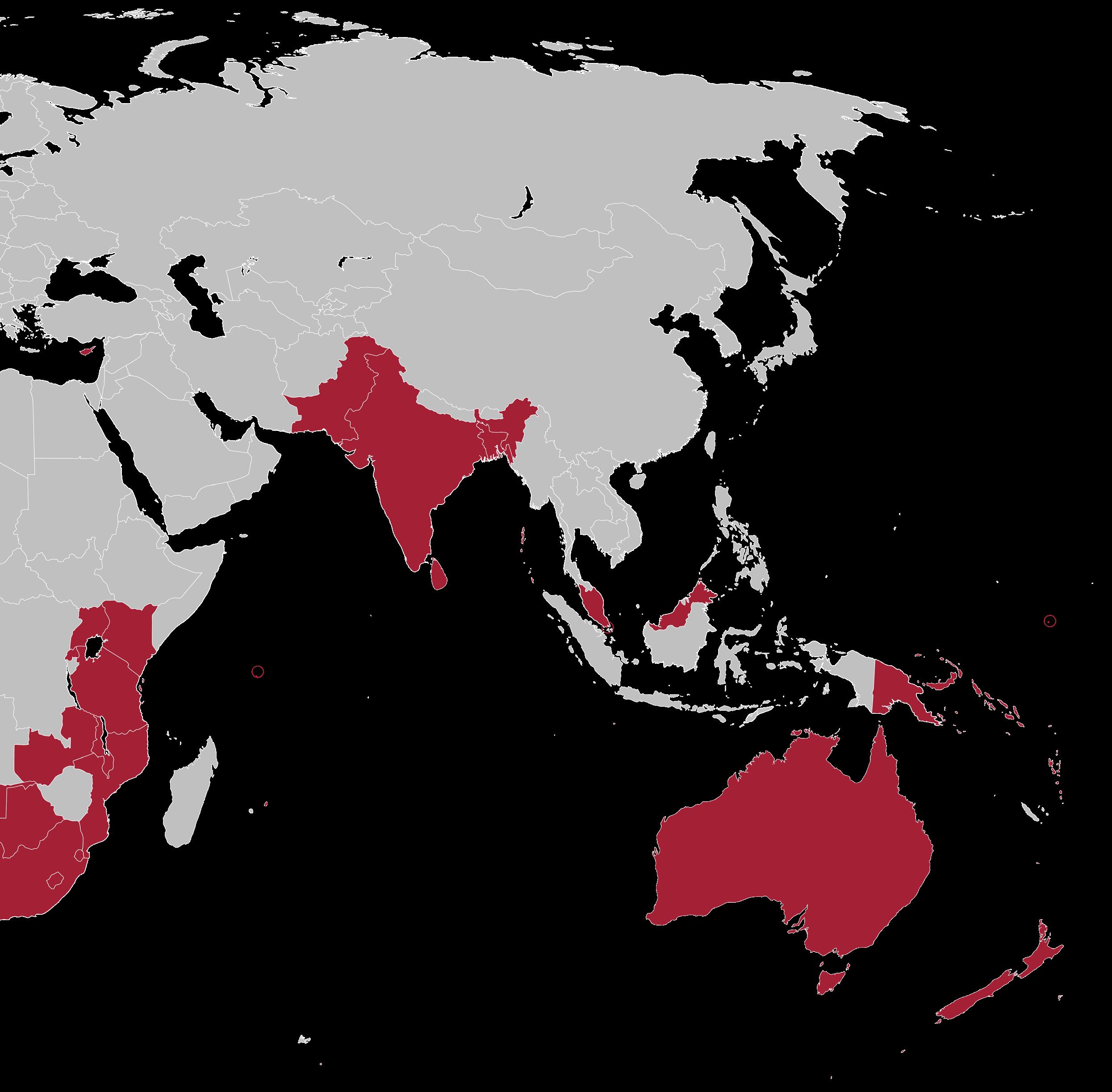
Discussions at the Conference were held on strengthening people’s trust in democratic institutions, the need to maintain discipline and decorum in the Legislature and how to make the Committee system more purposeful and effective. The CPA India Regional Chairperson and Speaker of the Lok Sabha, Shri Om Birla addressed the Conference and expressed the hope that all Members should be given the space to be able to voice their dissent within the Legislature without proceedings being disrupted. The Conference also discussed efforts to bring all Legislatures in India together on a single digital, platform, that also includes Members of Parliament, citizens and other stakeholders under the title of ‘One Nation, One Legislative Platform’. The Prime Minister of India, Shri Narendra Modi also sent a video message to the Conference. Delegates were welcomed by the Speaker of the Legislative Assembly of Maharashtra, Hon. Rahul Narwekar, MLA and the Deputy Chairperson of the Maharashtra Legislative Council, Hon. Dr Neelam Gorhe, MLC. In addition, Parliamentary Clerks from across the CPA India Region also attended the 60th Conference of Secretaries of Legislative Bodies in India, which was held on 27 January 2024 ahead of the Presiding Officers Conference. The Secretary–General of the Lok Sabha, Shri Utpal Kumar Singh chaired the Clerks Conference and delegates discussed the topic of ‘Making Use of Cutting Edge Technologies in the Service of Legislature’.
THE SPEAKER OF ONE OF THE LARGEST PARLIAMENTS IN THE COMMONWEALTH MEETS MEMBERS OF ONE OF THE SMALLEST LEGISLATURES

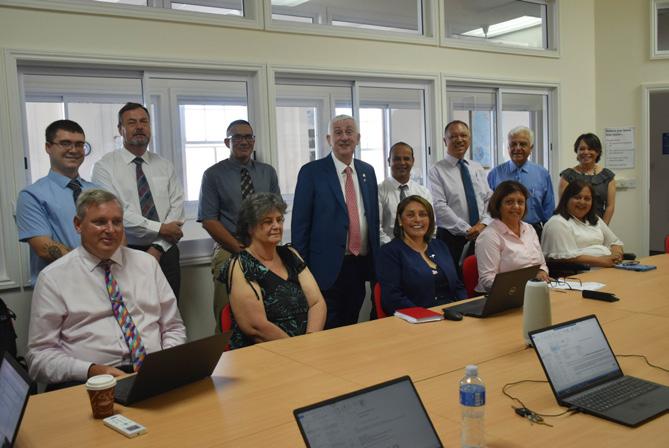
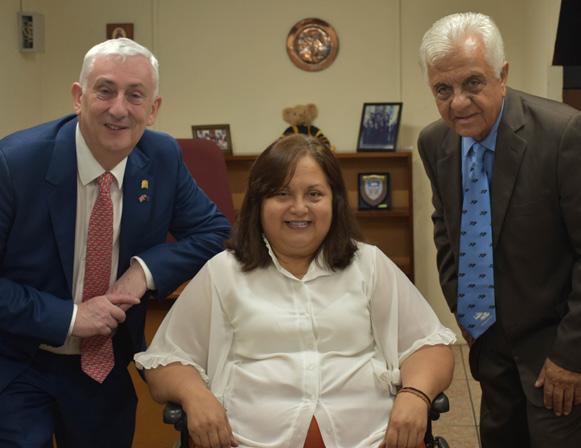
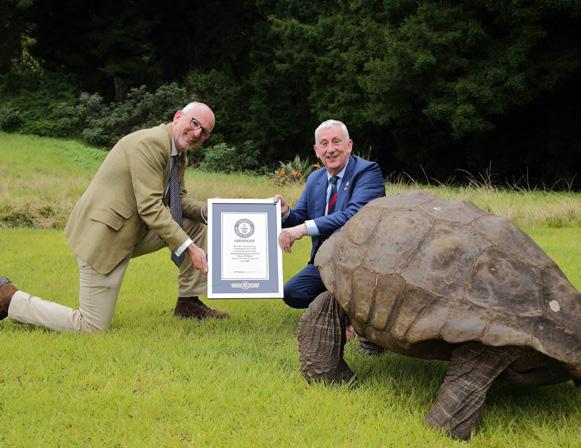
The Speaker of the UK House of Commons and Joint CPA UK Branch President, Rt Hon. Sir Lindsay Hoyle, MP visited the remote island of St Helena in the Atlantic Ocean.
The UK Speaker was the first Speaker of the House of Commons to visit St Helena and the most senior serving UK Parliamentarian. During his visit, the UK Speaker met with the Speaker of the Legislative Council of St Helena, Hon. Cyril Gunnell, the Chief Minister, Hon. Julie Thomas and Members of the Legislature to share best practice and methods for strengthening parliamentary scrutiny.
After being received at Plantation House by the Governor of St Helena, Ascension and Tristan da Cunha, Air Commodore Nigel Phillips CBE, Sir Lindsay Hoyle also presented 192-yearold Jonathan the tortoise with his Guinness World Record recognising him as the planet’s oldest ever recorded tortoise.
In recent years, the CPA Secretariat has been working with the St Helena Legislative Council on a CPA Democratic Benchmarks assessment and Technical Assistance Programme to support the capacity and effectiveness of the Legislature. The CPA St Helena Branch is due to host the 53rd
British Islands and Mediterranean Regional Conference in May 2024.
The Parliamentarian | 2024: Issue One | Over 100 years of publishing | 13 CPA NEWS
Image credits: Maharashtra Legislative Assembly.
CPA
Image: Legislative Assembly of Ontario.
COMMONWEALTH PARLIAMENTARY ASSOCIATION JOINS
EVENTS TO MARK 20 YEARS OF THE COMMONWEALTH LATIMER HOUSE PRINCIPLES
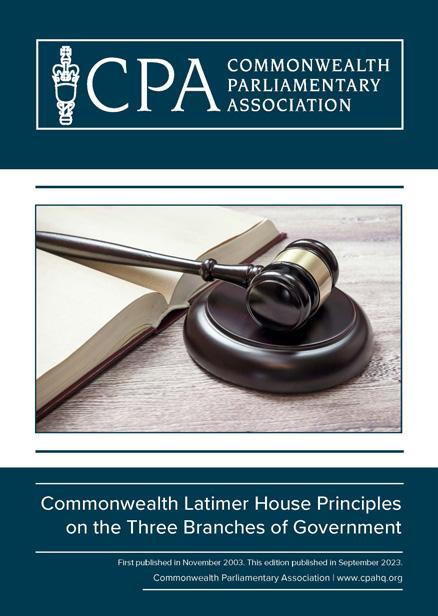
Effective Parliaments are one of the principal institutions of any functioning democracy and they are central to the attainment of UN Sustainable Development Goal (SDG) 16 on the role of effective, accountable and inclusive institutions at all levels. The Commonwealth Parliamentary Association played a key role in the establishment of the Commonwealth Latimer House Principles on the separation of powers (officially titled: Commonwealth (Latimer House) Principles on the Three Branches of Government), which highlights the importance of the separation of powers between the Legislature, the Executive and the Judiciary to ensure effective governance and democracy. The Latimer House Principles provide guidance on the role of the separation of powers in the Commonwealth, its effectiveness in providing democratic governance and the role of civil society. First drafted in 1998-99, the Commonwealth Latimer House Principles were further revised and updated before being officially adopted at the 18th Commonwealth Heads of Government Meeting (CHOGM) in December 2003 in Abuja, Nigeria. The Commonwealth Parliamentary Association was a partner in the establishment of the Commonwealth Latimer House Principles together with partners: The Commonwealth Secretariat, the Commonwealth Magistrates and Judges Association (CMJA), the Commonwealth Lawyers Association (CLA) and the Commonwealth Legal Education Association (CLEA). Representatives from each organisation form the Commonwealth Latimer House Principles Working Group.
COMMONWEALTH RULE OF LAW SEMINAR SERIES
Commonwealth Parliamentarians joined a wide range of stakeholders from across the Commonwealth for a seminar to commemorate the 20th anniversary of the Commonwealth Latimer House Principles held by the Rule of Law Division at the Commonwealth Secretariat. The panel discussion examined the critical importance of adhering to the principles whilst also reflecting on their relevancy in modern democracies given existing threats to good governance.
• The Speaker of the House of Representatives at the Parliament of Malaysia, H.E. Johari bin Abdul, represented the Commonwealth Parliamentary Association at the webinar and spoke about the importance of the independence of Parliaments in the wider context of the separation of powers and holding the Executive to account. The Speaker also spoke about increasing the representation of women in Parliament and engaging with young people and the wider public.
• Justice Charles Mkandawire, a Judge of Appeal at the Supreme Court of Malawi and Immediate Past President of the Commonwealth Magistrates and Judges Association, outlined the importance of the independence of the Judiciary, especially in regard to judicial appointments.
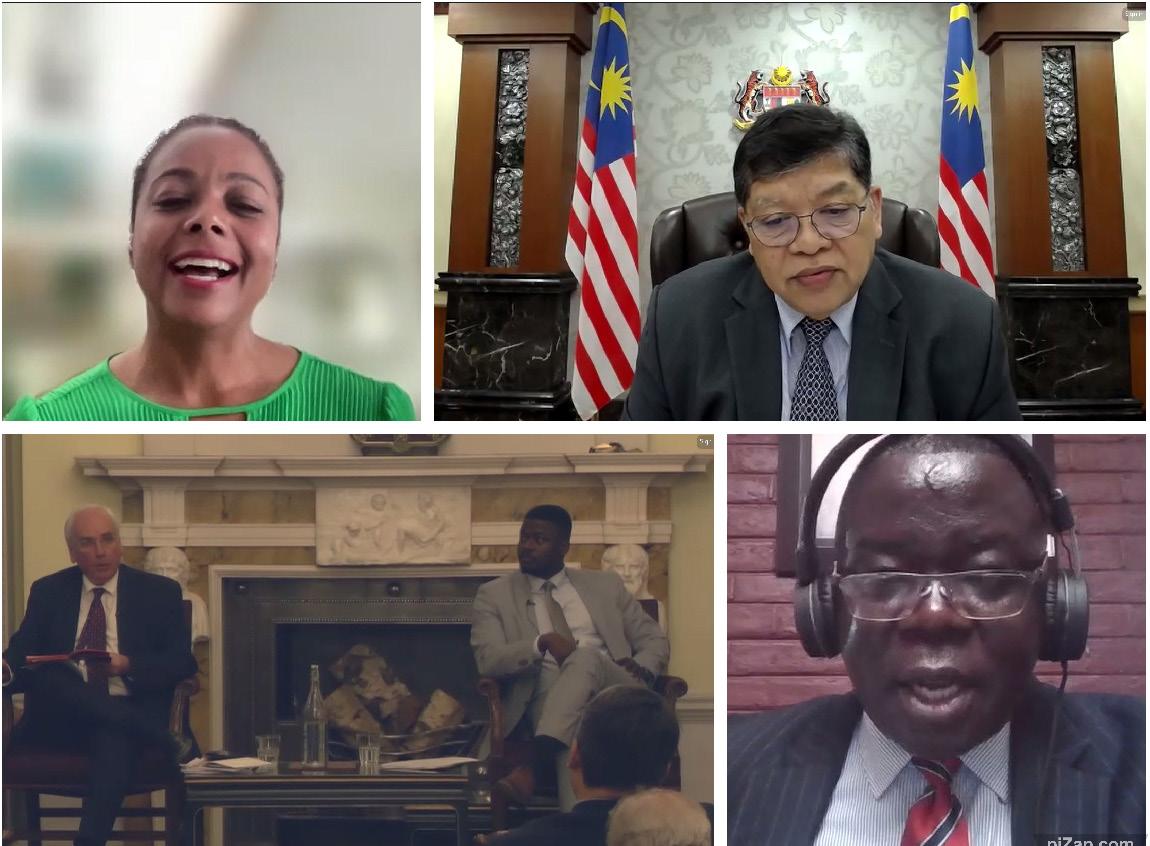
• The Minster of Legal and Constitutional Affairs of Jamaica, Hon. Marlene Malahoo-Forte, KC, MP, spoke about the role of the Executive and the Legislature in upholding democracy and democratic participation. She also outlined the key role of the Government in upholding the separation of powers.
• Mukhtar Adesunkanmi, Assistant Research Officer at the Commonwealth Secretariat, provided a youth view and spoke about the key role that the separation of powers plays in supporting all democratic movements and freedom of speech.
• The moderator for the webinar was Brian Speers, Immediate Past President of the Commonwealth Lawyers Association.
UK MPs VISIT JAMAICA PARLIAMENT TO FOSTER BILATERAL COOPERATION
Members of the Parliament of the United Kingdom have visited the Jamaican Parliament from 6 to 10 November 2023 to strengthen bilateral ties and foster meaningful discussions on areas of mutual interest. The CPA UK Branch delegation was led by Rt Hon. Karen Bradley, MP and included Hon. Paulette Hamilton, MP; Hon. Jo Gideon, MP; Lord Davies of Brixton and Hon. Mark Pawsey, MP.
The UK delegation met with the President of the Senate, Senator Hon. Thomas Tavares-Finson, and the Speaker of the House of Representatives, Hon. Juliet Holness, Joint CPA Jamaica Branch Presidents, at Gordon House. The visit also including meetings with Government Ministers and Members of the Jamaica Parliament, with officials at the British High Commission and visit to the National Gallery of Jamaica.
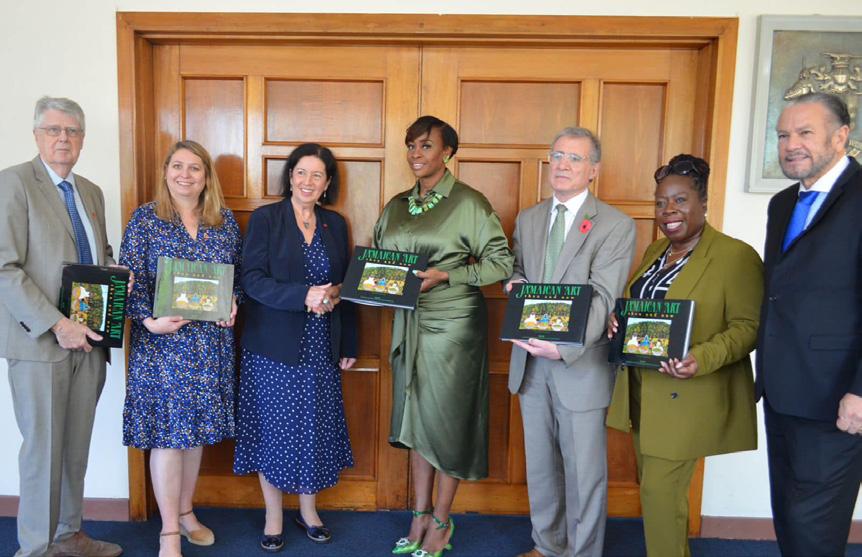

14 | The Parliamentarian | 2024: Issue One | Over 100 years of publishing CPA NEWS
For the latest CPA and Commonwealth news please visit www.cpahq.org or follow the CPA on social mediaTwitter @CPA_Secretariat | Facebook.com/CPAHQ | LinkedIn | Instagram @cpa_secretariat
Images: CPA Secretariat.
Image credit: Parliament of Jamaica.
CANADIAN PARLIAMENTARIANS UNDERTAKE BILATERAL ENGAGEMENTS AS CPA CANADA VISITS GUYANA, CAMEROON AND THE UNITED KINGDOM
Bilateral engagement takes place across the Commonwealth Parliamentary Association’s membership to encourage exchange, co-operation and mutual learning. In November 2023, Canadian Parliamentarians visited Guyana, Cameroon and the United Kingdom.
The CPA Canada Federal Branch Chairperson, Hon. Alexandra Mendès, MP, Assistant Speaker to the Canadian House of Commons, led a parliamentary delegation on a visit to Guyana where they were welcomed by Hon. Manzoor Nadir, Speaker of the National Assembly of Guyana. The Canadian delegation, which included Senator Salma Ataullahjan, Rhéal Fortin, MP and Robert Kitchen, MP, also met with the Prime Minister, the Leader of the Opposition and several Government Ministers. Canada and Guyana have enjoyed a close bilateral relationship for a number of years.
Senator Hon. Amina Gerba, Co-President of the Canada-Africa Parliamentary Association (CAAF), led a delegation from the Parliament of Canada to Cameroon, where they met with Rt Hon. Cavaye Yeguie Djibril, Speaker of the National Assembly of Cameroon in Yaoundé. The delegation, including Senator Rene Cormier, met with the Prime Minister of Cameroon, Hon. Joseph Dion Ngute and the Minister of External Relations, Hon. Felix Mbayu to discuss bilateral relations, human rights obligations and the security crisis in certain regions of the country.

The Chair of the
Canada-United Kingdom
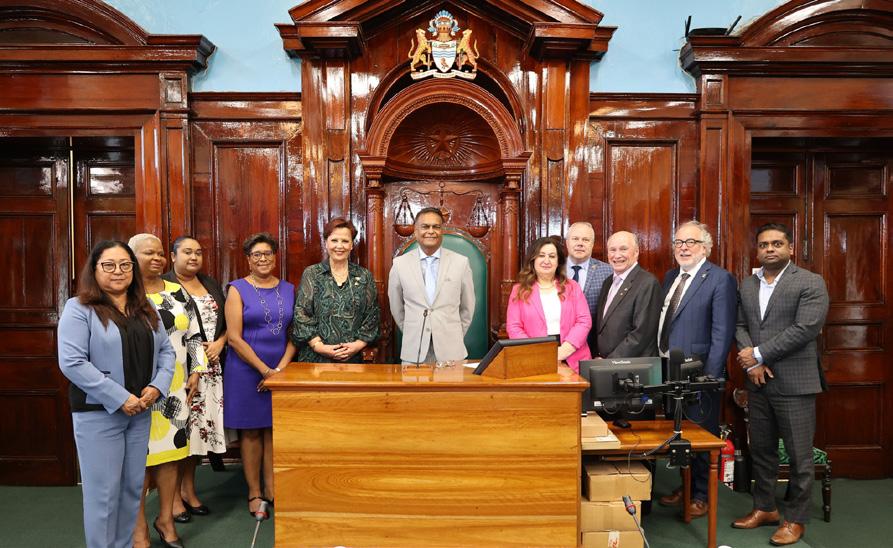
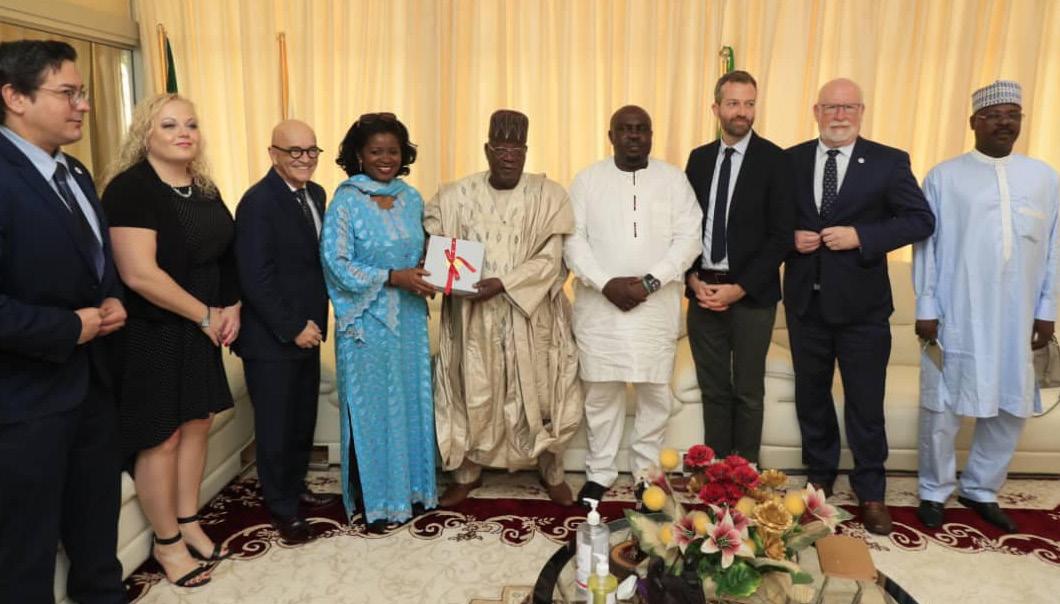
Inter-Parliamentary Association (RUUK), Hon. James Maloney, MP held a roundtable with the UK House of Commons Business and Trade Select Committee to discuss parliamentary scrutiny of trade legislation and achieving mutual economic security through trade. The delegation included Senator Tony Dean, Senator Leo Housakos, Hon. Patricia Lattanzio, MP, Hon. Michael Barrett, MP, Hon. John Barlow, MP and Hon. Julie Vignola, MP.
The bilateral visit was coordinated by the CPA UK Branch and included discussions on security, intelligence sharing and foreign interference with Members of both UK Houses of Parliament and a visit to the Welsh Parliament (Senedd) to meet their women’s caucus to discuss gender equality and the status of women in their respective Parliaments.
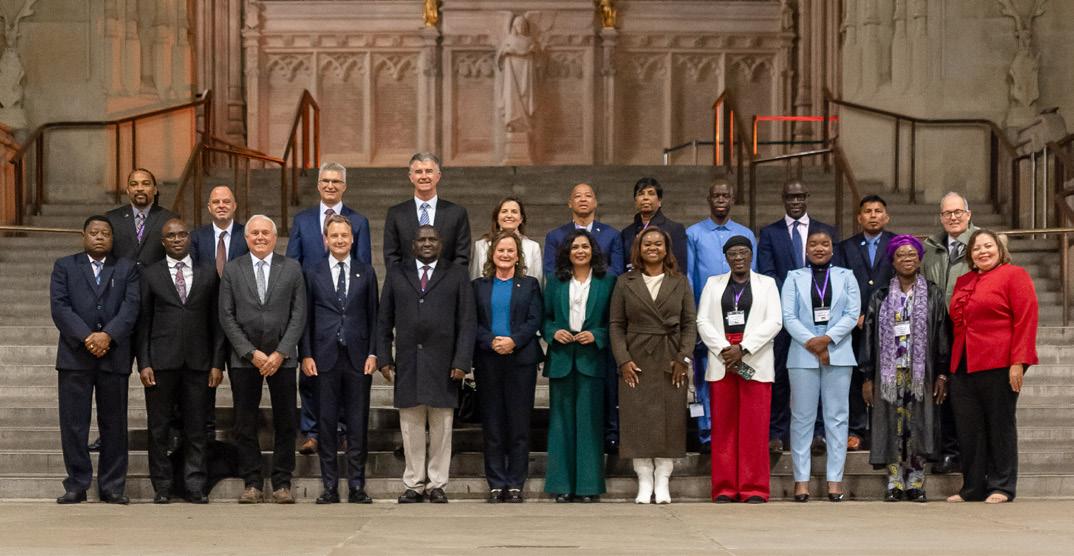
COMMONWEALTH CONFERENCE ON PARLIAMENTARY SCRUTINY AND OVERSIGHT OF NATIONAL SECURITY
Commonwealth Parliamentarians attended the Commonwealth Conference on Parliamentary Scrutiny and Oversight of National Security 2024 at the UK Parliament. Delegates attended from Australia, Sri Lanka, Belize, Canada, Malta, Montserrat, Kenya, Malawi, Seychelles, Sierra Leone and The Gambia. Focusing on scrutiny and oversight, the Conference explored global trends in national security, exploring topics such as conflict resolution and peacebuilding, cybersecurity and climate change. The CPA UK Branch organised the event which also provided valuable insights and meaningful discussions between Commonwealth Parliamentarians.
CANADIAN SPEAKERS MEET IN NORTHWEST TERRITORIES FOR 40 th CANADIAN PRESIDING OFFICERS CONFERENCE
Speakers and Presiding Officers from the Canadian Federal and Provincial Parliaments attended the 40th Canadian Presiding Officers Conference in Yellowknife, Northwest Territories from 18 to 19 January 2024 where they were able to share legislative developments and best practice from their Legislatures.

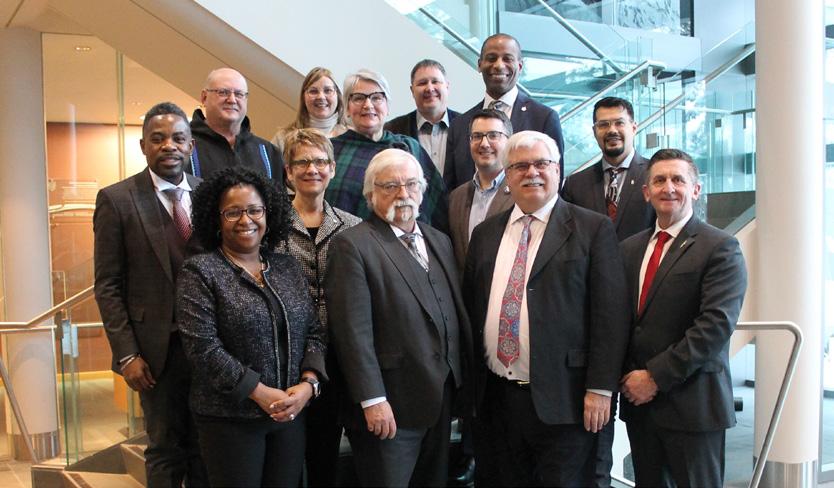
The Parliamentarian | 2024: Issue One | Over 100 years of publishing | 15 CPA NEWS
Image credits: Parliament of Guyana/National Assembly of Cameroon.
Image: CPA UK.
Image credit: Legislative Assembly of the Northwest Territories.
Image: Canadian High Commission in the UK.
SOUTH AFRICAN PARLIAMENTS FORUM EXAMINES EFFECTIVE OVERSIGHT
AND ACCOUNTABILITY IN LEGISLATURES

The Speakers Forum of South Africa held a two-day summit from 30 to 31 January 2024 to assess the legislative sector's effectiveness in upholding constitutional mandates, including oversight, public engagement and legislation. The International Oversight Summit was co-hosted by the Parliament of South Africa and the South African Legislative Sector (SALS) in Cape Town, and it explored strategies to enhance sector oversight and foster knowledge-sharing and idea exchange with regional and international counterparts on effective oversight practices.
The Speakers Forum of South Africa is co-chaired by the Speaker of the National Assembly and the Chairperson of the National Council of Provinces and also includes the Speakers and Deputy Speakers of all nine Provincial Legislatures in South Africa. The Speaker of the National Assembly of South Africa, Hon. Nosiviwe Mapisa-Nqakula stressed how crucial effective and qualitative oversight is in ensuring that the people receive the quality services they deserve. “Qualitative oversight is important for all our work as it guarantees accountability to our people – ensuring greater public confidence, not only in the Legislatures, but in the state as a whole.”
The Deputy President of South Africa and leader of government business in Parliament, Paul Mashatile delivered the keynote address in which he emphasised the importance of strong parliamentary oversight to ensure accountability and transparency as such systems are essential to enable good governance.
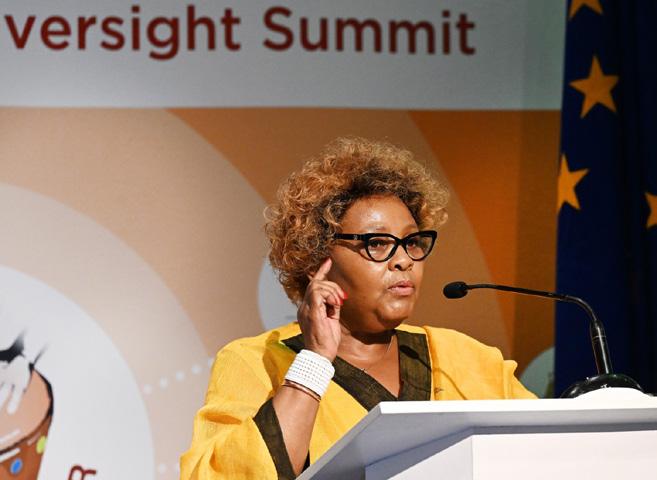
Speakers and Members from the Parliaments of Namibia, Botswana, Zambia, Mozambique, Zimbabwe and Angola attended the summit and delegates also heard from the President of the Inter-Parliamentary Union (IPU) and Speaker of the National Assembly of Tanzania, Hon. Dr Tulia Ackson. The CPA Africa Region Treasurer and Speaker of the Gauteng Provincial Legislature, Hon. Ntombi Mekgwe gave an overview of effective oversight in Legislatures and potential areas for improvement. The Speaker of the National Assembly of Namibia, Hon. Professor Peter Katjavivi described legislative oversight mechanisms as a dynamic spider’s web affecting every facet of the state, including political actors and civic stakeholders who help to strengthen parliamentary legitimacy. He also stated that diverse lessons can be learnt from other African Parliaments and international forums such as the Commonwealth Parliamentary Association.
RWANDA PARLIAMENT HOSTS 13th INTER-PARLIAMENTARY GAMES FOR MPs AND PARLIAMENTARY STAFF
The Parliament of Rwanda hosted the 13th Inter-Parliamentary Games for more than 900 Members of Parliament and parliamentary staff from 8 to 18 December 2023. Competitors from the East African Community (EAC) participated in football, volleyball, basketball, golf, netball, darts, athletics and tug of war. The East African Community (EAC) is a regional intergovernmental organisation of seven partner states including Commonwealth countries, Rwanda, Kenya, Uganda and Tanzania as well as Burundi, DRC Congo and South Sudan.

ZAMBIA CLERK VISITS TANZANIA PARLIAMENT
The Clerk of the National Assembly of Zambia, Mr Roy Ngulube met with the CPA Africa Regional Secretary, Ms Nenelwa Joyce Mwihambi, who is also the Clerk of the National Assembly of Tanzania, at the start of a training programme for parliamentary staff. The meeting was also attended by the Director of Communications and International Relations Office, Daniel Eliufoo, who is the Assistant CPA Africa Regional Secretary.
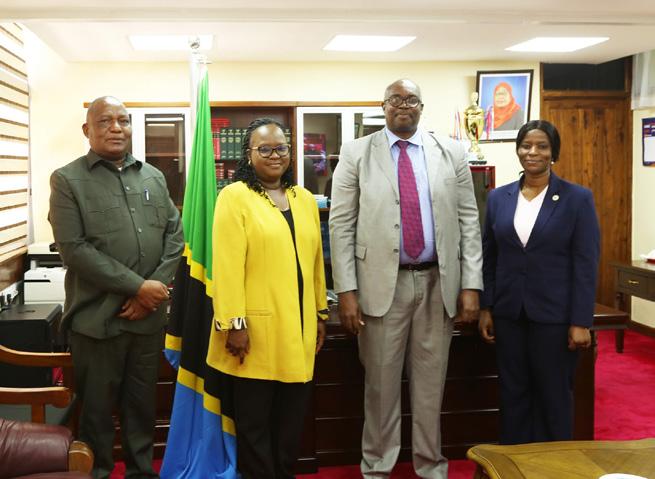

For the latest CPA and Commonwealth news please visit www.cpahq.org or follow the CPA on social mediaTwitter @CPA_Secretariat | Facebook.com/CPAHQ | LinkedIn | Instagram @cpa_secretariat
16 | The Parliamentarian | 2024: Issue One | Over 100 years of publishing CPA NEWS
Image: Parliament of Rwanda.
Image: Parliament of Tanzania.
Image: Speakers Forum of South Africa.
Image: Speakers Forum of South Africa.
COMMONWEALTH ORGANISATIONS PLEDGE SUPPORT TO ‘STRONG AND UNIFIED’ DISABILITY MOVEMENT
The Commonwealth Parliamentarians with Disabilities (CPwD) network joined a number of Commonwealth organisations for a two-day conference outlining strategies to achieve equity and inclusion for all persons with disabilities. Organised by the Commonwealth Secretariat, the Commonwealth Disabled People's Forum, the Centre for Disability Studies at the University of the West Indies and the Commonwealth Children and Youth Disability Network, the Conference on Advancing the Rights of Persons with Disability was designed to help shape the Commonwealth's programmes and resources for people with disabilities.
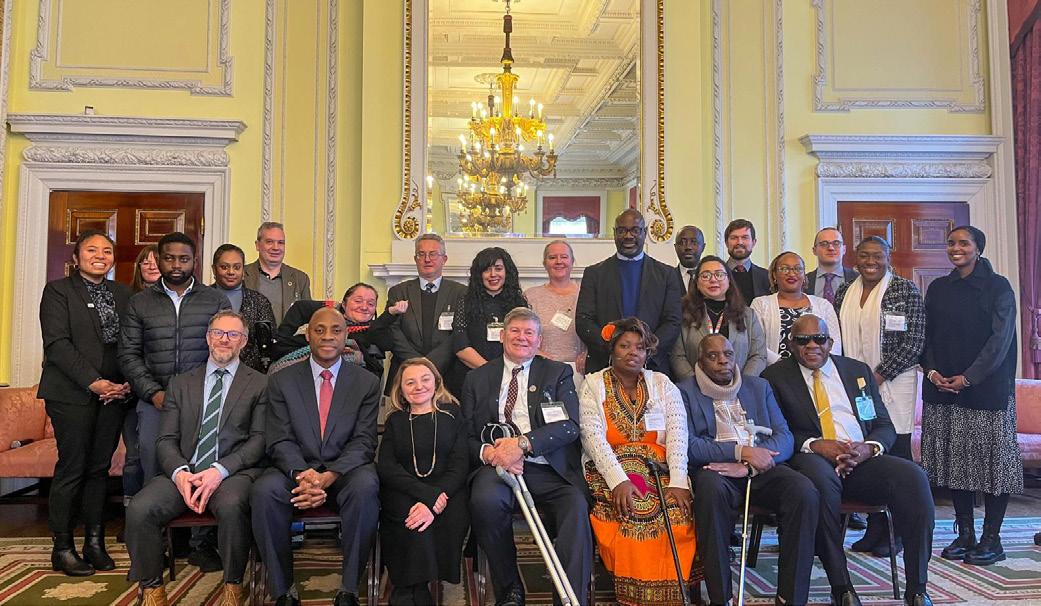
Topics discussed included the practicalities of strengthening accessibility and mainstreaming disability rights and inclusion throughout the operations of governments and international organisations. The event took place a few days before the International Day for Persons with Disabilities (IDPwD - 3 December 2024) and Jamaican Senator Floyd Morris, a member of the United Nations Committee on the Rights of Persons with Disabilities (UNCRDP), stressed this year's IDPwD theme saying: "It is very important that the theme is configured 'for, with and by persons with disabilities'. That means persons with disabilities must be involved in all aspects of the Sustainable Development Goals (SDGs)." He added that the implementation of the UN SDGs will lead to "significant transformation in the global landscape of persons with disabilities." The Commonwealth Secretary-General, Rt Hon. Patricia Scotland, KC called on Commonwealth countries to prioritise advancing the rights of people with disabilities and said the Commonwealth Secretariat will carefully consider the recommendations of the Conference ahead of the Commonwealth Heads of Government Meeting (CHOGM) in Samoa in October 2024.
MALTA PARLIAMENT HOSTS SUSTAINING PEACE CONFERENCE AND LAUNCHES NEW GLOBAL TOLERANCE INDEX
The Speaker of the House of Representatives of Malta, Hon. Dr Angelo Farrugia launched a new Global Tolerance Index on 14 December 2023 as attendees at the Sustaining Peace Conference adopted a Declaration for Sustainable International Peace. The Global Tolerance Index is a project to evaluate and recognise tolerance levels within countries, offering a vital benchmark for progress in building peaceful and harmonious societies. The index will evaluate the progress of nations aspiring to cultivate societies that endorse diversity, uphold human dignity, and champion tolerance across various domains.

The launch took place with the President of the Global Council for Tolerance and Peace, Ahmed Bin Mohammed Aljarwan, the President of the Pan American and Caribbean Parliament, H.E. Rolando Patricio, and the President of the Central American Parliament, PARLACEN, H.E. Silvia Garcia Polanco, and a discussion followed with global experts at the Parliament of Malta. The Secretary-General of the Commonwealth Parliamentary Association, Stephen Twigg also sent a video message of support to the launch and welcomed the initiative. The Speaker of the Malta Parliament said “Today we are at the crossroads of history and grappling with complex issues that transcend borders, such as climate change, economic inequality, public health crises and political unrest. Each of these challenges underscores the interconnectedness of our world and reminds us of the importance of sustainability. Peace is not just a noble aspiration but now a pragmatic necessity.” The launch followed UN Human Rights Day, which took place on 10 December 2023 and marked the 75th anniversary of the Universal Declaration on Human Rights.
NIGERIA PARLIAMENTARY DELEGATION MEET WITH CPA HEADQUARTERS
A group of Nigerian legislators met with the CPA Headquarters Secretariat during a visit to the United Kingdom. The CPA Deputy Secretary-General, Jarvis Matiya met with the delegation of Representatives and Senators from the House of Representatives of the Federal Republic of Nigeria and the Nigerian Senate. During the meeting, Members were briefed on the opportunities to benefit from professional development programmes, such as the CPA Parliamentary Academy and had the opportunity to ask questions about the role of the CPA.

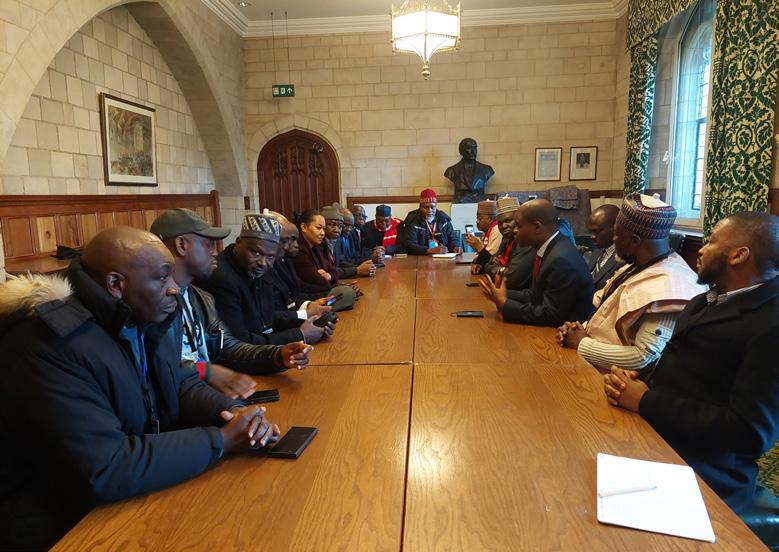
The Parliamentarian | 2024: Issue One | Over 100 years of publishing | 17 COMMONWEALTH NEWS
Image credit: Commonwealth Secretariat. Image: Parliament of Malta. Image: CPA Secretariat.
SPEAKERS MEET IN UGANDA FOR THE 27th CONFERENCE OF SPEAKERS AND PRESIDING OFFICERS OF THE COMMONWEALTH
Speakers and Presiding Officers from across the Commonwealth met in Kampala, Uganda for the 27th Conference of Speakers and Presiding Officers of the Commonwealth (CSPOC) which took place from 3 to 6 January 2024. Thirty-three Speakers and Presiding Officers from more than 25 Commonwealth Parliaments were hosted by the Speaker of the Parliament of Uganda, Rt Hon. Anita Annet Among and the Deputy Speaker, Hon. Thomas Tayebwa. The Speaker of the Parliament of Uganda said: “Your presence here at the 27th CSPOC is a testament to our commitment to the continuity and prosperity of the Commonwealth. It humbles us that many of you have travelled from land far and wide, for several hours to come and attend this conference."

The President of the Republic of Uganda, H.E. Yoweri K. Museveni opened the conference, whose aim is to strengthen parliamentary institutions by bringing together Speakers and Presiding Officers from across the Commonwealth to share best practice. The biennial conference focused on the topics of the environment and climate change, diverse and inclusive Parliaments, security for Parliaments and the role of Speakers and Presiding Officers. The conference was an opportunity for Parliamentarians to share their experiences as legislators and representatives.
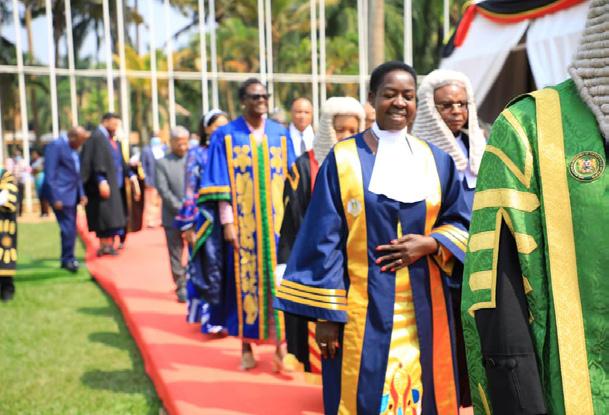
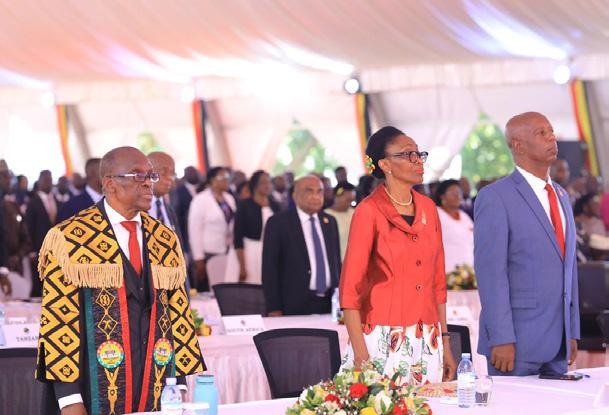
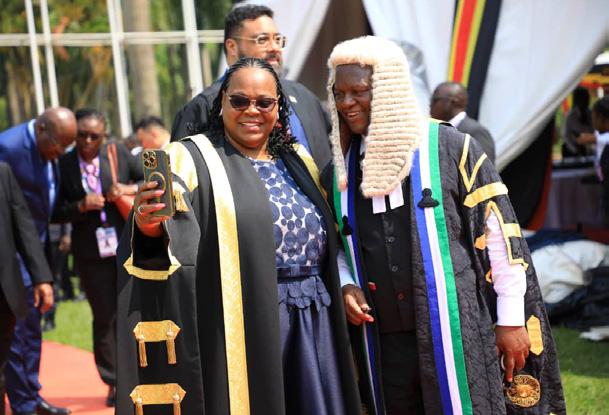
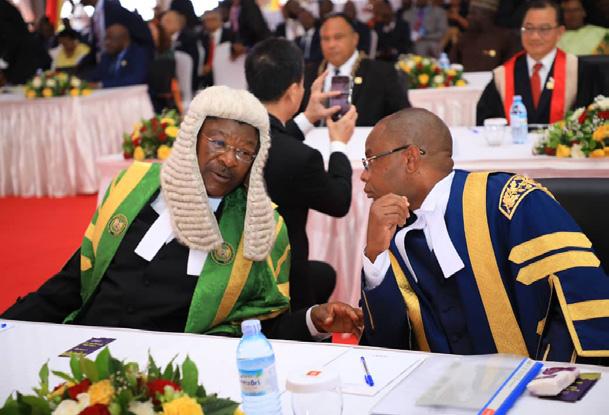
The Deputy Secretary-General of the Commonwealth Parliamentary Association, Jarvis Matiya, attended the 27th CSPOC and met with many Speakers and Presiding Officers during the conference, as well as having the opportunity to update Members on recent CPA initiatives, including new courses for the CPA Parliamentary Academy.
Speakers and Presiding Officers attended the conference from many jurisdictions including Barbados; Botswana; Cameroon; Dominica; Eswatini; Ghana; Grenada; Guyana; India; Kenya; Lesotho; Malaysia; Maldives; Mauritius; Mozambique; Namibia; Nigeria; Pakistan; Rwanda; Samoa; Singapore; South Africa; Sri Lanka; Tanzania; Tonga; Trinidad and Tobago; Uganda; Zambia. Speakers also attended from South Sudan and the East African Legislative Assembly.
The CSPOC conference brings together Speakers and Presiding Officers of the Parliaments and Legislatures of the Commonwealth focusing on the sharing of experiences and collaboration. CSPOC was created in 1969 by Hon. Lucien Lamoureux, 27th Speaker of the Canadian House of Commons to focus on the role of Speakers within parliamentary institutions and CSPOC is a separate independent organisation, although many of its participants are also members of the Commonwealth Parliamentary Association.
CSPOC operates on a two-year cycle, holding a conference every two years. The next host for the 28th biennial conference is the Parliament of India in January 2026. For more information about the Conference of Speakers and Presiding Officers of the Commonwealth (CSPOC) please visit www.cspoc.org

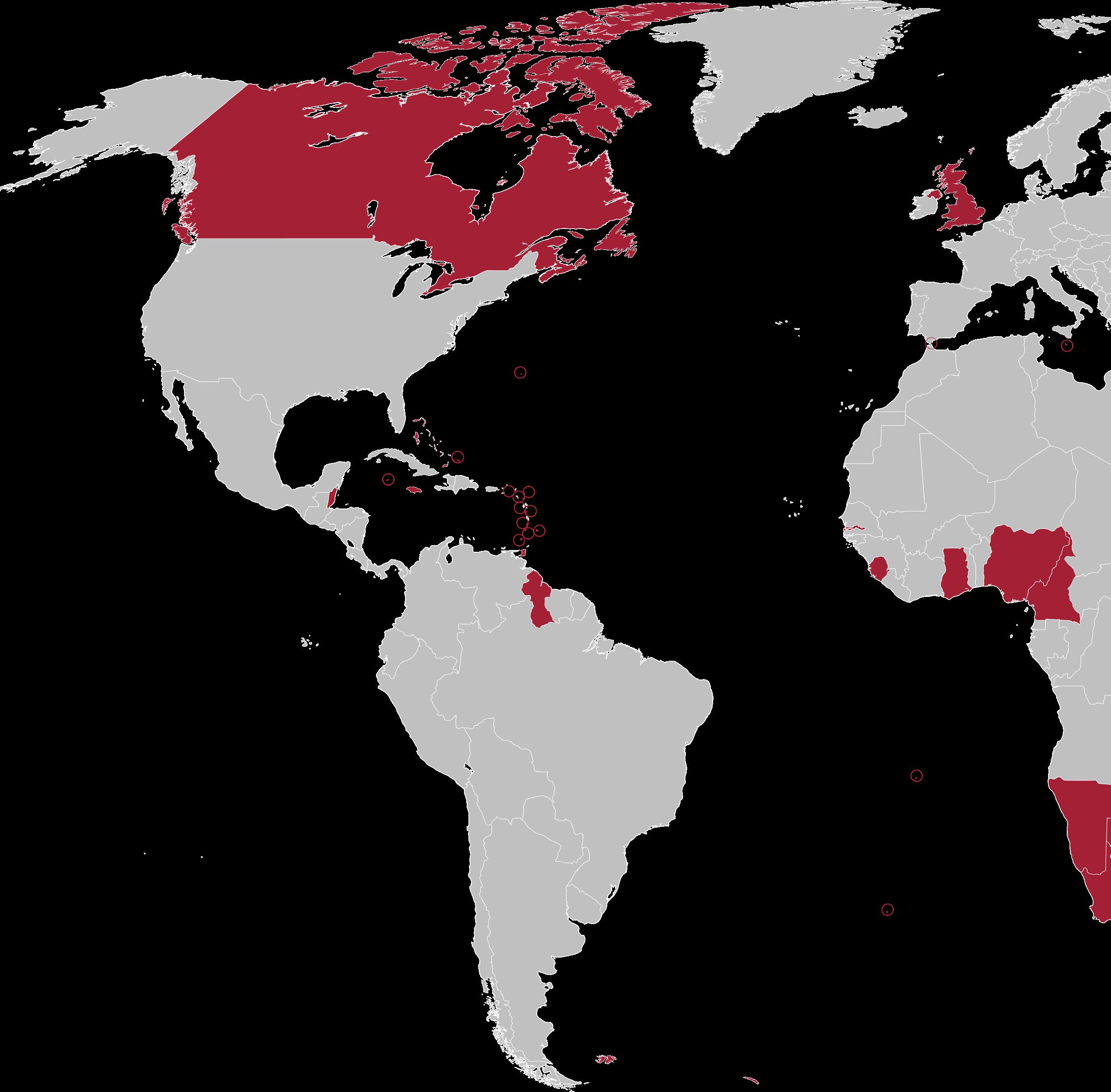
For the latest CPA and Commonwealth news please visit www.cpahq.org or follow the CPA on social mediaTwitter @CPA_Secretariat | Facebook.com/CPAHQ | LinkedIn | Instagram @cpa_secretariat
18 | The Parliamentarian | 2024: Issue One | Over 100 years of publishing
Images: Parliament of Uganda.
Images: Parliament of Uganda.
Images: CPA Secretariat.
COMMONWEALTH NEWS
Right: CPA Deputy Secretary-General Jarvis Matiya met with the Grenada Houses of Parliament Speaker, Rt Hon. Leo Cato and the Parliament of Malaysia Senate President, Senator Tan Sri Dr Haji Wan Junaidi Bin Tuanku Jaafar in the margins of 27th CSPOC.
‘BEHIND THE SCENES OF AN INTERNATIONAL CONFERENCE’: PLANNING FOR THE 27th CSPOC IN UGANDA
When Uganda was confirmed as hosts of the next Conference of the Speakers and Presiding Officers of the Commonwealth (CSPOC) in January 2023 in Canberra, Australia, few people in Uganda had heard of the CSPOC.
However, when the news reached the Parliament of Uganda, preparations started in earnest, with a Coordination Committee chaired by Hon. Abdu Katuntu being established to coordinate the initial preparations. Later various Subcommittees were formed to cater for various aspects of the preparations, including Conference Management; Conference Secretariat and Documentation; and Accommodation. All of these Subcommittees, each chaired by a sitting Legislator, with a staff member as its secretary, would regularly meet to draw up plans, manage the required budgets and assign the key tasks in preparation for and during the conference. All of these Subcommittees would then report to the main Coordination Committee. During this period, programmes were agreed on, the venue for the event was identified and excursion sites were identified.
The Speaker of the Parliament of Uganda, Rt Hon. Anita Annet Among met with heads of mission or representatives of Commonwealth countries resident in Uganda on 1 December 2023 to brief officials on the conference and to outline the benefits for the local economy from hosting this conference. She also held a press conference to brief the media about the CSPOC conference and Uganda’s readiness to host the international visitors in a little over a month.
The Chairperson of the Organising Committee also briefed Members of Parliament and parliamentary staff about the preparations for the CSPOC conference and the immense benefits for Uganda in being the host. These benefits included the strengthening of ties between Uganda and many Commonwealth Parliaments, fostering cooperation with other Parliaments, creating alliances and strengthen diplomatic ties with many countries across the world. The conference programme also included visits to a number of tourist attractions in Uganda, helping to enhance and promote tourism potential in the country. One of these attractions was the Uganda Wildlife Education Centre (UWEC), which has been caring for animals for over 50 years.
The CSPOC conference also showcased the Commonwealth Speke Resort, Munyonyo, as an international conference centre. The same venue has hosted several international conferences and events previously including the Commonwealth Heads of Government Meeting (CHOGM) in 2007 and the 64th Commonwealth Parliamentary Conference in 2019, and was set to host the 19th Summit of the Non-Aligned Movement and the Third South Summit - G77+ China later the same month.
On 18 December 2023, the Department of Corporate Planning and Strategy at the Parliament of Uganda organised a oneday training for all staff members involved in the preparations for CSPOC, and addressed various areas including protocol, communication, security and first aid. Staff members were taken through effective communication and interpersonal skills,

assisting persons with disabilities, responding to complaints, protocol for VIPs and helping those for whom English is not their first or official language. Frank Mutagubya, Assistant Director, advised staff members to focus on their key responsibilities and avoid engaging in non-priority tasks. “Good decision-making ensures timely accomplishment of tasks,” said Mutagubya, adding, “Prioritise and decide which tasks to handle first and say no to uncalled for or inappropriate requests.”
Staff members were also taken through basic first aid and emergency care by a Uganda Red Cross Society team. This training was aimed to equip them with basic practical knowledge and skills to enable them effectively to respond to common health emergencies that could be experienced.
On the morning of 1st January 2024, the first arrivals at the CSPOC conference started to land at the international airport in Entebbe and staff members were on hand to assist them. Uganda’s Deputy Speaker, Rt Hon. Thomas Tayebwa was also present to welcome the President of Grenada Senate, Rt Hon. Dessima Williams, and her counterpart, Rt Hon. Leo Cato, the Speaker of the House of Representatives of Grenada following their early arrival.
During the four-day CSPOC conference, Parliamentarians and staff members from the Parliament of Uganda were on hand to oversee the opening ceremony, the main plenary and workshop sessions, as well as official dinners, bilateral meetings and other events. Separate programmes were also organised for spouses and accompanying persons, who were later joined by the Speakers and Presiding Officers for visits to the Parliament of Uganda, the Uganda Martyrs Shrine, the 100-year-old Makerere University, and the Uganda Wildlife Education Centre.
The Speaker of Uganda thanked all delegates for gracing the occasion saying that hosting the CSPOC conference was a remarkable milestone in the legislative history of Uganda. “I am confident that this conference will provide yet another platform for us to harness our collective resolve and direct our energies towards greater equity and inclusivity, democratisation, good governance and the rule of law in the Commonwealth for the good of humanity,” she said.
The Parliamentarian | 2024: Issue One | Over 100 years of publishing | 19
Mohammed Katamba is the Information Officer at the Parliament of Uganda. COMMONWEALTH NEWS
WHY A PRINCIPLED APPROACH TO AI MATTERS
Introduction
Many Commonwealth nations have elections in 2024, covering billions of voters, including:
• Bangladesh, Botswana, Ghana
• India, Kiribati, Maldives
• Mauritius, Mozambique, Namibia
• Pakistan, Rwanda, Solomon Islands
• South Africa, Sri Lanka, Tuvalu
• Most likely in the UK as well as the USA, Indonesia, Mexico
While digital infrastructure will vary between nations, for many citizens these elections will have a major online element. Integrity of information matters so that people’s free choices achieve what they intend. Artificial intelligence (AI) will be a player. For some it is a threat to information integrity, for others it is an opportunity, such as in Mozambique, which has adopted an AI-powered platform to combat election disinformation.1
My background
I was proud to work in a groundbreaking Cabinet partnership as the UK’s Science, Innovation and Technology Secretary of State with Rt Hon. Michelle Donelan, MP during her maternity leave in 2023, in which I set the foundations for UK Government policy which will be critical for years to come. I took the decision that our global summit on AI safety, held in November 2023 at Bletchley Park, should go ahead, and set its direction and outcomes. I recruited the chair of the Frontier AI Taskforce. I established governance and accountability inside government on AI, and cohered the approach across all departments, reviewing the potential risks and the national security implications of AGI (Artificial general intelligence).2
So I hope I might be able to contribute to discussions on this topic by setting out some of the measures taken by the UK Government, and to an extent governments around the globe, in their approach to AI.
Why a principled approach to AI matters
I’d like to start by setting out why we in the UK think that a principled approach to AI matters. There is certainly a huge opportunity and probably a huge risk in this technology. We don’t know it all yet but we suspect that it is going to change everything we do – education,

business, healthcare, defence – and the way that we live. There could be a revolution in the quality and responsiveness of public services if the right calls are made. That may well include parts of the apparatus that delivers and sustains elections.
I believe accelerating AI investment, deployment and capabilities represent enormous opportunities for public good. They bring economic growth, of course - the prospect of up to US$7 trillion in growth over the next 10 years. But if there is risk as well as opportunity, we have to prepare for both and to insure against the first.
There is no consensus on the risks of AI, but they are profound and possible. Combine that point with the speed of change, the possibility that governments are outpaced, and citizens rightly need reassurance. That is why the British Government’s position is “act before mistakes happen”
Safety is going to be the determining factor of success. People must have as much faith in this technology as they do in stepping on an aeroplane. Without safety there would be no airline industry – and the same is true of AI. The UK Government is delivering on that vision through the Frontier AI Taskforce – originally chaired by leading tech entrepreneur Ian Hogarth – and now evolving into the AI Safety Institute 3
The Institute is the first state-backed organisation focused on advanced AI safety for the public interest. Its mission is to minimise surprise to the UK and humanity from rapid and unexpected advances in AI. It will work towards this by developing the sociotechnical infrastructure needed to understand the risks of advanced AI and enable its governance.
The UK Government held the global AI safety summit in November 2023, with other Commonwealth and international partners such as the USA and the EU. It was a generational moment, underpinned by the landmark Bletchley Declaration, in which the UK convened the world’s leading powers to agree a shared understanding of the risks and opportunities of frontier AI, and the need to collaborate further to address them.
Building upon this, discussions during the Summit brought together a small but expert group of governments, businesses and leading thinkers from academia and civil society to navigate a new course for AI safety. It explicitly examined elections, under the scope of work on risks from the integration of frontier AI into society,
Rt Hon. Chloe Smith, MP is the UK Member of Parliament for Norwich North since 2009. Chloe was the Secretary of State for Work and Pensions and Science, Innovation and Technology in 2022 and 2023. She has held a range of other Ministerial posts since 2010 including as Minister for the Constitution, responsible for electoral law across a decade. She speaks regularly about science and technology, the economy and future of work, accessibility and inclusion, and cancer awareness. She was jointly named 2023’s most influential person in UK tech, and was in the top list of 2022 Women in Westminster, the year she overcame breast cancer. Chloe has played an historic role in providing the first ever maternity cover for a department at the Cabinet table. Before Parliament, Chloe worked for the international consultancy firm, Deloitte.
20 | The Parliamentarian | 2024: Issue One | Over 100 years of publishing
ARTIFICIAL INTELLIGENCE, DISINFORMATION AND PARLIAMENT: ENSURING THE INTEGRITY OF OUR
DIGITAL DEMOCRACY
ARTIFICIAL INTELLIGENCE, DISINFORMATION AND PARLIAMENT: ENSURING THE INTEGRITY OF OUR DIGITAL DEMOCRACY
WORLD LEADERS AND GLOBAL EXPERTS COME TOGETHER AT FIRST GLOBAL AI SAFETY SUMMIT
As artificial intelligence rapidly advances, so do the opportunities and the risks. The UK Government hosted the first global AI Safety Summit in November 2023, bringing together leading AI nations, technology companies, researchers and civil society groups to turbocharge action on the safe and responsible development of frontier AI around the world.
28 countries from across the globe including Africa, the Middle East, the USA and Asia, as well as the EU, agreed The Bletchley Declaration on AI Safety , which recognised the urgent need to understand and collectively manage potential risks through a new joint global effort to ensure AI is developed and deployed in a safe, responsible way for the benefit of the global community. World leaders and those developing frontier AI systems recognised the need to collaborate on testing the next generation of AI models against a range of critical national security, safety and societal risks. Partners agreed that the ‘Godfather of AI’ Professor Yoshua Bengio, a Turing Award winning AI academic and member of the UN’s Scientific Advisory Board, will lead the delivery of a ‘State of the Science’ report, which will help build a shared understanding of the capabilities and risks posed by frontier AI.
The UK Prime Minister, Rt Hon. Rishi Sunak hosted the AI Summit and said: “Until now the only people testing the safety of new AI models have been the very companies developing it. We shouldn’t rely on them to mark their own homework, as many of them agree. Today we’ve reached a historic agreement, with governments and AI companies working together to test the safety of their models before and after they are released. The UK’s AI Safety Institute will play a vital role in leading this work, in partnership with countries around the world.”
The Deputy Prime Minister of Australia, Hon. Richard Marles, MP said: “Australia welcomes a secure-by-design approach where developers take responsibility. Voluntary commitments are good but will not be meaningful without more accountability. Australia is pleased to partner with the UK on this important work.”
including election disruption, bias, impacts on crime and online safety and exacerbating global inequalities.
Rightly, the conversation will be continuing thereafter, to be inclusive, and more widely than only on frontier AI. The tech does not follow national boundaries so any meaningful global agreements must extend in the end to all countries. Indeed, this does not only come down to countries or companies that are keen and transparent. Malign actors are important. If we want safety, in an open-source world, we have to deal with all issues as widely as possible.
AI can and should be a tool for all. Yet any technology that can be used by all can also be used for ill purposes. In most countries that have elections in 2024, there will be parties, movements or forces that seek to use technology to secure their own goals. This will not always be pretty. It will be a complex and probably confusing picture. Every country, every company, every party, every user and every citizen has their own role to play in maintaining integrity.

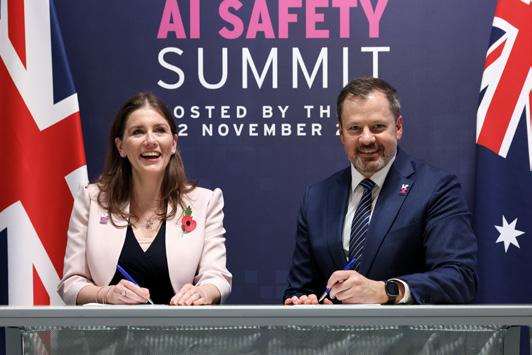
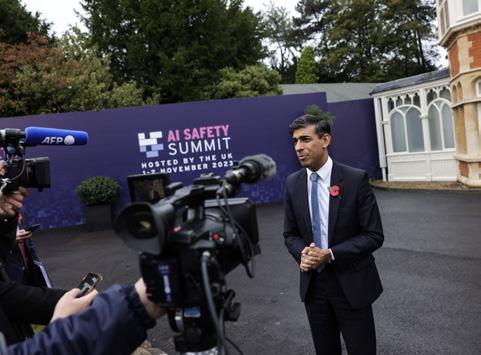
The Canadian Minister of Innovation, Science and Industry, Hon. François-Philippe Champagne, MP said: “Canada welcomes the launch of the UK’s AI Safety Institute. Our government looks forward to working with the UK and leveraging the exceptional Canadian AI knowledge and expertise, including the knowledge developed by our AI institutes to support the safe and responsible development of AI.”
The Singaporean Minister for Communications and Information, Hon. Josephine Teo said: “The rapid acceleration of AI investment, deployment and capabilities will bring enormous opportunities for productivity and public good. We believe that governments have an obligation to ensure that AI is deployed safely. We agree with the principle that governments should develop capabilities to test the safety of frontier AI systems.”
The AI Summit was held at the historic Bletchley Park in the English countryside that became the principal centre of Allied code-breaking during the Second World War.
Regulation in the UK
In the UK, we will be using regulation to achieve the next layer of protection against the risks of AI, and to nurture the opportunities for citizens. In the UK Government’s White Paper, we have set out the approach here in the UK of tasking existing regulators to oversee the applications of AI in their spheres.
Our framework is underpinned by five principles to guide and inform the responsible development and use of AI in all sectors of the economy: Safety, security and robustness; Appropriate transparency and explainability; Fairness. This approach recognises that particular AI technologies can be applied in many different ways and this means the risks can vary hugely. The philosophy is to support innovation while providing a framework to ensure risks are identified and addressed. Rather than target specific technologies, it focuses on the context in which AI is deployed. I think this will be a proportionate and more agile framework. A heavy-handed and rigid approach risks
The Parliamentarian | 2024: Issue One | Over 100 years of publishing | 21
Image credits: UK Government.
AND PARLIAMENT: ENSURING THE INTEGRITY OF OUR DIGITAL DEMOCRACY
being stifling and too slow. It will be a tough ask for regulators, but that work is already underway and being coordinated through the UK Government’s Science department, along with a central risk function to help scan the horizon.
I now use electoral regulation as an example under this framework. I know it well, from 10 years of professional focus as the UK’s Constitution Minister. I offer two thoughts:
1. The core offences exist already – our elections law is robust in this country and most evils are already legislated for.
2. However, speed and volume will go up with AI. That means we need to look at enforcement capacity including within the regulator (the Electoral Commission) and in local police forces.

Many other countries across the Commonwealth will have a similar challenge, I suspect. Some will have the more profound challenge of neither capacity nor mature capability in running elections.
Parliament and partnerships
The UK Parliament is watching closely and asking some big questions.
AI is a challenge for all Legislatures around the world because their processes are often slow, and this technology is moving very fast. I would hope that all nations can work together – using processes like the AI Summit’s work and outcomes, but also the foundation of good work by different organisations like the United Nations, the Global Partnership on AI and the OECD.
The Commonwealth and the Commonwealth Parliamentary Association both have an important role here. As we know, the CPA is one of the oldest established organisations in the Commonwealth. Our goal of bringing together Members, irrespective of gender, race, religion or culture, who are united by community of interest, respect for the rule of law and individual rights and freedoms, and by the pursuit of the positive ideals of parliamentary democracy, is as essential as it ever has been. The CPA offers a vast opportunity to collaborate on issues of mutual interest and to share good practice. This is applicable to democracy itself as to any other aspect or application of technology.
I also believe that Commonwealth Parliamentarians specifically have an important role. I regard our system as combining three roles into a fabulous job: as MPs, we are local champions, we are national lawmakers and we are ambassadors for democracy.
1. As local champions we know our constituents and we are held accountable for much of their experience of the economy or of public services. Given the widespread risks and opportunities of AI, this is a significant listening role.
2. As national lawmakers, we are the ones who need to confront a fast new technology and be able to make intelligent provision in our law or our regulation.
3. And as ambassadors for democracy, it is us who need to be able to be confident that our democracies are robust, and that people’s free choices achieve what they intend.
Conclusion
I’ll close with two thoughts from others. The first comes from a series of articles dated 31 August 2023 from The Economist - How worried should the 4bn collective population of states voting in 2024 be about AI?4 Not so much as you might think, they conclude – because “people are not angels, and elections have never been free from falsehoods and mistaken beliefs.” We may well get greater cacophony, but people have always been “quite capable of transmitting all manner of destructive ideas to each other.” Voters are hard to persuade, they say. The writer poses the excellent thought experiment: ‘what deepfake would truly change your choice, and the choice of millions of already committed US voters, between Mr Biden and Mr Trump?’ You can take that up with the editor.
My final provocation of thought is borrowed from sociobiologist Edward O. Wilson5 who said in 2009 (15 years ago already, way before ChatGPT…) - “The real problem of humanity is the following: we have Paleolithic emotions, medieval institutions, and god-like technology.”
My conclusion? We who have the privilege to work in the institution of democracy have a special duty to keep it fit for today. We should ensure we have the right personal and professional skills to properly discharge our generation’s duty to address the risk and opportunity of AI. We should remain ambassadors for democracy, acting with integrity and playing our part in upholding people’s right to freely choose.
References:
1 https://www.wearetech.africa/en/fils-uk/news/mozambique-adopts-ai-poweredplatform-to-combat-election-disinformation
2 Artificial general intelligence (AGI) is a form of AI that possesses the ability to understand, learn and apply knowledge across a wide range of tasks and domains.
3 Introducing the AI Safety Institute - https://www.gov.uk/government/publications/ ai-safety-institute-overview/introducing-the-ai-safety-institute
4 https://www.economist.com/leaders/2023/08/31/how-artificial-intelligence-willaffect-the-elections-of-2024
5 https://www.britannica.com/biography/Edward-O-Wilson
22 | The Parliamentarian | 2024: Issue One | Over 100 years of publishing ARTIFICIAL INTELLIGENCE, DISINFORMATION
Image credits: UK Government.
ARTIFICIAL INTELLIGENCE, DISINFORMATION AND PARLIAMENT: ENSURING THE INTEGRITY OF OUR DIGITAL DEMOCRACY
WHAT IS SYNTHETIC DISINFORMATION AND HOW DOES IT THREATEN DEMOCRACIES?
In December 2023, the CPA published a Parliamentary Handbook on Disinformation, AI and Synthetic Media. The handbook provides a comprehensive overview of disinformation, including its different forms and the various techniques used to spread it. It introduces the concept of ‘synthetic disinformation’, a new era in the history of disinformation heralded by the emergence of artificial intelligence and explores mitigation strategies for combating synthetic disinformation. This extract from the handbook explains the key features of synthetic disinformation and outlines their consequences for democracies.
Introduction
The field of Artificial Intelligence (AI), a term coined by John McCarthy in 1956, has evolved significantly in the last decade, and is increasingly shaping the digital media environment. Generative AI models – which use machine learning to create new data that resembles the input – have been made available to the public at little-to-no cost, leading to a proliferation of audio-visual and textual content being shared online that has been created or altered using artificial intelligence.
This AI-generated content, commonly known as ‘synthetic media’, has ushered in a new wave of complexities and challenges in combating online disinformation. A widely cited definition of disinformation is the intentional creation and/or dissemination of false or misleading online content.
We build on this to define ‘synthetic disinformation’ as disinformation generated or enhanced via synthetic media techniques. Synthetic disinformation can, but not invariably, take the form of deepfakes, which uses deep learning to generate realistic videos, images, and audio of people doing or saying things they have never said. Synthetic media, and their underlying generative AI technologies, have significantly lowered the barrier to entry for producing and disseminating disinformation, threatening to turbocharge its scale, reach, and potential impact.
What is new about the threat of disinformation in the age of synthetic media? While disinformation spans centuries and has already been transformed over the decades in the era of digital media, synthetic media accelerates the generation, distribution, and potential impact of disinformation. Notably, it deepens the erosion of citizens’ ability to make informed decisions about who to trust for information and guidance and what to believe.

Features of synthetic disinformation
Accessibility and efficiency
The accessibility and efficiency of creating synthetic disinformation are unprecedented. In Nina Schick's (2020) book Deepfakes, she writes that “Hollywood-level special effects will soon become accessible to everyone. This is an extraordinary development with unforeseen implications for our collective perception of reality.”
With advancements in generative AI and the public release of text-to-image, text-to-video, and models with multi-modal capabilities like OpenAI’s GPT*4, synthetic media is becoming democratised. The ability to create and purvey convincing synthetic media and disinformation at scale is available to the masses and no longer limited to developers.
The widespread accessibility and efficiency of these technologies amplify the potential for misuse, as it allows a wider range of actors, from state-sponsored entities to individuals, to participate in the creation and spread of synthetic disinformation at scale. The world is already experiencing the effects of this democratisation, with instances of synthetic disinformation that have gone viral in recent years, such as the synthetic image of Trump being arrested by New York City law enforcement1, created by individuals using tools like Midjourney.
Hyper-realism
In her seminal 1979 work ‘On Photography’,3 Susan Sontag writes that photographs are often mis-perceived as 'miniatures of reality' that provide 'incontrovertible proof that a given thing happened.'
The advent of hyper-realistic synthetic media, particularly contextually believable deepfakes, underscores the necessity for public scepticism and a critical reassessment of the adage 'seeing is believing.' Such synthetic media, capable of creating highly lifelike depictions of events or actions that never actually took place, intensifies the challenges Sontag identified with traditional photography.
This evolution in media technology, marked by its ability to distort reality convincingly, presents a pressing issue for modern information consumption and necessitates a heightened awareness and understanding among Parliamentarians and the public alike. Reputational damage is a significant consequence of this hyperrealism. For example, a deepfake audio recording circulated in the lead up to Slovakia’s 2023 general election4 depicted Progressive
Cassidy Bereskin is a DPhil student and Clarendon Scholar researching the efficacy of content disclosure and provenance interventions for tackling deceptive synthetic media and disinformation. She is the Founder and Director of OxGen AI, a company that hosts the Oxford Generative AI Summit, a multi-stakeholder expert convening on generative AI and society. Previously, she conducted research as part of The Alan Turing Institute’s Online Safety Team and worked on the COVID-19 Monitor, Canada’s largest public opinion study on the pandemic. She holds an MSc (Social Science of the Internet) from the Oxford Internet Institute and a BA (Political Science) from McMaster University, where she graduated as valedictorian.
The Parliamentarian | 2024: Issue One | Over 100 years of publishing | 23
AND PARLIAMENT: ENSURING THE INTEGRITY OF OUR DIGITAL DEMOCRACY
Slovakia Party Leader, Michal Simecka discussing buying votes from the Roma minority and cracking a joke about child pornography.
Deepfakes can cause serious reputational damage during elections and in public life, which can have downstream consequences such as distorting citizens’ views of candidates and voting decisions.
Scalability
With advancements in artificial intelligence and machine learning, the production of synthetic media can be automated, enabling the creation of large volumes of disinformation at an unprecedented scale. For instance, large language models can quickly generate credible-sounding disinformation at scale, alleviating the burden of relying on humans to manually write disinformation posts, scaling up the automatic generation of text to produce and spread large quantities of disinformation in seconds.
In April 2023, NewsGuard identified 49 websites across seven languages5 that are using AI to generate large volumes of ‘clickbait’ articles for advertising revenue. These sites, usually lacking clear ownership disclosure, appear to be designed for revenue generation through programmatic ads, similar to earlier human-operated content farms, but with the added capability and scalability enabled by AI technology.
This scalability has deleterious consequences for democracies. Notably, it not only potentially increases the volume of disinformation on social media but also allows new entrants into the disinformation game, overwhelming governments, platforms, and fact-checkers. The scalability is further enhanced by the fact that once a synthetic media model is trained, it can generate new content with minimal incremental cost. This means that a single piece of synthetic media, such as a deepfake video, can be the template for generating countless variations, each personalized to target different groups or individuals.
Personalisation and hyper-targeting
Synthetic media's ability to be hyper-targeted and personalised is of particular concern in the context of disinformation and its impact on democracy. Existing research indicates that disinformation often 'preaches to the choir,'6 reinforcing rather than changing individual attitudes. This phenomenon may be explained by confirmation bias or motivated reasoning, where individuals tend to favour information that confirms their pre-existing views. When synthetic media is personalised, it exploits this bias, making disinformation more likely to find a receptive audience among those already inclined to believe it. People are more likely to engage with and share content that resonates with their existing opinions, threatening to deepen ideological divides and fortifying extreme views. This poses a significant risk of catalysing anti-democratic actions, as seen in events like the January 6th US Capitol attack in 2021 and the Canadian Truckers' convoy protest in 2022. In this context, synthetic media not only threatens to degrade the quality of democratic debate but also potentially hardens false beliefs, with serious downstream effects.
Liar’s dividend
Synthetic media also introduces the ‘liar's dividend,’7 a term by Danielle Citron and Bobby Chesney that refers to the strategy where malicious actors weaponise citizens’ scepticism around deepfakes and synthetic media to discredit genuine evidence, thereby protecting their own credibility.
As Chesney and Citron write "Put simply: a sceptical public will be primed to doubt the authenticity of real audio and video evidence.”8
The liar’s dividend has already surfaced strongly in the courtroom. For instance, two defendants on trial for the January 6 attack on the US Capitol attempted to argue for the unreliability of a video showing them at the Capitol building on the basis that it could have been AI-generated.9 The combination of deepfakes and the ‘liar’s dividend’ can inject uncertainty and doubt into public opinion, muddying citizens’ ability to make informed decisions about what to believe.
The 'liar's dividend' can be used in various contexts, including democracies. For instance, if former US President Donald Trump said that the notorious ‘Access Hollywood tape' was a deepfake, it is plausible that a significant percentage of the population would believe it in the age of synthetic media.
Politicians and public figures can manipulate information to protect their interests and rehabilitate their image, creating an uncertain environment that makes truth discernment difficult for citizens and may engender downstream effects such as eroding trust in institutions and the media. The mere knowledge that such sophisticated distortion and visual rewriting of reality is possible may erode trust in all media, permitting actual disinformation to hide behind the doubt cast on legitimate information.
In this environment, discerning truth becomes increasingly challenging, as synthetic media is weaponised distort the information environment undermine reality at scale.
Conclusion
Ultimately, the features of synthetic disinformation are nuanced and multi-pronged. On the one hand, believing fake content can undermine the epistemic quality of democratic discourse and citizens’ decision-making, damaging reputations and disrupting democratic processes. On the other, dismissing authentic information as synthetic helps wrongdoers evade accountability, fostering cynicism, undermining trust and eroding a collective sense of reality.
As Computer Science Professor Hany Farid writes for an article in the New York Times, “The specter of deepfakes is much, much more significant now — it doesn’t take tens of thousands, it just takes a few, and then you poison the well and everything becomes suspect.”10
References:
1 https://www.bbc.co.uk/news/world-us-canada-65069316
2 https://apnews.com/article/fact-check-trump-nypd-stormy-daniels-539393517762
3 http://www.susansontag.com/SusanSontag/books/onPhotographyExerpt.shtml
4 https://www.wired.co.uk/article/slovakia-election-deepfakes
5 https://www.newsguardtech.com/special-reports/newsbots-ai-generated-newswebsites-proliferating/
6 https://pubmed.ncbi.nlm.nih.gov/30662946/
7 https://gvu.gatech.edu/research/projects/liars-dividend-impact-deepfakes-andfake-news-politician-support-and-trust-media
8 https://www.jstor.org/stable/26891938
9 https://www.buzzfeednews.com/article/zoetillman/guy-reffitt-capitol-riot-trialdefense
10 https://www.nytimes.com/2023/10/28/business/media/ai-muddies-israel-hamaswar-in-unexpected-way.html
24 | The Parliamentarian | 2024: Issue One | Over 100 years of publishing ARTIFICIAL INTELLIGENCE, DISINFORMATION
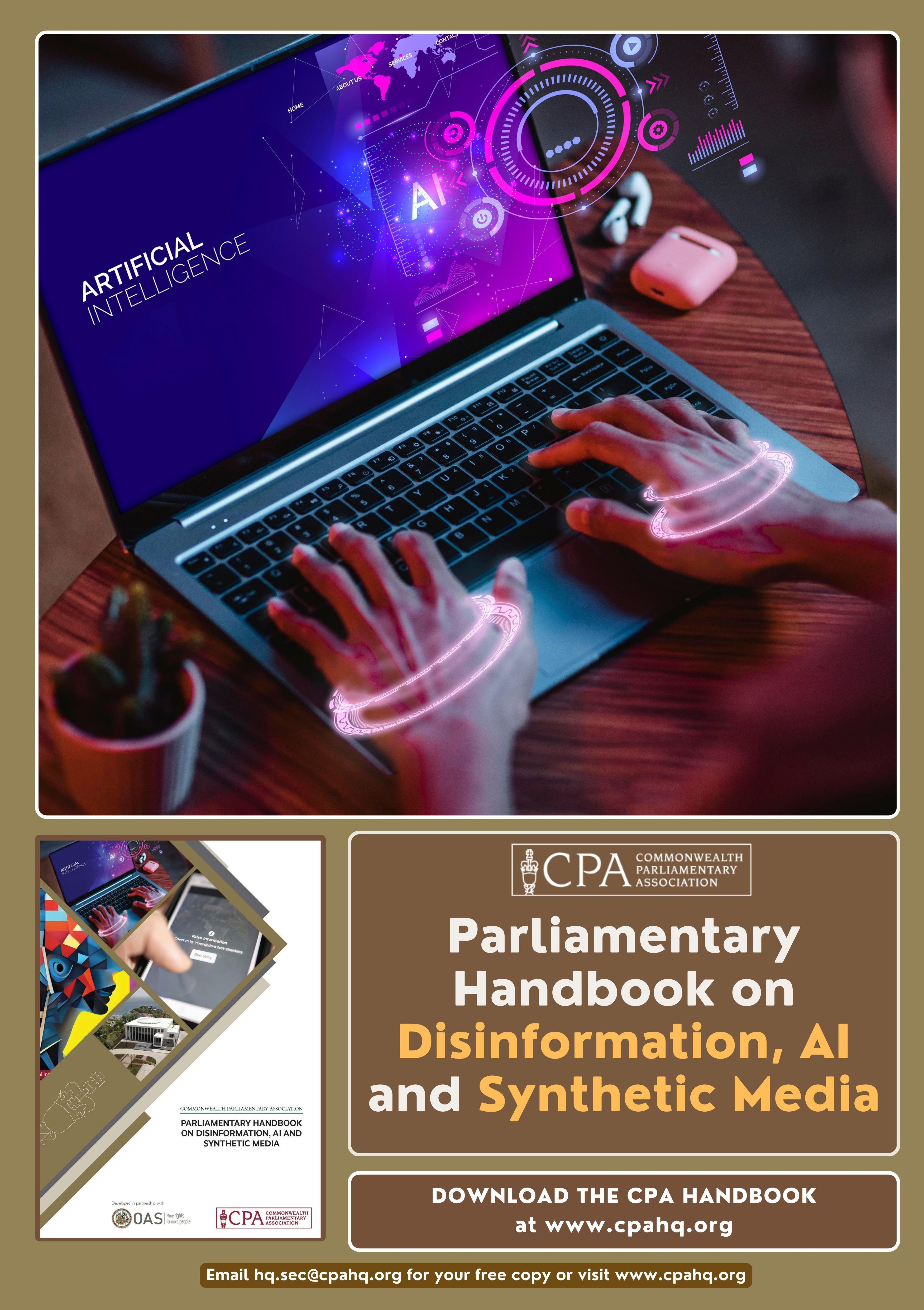
ARTIFICIAL INTELLIGENCE IN PARLIAMENTS’ TRADITIONAL HALLS: OPPORTUNITIES, CHALLENGES AND ETHICAL CONSIDERATIONS
Introduction
Artificial Intelligence (AI) is far from a recent phenomenon, its roots stretch back to the mid-20th century. This long journey of development and refinement has led to what we now witness as a democratisation of AI, making powerful tools accessible across sectors, including in the tradition-bound halls of Parliament. This transition, however, is not merely about harnessing new tools for efficiency, it necessitates a profound understanding of parliamentary core values and the principles of democracy and governance.
The implementation of AI within Parliaments presents unique opportunities, challenges and ethical considerations that demand careful deliberation. The ability of AI to automate routine tasks, analyse complex data and potentially support drafting of legislation offers promising avenues for increasing operational efficiency and fostering more informed decision-making. Yet, this technological integration also raises critical questions about job displacement, the transparency of AI-driven decisions and the maintenance of democratic integrity.
As Parliaments across the globe navigate this new terrain, the imperative to balance innovation, tradition and accountability becomes crucial. The democratisation of AI brings with it a responsibility to ensure that its application in Parliaments not only enhances procedural efficiency but also respects and promotes the values of transparency, inclusivity and public engagement. This article seeks to explore the implications of AI's expanding role in Parliaments, offering a detailed view about the possibilities of this technology.
Key Considerations for AI Implementation in Parliaments
The integration of Artificial Intelligence (AI) into parliamentary activities marks a transformative era in its operations. As Parliaments

Luís Kimaid is the Executive-Director and creator of Bússola Tech. With a background in international relations and political science, his work focuses on promoting Parliamentary modernisation and digital transformation across over 80 countries. He has authored various publications on these topics and established the LegisTech Library, a digital repository featuring hundreds of articles and studies dedicated to legislative technology.
Prior to this, he was at the helm of the Risk Management and Compliance team for Google in Latin America.
begin to navigate this terrain, crucial considerations emerge, shaping how AI can be deployed effectively and ethically. The Commonwealth community has the opportunity to collectively test new applications and disseminate it amongst its member-institutions, given its remarkable cultural, political and national diversity, while holding institutional and procedural similarities.
At the core of AI implementation in Parliaments is the need to understand the technology's capabilities and limitations. These technologies offer significant potential for enhancing parliamentary efficiency, automating routine tasks, providing insightful data analysis and even assisting in drafting legislation. However, it's imperative to recognise that AI is not the Shangri-La, where all parliamentary challenges will be solved. Its effectiveness depends on the quality of the data fed into it and the specificity of its programming to parliamentary reality.
Another consideration is the potential impact of AI on parliamentary staff. The introduction of AI could lead to fears of job displacement or changes in job roles. Addressing these concerns proactively through training and reassurance about the role of AI as a tool to aid rather than replace human input is vital.
Furthermore, aligning AI implementation with parliamentary goals and the public interest is critical. AI should not only support the efficiency of parliamentary operations but also enhance the democratic process, promoting greater engagement and accessibility for the public. This involves ensuring that AI tools are used in ways that enhance public understanding of parliamentary proceedings and decision-making.
The core of democratic integrity in Parliaments lies in transparent consensus-building, decision-making, accountability and public participation. While AI can facilitate these aspects, the challenge
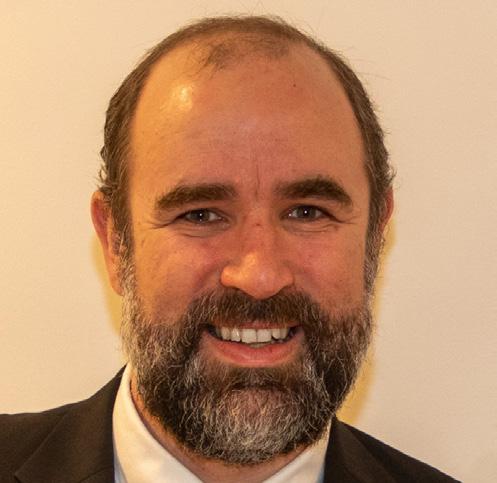
Jonathan Ruckert
is the CEO and founder of NovaWorks Australia. He has over 20-years’ experience advising Parliaments, financial institutions, clinical trial companies and government agencies around the world on technology trends and architecting cloud-based solutions. He is also an importer of Angus and Oink products into Australia and New Zealand.
26 | The Parliamentarian | 2024: Issue One | Over 100 years of publishing
ARTIFICIAL INTELLIGENCE, DISINFORMATION AND PARLIAMENT: ENSURING THE INTEGRITY OF OUR DIGITAL DEMOCRACY
ARTIFICIAL INTELLIGENCE, DISINFORMATION AND PARLIAMENT: ENSURING THE INTEGRITY OF OUR DIGITAL DEMOCRACY

is to ensure that the efficiency gained does not come at the cost of reduced human involvement, which is vital for maintaining the essence of democratic deliberation and representation.
Lastly, the continuous evaluation and adjustment of AI systems are necessary. As AI technologies evolve, so too should their application in parliamentary operations. Regular reviews, feedback mechanisms and updates are essential to keep AI applications relevant, effective and aligned with ethical standards and parliamentary needs. In the next section we will discuss the implications of AI in the democratic integrity within Parliaments.
Generative Artificial Intelligence (AI) in Parliaments
Generative AI is an emerging technology that needs to be adapted to each specific individual Parliament, this section is going to explore what are the benefits, risks and mitigation strategies that can be used by Parliaments.
Before we get into some of the benefits of Generative AI, there are some challenges and risks that are associated with Parliamentary adoption as it can have negative or unintended consequences for the quality, transparency, integrity and legitimacy of parliamentary work.
Understanding bias in AI models considering the number of people and their demographic profiles is unfortunately overlooked. This may not be an intentional mistake, however without concrete evidence to say how AI has been deployed, what training data has been used, if your data is being used without your knowledge and ensuring that AI is being maintained is of utmost importance when dealing with AI technology.
These are the key risks that need to be considered when developing an AI model within Parliament:
• Bias and discrimination: Generative AI can produce biased or discriminatory content by reflecting or amplifying the existing prejudices, stereotypes or inequalities in the data, algorithms or systems that are used to generate it. For example by excluding or marginalising certain groups, perspectives or interests from the content; or by favouring or promoting certain agendas, ideologies or values over others. Without training models and appropriate validation, the introduction of data could introduce bias or other issues when using the specified model.
• Manipulation and misinformation: Generative AI can produce manipulative or misleading content by altering, fabricating or misrepresenting the facts, evidence or sources of the content; by deceiving, persuading or influencing the opinions, beliefs or behaviours of the recipients of the content; or by impersonating, spoofing or compromising the identity, credibility or authority of the creators, distributors or endorsers of the content.
• Infringement and exploitation: Generative AI can produce infringing or exploitative content by violating, copying or misusing the intellectual property rights, personal data or privacy of the original authors, owners or subjects of the content; by harming, offending or violating the dignity, reputation or rights of the individuals, groups or entities that are depicted, referenced or affected by the content; or by enabling, facilitating or encouraging illegal, unethical or malicious activities or behaviours through the content.
Parliaments are built around trust, transparency and accountability, so in a parliamentary context any decision and use of AI must be also transparent and accountable. You will see this as a common theme throughout this article.
The Parliamentarian | 2024: Issue One | Over 100 years of publishing | 27
Image credit: Shutterstock_2284088327_AI
AND PARLIAMENT: ENSURING THE INTEGRITY OF OUR DIGITAL DEMOCRACY
There are numerous benefits for the introduction of Generative AI in Parliaments. It should also be noted that our viewpoint on AI generation is to supplement not replace source content. It is always important to have links and citations back to the original content to ensure trust in the content that is being generated and that the consumer of the generated content understands where it has been generated from.
Some examples of these that we have seen include:
• Document summarisation: Generative AI can be used to condense large documents into concise summaries. This can be applicable to large legislative documents, public submissions as an example.
• Chat and conversation interaction: Users can interact with a conversational agent that responds with responses drawn from trusted documents such as legislation, transcripts or other authorised trusted content; conversations must be limited to answering scoped questions.
• Question-answering: Users can ask questions and receive answers from trusted source documents. The application does not generate answers that are ungrounded in trusted source documentation and provides citations back to the original content.
• Moderation: Flagging of content for awareness, which may/may not be offensive.
• Search: Users can use AI against trusted source documents. The application does not generate results ungrounded in trusted source documentation. Trust and transparency are key!
• Customised Constituent Communication: Generative AI can help in drafting personalised responses to constituent communications, ensuring that responses are timely and relevant, while allowing legislators to focus on more complex inquiries.
• Automated Translation Services: In multilingual countries, AI can provide real-time translation of speeches, debates and documents, facilitating better understanding and communication among lawmakers who speak different languages.
• Simplification of Language: In Parliament, the language used can sometimes be ‘unfriendly’ for citizens reading the content. AI can be used to simplify the content to be more humanly readable for those without legal knowledge.
In summary, there are a lot of potential upsides of the practical uses of Generative AI in Parliaments. In the next section, we will explore the need for specialised AI applications in Parliaments and why the use of public AI systems may not be in the best interest for Parliaments.
The Need for Specialised AI Applications in Parliaments
With the advent of AI applications such as ChatGPT, it has become increasingly important to ensure the Parliaments understand that these applications are designed for worldwide general use rather than the specific and unique requirements of Parliaments.
Parliaments are built around trust, transparency and accountability, so in a parliamentary context, any decision and use of AI must be also transparent and accountable. Specialised AI applications can be implemented with these requirements in mind, ensuring that AI-assisted applications and decisions are explainable and align with each Parliament’s ethical requirements and democratic values.
When assessing AI applications, it is important to understand how your data is used within the application and if your data is being used
to train any other model. The data that is handled and processed by Parliaments can be sensitive, including confidential legislative documents and personally identifiable information from citizens, so extreme care and understanding of this area should be of the utmost importance. We refer to this as ‘Data Grounding’.
Data grounding in the context of AI refers to the process of linking abstract concepts or entities in AI algorithms and models to Parliamentary data. This process is crucial for ensuring that the AI system's interpretations, decisions and predictions are based on actual, tangible information rather than solely on abstract, theoretical or hypothetical constructs. By providing contextual relevance, this ensures that the AI model’s output is relevant and applicable to the Parliamentary context that it is meant to address. By using this technique, we can ensure that Trust, Transparency and Accountability is a top priority when creating a specialised AI application.
When reviewing the current AI models, it is important to understand the language and cultural context that is applicable to the Parliament. Most of the current public AI models have been generated using English as a reference point, which may not handle the nuances of the local language or the specific terminology used within the context. Specialised AI applications can be tuned independently and can be developed independently to support and understand these specific linguistic and cultural nuances.
In summary, specialised AI applications offer a tailored approach that addresses the unique challenges and requirements of Parliaments, ensuring that technology supports and enhances the democratic process in a secure, efficient and contextually appropriate manner. In the coming sections, we will deep-dive into the specific areas for implementation of AI in Parliaments.
Revolutionising Legislative Drafting Operations with Artificial Intelligence
AI technologies, equipped with advanced machine learning and natural language processing capabilities, offer unprecedented opportunities for enhancing the efficiency and accuracy of drafting legislation. Integrating AI with legislative drafting offers numerous benefits, but it is essential to view this integration as complementary to human expertise. This balance is crucial for ensuring that legislative texts are not only technically sound but also contextually appropriate and legally robust.
AI is also revolutionising legal research in legislative drafting by leveraging standardised formats like XML within version-controlled databases. This approach enables more efficient semantic searches and indexing, allowing for thorough and streamlined legal research. Deep learning techniques, a subset of AI, play an important role in extracting relevant information from large datasets, uncovering patterns, precedents or anomalies.
AI's potential extends to managing and analysing amendments in legislative texts, a core function in the legislative process. Utilising natural language processing, AI systems can read and interpret amendments, suggesting their appropriate placement within the legislative documents. This capability is vital for ensuring contextual alignment and coherence in the legislative proposals.
As AI tools continue to evolve, its application in legislative drafting is expected to become more sophisticated. The potential for AI to draft initial versions of legislative texts and manage complex
28 | The Parliamentarian | 2024: Issue One | Over 100 years of publishing ARTIFICIAL INTELLIGENCE, DISINFORMATION
ARTIFICIAL INTELLIGENCE, DISINFORMATION AND PARLIAMENT: ENSURING THE INTEGRITY OF OUR DIGITAL DEMOCRACY
PARLIAMENTARIANS AND LEADING EXPERTS DISCUSS THE CHALLENGES OF AI AND DISINFORMATION AT CPA VIRTUAL CONFERENCE

A three-day online conference on AI, Disinformation and Parliament: Ensuring the Integrity of our Digital Democracy was held from 4 to 6 December 2023, organised by the Commonwealth Parliamentary Association (CPA). The conference aimed to raise awareness among Parliamentarians about the latest developments in artificial intelligence (AI) and synthetic media, such as deepfakes, and their implications for democracies and public discourse. The conference featured panel discussions, roundtables, dialogues, explainers and Q&As with experts in the field, covering topics such as:
• the core concepts of disinformation, AI and synthetic media
• the threat landscape and the strategies to combat disinformation
• the legislative environment and policies to ensure the integrity of digital democracies.
In her keynote speech on the first day of the conference, the former UK Secretary of State for Science, Innovation and Technology, Rt Hon. Chloe Smith, MP, identified three ways
that Members of Parliament can shape the way that democratic societies respond to AI: “MPs are local champions, we are national lawmakers, and we are ambassadors for democracy. As local champions we know our constituents and we are held accountable for much of their experience of the economy or of public services. Given the widespread risks and opportunities of AI, this is a significant listening role. As national lawmakers, we are the ones who need to confront a fast new technology and be able to make intelligent provision in our law or our regulation. And as ambassadors for democracy it is us who need to be able to be confident that our democracies are robust and that people’s free choices achieve what they intend.” Turn to page 20 to read her full speech.
The conference also provided an opportunity for Parliamentarians, academics and experts to network and exchange best practices with their counterparts from the nine CPA regions, as well as to identify key actors who can help shape the conversation around AI and disinformation.
Reflecting on the Conference, the CPA Secretary-General, Stephen Twigg, said: “ The conference was a valuable opportunity for Parliamentarians from across the Commonwealth to learn from experts and each other about the latest developments and challenges in AI and synthetic media, and their impact on our democracies and public discourse. I believe that Legislators have a vital role to play in ensuring the integrity of our digital democracies, and I hope that the conference will inspire them to take action and collaborate with key actors in this field. ”
The Parliamentarian | 2024: Issue One | Over 100 years of publishing | 29
AND PARLIAMENT: ENSURING THE INTEGRITY OF OUR DIGITAL DEMOCRACY
guidelines in real-time presents a promising future. However, this advancement comes with challenges, including ensuring the accuracy of AI-generated content and maintaining the balance between technological efficiency and the need for human expertise and oversight.
One of the groundbreaking applications of AI in legislative drafting support operations is the automated distribution of requests to specialised groups of legislative counsels. Traditionally managed manually, this process was prone to inefficiencies and cognitive biases. With AI, however, the distribution of these requests can be transformed into a data-driven, objective and efficient process.
The AI algorithms are designed to interpret complex legislative language within the requests, identifying the core subject matter and directing them to the most suitable drafting groups. This ensures that each request is handled by experts with the relevant domain knowledge, enhancing the quality and relevance of the legislative output.
By utilising advanced natural language processing, AI tools can analyse the content of incoming drafting requests and crossreference them against a comprehensive database of previously crafted documents. This functionality is crucial in Parliaments where similar issues are often revisited, and previous research can provide valuable insights. Such integration of AI into legislative operations effectively reduces the duplication of efforts. The same principle can also be applied to requests of information and procedural analysis made by MPs and their staff to the Office of the Clerk.
AI in legislative drafting and its supporting operations, while promising, must be approached with caution, considering the potential risks and ethical implications. The integration of AI should aim to augment human expertise, not replace it.
Impact of Artificial Intelligence in Parliamentary Communications and Websites
Incorporating Artificial Intelligence (AI) into the parliamentary website has revolutionised the way legislative information is organised and presented. AI's application ensures that the parliamentary website serves as a dynamic tool for interaction and civic engagement.
AI algorithms play an important role in categorising and displaying legislative content on the parliamentary website. This includes Bills, technical studies and relevant legislation. By dynamically organising this content based on user-selected themes or subjects, AI tools ensure that visitors to the website have a tailored and comprehensive overview of the topics they are interested in.
The AI's ability to instantly reorganise website content according to user preferences significantly enhances the user experience. This responsive design approach ensures that users can easily navigate and find relevant information, fostering a deeper understanding and engagement with legislative discussions.
The use of facial recognition technology enhances the identification and cataloguing of photographs and videos from public Parliamentary Committee meetings and plenary sessions. By accurately recognising Parliamentarians in these images, AI tools aid in the quick distribution of these materials for Communications purposes, enabling for example, constituents to easily find the participation of their preferred Members.
Generative AI technologies are increasingly playing an important role in streamlining the management and creation of responses from
parliamentary offices to constituents. This not only accelerates the response time but also ensures that constituents receive accurate and relevant information.
The use of Generative AI in this context represents a significant advancement in fostering effective communication and engagement between Parliamentarians, the institution and the public, enhancing the overall responsiveness and efficiency of parliamentary services.
Revolutionising Legislative Participation with Artificial Intelligence
The integration of Artificial Intelligence (AI) into civic participation in Parliaments represents a shift in enhancing citizen engagement and legislative feedback mechanisms. This shift is marked by the possibility of the deployment of advanced AI technologies that enable detailed semantic analysis of public opinion. Moving away from the limited conventional binary polling methods, AI tools can offer platforms for citizens to provide in-depth commentary on legislative matters, enriching the democratic process with qualitative insights.
This analytical capability, through Natural Language Processing (NLP) techniques, allows for the clustering of comments with shared themes or sentiments, regardless of the varied expressions and language used by different individuals. Such clustering is instrumental for MPs, distilling a wide array of public opinions into understandable thematic categories and highlighting the primary arguments surrounding a Bill.
The systematic analysis and presentation of public views by AI tools, not only ensures that MPs are well-informed of their constituents' perspectives, but also contributes to transparency and informed decision-making.
The Integration of AI in Legislative Hansard: Transforming Parliamentary Record-Keeping
The adoption of Artificial Intelligence (AI) in legislative Hansard represents a significant advancement in the field of parliamentary record-keeping. This section explores the impact of AI technologies, particularly Automatic Speech Recognition (ASR), on the transcription and analysis of parliamentary debates.
These systems, designed to convert spoken words into written text, bring about a marked improvement in the efficiency of documenting legislative proceedings. The AI algorithms underpinning these systems are trained on extensive datasets, enabling them to recognise and accurately transcribe a wide range of speech patterns, accents and dialects. However, the real challenge and innovation lie in the system's ability to understand the context within which words are spoken, particularly crucial in Parliaments where the same phrase can have different implications based on the context.
One of the primary concerns in this domain is the accuracy of transcriptions, especially in complex linguistic environments characterised by fast-paced discussions, technical jargon and multiple speakers. The accuracy of the transcribed text is not just a matter of operational efficiency but also of democratic accountability. Parliamentary staff play a crucial role in reviewing and contextualising AI-generated transcripts, ensuring that the nuances, intent and legislative jargon are accurately captured.
30 | The Parliamentarian | 2024: Issue One | Over 100 years of publishing ARTIFICIAL INTELLIGENCE, DISINFORMATION
ARTIFICIAL INTELLIGENCE, DISINFORMATION AND PARLIAMENT: ENSURING THE INTEGRITY OF OUR DIGITAL DEMOCRACY

implement AI but in preparing to navigate its complexities thoughtfully and deliberately.
Conclusion
The advent of Artificial Intelligence (AI) in Parliaments echoes the transformative impacts of past innovations like the printing press and the internet. These historical shifts significantly altered how Parliaments interact with information. Artificial Intelligence technologies have the potential to transform parliamentary processes, enhancing efficiency, transparency and public engagement.
Moreover, the impact of AI in Parliaments can occur through a variety of common services with embedded AI capabilities as well as through internal users subscribing to commercial AI tools, expanding the range and influence of AI within parliamentary operations. This highlights the necessity for Parliaments to be prepared and actively promote conversations on AI's impact, whether it influences parliamentary operations directly, through integrated systems and processes through an institutional decision to use these tools, or indirectly, via external services and tools adopted by staff and Members.
It's important for Parliaments to adopt a proactive approach to technology integration. This involves the consideration of operational efficiencies, and also a comprehensive evaluation of ethical implications and the principles of democratic governance. The essence of this transition lies not in the choice of whether to
This proactive stance is crucial for navigating AI integration. It calls for a commitment to continuous learning, ethical considerations and the development of robust frameworks that guide the use of AI in Parliaments. Recent publications from the Commonwealth Parliamentary Association (CPA) about the topic should serve as the north star, as they bring fundamental principles for Parliaments to achieve this goal. Towards this goal, Bússola Tech also made its humble contribution through the LegisTech Library to contribute to these discussions with Legislatures.
Through such endeavours, Parliaments can harness the transformative power of AI to serve the public interest while safeguarding the integrity and efficacy of democratic institutions in the digital age.
• Bússola Tech is a global organisation that works in the promotion of the institutional modernisation and digital transformation in the legislative ecosystem, through parliamentary diplomacy and cooperation. To find out more visit www.bussola-tech.co
• NovaWorks is an Australian company specialising in providing cloud technology services to Parliaments. They focus on transforming traditional legislative operations into dynamic, cloud-based solutions, ensuring secure, efficient, and accessible parliamentary operations. For further details visit www.novaworks.com.au
The Parliamentarian | 2024: Issue One | Over 100 years of publishing | 31
This collaboration between AI efficiency and human expertise is essential for maintaining the integrity and accuracy of official legislative records.
credit: Shutterstock_2285547995_AI_Justice
Image
ENSURING THE INTEGRITY OF OUR DIGITAL DEMOCRACY
ARTIFICIAL INTELLIGENCE, DISINFORMATION AND ELECTIONS
The recent elections in Pakistan saw an unprecedented level of AI-generated content used online, highlighting key challenges for Parliaments and Governments in protecting digital democracy.
In the recent general elections in Pakistan, a historic shift unfolded as independent candidates secured the highest number of seats in the National Assembly, largely backed by the Pakistan Tehreek-eInsaf (PTI). This unprecedented occurrence defies historical trends, where independents had never previously secured a majority in the National Assembly. Despite the PTI being banned, its popularity soared, positioning it as the most favoured party in a nation where political campaigning is pivotal. Even with the party's leader, Imran Khan, imprisoned and unable to hold office, the PTI successfully navigated this challenge through the strategic use of Generative AI technology.
The PTI party embraced AI technology to conduct virtual rallies and deliver speeches. The party created AI-generated footage of their party leader delivering speeches from his prison cell, urging supporters to vote. Online rallies on social media, watched by hundreds of thousands, further amplified their reach. A recent AI-generated speech by the party leader during a virtual session garnered over 1.5 million views on YouTube within 12 hours, showcasing a powerful display of political influence. In response to the electoral commission's ban on their cricket bat symbol, the PTI shifted its website to GitHub and developed an offline app to provide crucial information for voters. Additionally, an AI chatbot integrated with the party leader's Facebook account engaged voters through personalized messages and real-time updates.
This technological adaptation by the PTI party signifies a paradigm shift in the conduct of political campaigns in Pakistan, reflecting a broader evolution within the Pakistani electorate. While the use of AI presents challenges, its strategic deployment in the 2024 General Election suggests that dismissing it outright may not be a viable option. This raises a crucial question: Are we ready for the transformative impact of AI on our democratic processes?
Democracy, as a governance model, hinges upon the assumption that individuals possess freedom and rationality, enabling them to collectively determine decisions for the common good through informed deliberation and political representation. It is imperative that citizens not only have the right to comprehend the rationale behind decisions affecting them but also hold their representatives accountable.
The utilization of big data analytics and artificial intelligence (AI) in political campaigns and elections has introduced profound changes to democratic politics globally. Political parties increasingly leverage ‘big data’ analytics to formulate detailed voter profiles, employing behavioral and psychometric data to categorise voters into interest groups for targeted political messaging. This phenomenon, referred to as 'computational politics’, applies computational methods to vast datasets from diverse sources, both online and offline, facilitating outreach, persuasion and mobilization.
However, beyond its potential for political manipulation, computational politics gives rise to substantial information asymmetries between political entities and citizens. The algorithmic curation of news on social media platforms fosters information silos and echo chambers, creating filter bubbles that act as a form of 'invisible propaganda,' manipulating public opinion. Or to put it another way, constantly being fed the same information leads to siloed thinking and less engagement with different views.
Generative AI technologies, including deepfakes and digital avatars, introduce challenges in discerning reality from fiction. The emergence of manipulated materials, as witnessed in instances in Turkey and in Argentina, raises concerns about trust erosion. Deepfake materials, especially when strategically deployed close to elections, can significantly impact public perceptions, taking advantage of the limited time available for responsible actors to counter such manipulations.

32 | The Parliamentarian | 2024: Issue One | Over 100 years of publishing ARTIFICIAL INTELLIGENCE, DISINFORMATION
AND PARLIAMENT:
Image credit: Shutterstock_271711136 credit Asianet/Pakistan local elections in Sindh.
Right: Voters queue to cast their votes in a local election in Sindh Province in Pakistan.
ARTIFICIAL INTELLIGENCE,
AND PARLIAMENT: ENSURING THE INTEGRITY OF OUR DIGITAL DEMOCRACY
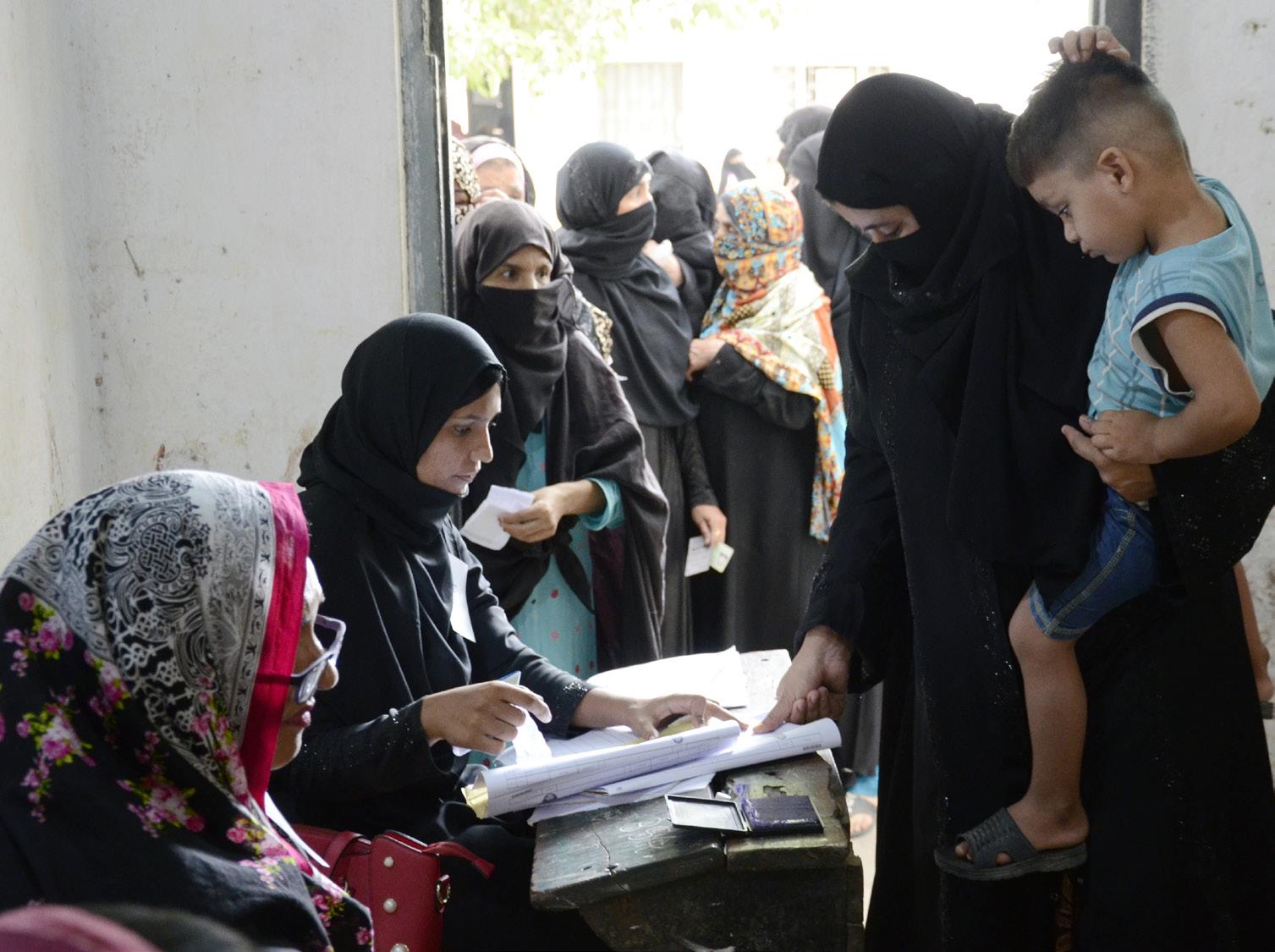
The impact of AI extends to micro-targeting and voter manipulation, with the potential risk of fostering an ongoing perception of manipulation in the democratic process. Media discussions can also contribute to shaping this perception, and algorithmic biases within Generative AI contexts can further amplify these concerns. The use of AI for predicting election outcomes introduces uncertainties regarding the parameters influencing those seeking predictions, potentially leading to biased models.
Moreover, AI's capacity to distort reality so as to incite violence and to create manipulative personality chatbots poses a distributed risk of harm. When voters struggle to differentiate between authentic and fabricated information, it instills doubt in the authenticity of genuine information. Watermarking and labeling efforts lack transparency about the entities behind them, potentially exacerbating distrust.
While chatbots can serve as sources of information, their limitations must be acknowledged. Accessible summaries, while simplifying complex government issues, run the risk of substituting genuine reporting, potentially compromising the depth and accuracy of information.
The concentration of information within a handful of tech firms raises concerns about biased decision-making and polarization, akin to issues observed in social media platforms. Addressing this requires governance mechanisms to regulate rules and regulations, ensuring a diverse and transparent approach to information dissemination. The shift from traditional media outlets to tech companies raises questions about norms and
authority in disseminating information, emphasising the importance of deciding where authority should reside and establishing the norms that govern it.
In the contemporary digital landscape, the exponential growth of data poses challenges in comprehension due to its unstructured nature and managing the sheer volumes of data to be managed. However, technology and algorithms offer solutions to translating this data into visualizations and manageable sections that decision-makers can use. Natural language processing (NLP) facilitates named entity recognition and topic modeling, while machine learning algorithms identify patterns and trends. Visualization tools further enhance data understanding, empowering decision-makers to make informed choices based on representative data.
Yet, the complexity and opacity of AI systems present significant limitations. Machine learning, including neural networks (computer systems modelled on the human brain and nervous system), may generate opaque ‘black box solutions’, making it difficult to explain how recommendations are formulated. (basically, if the AI system is operating with minimum human input and develops its own ‘approach’ built on a few initial instructions, then not even the people who created the AI system can explain how it ends up working in the end). The potential perpetuation of biases and inequalities in these systems raises concerns about their impact on democratic processes, emphasising the need for careful consideration and oversight.
In conclusion, the integration of AI into political discourse is inevitable, and its responsible use can significantly contribute to the enhancement of democratic processes. The recent case study of the PTI party in Pakistan serves as a testament to the potential of AI in political engagement. As we tread into this new era, a balanced and collaborative approach is essential in harnessing the benefits of AI while mitigating potential risks, ensuring a future where democracy thrives amidst technological advancements.
This article on AI for The Parliamentarian was provided by the Research Directorate at the National Assembly of Pakistan Secretariat.
The Parliamentarian | 2024: Issue One | Over 100 years of publishing | 33
DISINFORMATION
Image credit: Commonwealth Secretariat Election Observation.
ARTIFICIAL INTELLIGENCE, NEW TECHNOLOGIES AND THEIR IMPACT ON GENDER EQUALITY
In the age of rapid technological advancement, the intersection of artificial intelligence (AI), disinformation and parliamentary systems has become a critical focal point. As our world becomes increasingly digital, the need to safeguard the integrity of our democratic processes from the harmful effects of misinformation and AI-driven manipulation has never been more urgent. Artificial intelligence has ushered in a new era of innovation and efficiency, revolutionising various sectors. However, the same technologies that enhance our lives also present challenges when misused. In the context of gender equality, AI-powered tools can be exploited to manipulate public opinion, spread disinformation and re-enforce gender stereotypes.
Research has shown that ‘gendered’ divisions are often reproduced through technology. Gender stereotypes show us that technology regularly gets equated with ‘men’s power’, while women and girls are portrayed as ‘less technologically skilled and less interested than their male counterparts’. Such stereotypes can contribute to the gender gap in women’s participation in related fields.1
The gendering of AI can happen in many ways – often through the voice, appearance or the use of female names when creating AI profiles or new technologies. A good example is the use of ‘default’ female voices and names for virtual assistants for the home or mobile technology – such as Apple’s Siri, Amazon’s Alexa and Microsoft’s Cortana – although some technology companies have reversed this trend and now offer neutral profiles. The tendency to feminise AI tools often mimics and reinforces the structural hierarchies and stereotypes in society, which can be premised on preassigned gender roles.2
AI language models create content from digital information that has already been published which often leads to existing gender biases and stereotypes being replicated and amplified. UN Women’s Executive Director, Sima Bahous recently cited a survey showing that 58% of young men aged 16 to 19 believe that men are better political leaders than women, saying “it should particularly alarm us that the attitudes of young men seem to be going backwards.” With such views so widespread, it should come as no surprise that AI, in an attempt to mimic human expression, would reproduce stereotypes.3
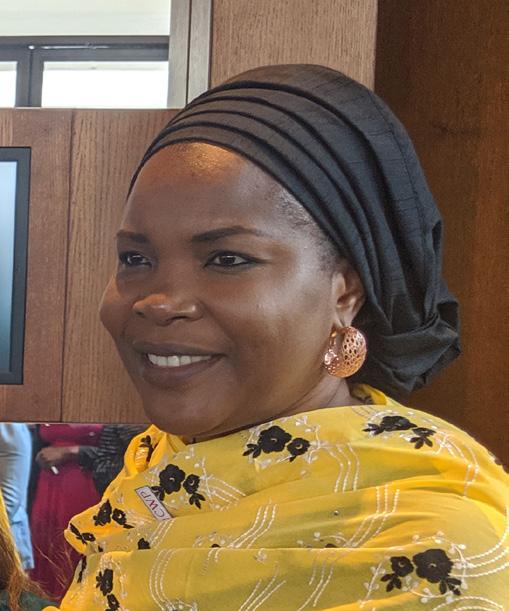
In 2022, UNESCO published a report on the ‘Effects of AI on the Working Lives of Women’,4 which demonstrated that AI and technology is changing the landscape for women in the workplace. The report highlights the need for more focus and research on the impacts of AI and technology on women and the digital gender gap, in order to ensure that women are not left behind in the future of work.
UNESCO has highlighted that AI also risks having a negative impact on women’s economic empowerment and their labour market opportunities through the increased use of job automation. Recent research found that women are at a significantly higher risk of displacement due to job automation than men are.5 The majority of workers facing high-risk of automation in areas such as clerical and administrative roles are women and so it is essential that retraining and reskilling opportunities are provided to lessen the impact of automation on women’s economic empowerment.
The adoption of AI and new technologies are currently occurring at an unprecedented pace and there is an absence of regulatory frameworks to ensure that gender equality is a key consideration in their development. UNESCO’s Global Dialogue on Gender Equality and AI observed that AI guidelines that address gender equality were “either inexistent or current practices were insufficient.” The UN and its agencies have taken a lead on developing frameworks for ethical AI use, however the extent to which they have become embedded and utilised is yet to be studied.
In recent years, the transmission of disinformation through the use of AI and new technologies has also increased dramatically across the world with a detrimental impact on women. While providing for a plurality of voices, false, inaccurate or misleading information is often designed, presented and promoted intentionally to cause public or personal harm or to make a profit.
It is often said that lies disseminate ‘farther, faster, deeper, and more broadly than the truth’ and falsehoods are ‘70% more likely to be retweeted than the truth’. False content has a potentially damaging impact on the credibility of both democratic processes as well as the individuals involved. We know for example that
Hon. Dr Zainab Gimba, MP is the Chairperson of the Commonwealth Women Parliamentarians (CWP) and was elected for a three-year term at the CWP Business Meeting that took place in Halifax, Canada as part of the wider 65th Commonwealth Parliamentary Conference in August 2022. She started her public service career as a Lecturer, in the Department of Public Administration, University of Maiduguri, Nigeria in 2002. Before entering Parliament, she had from 2011-2018 served as Commissioner in charge of Poverty Alleviation and Youth Empowerment, Universal Basic Education Board and Water Resources in Borno, Nigeria. She was elected in 2019 to the Nigeria House of Representatives. She has received many awards and recognitions from professional and Trade Union bodies for her service in community development and empowerment of vulnerable women.
34 | The Parliamentarian | 2024: Issue One | Over 100 years of publishing
ARTIFICIAL INTELLIGENCE, DISINFORMATION AND PARLIAMENT: ENSURING THE INTEGRITY OF
OUR DIGITAL DEMOCRACY
ARTIFICIAL INTELLIGENCE, DISINFORMATION AND PARLIAMENT: ENSURING THE INTEGRITY OF OUR DIGITAL DEMOCRACY
women Parliamentarians are disproportionately impacted by online misinformation – often linked to social media abuse and online targeting.
The Internet has provided unprecedented amounts of information to huge numbers of people worldwide. Accelerated by the ubiquity of smartphones and social media networks, the Internet has also become a more complex phenomenon based on emerging techniques of deception, with its far-reaching implications for democratic norms worldwide.
Social media platforms, often used as a means of communication between constituents and their representatives, can become breeding grounds for misleading narratives. Deepfake technology, driven by AI, further complicates the landscape by creating realistic but entirely fabricated content, making it difficult to distinguish truth from fiction. The same features that empower citizens can be misused as vehicles for the spread of online hate speech, disinformation, bias, harassment and cyberbullying.
In providing more direct access to content, less mediated by professional journalism, digital platforms have replaced editorial decisions with engagement-optimising algorithms that prioritise ‘clickbait’ content. Social networks have transformed our personal exposure to information, persuasion and emotive imagery of all kinds.
However, there are some promising practices on how AI and technology can be used to address gender inequalities and advance gender equality in our societies. For example, several employers have shared their experiences of using AI to create job adverts using gender-sensitive language to ensure that they are more inclusive and attract a more diverse workforce. Many organisations now use ‘discrimination testing’ to review their algorithms to eliminate any form of discrimination. Ethical AI can provide a new approach to addressing diversity and equality, including gender equality. Many key stakeholders such as technology companies, academia, UN agencies and civil society organisations are now working together to explore solutions and policies.
Parliaments and legislative bodies are not immune to the impact of AI-driven disinformation and new technologies. The dissemination of false information can erode public trust in institutions and lead to uninformed decision-making. As representatives who engage with constituents through digital platforms, the risk of manipulation increases, undermining the very essence of democratic governance.
Effective responses to the issues posed by AI and new technologies requires a multi-faceted approach that will safeguard the integrity of our digital democracy. This can include formal laws and regulations, as well as corporate measures. Promoting media literacy and critical thinking skills can empower citizens to discern reliable information from misinformation, particularly for young people. Educational initiatives should highlight the potential dangers of AI-driven disinformation and provide tools to verify the authenticity of digital content.
As a result, Parliaments face the challenge of crafting legislation that balances freedom of expression with the need to curb harmful online activities. For instance, legislation targeting harmful speech must be finely tuned to avoid inadvertently creating ‘chilling effects’6 and suppressing the rights of the individual to freedom of speech. Parliaments must be thoughtful in calibrating responses that address urgent threats while not encroaching on essential democratic values.
Parliamentarians have a role to play in international dialogues on AI so that regulatory frameworks and governance models are

developed with democratic and inclusive principles and reflect the needs of diverse communities across the Commonwealth. Legislatures can also prioritise raising public awareness about the implications of disinformation. This involves supporting initiatives that educate citizens on identifying and understanding the nature of synthetic content and ‘fake news’. By enhancing media literacy, legislators can empower the public to critically assess and respond to disinformation. Legislatures can also champion efforts to collaborate with counterparts across borders, sharing best practice and working towards unified standards. This approach acknowledges the transnational challenge of AI, technology and digital disinformation, and the need for a harmonised response.
The CPA has recently launched its ‘ Parliamentary Handbook on Disinformation, AI and Synthetic Media’ – visit www.cpahq.org or email hq.sec@cpahq.org for a copy.
References:
1 ‘Addressing Gender Bias to Achieve Ethical AI’ by Ardra Manasi, Subadra Panchanadeswaran, and Emily Sours, 17 March 2023 – IPI Global Observatoryhttps://theglobalobservatory.org/2023/03/gender-bias-ethical-artificial-intelligence/ 2 Ibid.
3 ‘HeForShe summit discusses gender bias in AI and how to encourage male feminist allies’ UN Women, September 2023 https://www.unwomen.org/en/newsstories/feature-story/2023/09/heforshe-summit-discusses-gender-bias-in-ai-andhow-to-encourage-male-feminist-allies
4 ‘The Effects of AI on the Working Lives of Women’, UNESCO, 2022 https://www. unesco.org/en/articles/effects-ai-working-lives-women
5 ‘Artificial Intelligence and Gender Equality’, UNESCO, 2020 https://en.unesco.org/ AI-and-GE-2020
6 ‘Chilling effects arise out of contexts of ambiguity and uncertainty—like the ambiguity of public or private sector surveillance—but have deeper psychological foundations as well. In moments of situational uncertainty, people conform to, and comply with, the relevant social norm in that context’. Cited from Berkman Klein Center for Internet and Society at Harvard University - https://cyber.harvard.edu/ story/2021-06/understanding-chilling-effects.
The Parliamentarian | 2024: Issue One | Over 100 years of publishing | 35
AI, DISINFORMATION AND DEMOCRACY: THE NEED FOR PARLIAMENTS TO ACT
The development of artificial intelligence (AI) has enabled the production of synthetic media, such as deepfakes, that can manipulate or fabricate the appearance or speech of a person. Deepfakes can undermine the objectivity and reliability of information, as they can create false or misleading impressions of reality. One of the potential risks of deepfakes is the liar’s dividend, which is the benefit received by those who spread false information or deny the truth by claiming that real evidence is fake. The liar’s dividend can erode the public trust in institutions, sources and facts, and create confusion and polarization among citizens. For example, politicians or public figures who are caught in scandals or controversies can use the liar’s dividend to evade accountability or discredit their opponents by casting doubt on the authenticity of audiovisual content. Therefore, it is important to develop effective countermeasures to combat the liar’s dividend and preserve the integrity of information.
Some readers might have read the above and found it awkward, stiff and maybe even lacking in the human touch. If you felt the same way, there could be good reason. The above paragraph was drafted using a generative Artificial Intelligence (AI) programme and more specifically a large language model (LLM). With a simple single sentence prompt, the click of a button and a few seconds of waiting time, one is able to produce over 150 words of artificially generated text.
The CPA Headquarters Secretariat performed a similar exercise during the 66th Commonwealth Parliamentary Conference in Accra, Ghana in October 2023. For the first time, delegates at a CPC workshop were joined by a synthetic, AI-generated panellist, reading a script lifted from an LLM. The entire process, from concept to the creation of the “recording”, took little more than twenty minutes and very little effort (see The Parliamentarian 2023 Issue Four, page 364 - report from CPC Workshop H: E-Parliaments: An effective mechanism for intersectional diversity and equitable public engagement).
Whilst some might have detected the use of AI tools in one or both instances, it is worth recalling that this is as “bad” as these technologies are going to be. Artificial Intelligence is going to get more capable, not to mention more usable, over time.
Whilst both the opening paragraph to this article and the “synthetic” panellist (Hon. John Proctor, to give him his full name)

featured at the Conference in Ghana present fairly benign uses of these emerging technologies and tools, there are much more malign and sinister actors who are already using readily accessible tools and programmes to do serious harm and reputational damage to individuals and groups.
When discussing concerns around these bleeding-edge technologies, it might be helpful to first break down this article’s opening paragraph and appreciate what we mean by synthetic media. Whilst many will have had exposure to “artificial intelligence”, the more specific “synthetic media” may be more unfamiliar territory.
As defined in the CPA’s recently published Parliamentary Handbook on Disinformation, AI and Synthetic Media, synthetic media refers to media and content - visual, auditory or multimodal –that has been created or altered using artificial intelligence. ‘ These models can be fine-tuned to generate a variety of highly realistic and convincing outputs that may simulate artifacts, person or events’.1
For many readers the most high-profile use of synthetic media technology is the creation of deepfake media. Deepfakes are images, video or audio that have been manipulated to represent an individual as doing or saying something they did not in fact ever do or say.
Whereas we were previously advised to not believe everything that we read and hear, we can now no longer trust everything we see (at least with regards to the deepfaked images and video – with audio deepfakes we have a further twist on the imperative to not believe everything we hear).
The potential for people with public profiles to be completely misrepresented using this technology and the potential for consumers of that media to be misled into believing false narratives should not be underestimated. One particularly high-profile and recent instance of synthetic media misuse has been the sexualised, pornographic (and evidently non-consensual) content involving an AI-generated version of the popular American musician and singer Taylor Swift, which has led to renewed calls for efforts to address the misuse and abuse of this technology. Whilst the ‘Taylor Swift’ example has made headlines and is an obvious and distressing example of how someone in the public eye can have their likeness manipulated, it is just one example (albeit involving many, many pieces of synthetic content).
In 2023, a high-profile Parliamentarian in the United Kingdom had an audio deepfake created and “leaked” which involved a fictional,
James Pinnell is the Deputy Head of Programmes (Multilateral Engagements) at the Commonwealth Parliamentary Association (CPA). This portfolio of work includes overseeing the activities of the CPA’s three networks – the CPA Small Branches, the Commonwealth Women Parliamentarians (CWP) and the Commonwealth Parliamentarians with Disabilities (CPwD) as well as working with partner organisations in addressing parliamentary strengthening. He holds a Bachelor of Laws from the University of Liverpool and a Master of European Law from the University of Leiden.
36 | The Parliamentarian | 2024: Issue One | Over 100 years of publishing
ARTIFICIAL INTELLIGENCE, DISINFORMATION AND PARLIAMENT: ENSURING THE INTEGRITY OF OUR DIGITAL DEMOCRACY
ARTIFICIAL INTELLIGENCE, DISINFORMATION AND PARLIAMENT: ENSURING THE INTEGRITY OF OUR DIGITAL DEMOCRACY
synthetic version of the individual seemingly berating and swearing at their staff. In that instance, Members from other parties did speak publicly to identify the audio as “fake” and “a new low”, though this didn’t prevent the Member being described as a “disgusting bully” for the AI-generated words they never spoke and had no part in.
A strikingly similar example comes from the 2023 election in Slovakia, where an audio deepfake purported to show the leader of one of the largest political parties in conversation with a journalist, discussing methods to manipulate the election. Whilst fact-checkers raced to analyse the recording’s (in)authenticity, the moratorium on the media and candidates’ ability to speak out in the few days left before polls opened, coupled with the social media platform’s potentially arbitrary distinction between ‘videos that have been edited or synthesised ’ 2 (forbidden) and audio-only deepfakes (unmentioned), meant that addressing this source of disinformation was particularly difficult. Whilst it is impossible to determine whether this audio was a determining factor in that election, Věra Jourová, Vice President of the European Commission for Values and Transparency noted that “there is a war in the information space waged against us […] where malicious actors will try to use the design features of the platforms to manipulate” 3
Given Vice-President Jourová’s cross-border mandate to counter disinformation and fake information, and ensure democracy remains open and protected from external interference. whilst preserving freedom of expression and media pluralism, we ignore her warnings at our own risk.
It is worth noting that one does not need to have a particularly large public profile, or even a public profile at all to fall prey to some of these technologies. Readers are invited to consider watching a recently released documentary film called Another Body, which looks into a college student’s experiences as a target of malicious deepfakes released online as evidence that a constituent is no more immune to this technology than their elected official. It should, however, be stated here that, whilst anyone can be a target, the pornographic side of deepfakery does disproportionately focus on women.4
Reputational damage is not limited to the potentially pornographic elements of synthetic media and deepfakes (though estimates in previous years suggest that 96% of deepfakes are of such a nature).5 We also have the potential for fake audio/video to be released where a synthetic Parliamentarian or election candidate uses a
CPA prepares Parliaments for a new era of disinformation with new handbook on artificial intelligence and synthetic media
Recent developments in artificial intelligence (AI) and synthetic media have added new layers of complexity when combating disinformation. These technologies can create highly realistic but entirely fabricated content, making it increasingly difficult for individuals and organisations to distinguish between truth and falsehood. With more than half the world’s population set to have a chance to vote in 2024, the impact of artificial intelligence on the integrity of public discourse and our ability to maintain fact-based narratives will be a major concern for democracies across the world this year.
In response to these emerging technologies, the Commonwealth Parliamentary Association (CPA) and the Organization of American States (OAS) have developed the Parliamentary Handbook on Disinformation, AI and Synthetic Media. This handbook provides readers with an overview of disinformation, the different forms it can take, and the contemporary techniques used to spread it. The handbook also covers the basics of AI and synthetic media, including their applications in, and implications for, democracy.
“In today’s rapidly transforming information ecosystem, the growth of synthetic media and disinformation underlines the urgent need to protect democratic integrity and free expression,” said Cassidy Bereskin, Founder and Director of OxGen AI and the lead author of the handbook. “This handbook outlines how Legislatures can collaborate with governments, tech companies, civil society and the public to navigate the delicate balance between fostering technological innovation and safeguarding democratic values.”
The publication contains effective strategies for combating disinformation and guidance on how Parliamentarians can
work with other stakeholders, including civil society, the media and technology companies, to develop effective policies and regulatory/legislative frameworks to address the challenges of disinformation, as well as how they can take steps to safeguard their own online profiles and communication channels. There is a particular focus on synthetic media and synthetic disinformation, defined as disinformation generated or enhanced via synthetic media techniques.
Stephen Twigg, the CPA Secretary-General said: “This handbook addresses many of the concerns raised by Parliamentarians and experts about how malicious actors could misuse AI to spread disinformation, particularly during election periods and will help Legislatures to protect the integrity of our democracies in the AI era.”
The handbook builds upon the CPA’s commitment to mainstream technology and innovation as a cross-cutting theme across the organisation’s programmes. It also complements the OAS’s work in building awareness around the breadth and depth of misinformation, disinformation, fake news and the manipulation of information in undermining democratic norms and principles.

To access a copy of the new Parliamentary Handbook on Disinformation, AI and Synthetic Media visit www.cpahq.org or email hq.sec@cpahq.org
The Parliamentarian | 2024: Issue One | Over 100 years of publishing | 37
AND PARLIAMENT: ENSURING THE INTEGRITY OF OUR DIGITAL DEMOCRACY
racial epithet, briefs against their own party and policies or seeks to otherwise share controversial views.
Turning towards the democratic space, and particularly as we enter 2024 with an unprecedented number of elections on the horizon (an estimated 40% of the world is eligible to vote this year), the threats should be obvious. If they aren’t, we can look to the words of German political philosopher, Hannah Arendt, speaking nearly fifty years ago, in 1975: “If everybody always lies to you, the consequence is not that you believe the lies, but rather that nobody believes anything any longer […] And a people that no longer can believe anything cannot make up its mind. It is deprived not only of its capacity to act but also of its capacity to think.”6
An apathetic and misinformed electorate is not an electorate that is capable of acting in its best interests and Parliamentarians, whether campaigning in an election or not, should look to argue on interpretations of facts and principles not on what is and is not objective reality. Parliamentarians should also remain aware of the ‘liar’s dividend’ where, as mentioned in the opening paragraph, malicious actors weaponise scepticism around deepfakes and synthetic media to deny genuine evidence of real wrongdoing.
So how we can those engaged in upholding and promoting democratic norms, evidence-based decision-making and principled public discourse address this complex and rapidly evolving problem? One way to start framing our appreciation of this problem is to heed the words of Roy Amara. Roy Amara was a researcher, scientist and futurist who coined Amara’s Law, which states that “We tend to overestimate the effect of a technology in the short run and underestimate the effect in the long run.” Whilst dating back to the 1960s or 1970s (experts can’t quite agree on the origin of the quote), we continue to fall into the same trap of fascination with a new technology when it first emerges, before quickly losing interest and moving on to the latest innovation.
Considering the raw potential of AI, the sectors where it is already being applied and the aforementioned risks of reality distortion that comes with hyper-realistic videos, images and audio clips, we can’t afford to become disinterested and think of AI in the same manner as we now treat GPS systems in our cars and videoconferencing in our workplaces.
As scrutineers and lawmakers, Parliamentarians need to maintain a long-term focus when considering the potential for AI and must embrace opportunities to update their knowledge and understanding of advances and breakthroughs. Some Legislatures may have sufficient in-house resources to ensure they stay informed, such as library services and relevant research experts. Other Parliaments may wish to take advantage of the fact that the CPA is maintaining a strategic thematic focus on technology and innovation, with a specific interest in artificial intelligence (please feel free to email our offices, should you want further information).
As representatives, Parliamentarians should also look to promote public engagement and constituency awareness when it comes to the threats posed by synthetic media and AI-generated disinformation. This can be done through public awareness campaigns and media literacy initiatives at an individual level or as an institution-wide initiative.
Additionally, Parliamentarians should lead by example and commit themselves to upholding the highest possible ethical standards in
refraining from the intentional creation, promotion and sharing of falsified information. Any use of AI to purposefully misrepresent or distort the facts of a situation must be avoided. Whilst there may be uses of satirical and obviously fake media which would fall within many people’s understanding of free expression and political comment, there should always be an appreciation of where that distinction ends and the content becomes mis/disinformation.
As one part of what must be a multistakeholder response to the rapid advances in AI, Parliaments should engage in dialogue with those collaborations that are already looking to mitigate misuses of the technology. Whilst it is not for this article to dictate which existing responses Parliaments within the CPA’s membership should engage with, the Coalition for Content Provenance and Authenticity (C2PA –no relation to the CPA) is one initiative that has taken tangible steps to provide solutions to the spread of AI-generated disinformation.
Details regarding the C2PA approach can be found in the CPA’s previously mentioned Parliamentary Handbook on Disinformation, AI and Synthetic Media as well as in the recordings from the Virtual Conference on Artificial Intelligence, Disinformation and Parliament For this article, it will hopefully suffice to say that the C2PA is a technical standard that allows for the origin of a piece of media, as well as every subsequent edit, to be captured in a digital record that can be accessed by the consumers of the media.
In the same way that the provenance of a piece of art allows us to track back through that piece’s previous owners and ultimately confirm it is an original by the given artist, so we can trace the history of that piece of media and identify if, where and when it might have been manipulated. Something that is key to appreciate here is that this approach is not about telling the public what to trust and what not to trust, but rather about providing transparent information to allow the audience to decide for itself. Perhaps Parliamentarians and guardians of parliamentary democracy can appreciate this approach. You don’t always have to trust the people you vote for, but you do want the democratic process to be open and transparent enough to decide for yourself how to act.
References:
1 CPA’s Parliamentary Handbook on Disinformation, AI and Synthetic Media –available at: www.cpahq.org/media/sphl0rft/handbook-on-disinformation-ai-andsynthetic-media.pdf
2 ‘Manipulated media’ Facebook Community Standards, Meta - https://transparency. fb.com/en-gb/policies/community-standards/manipulated-media/
3 Press statement of European Commission Vice-President Jourova on the meeting with the Code of Practice on Disinformation Signatories https://ec.europa.eu/ commission/presscorner/detail/en/speech_23_4645
4 ‘Criminalising Pornographic Deep Fakes: A Gender-Specific Inspection of ImageBased Sexual Abuse’ by Rüya Tuna Toparlak, Faculty of Law at the University of Lucerne https://www.sciencespo.fr/public/chaire-numerique/wp-content/ uploads/2022/06/3a-Toparlak_Criminalising-Pornographic-Deep-Fakes.pdf
5 ‘Deepfakes are a real political threat. For now, though, they’re mainly used to degrade women’ by Aja Romano, Vox https://www.vox.com/2019/10/7/20902215/ deepfakes-usage-youtube-2019-deeptrace-research-report
6 Hannah Arendt: From an Interview, The New York Review https://www.nybooks. com/articles/1978/10/26/hannah-arendt-from-an-interview/
38 | The Parliamentarian | 2024: Issue One | Over 100 years of publishing ARTIFICIAL INTELLIGENCE, DISINFORMATION
Produced by the History of Parliament Trust and publisher St James’s House, 75 Years of the National Health Service is a beautifully presented, fully illustrated hardback book, authored by a team of distinguished academics and journalists. Marking the 75th anniversary of the founding of the National Health Service, this 432-page commemorative publication explores the origins, history and impact of the NHS, presenting the stories behind the people and policies that have shaped it. The book also charts the wider healthcare landscape, highlighting examples of achievement and progress in areas such as medicine, technology, facilities, training and workforce management, among others.
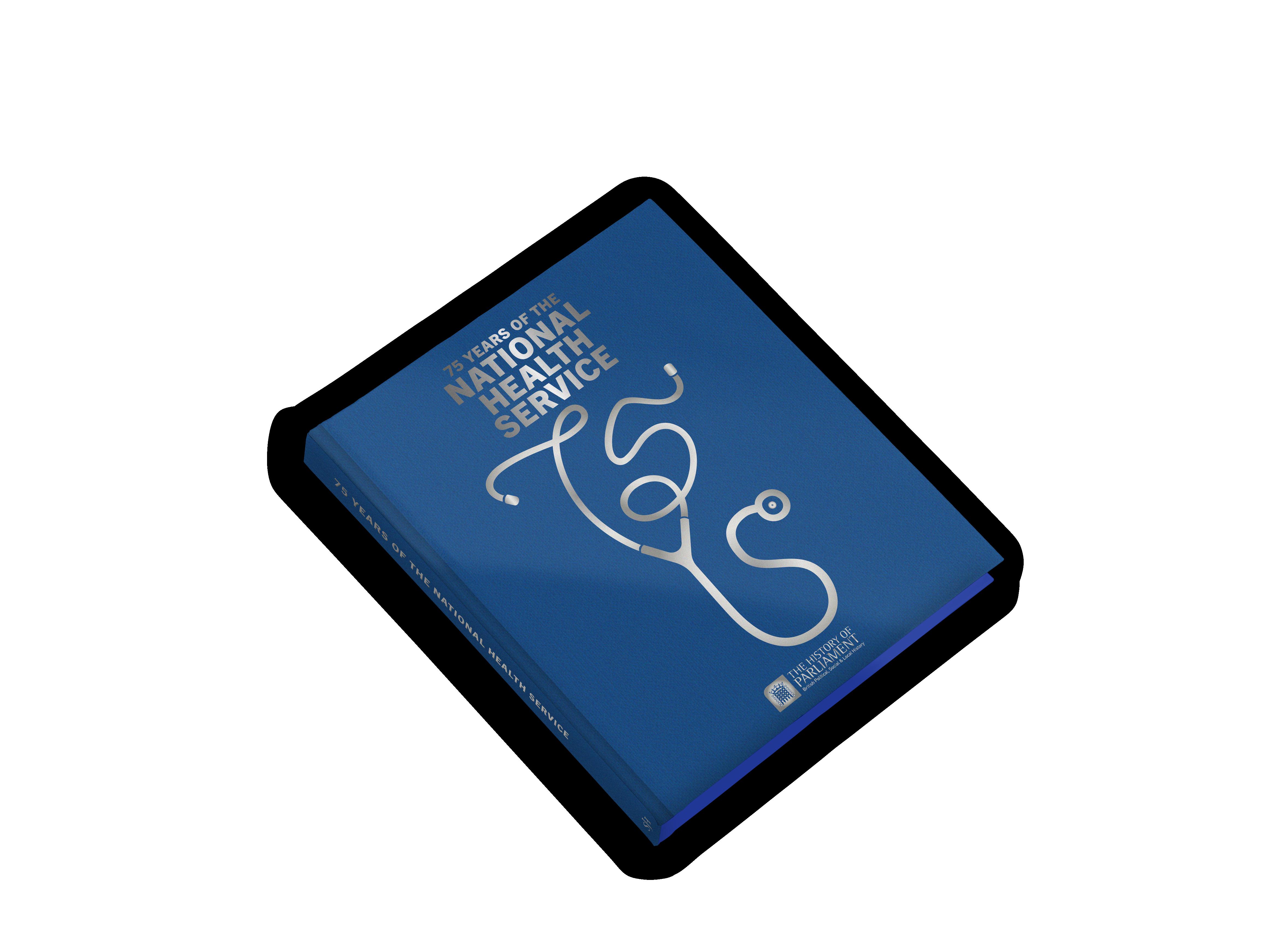
HOW TO CLAIM YOUR FREE BOOK
To order a free e-book or free* hardback, please scan this QR code or visit www.sjh-offer.com.
*For hardbacks, a delivery charge of £9.99 is payable. See terms and conditions below.
For enquiries, please email publishing@stjamess.org.
HUMAN RIGHTS IN THE COMMONWEALTH: NEW DEVELOPMENTS IN ENHANCING HUMAN RIGHTS
PROTECTION IN THE REPUBLIC OF CYPRUS
The protection of human rights in the Republic of Cyprus’ legal system is of fundamental value; not only are they protected expressly by Part II of the Constitution, but their protection also draws from the common law tradition that applies in Cyprus by virtue of section 29(1)(c) of the Courts of Justice Law No. 14/1960.
The protection of human rights is of utmost importance in the Commonwealth as attested by the Commonwealth Charter, that reaffirms commitment to their protection, as well as the necessity for tolerance, respect, understanding and opposition to all forms of discrimination rooted in gender, race, colour, creed, political belief or other grounds.1 Let us not forget that, it has also been long established since the 18th century through Entick v Carrington, 2 that common law protects the rights of the person.
In the same spirit, Cyprus case law offers a wide-ranging protection of human rights protected on the basis of jurisprudence, even invokable horizontally in disputes between private parties. The Supreme Court has expressly recognised that human rights violations give rise to an autonomous cause of action and the right to obtain a remedy, to be determined on the basis of factors considered in cases of civil rights violations in English law.3 The inherent flexibility of the common law tradition that underpins the foundations of our legal system creates fruitful ground for the elaboration of human-rights related legal principles.
What is more, the structure of legislative acts lends itself to amendments and the enactment of new laws when required by social developments, as attested by recent innovative pieces of legislation that are promulgated, some of which upon initiative of the current President of the House of Representatives, Ms Annita Demetriou. Examples of these that relate to the promotion of human rights within the field of gender equality and the non- discrimination and the safeguarding of an individual’s right to their identity, include the introduction of ‘femicide’ as a criminal offence per se, the criminalisation of the application of so-called “conversion therapies” to LGBTQI+ individuals, legislation for combating sexism and the online dissemination of sexist material in addition to the introduction of comprehensive sexuality education in schools.
1. Femicide
Femicide has been introduced as a criminal offence per se in Cyprus by virtue of Law No. 117(I)/2022, amending Law No. 115(I)/2021 on Preventing and Combating Violence Against Women and Domestic Violence and related matters. With the introduction of section 10A therein, femicide is defined as an “unlawful act or omission [that] causes the death of a woman”. While this may
seem already covered by existing criminal offences, the aim of the legislation in question is to give a legal definition to an alarmingly increasing social phenomenon of gender-based violence.
This legislation originated from a Private Member’s Bill submitted upon the initiative of the current President of the House, Ms Annita Demetriou. The very essence of the legislative act is that it recognises in express terms both the social phenomenon as well as the aggravating circumstances that shall be taken into consideration by Courts when delivering a sentence in a case of femicide. Therefore, whether the death was as a result of violence by a partner, torture on the grounds of misogynism, acts of domestic violence, acts of violence on the grounds of ‘honour’, religious beliefs, sexual orientation or gender identity, this must be taken into account, as well as whether or not the death resulted from the offence of female genital mutilation. This is in addition to the other aggravating circumstances provided for by the legislation, applicable to other cases of violence against women, including if the perpetrator had been the woman’s spouse, partner or a person exercising power and influence over her.
The aim of this law is to further implement the Council of Europe’s Convention on Preventing and Combating Violence against Women and Domestic Violence, while raising the visibility of the deplorable phenomenon of femicide. For this purpose, the introduction of the offence was carried out by amending Law 115(I)/2021, which incorporates the above Convention in the Republic’s legal order. This is also in line with international recommendations; in 2020 the UN Special Rapporteur on violence against women characterised femicide and gender-based violence against women as a ‘pandemic’4 while in October 2023 the Special Rapporteur on extrajudicial, summary or arbitrary executions stated that femicide is a “global tragedy of pandemic proportions” 5
An innovative step in the field of criminal justice, with widereaching effects, the introduction of femicide in the legal system of Cyprus, perhaps the first state adopting an express criminal law term for the phenomenon, can contribute positively by defining more precisely a harmful social phenomenon.
2. Criminalisation of so-called ‘conversion therapies’
The question of the so-called ‘conversion therapies’ has been increasingly discussed at an international level. The United Nations Independent Expert on Protection Against Violence and Discrimination based on Sexual Orientation and Gender Identity (IESOGI) has called for a global ban of such practices which are considered to have a deep impact on individuals including loss
HUMAN RIGHTS IN THE COMMONWEALTH 40 | The Parliamentarian | 2024: Issue One | Over 100 years of publishing
Dr Alexis Antoniades is the International Relations Officer at the House of Representatives of the Republic of Cyprus.
of self-esteem, anxiety, intimacy problems, social isolation, guilt, suicide attempts and post-traumatic stress disorder.6 Similarly, the European Parliament has called for the eradication of such practices,7 as has the Human Rights Commissioner of the Council of Europe8 and the Parliamentary Assembly of the Council of Europe.9
In June 2023, Law 39(I)/2023 amended the Criminal Code, Cap. 154, the statute that compiles the bulk of criminal offences in Cyprus. By virtue of this legislation a specific offence has now been addressed10 to criminalise the application of practices, methods or services aiming at the change, suppression or eradication of sexual orientation, gender identity or gender expression. Where the victim of such an offence is an adult, the penalties envisaged are a maximum of two years or a fine of €5,000 and three years and €10,000 where they are a minor, respectively. This provision also criminalises the advertisement of such practices, methods or services as well as the referral of a person to these by their guardian. This provision exempts consultative, psychological or medical services that address the exploration of sexual orientation and gender identity or expression, as well as medically established clinical action for a person’s sexual health. In a balancing exercise to safeguard all Constitutional rights, section 223B(3) of Cap. 154 stipulates that the provisions relating to these offences shall be applied without prejudice to the rights to freedom of thought, conscience and religion as protected by Article 18 of the Constitution and Article 9 of the European Convention for the Protection of Human Rights and Fundamental Freedoms.
3. Combating sexism and online disseminated sexist material
Following three Private Members’ Bills that were unified during the stage of debate before the House Standing Committee on Human Rights and Equal Opportunities between Men and Women, the House of Representatives enacted Law 209(I)/2020 on Combating Sexism and Online Disseminated Sexism and Related Matters. The Law draws from the Recommendation CM/REC (2019) of the Committee of Ministers of the Council of Europe, according to which acts of ‘everyday’ sexism are part of a ‘continuum of violence’ creating a climate of intimidation, fear and discrimination.
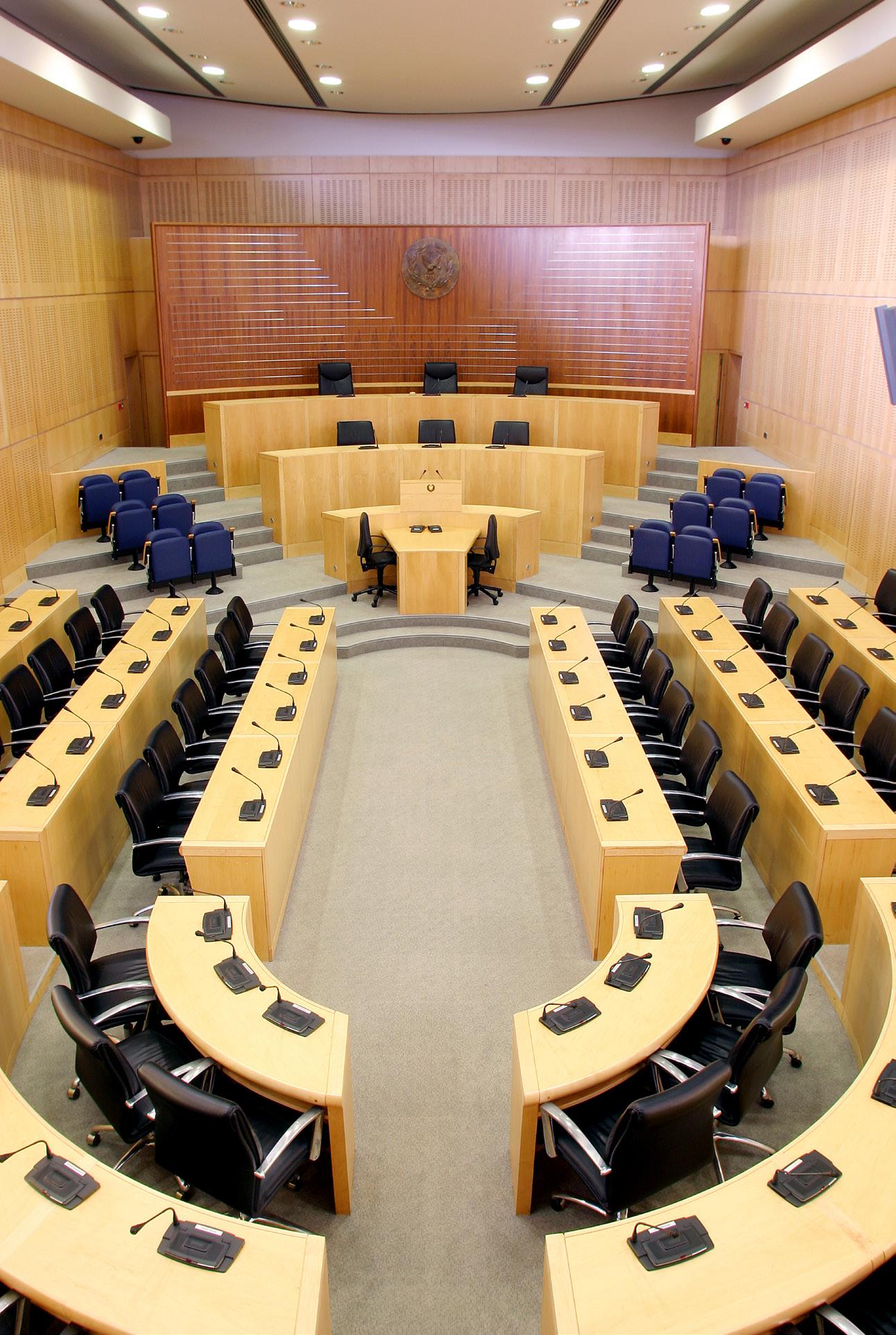
This Law stipulates that an intentional demonstration or act of sexism, as well as the intentional action that constitutes online disseminated sexism are criminal offences subject to one year imprisonment or a fine of €5,000, or both.
In this respect, ‘sexism’ refers to the publicly or privately manifested sexist behaviour 11 against a specific person or a specific group of persons, founded on the idea or understanding that a person or group of person(s) is inferior on the basis of gender and aims at violating the rights of the victim or victims, insulting, humiliating and attacking their dignity with the result of preventing access to public services and the unequal access to resources; physically, psychologically or socioeconomically damaging the victim(s); creating an intimidating, hostile, humiliating,
degrading and offensive environment; promoting and reinforcing gender stereotypes and gender discrimination. The term ‘online disseminated sexism’ refers to the registration of electronic data in an information technology system that contain sexism, according to the aforementioned definition, which are directed against a specific person or a group of persons.
The legislation draws attention to the fact that its implementation shall be without prejudice or limitation to any obligation to respect fundamental rights and fundamental freedoms, including the freedom of expression and freedom of association.12
4. The introduction of comprehensive sexuality education in schools
Comprehensive sexuality education (CSE) is also an issue that is being increasingly addressed by international organisations. In 2018, UNESCO issued international technical guidance on this issue to assist educational, health and other authorities in the development of CSE
HUMAN RIGHTS IN THE COMMONWEALTH The Parliamentarian | 2024: Issue One | Over 100 years of publishing | 41
Image: Parliament of Cyprus.
programmes.13 The guidance supports scientifically CSE that is age appropriate and centred on a human rights approach. It includes sexual and reproductive anatomy and physiology; puberty, menstruation, reproduction, modern contraception, pregnancy and childbirth; and STIs, including HIV and AIDS.14
Initially submitted as a Private Member’s Bill in 2019, relevant legislation was enacted in late 2022 by virtue of Law 205(I)/2022 on Comprehensive Sexuality Education. CSE is defined therein as a procedure of teaching and learning, based on a detailed programme in relation to cognitive, sentimental, physical and social aspects of sexuality. These programmes must aim at providing a child or an adult, at any level of primary or secondary education, with knowledge, skills, positions and values that will empower them to have awareness as to their health, well-being and dignity, to develop social and sexual relations, to understand that their choices affect their wellbeing and that of others, to comprehend their rights and claim their protection, to comprehend their interpersonal relations, undertaking the responsibility for informed decision for their own sexual health and well-being and that of others. This Law designates the Ministry of Education, Youth and Sports as the competent authority for its implementation, in collaboration with the Ministry of Health and involved shareholders. The relevant programmes are to be materialised, on the basis of guidelines of WHO and UNESCO and on the basis of educational principles in the field of human rights.
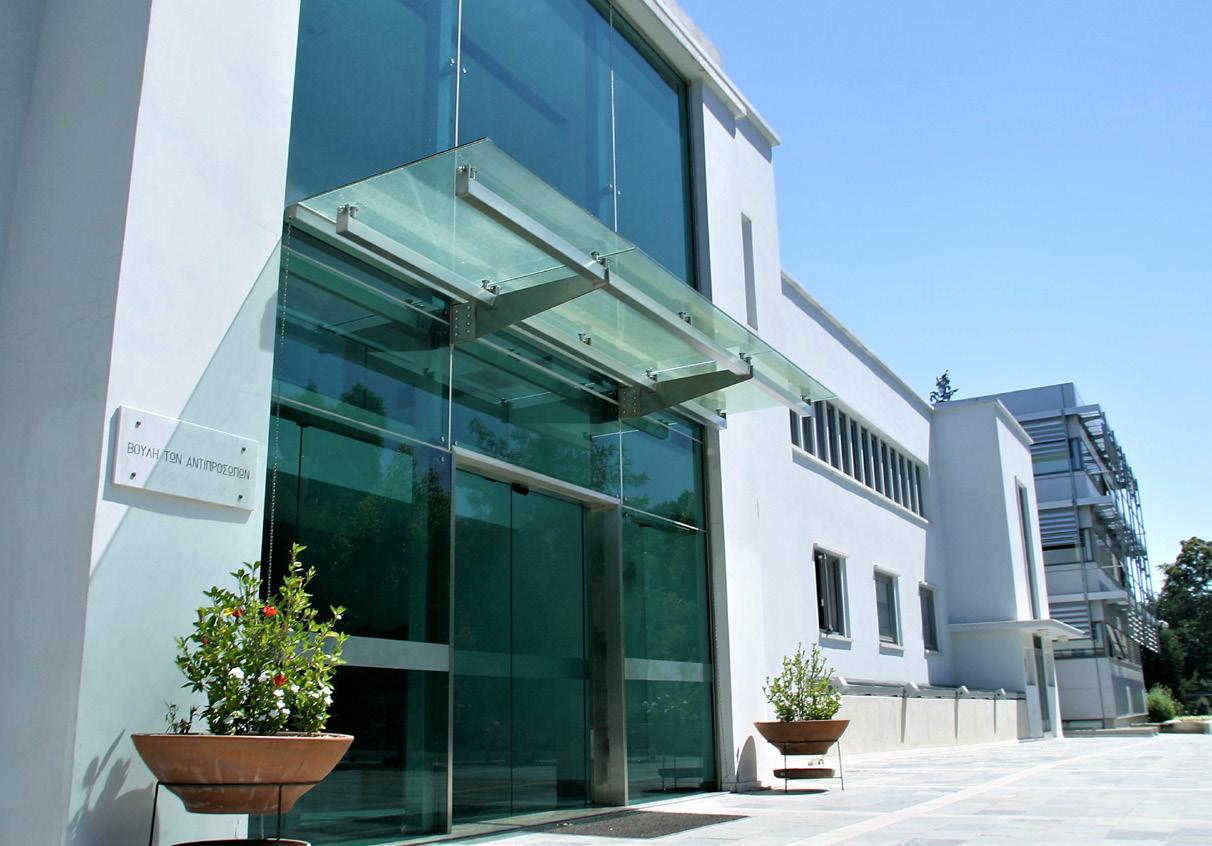
5 ‘States must eradicate femicide globally: UN expert’ – UN OHCHR - https://www.ohchr. org/en/press-releases/2023/10/states-must-eradicate-femicide-globally-un-expert
6 United Nations Independent Expert on protection against violence and discrimination based on Sexual Orientation and Gender Identity (IESOGI) - Report on conversion therapy https://www.ohchr.org/sites/default/files/Documents/Issues/ SexualOrientation/ConversionTherapyReport.pdf
7 European Parliament resolution of 1 March 2018 on the situation of fundamental rights in the EU in 2016 (2017/2125(INI)); European Parliament resolution of 16 January 2019 on the situation of fundamental rights in the European Union in 2017 (2018/2103(INI)).
These developments are up to date with international standards, as in March 2023, the United Nations Special Rapporteur on the Right to Health,15 the Independent Expert on the Protection against Violence and Discrimination based on Sexual Orientation and Gender Identity, the Special Rapporteur on the right to education and the Working Group on Discrimination against Women and Girls published a Compendium on Comprehensive Sexuality Education 16 This Compendium calls upon States to ensure that comprehensive sexuality education is a mandatory subject in school curricula covering a breadth of topics beyond risks and disease, including a focus on respect, consent, autonomy, relationships gender equality and sexual and gender identity.
Conclusion
As matters of gender-based discrimination, violence and crimes are on the rise, despite currently being more openly discussed internationally, through the lens of intersectionality, including within the framework of the Commonwealth,17 Parliaments still have a central role to play as legislators. The Cyprus House of Representatives has been active and productive in this field as attested by the legislation referred to above. Although a long way is still ahead as regards the policy area of human rights to achieve better and more tangible results, the foundations laid down by law are a satisfactory starting point to work towards the protection of citizens.
References:
1 See Principles II and IV of the Commonwealth Charter.
2 [1765] EWHC KB J98 95 ER 807.
3 Takis Yiallouros v Evgenios Nikolaou (2001) 1 ΑΑD 558.
4 ‘Urgent action needed to end pandemic of femicide and violence against women, says UN expert’ – UN OHCHR - https://www.ohchr.org/en/press-releases/2020/11/ urgent-action-needed-end-pandemic-femicide-and-violence-against-women-says
8 ‘Nothing to cure: putting an end to so-called “conversion therapies” for LGBTI people’ – Council of Europe - https://www.coe.int/et/web/commissioner/-/nothingto-cure-putting-an-end-to-so-called-conversion-therapies-%20for-lgbti-people
9 Resolution 2395 (2021) Strengthening the fight against so-called “honour” crimes - Text adopted by the Parliamentary Assembly of the Council of Europe on 28 September 2021 (26th sitting).
10 Section 233B of the Criminal Code, Cap. 154.
11 Defined as any act, gesture, visual presentation, written or oral word.
12 Section 10 of Law 209(I).2020.
13 ‘International technical guidance on sexuality education: an evidence-informed approach’ – UNESCO - Available from: https://unesdoc.unesco.org/ark:/48223/ pf0000183281.locale=en
14 Ibid p. 16.
15 UN Special Rapporteur on the right of everyone to the enjoyment of the highest attainable standard of physical and mental health. https://www.ohchr.org/en/ special-procedures/sr-health
16 A Compendium on Comprehensive Sexuality Education – UN OHCHR - https:// www.ohchr.org/en/documents/tools-andresources/compendium-comprehensivesexuality-education
17 ‘‘NO MORE’: Commonwealth women leaders commit to ending domestic and sexual violence’ – Commonwealth Secretariat - https://thecommonwealth.org/ news/no-more-commonwealth-womenleaders-commit-ending-domestic-and-sexualviolence and ‘Commonwealth Secretariat highlights the importance of accountability for gender equality’ – Commonwealth Secretariat - https://thecommonwealth.org/ news/commonwealth-secretariat-highlightsimportance-accountability-gender-equality
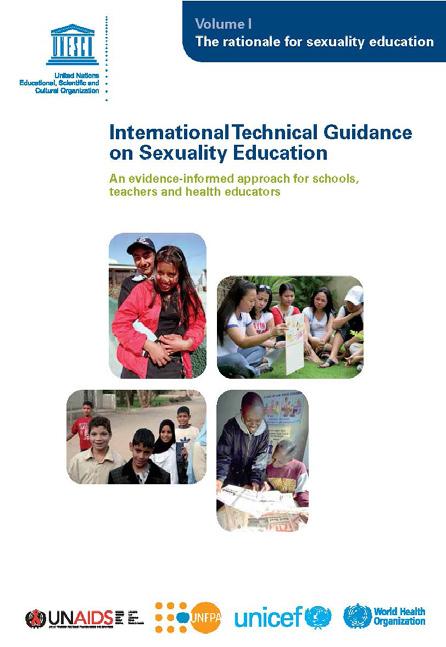
HUMAN RIGHTS IN THE COMMONWEALTH 42 | The Parliamentarian | 2024: Issue One | Over 100 years of publishing
Image: Parliament of Cyprus.
REPRESENTATION AND PARTICIPATION: YOUNG PEOPLE AND PARLIAMENTS
Introduction
This article aims to provide information on the importance of youth participation and representation in the work of Parliament. It also highlights international practices on youth participation in Parliaments, and also mentions the factors and barriers that hinder the active participation of young people in Parliament before providing possible solutions or the way-forward that international Parliaments have taken to address the under representation and participation of young people.
What is Youth Representation and Participation?
The participation of all citizens in formal political processes is fundamental for democracy. If a segment of the population is deprived of the right to vote or is disengaged, the representativeness and legitimacy of these processes is undermined. Although young people participate in political processes in multiple ways, their representation in formal political processes is limited. There is a growing recognition, however, that young people’s involvement is critical to making Parliaments more representative, especially considering that young people make up a large amount of the total population in many countries. In the Commonwealth's 56 member countries, 60% of the combined population of 2.5 billion people are under 30 years of age.
Youth Representation refers to a deliberate and formal representation by young people through their elected or nominated structures in community-based governance structures. 1 One example is the Samoa National Youth Council.
Samoa National Youth Council (SNYC)
The Samoa Youth Council is a non-Governmental Organisation established in 2012 to be the focal office for youth-driven activities in Samoa. There are more than 130 Village Youth Representatives who are active members of the Council. The Council undertakes Quarterly Forums with its members to discuss youth issues and projects that the Secretariat carries out.
These forums are also used to carry out awareness campaigns and programmes to help build the knowledge and capacity of the members. The Samoa National Youth Council recently participated in the 10th Commonwealth Youth Ministers Meeting in London, UK in September 2023.
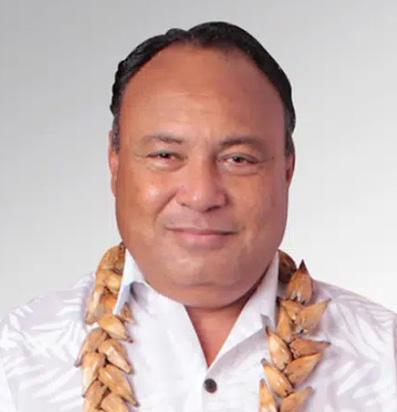
The Importance of Youth Participation
The Inter-Parliamentary Union (IPU) and the Commonwealth Parliamentary Association (CPA) have noted the importance of youth participation and encouraged Parliaments to empower young MPs in their Legislatures as the younger generation are the future of any democracy. Today’s youth are tomorrow’s leaders, with young people bringing new ideas and fresh insights on youth issues, yet they continue to be under-represented in Parliament.
In 2010, the Inter-Parliamentary Union adopted a resolution on youth participation that led to the creation of the ‘Forum of Young Parliamentarians’, which encourages the participation of young people in Parliaments and ensures that young MPs play a full part in the work of their Parliament.
The Commonwealth Parliamentary Association promotes youth engagement as central to its work. This includes the Commonwealth Youth Parliament (CYP), which brings together young people for the Pan-Commonwealth event as well as the development of educational resources and outreach programmes for Parliaments to engage with young people and increase awareness of the CPA in promoting democratic governance across the Commonwealth. These programmes also connect Parliamentarians with young people in schools, colleges and universities to inspire the next generation of young leaders.
For political systems to be representative, all parts of society must be included. To make a difference in the longer term, it is essential that young people are engaged in formal political processes and have a say in formulating today's and tomorrow’s politics. Inclusive political participation is not only a fundamental political and democratic right, but also crucial to building stable and peaceful societies and developing policies that respond to the specific needs of younger generations. For young people to be adequately represented in political institutions, processes and decision-making, they must know their rights and be given the necessary knowledge and capacity to participate in a meaningful way at all levels.
The benefits of youth participation and representation in Parliaments
1. The voices of young people are heard and empowered: A more youth-inclusive Parliament can help counter perceived disempowerment or social and political exclusion of youth.
Hon. Au'uapaau Mulipola Aloitafua, MP is the Deputy Speaker of the Legislative Assembly of Samoa. He was first elected to the Parliament of Samoa in the 2021 Samoa general election. He is a member of the FAST Party and was nominated by his party to be the Deputy Speaker in 2021. He was educated at Avele College and worked previously at the Post Office and Polynesian Airlines before running a consultancy service for the Land and Titles Court
The Parliamentarian | 2024: Issue One | Over 100 years of publishing | 43
REPRESENTATION AND PARTICIPATION: YOUNG PEOPLE AND PARLIAMENTS
1What is youth representation, accessed at https://www.igi-global.com/dictionary/youth-participation-andrepresentation-in
References:
-community-governance-at-cato-manor-township-durban/74331
More young MPs can be an effective way to give voice to young people and to empower them politically.
2. Addressing youth issues effectively: Inclusion of youth in Parliament must demand greater parliamentary attention to ensure the concerns of the young citizens are heard, such as higher education reforms, youth unemployment or any form of discrimination against youth. Young people are more aware of the issues affecting their lives and therefore their input in solving these issues is crucial. This applies to building stable and peaceful societies, and developing policies that respond to the specific needs of younger generations.
3. Youth as agents for change in democratic institutions: There have been many young people involved in movements for change worldwide. They take to the streets through protests or online social networks, where they express their concerns and campaign for change. They are fighting for sustainable development and a better future for current and new generations. As the youth are the leaders of tomorrow, it is important to encourage active youth involvement as they possess the energy, the innovation and they bring fresh and creative ideas.

What mechanisms or tools might Parliaments use to ensure better representation for future generations?
1. Making Parliament more accessible to ‘hard to reach’ communities – inviting young people to observe the operations of Parliament and building their understanding on the processes that take place in Committees and during Parliamentary proceedings.
Barriers to young people’s parliamentary participation
1. Cultural norms: Research has shown that the majority of traditional family authority causes problems between parents and young people. The adult and parental mindset are sometimes influenced by social attitudes and stereotypical thinking; therefore, a lack of parental support can be one of the main barriers to active participation from young people.
2. Economic and physical circumstances: In some jurisdictions, the economic and physical ability of young people have hindered active participation in political life. There are also crisis factors that some young people can encounter such as family violence, psychological problems and other domestic matters which they must properly address before they can actively participate.
3. Lack of relevant skills and training: Another barrier to young people working effectively with their peers includes the lack of skills and adequate training in relevant areas, such as leadership, communication, social development and a lack of understanding and training in Committee-related roles and responsibilities.
4. Time and money (resources): As many young people are students (or engaged in education or training), they often do not have any income and they have to attend school or college. Therefore, a lack of time due to school and training obligations may prevent young people from devoting as much energy as they would like to involve themselves in activities that are community or politically based. A lack of financial resources has been cited as a primary barrier to initiating youth-led activities.
2. The introduction of Member’s Interface programme: This programme allows young people to meet with an individual Member of Parliament to discuss issues that are important to them and to make their voices heard through oral and written submissions.
3. The initiation of Youth Parliaments to advocate on youth matters and have their voices heard and recognised will help to engage young people. Furthermore, encouraging young people to use their energy and passion to change the world for the better, especially in the Pacific Region. In a Region where climate change remains a threat as well as the increase of nonCommunicable Diseases, young people can be encouraged to engage their energy and use their time wisely to engage with social issues. By exposing young people to important social matters, they can learn that they can make a great difference if issues are addressed early.
Conclusion
To conclude, youth representation and participation is important for a number of reasons, and it values and recognises the needs and issues affecting young people. Furthermore, it is healthy for democracy to empower the younger generation to have their voices heard and to utilise their time on the matters that are most important to them. Youth participation promotes healthy and inclusive societies and ensures that the future is handed on to individuals who are well prepared to uphold the democratic principles of good governance. It also ensures that all voices are heard, and no one is left behind.
This article is based on a presentation given by the author at the 40th CPA Australia and Pacific Regional Conference in Queensland from 1 to 3 November 2023 on the theme of ‘Representation for the Future: Young People and Parliaments’.
REPRESENTATION AND PARTICIPATION: YOUNG PEOPLE AND PARLIAMENTS 44 | The Parliamentarian | 2024: Issue One | Over 100 years of publishing
The Members of the Samoa Parliament at the 40th CPA Australia and Pacific Regional Conference in Queensland.
Image: Queensland Parliament.
THE INFLUENCES OF CIVIC EDUCATION ON YOUTH POLITICAL PARTICIPATION
THE INFLUENCES OF CIVIC EDUCATION ON YOUTH
POLITICAL PARTICIPATION
Introduction
Civic education is a fundamental component in nurturing active and engaged citizens. In recent years, there has been a growing interest in understanding how civic education impacts youth political participation. This article explores the importance of civic education and youth participation. It also provides approaches for a wayforward to encourage and enhance Samoa’s youth participation, along with what has been implemented to date, in order to further strengthen its youth political participation.
What is civic education and why is it important?
Civic education, also known as civics or citizenship education, is a field of study that focuses on teaching individuals about their rights, responsibilities and roles as active and informed members of a democratic society. It is designed to prepare individuals to participate in the civic and political life of their communities, nations and the world at large and the following are some reasons why it is important:1
1. Promotes Democracy: Civic education is fundamental to the health and functioning of a democracy. Informed and engaged citizens are more likely to participate in the political process, to vote and to hold their leaders accountable.
2. Protects Rights: It ensures that citizens are aware of their rights and responsibilities, helping to safeguard individual freedoms and promote social justice.
3. Counters Misinformation: In an era of abundant information and misinformation, civic education helps individuals develop critical thinking skills, enabling them to discern credible sources from unreliable ones and to engage in debate on a given topic.
4. Fosters Active Citizenship: Civic education encourages people to take an active role in their communities, leading to positive social and political change.
5. Strengthens Social Cohesion: It promotes understanding and tolerance among people of different backgrounds, reducing social divisions and fostering a sense of shared identity and purpose.
6. Prepares Future Leaders: Civic education can help nurture the next generation of leaders who are well-informed, ethical and committed to serving the public interest.2
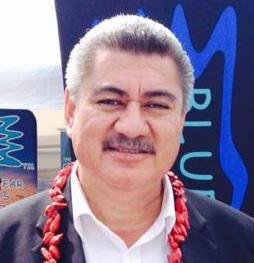
What is youth political participation and why is it important?
Youth political participation refers to the engagement of young people in political activities and civic affairs. This involvement can take various forms, including voting, running for office, attending public meetings, engaging in political discussions, volunteering for campaigns and advocating for social and political causes.3
The following are some of the principles of why youth participation is vital:
1. Representation: Young people make up a significant portion of the population, and their voices and perspectives should be represented in the political process. Without youth engagement, there is a risk that policies and decisions may not fully address the needs and concerns of this demographic.
2. Democracy Strengthening: Youth engagement is vital for the health and vitality of a democratic society. It fosters a culture of active citizenship and helps ensure a government that is responsive to the diverse interests of its citizens.
3. Inclusivity: Encouraging youth political participation promotes inclusivity and diversity in political decision-making. It helps create a more representative and equitable government that considers a wide range of perspectives.
4. Policy Impact: Young people often bring fresh perspectives, innovative ideas and a focus on long-term issues such as climate change and social justice. Their engagement can lead to policy changes that benefit society as a whole.
5. Education and Empowerment: Participating in the political process, whether through voting or activism, is a valuable form of civic education. It empowers young people to understand how government works and how to effect change through democratic means.
6. Leadership Development: Involvement in political activities can foster leadership skills, networking opportunities and a sense of responsibility, contributing to the development of future leaders.
7. Preventing Apathy: Encouraging youth political participation helps combat political apathy and disengagement. When young people feel their voices matter, they are more likely to stay engaged in politics throughout their lives.
Hon. Fonotoe Pierre Lauofo, MP is a Member of the Parliament of Samoa and was first elected in a by-election in 2005 and subsequently re-elected in the 2006 general election. He has held many roles in Parliament, including Deputy Prime Minister, Leader of the Opposition and Minister of Trade, Labour, Industry and Commerce. He is a member of the Human Rights Protection Party
The Parliamentarian | 2024: Issue One | Over 100 years of publishing | 45

8. Civic Responsibility: Engaging in political activities fosters a sense of civic responsibility and a commitment to the welfare of the community and society at large.4
However, it is important to note that there can be barriers to youth political participation, such as voter registration challenges, lack of information or a perception that their voices won't be heard. To promote youth engagement, efforts should be made to address these barriers, provide educational opportunities and create spaces for young people to voice their concerns and ideas. Encouraging mentorship and support from older generations can also help inspire and guide young people in their political involvement. Overall, youth political participation is crucial for the well-being and vitality of democratic societies.
What has the Office of the Clerk of the Legislative Assembly (OCLA) and the Parliament of Samoa done to provide youth participation in the political affairs of our nation?
The OCLA’s main role for Parliament is to assist and support them with their mandated functions such as providing adequate information and ensuring the public are well informed and have access to published documents (especially legislation passed by the Parliament). Through this, one of the divisions of the OCLA is
called the Community Relations Service – their primary objective is promoting the OCLA’s service and how essential the role of Parliament is in Samoa. In this regard, they play a vital role in engaging with the people through their programmes. One of their programmes is designed specifically for the youth, namely the Youth Parliamentary Programme. The youth programme has been conducted once a year ever since this division was established in 2013. This programme creates a path for young people to participate and have the opportunity to be present in a Parliament sitting.
The following are other activities conducted through this programme:
• Presentations on the role of each division in OCLA.
• Presentations on the functions of Parliament.
• Presentations on the mandated legislation of Parliament and OCLA.
• Mock Parliament on topics such as Same-Sex Marriage, Women in Parliament etc to encourage debate and critical thinking.
THE INFLUENCES OF CIVIC EDUCATION ON YOUTH POLITICAL PARTICIPATION 46 | The Parliamentarian | 2024: Issue One | Over 100 years of publishing
Above: The Parliament of Samoa regularly holds youth engagement and parliamentary education programmes bringing together young people to learn about Parliament and to speak to Members of Parliament. This event is the 4th Parliamentary Youth Programme in March 2020.
Image: Parliament of Samoa.
Way Forward
Encouraging youth participation in Samoa, as in any other country, is essential for fostering civic engagement, empowering young people and ensuring a vibrant and sustainable future.
Here are some ways that have been utilised to encourage youth participation in Samoa, along with international best practices that can be adapted to the local context:
1. Youth Engagement Programmes: Implementing youth engagement programmes that focus on leadership development, communication skills and civic education. These programmes can be both formal (in schools or community centres) and informal (youth clubs or online platforms).
2. Civic Education: Incorporating civic education into the school curriculum to teach young people about their rights, responsibilities and the importance of civic engagement.
3. Youth-Friendly Policies: Developing policies that are youthfriendly and take into account the unique needs and aspirations of young people. Ensuring that young peoples’ voices are considered in policy development.
4. Digital Platforms: Utilising digital platforms and social media to engage young people in discussions, surveys and information dissemination. Many young people are active on these platforms, making them effective tools for outreach.
5. World Parliament Day or International Youth Day: In accordance with the IPU and the Commonwealth Parliamentary Association, ‘World Parliament Day’, or the UN International Day of Parliamentarism, is celebrated every year on 30 June.5 Another example is UN International Youth Day, which is celebrated every year on 12 August.6 Although, these have been at the forefront of discussions for the OCLA, these have yet to be executed. However, these are great initiatives that would let the people of Samoa know the importance that Parliament places on youth participation.
International Best Practices
Around the world, many Parliaments have adopted different methods for their youth engagement that have been shared across the network.
Youth Quotas:
Some countries like Kenya and Uganda have adopted youth quotas in political decision-making bodies, ensuring a certain percentage of positions in their Parliaments are reserved for young people.7
Youth Parliaments:
• New Zealand: The Parliament of New Zealand introduced its first Youth Parliament in 1994 to get its young people involved and to have the opportunity for young New Zealanders to learn first-hand about its democracy and have their voices heard. It is important to note that the New Zealand Youth Parliament is held every three years and is usually a two-day event.8
• United Kingdom (UK): From 1998-2001, the UK Youth Parliament was conceived, and it was officially proposed in the UK House of Commons by the MP for Faversham, Hon. Andrew Rowe, MP through a ten-minute rule Bill. He believed that the creation of a Youth Parliament in the UK would give
young people a voice on the issues that matter to them.9 The first sitting of the UK Youth Parliament took place in 2001 and the annual event is often chaired by the Speaker and Deputy Speakers of the House of Commons.
• Commonwealth Parliamentary Association: The annual Commonwealth Youth Parliament (CYP) is hosted by different CPA Regions and each CYP has a main theme that is debated by more than 50 young people from across the Commonwealth. The programme also involves young Members of Parliament from across the Commonwealth who participate as mentors. Participants experience life in the parliamentary spotlight and gain practical experience of the parliamentary system whilst learning how the next generation would approach parliamentary politics.10
Conclusion
Civic education is a vital tool for enhancing youth political participation and plays a crucial role in building and maintaining vibrant, democratic societies by empowering individuals with the knowledge, skills and values needed to participate actively and responsibly in their communities and governments. To maximise its impact, policymakers, educators and stakeholders must prioritise and invest in effective civic education programmes, ensuring that the next generation is well-prepared to contribute to the democratic process.
This article is based on a presentation given by the author at the 40th CPA Australia and Pacific Regional Conference in Queensland from 1 to 3 November 2023 on the theme of ‘Representation for the Future: Young People and Parliaments’.
References:
1 The Importance of Civic Education (kidcentraltn.com)
2 Why is Civic Education important? – Civics Academy (https://civicsacademy.co.za/ why-is-civic-education-important/)
3 The Power of Youth Politics: What is Youth Political Participation? (https:// politicalmarketer.com/youth-politics-youth-political-participation/)
4 360participation - » The Importance of Young people participation in the process of creating youth policy (https://360participation.com/the-importance-of-youngpeople-participation-in-the-process-of-creating-youth-policy/)
5 The International Day of Parliamentarism is celebrated every year on 30 June https://www.un.org/en/observances/parliamentarism-day
6 International Youth Day - https://www.un.org/en/observances/youth-day
7 Quotas for Youth — (aceproject.org)
8 New Zealand Youth Parliament - https://www.myd.govt.nz/young-people/youthparliament/
9 UK Youth Parliament - https://www.byc.org.uk/uk/uk-youth-parliament
10 CPA’s Commonwealth Youth Parliament - https://www.cpahq.org/our-networks/ youth-engagement/
THE INFLUENCES OF CIVIC EDUCATION ON YOUTH POLITICAL PARTICIPATION The Parliamentarian | 2024: Issue One | Over 100 years of publishing | 47
TAKING YOUTH ENGAGEMENT SERIOUSLY
A case study from the Parliament of Victoria in Australia.
Why is youth engagement important?
According to the latest Census, 37.2% of the State of Victoria’s population is under 30 years of age. Nationally it’s virtually the same at 37.1%. In the Northern Territory it’s as high as 42.9% where the median age is 33.
If Parliaments don’t engage with young people, that’s over a third of the population that aren’t part of the conversation. Having young people as part of the conversation can only positively extend into their adult lives as these foundational experiences carry them through. In this article, I will share what we’ve learnt from young people, and what young people have told us through our youth engagement work at the Parliament of Victoria.
What matters most to young people?
There is no one answer to that question. There are no surprises that young people are not one homogenous group with the same interests and concerns. That’s why consultation is important.
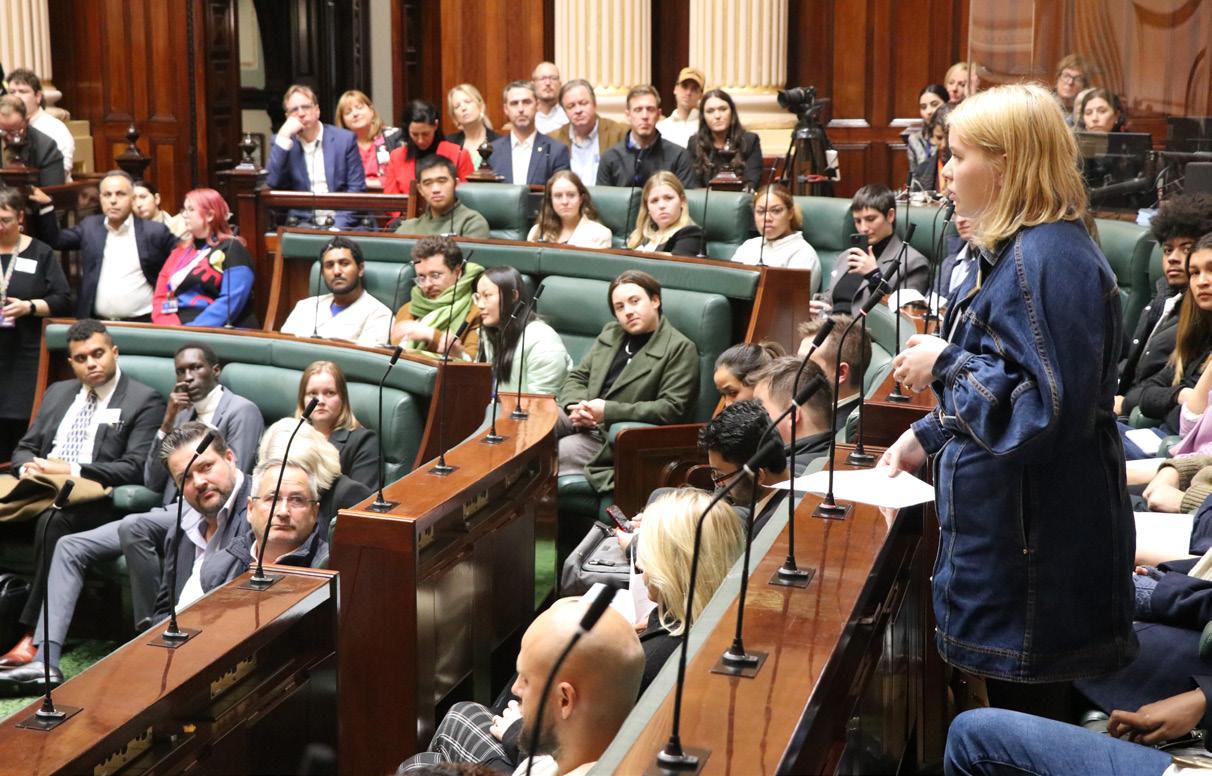
• masculinity
• body image
Earlier this year, the Parliament of Victoria held a youth forum where 60 young people from across the state were invited to Parliament House to tell Parliament what mattered to them. They told us that what mattered the most was:
• climate change
• mental health
• cultural inclusion
• LGBTQIA+
• First Nations issues
• employment and education
• housing and homelessness
• regional and rural issues
• young people in decision making platforms.
At the time of the youth forum, I held two part-time roles, one at the Parliament of Victoria and the other in local government at the Banyule Council. In the same month we held the youth forum, I also held a similar event at Banyule. We went through a similar process to ascertain what matters most to young people. While some issues were consistent between both (climate change, mental health, cultural inclusion, LGBTQIA+), Banyule’s young people also wanted to talk about:
• gender equality

• alcohol and other drugs
• disability
• neurodiversity.
Which goes to show that you can go through the same process with two different groups of young people and receive very different results. It’s safe to say that we should never assume what issues are a priority for young people.
At the Parliament of Victoria’s youth forum, a consistent message shone through - which was that “every issue is a youth issue.” Young people don’t want to be just consulted about what we might consider a traditional youth issue – they want to be consulted about everything.
Everything we do has an impact on young people, whether it’s now or into the future. We also need to acknowledge that young people are not just the leaders of the future but are already leaders in their communities, in workplaces and in social change. So, they are very much deserving of a seat at the table.
However, in consulting young people we need to consider whether our usual methods of engagement are appropriate when reaching out to younger constituents. An example of this is the Committee inquiry process. Keeping in mind that every issue is a youth issue, young people’s input is important but it’s unlikely they’ll go through the formal submission process.
Naomi Simmonds is a Senior Engagement Advisor at the Parliament of Victoria. Naomi spent 30 years in youth engagement at the local government level before joining the Community Engagement Unit at the Parliament of Victoria as the youth and community partnerships coordinator. She is now in the senior engagement adviser role, connecting with people who experience barriers to participation with Parliament.
48 | The Parliamentarian | 2024: Issue One | Over 100 years of publishing
Above: A 'State of the Future' debate held at the Parliament of Victoria for young people.
TAKING YOUTH ENGAGEMENT SERIOUSLY IN PARLIAMENTS
Image: Parliament of Victoria.
The Parliament of Victoria’s Public Accounts and Estimates Committee recently recognised the importance of consulting young people on the issues of gambling and liquor regulation, and gambling harm. A youth roundtable was held as a way of facilitating conversations between MPs, members of the secretariat and young people to inform the inquiry.
We pride ourselves that our engagements are genuine and not tokenistic. We’re not interested in a photo opportunity without substance. Young people want to see genuine engagement and action. We also need to be accountable. That means maintaining communication and relationships.
How to engage with young people?
Another message we hear consistently is that young people want Parliament to engage with them in the places and spaces they frequent (schools, unis, sporting clubs, etc). We can’t always expect young people to come to us.
When we wanted to hear from young people about their experiences in relation to the conduct of the 2022 state election, we took a young journalism student and a camera out front of the State Library, to ask them directly.
An effective way to consult with young people is to set up a youth advisory group. A number of MPs, government departments, local councils, etc have youth advisory groups. Done well, youth advisory groups can be effective. However, youth advisory groups shouldn’t be where conversation with young people ends, they should be the starting point. It’s important that we don’t rely on the feedback of that small group of young people as the ‘be all and end all’. If you have youth advisory groups, I’d encourage you to support your Members to hold their own focus groups or conduct surveys and polls to get broad and diverse input. Be mindful of always hearing the same voices and try to engage with the less engaged.
MPs are often very welcoming, inviting constituents to get in touch with them. However, be mindful of barriers for young people that come with that invitation. Visiting an electorate office can be intimidating and transport may be an issue. While every young person has a phone, they rarely use it for calling, phone conversations for young people can take them out of their comfort zone. In addition, young people are increasingly not on social media platforms like Facebook.
Communicating with young people via their preferred channels
When we ask young people about the best way to communicate our messages to them, they usually tell us that we need to be on Tik Tok Tik Tok is obviously problematic. There are the well-understood security implications and then there’s the cringe factor – you need to really understand the platform and create appropriate content for it to work. However, Tik Tok’s popularity has led to other platforms hosting short form content like stories and reels on Instagram and shorts on YouTube. They’ve worked well for us in our social media outreach.
LinkedIn is another platform where you’ll find young people. We’ve found our engagement on LinkedIn has increased dramatically following our efforts to engage with young people and share youth created content. Young people are great networkers and are seeking connections for work or with people and organisations that share their values. As a bonus, it’s a platform
where almost everyone is respectful. I’d recommend using LinkedIn as an engagement tool with young people if you’re not already. A key way to engage with young people on these platforms is to support young people to create the content themselves. Some projects we’ve implemented include:
• Parliament Express, a program for young writers who are provided with workshops and mentoring around parliamentary processes and basic journalism skills. They then go on to write an article about Parliament which is published on our website.
• We’ve worked with a young filmmaker to produce a series of interviews on the topic of leadership in the lead up to the 2022 state election, asking young people what qualities they look for in their leaders.
• We've engaged a youth social enterprise to create a series of videos about Parliament.
• We’ve also teamed up with SYN Media to produce a 6-part podcast series called Unpack Parliament where the young people devised episodes around topics they were interested in, such as a day in the life of an MP, working and interning for Parliament and how to get your voice heard.
We are fortunate to have a number of youth organisations that have brought their expertise and level of professionalism to our projects. However, these projects could also be done using community radio stations or even a young person with a mobile phone and a basic video editing app.
We’ve also found we’ve had high engagement with youth produced content, even when the target audience isn’t necessarily young people. A series of reels that we created for the annual Heritage Festival has been one of our highest performing items of social media content to date.
What’s in it for young people?
With so much competition for a young person’s time and attention, there needs to be an incentive for young people to connect with their local MP or with their Parliament. They also need to appreciate the relevance of the work of Parliament in their lives. Taking some time to explain the roll they can play in informing an inquiry, the attention to an issue that a petition can attract or recent Bills that impact their lives can be a good place to start.
Exchanges need to be mutually beneficial, not just an opportunity for Parliament or MPs to get what we need out of the interaction, no matter how noble our cause. Consider what we can we offer them – skill building, connections, opportunities, something for their resume, a reference or payment.
What’s in it for Parliament?
Our youth engagement work has led towards the development of meaningful connections with young people. This work has seen young people continue to engage with us past the life of the projects they signed up for. This might mean they pitch freelance articles to us, involve themselves in Committee inquiry processes or share our social media posts.
By seeing that we are wanting to invest in them, and that our interactions are genuine, young people are organically becoming ambassadors for Parliament. This deeper level of engagement can only be a good thing for democracy.
The Parliamentarian | 2024: Issue One | Over 100 years of publishing | 49
YOUTH ENGAGEMENT SERIOUSLY IN PARLIAMENTS
TAKING
HOSTING A DISABILITY OUTREACH EVENT IN YOUR PARLIAMENT
HOW TO HOST A DISABILITY OUTREACH EVENT: THE SCOTTISH PARLIAMENT’S INAUGURAL DISABILITY SUMMIT
In November 2023, the Scottish Parliament hosted its first ever Disability Summit to mark International Day of Persons with Disabilities. In this article, a Member of the Scottish Parliament shares his experience of convening the summit, detailing why the Cross-Party Group wanted to host it, how the organisers made it as accessible as possible and lessons for other Parliaments looking to host a successful disability outreach event.
About a year ago, there was a conversation between myself and a number of others who sit on the Scottish Parliament Cross-Party Group on Disability in which we decided that there should be a summit at The Scottish Parliament to mark the United Nations International Day of Persons with Disabilities. We recognised that there had never been such an event to celebrate disabled people across Scotland by opening up their national Parliament to them. After months of careful planning, the Scottish Parliament’s first ever Disability Summit took place on Saturday 25 November 2023, and what a day it was.
The hybrid summit was hosted by the Deputy Presiding Officer, Hon. Annabelle Ewing, MSP (on my behalf as I joined the summit via video link) and Hon. Pam Duncan-Glancy, MSP, who are also the Convener and Deputy Convener of the Cross-Party Group on Disability respectively.
We were clear that the focus of the day should be on celebration. Too often events that bring together large numbers of disabled people focus on the negatives and can feel like glum affairs. This is, of course, understandable as disabled people face a myriad of problems that have historically been ignored.
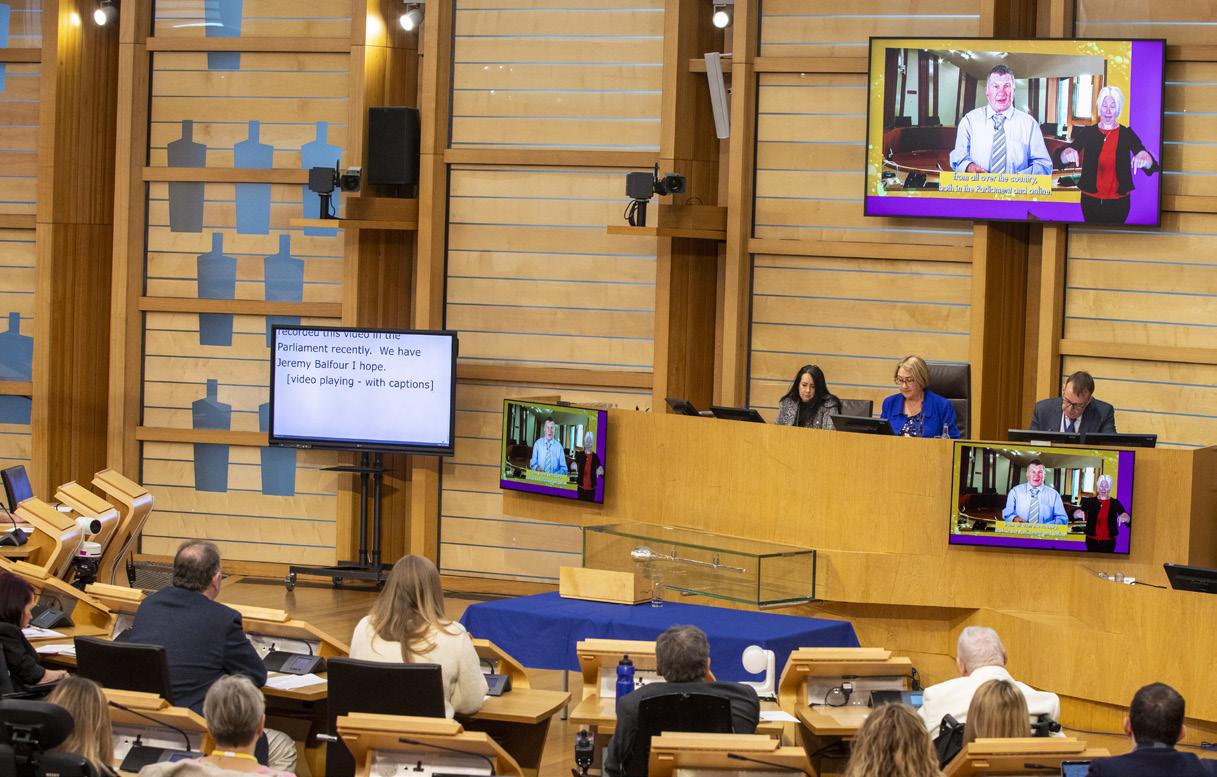
However, we were keen to focus on the monumental progress that has been made in recent years, while recognising that there is still a long way to go. In that vein, the tone of the day was upbeat, thankful and celebratory. Participants spoke about achievements and triumphs, there was live music from some talented performers and excellent food and drink were enjoyed. It really did have the feel of a party.
Due to the high levels of interest in the event, we could not accommodate everyone who wanted to take part in the Parliament Chamber itself. We therefore ensured that there was a high quality, interactive, online way that people could take part. They were encouraged to submit questions for the panels which were read
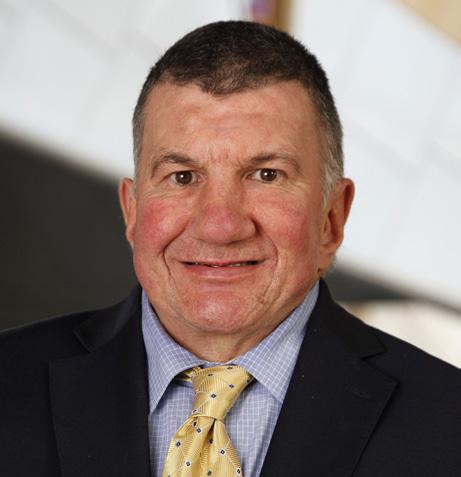
out in the Chamber. During comfort breaks and while in-person attendees were being situated, those online were given virtual tours of the Parliament which gave them a good idea of the layout of the building where so much happens that directly affects their lives. I can personally attest that the online experience was excellent as, due to a scheduled hospital stay, I was watching along. While it was obviously disappointing not to be there in person, I thoroughly enjoyed myself and learned a lot from the panellists.
It was incredibly important to us that we had a wide range of people from across the whole country represented in-person at the summit. There are a wealth of different experiences and perspectives in Scotland that we wanted to ensure had a voice on the day. In order to guarantee this, we did our best to spread the
Hon. Jeremy Balfour, MSP is a Member of the Scottish Parliament representing the Lothian Region since 2016. Jeremy is a member of two Parliamentary Committees on Equalities, Human Rights and Civil Justice, and Social Justice and Social Security. He is also a member of 18 cross-party groups including Convener of the Cross-Party Group on Disability. He recently became the CPA British Islands and Mediterranean Regional Champion for the Commonwealth Parliamentarians with Disabilities (CPwD) network.
50 | The Parliamentarian | 2024: Issue One | Over 100 years of publishing
Above: Hon. Jeremy Balfour, MSP delivers a virtual address to attendees at the Disability Summit in the Scottish Parliament. Accessibility measures included ‘live’ sign language interpretation and a screen with a live, large-text transcript.
Image: Katielee Arrowsmith, The Scottish Parliament.
HOSTING A DISABILITY OUTREACH EVENT IN YOUR PARLIAMENT
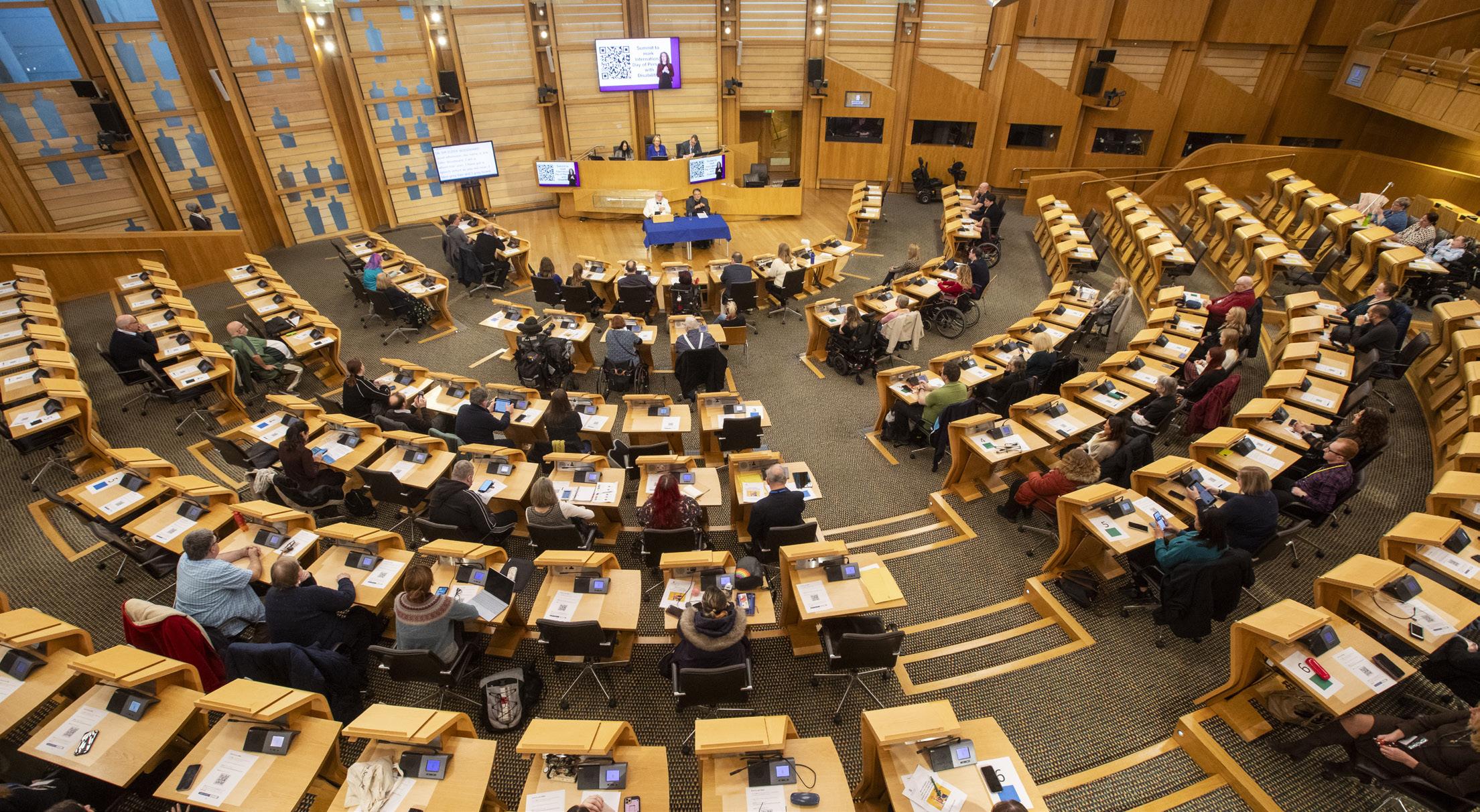
numbers between the Scottish electoral regions so that there were roughly even numbers from the whole country.
Those who joined in person were treated to a delicious lunch on arrival in the Garden Lobby before moving into the debating chamber for the plenary session. It was a very powerful sight to see the benches of our national Parliament filled with people with disabilities. Historically, people with disabilities have been held back and kept out of places where decisions are made, but on that day, they were welcomed in. What an incredibly special moment.
The panellists in the Chamber were fantastic. UK Parliamentarian and former Paralympic athlete, Baroness Tanni Grey-Thompson was incredibly inspiring, speaking about the need to look back at how far we have come as well as looking to the future progress that needs to be made. She also made reference to the work that must be done to make public transport accessible for all, and her dream that one day she can make use of trains without needing extra assistance.
Disability Rights Campaigner, Dr Jim Elder Woodward, OBE spoke powerfully on the need to include people with disabilities in policy discussions. The only way to get an accurate idea of the complexity of life with a disability is to consult those who have lived experience. As he said, there should be nothing for us without us.
Finally, we were treated to a panel discussion moderated by the Scottish Parliament’s Deputy Presiding Officer, Hon. Annabelle Ewing, MSP which included Members from all five major parties represented in the Scottish Parliament. It was amazing to hear such a constructive discussion that set aside party and political agendas and was focused on the needs of disabled people.
The summit was an incredible success. We are so happy with how the day went and we are already looking forward to holding the second biennial summit in two years’ time.
If other Parliamentarians from across the Commonwealth are looking to run a similar event, I could not recommend it highly enough. I would have a couple of specific recommendations for them to make the process as easy as possible.
Firstly, and most importantly, it is essential to get the ‘buy-in’ from the senior parliamentary managers and the Presiding Officer. We were so fortunate to have the full support of those who run the Scottish Parliament. They were so helpful in organising the logistics, scheduling, catering and press, and without this help, the event would not have been able to go ahead.
Secondly, do not ignore all the small details of the event. Inviting and accommodating over 100 people with disabilities is no small feat. We made certain that we had planned how to get people with accessibility needs around the Parliament Chamber and building, and we ensured that the menu for lunch and our drinks reception were accessible to all those who were invited. The registration process was made accessible to as wide a range of abilities as possible, and we created inclusive promotional content such as videos with sign language interpretation and easy-read documents. All of this meant that the day went smoothly.
Finally, make it a priority for the day to be fun and enjoyable. Far too often, events for people with disabilities can focus so much on access that they forget that it is meant to be a fun day. By making ‘celebration’ one of your key objectives, you can organise a day that people come away from with a real sense of fun.
The Parliamentarian | 2024: Issue One | Over 100 years of publishing | 51
Above: A full debating chamber in the Scottish Parliament on the day of the Disability Summit.
Image: Katielee Arrowsmith, The Scottish Parliament.
BUILDING PARLIAMENTARY NETWORKS TO PROMOTE GOOD MENTAL HEALTH
Building parliamentary networks is a key objective for the CPA and the connections made at CPA programmes can lead to further discussions across the Commonwealth. This example from The Scottish Parliament highlights the sharing of best practice on mental health support for Parliamentarians and parliamentary staff.
It was a great honour and privilege to be a mentor at the 2023 Commonwealth Parliamentary Association’s Advanced Parliamentary Development Residency Programme, which took place in October 2023 in my hometown of Edinburgh, Scotland, at the Scottish Parliament. Welcoming 27 delegates from as far afield as the Cayman Islands and Cyprus, New South Wales and Nova Scotia, and Saint Helena and Sri Lanka, was a joy. For five days, these representatives from Legislatures across the Commonwealth learnt and honed their skills in scrutinising and refining legislation, communicating, presenting and influencing, whilst increasing their capacity around analysis, planning, evaluation and research. Furthermore, they established strong networks of like-minded peers from across the Commonwealth to provide long-term mutual support and guidance.
Lasting friendships were made. Indeed, as I write this article, the CPA Residency Programme WhatsApp group is still going strong, and a message has just popped in to a freezing Edinburgh from an island in the Caribbean.
Throughout the course of the week, the delegates scrutinised a Bill through all of its parliamentary stages, developing their law making, influencing, negotiating and speech-making skills, as well as considering how to engage key stakeholders in shaping legislation. One of the week’s highlights was the visit to a community project in Edinburgh. As mentors, Ruth Maguire, MSP, Martin Whitfield, MSP (two Members of the Scottish Parliament), Senator Hon. Alincia Williams-Grant (President of the Senate of Antigua and Barbuda) and I provided advice and assistance to the delegates as they developed those skills. The week also allowed the delegates to share experiences that were common to Parliamentarians across the Commonwealth.

One issue that arose consistently was that of the importance of actively taking steps to maintain good mental health as a Parliamentarian whilst managing and balancing the pressures of constituency, parliamentary and personal life. In an environment where words of encouragement may be few, support is sometimes limited, and pressures are occasionally overwhelming. Often, incoming communication on social media and other platforms may from time to time (or sadly, more regularly) be downright hurtful and offensive. The CPA Parliamentary Academy Residency Programme, and the connections built up through it, allowed delegates to discuss these matters in a safe environment, where they could be candid and frank about the challenges.
The CPA has published an extremely helpful Mental Health Toolkit for Commonwealth Parliaments, drawing on authoritative research and practical examples from different Legislatures across the Commonwealth, and providing links to useful resources such as information on how to develop mental health first aid in a workplace. The Toolkit is available at the CPA website1 and is a worthwhile read for Members, Members’ staff and parliamentary staff alike.
The importance of maintaining positive mental health whilst working in a Legislature is something that I am personally involved in. For the past year I have been Co-Chair of the Scottish Parliament’s Mental Health Network, which is one of several staff networks across the organisation. The Network exists to promote positive mental health among staff of the Scottish Parliament, as well as Members and their staff, supporting Network members to be open and free to talk about issues of wellbeing. The Network also acts as a vehicle for the sharing of ideas, articles and tips around mental health, and how each of us can develop our own best strategies to maintaining good mental health. We have done this through, for example, hosting chat cafes and world cafes, linking to
Neil Stewart is a Senior Clerk at The Scottish Parliament with over 20 years’ experience. During the COVID-19 pandemic, he worked in the Parliamentary Business Team helping to establish systems for hybrid participation in proceedings. He has held a number of key roles in Parliament including advising the Presiding Officer on the legislative procedure and supporting Members on amendments to Bills. From 2009 to 2011, he undertook a secondment to the UK Government where he was Private Secretary to the Secretary of State for Scotland, then Parliamentary Clerk in the Scotland Office, supporting Ministers to deliver the department’s business in the UK Parliament. He is currently Co-Chair of the Scottish Parliament’s Mental Health Network.
52 | The Parliamentarian | 2024: Issue One | Over 100 years of publishing
BUILDING PARLIAMENTARY NETWORKS TO PROMOTE GOOD MENTAL HEALTH
external articles, publishing articles by our own members on how they care for their own wellbeing, and running a series of recorded conversations, where two or three individuals discuss a particular aspect of wellbeing and challenges that they have faced.
For example, earlier this year as part of our annual theme of maintaining good mental health whilst juggling caring responsibilities, we produced a recorded conversation between two colleagues who had become fathers during the pandemic. They reflected on the challenges that this posed for their wellbeing and their respective partners, and the way they dealt with this. It was simultaneously witty and light-hearted yet moving and challenging, and was very well received. Two years ago, I participated in a recorded conversation on wellbeing during the pandemic, reflecting on how I dealt with a period of anxiety when I was involved in keeping the parliamentary show on the road and rolling out remote participation and voting during COVID-19. I approached this conversation with some trepidation. On one hand, I had a burning desire to share my experience as a forty-something, otherwise outwardly successful male, of anxiety, the burden of work-related stress, depression and seasonal affective disorder, to encourage others to be open and to do my bit to remove stigma. At the same time, the idea of talking fairly openly for 30 minutes to a relatively large group of colleagues about my struggles was daunting, and, frankly, it would not have been appropriate to share everything I had experienced in that particular context. Having a clear structure to the conversation, a loose script and an excellent facilitator helped to ensure that an appropriate balance was struck.
It was clear that, as with other recorded conversations the Network has facilitated, this conversation struck a chord with many people across the organisation. Recorded conversations, where colleagues can either join live or watch/listen on catch up as one would for a podcast or the like, have proved to be extremely useful in sharing experiences and encouraging and helping others.
As already mentioned, the Network’s theme for the past year has been caring responsibilities and the impact of this on wellbeing. This was developed following feedback from colleagues that one of the biggest challenges facing staff across the organisation is balancing responsibilities to care for a range of loved ones, from young children to older parents. The rising age profile of the organisation, meaning that there are more sandwich carers2 in the organisation, many of whom struggle to balance work, life and responsibilities to give care to loved ones, means that these issues are more live and prescient across the organisation. The Network has sought to provide a space for colleagues to share about the challenges they face balancing caring responsibilities (both formal and informal) with work and wellbeing more generally. The Network has also sought to signpost to resources and organisations, and to support the Parliament in developing its own resources and partnerships.
The Network also works closely with the Parliament’s own trained Mental Health First Aiders, who provide an invaluable support to staff across the organisation. Further information and relevant links on how to establish mental health first aiding in an organisation is available on pages 32 and 33 of the CPA Toolkit.
It is clear from my work with the Network, and from my work with the CPA, that maintaining positive mental health and taking wellbeing seriously is vital for all Legislatures. Whether it is through
the establishment of Networks or mental health first aiders to enable people to receive support in a confidential environment or through other contextually appropriate means, Legislatures should prioritise wellbeing in the organisational culture they set, in order to have a high performing, engaged and motivated staff.
It is heartening to read in the CPA Toolkit of the steps being taken by Parliaments across the Commonwealth to make this a priority. From the Parliament of Tasmania taking steps to address systemic issues that may impact mental health3 to the partnership that the Legislative Assembly of Ontario has developed with the Canadian Mental Health Association to offer webinars for Parliamentarians,4 and the online mental health support tool offered by the Parliament of Malaysia,5 to name but a few, there are many steps being taken across the Commonwealth that demonstrate that taking mental health and wellbeing seriously is something that Commonwealth Legislatures are accurately aware of and attuned to.
Reflecting back on the CPA Parliamentary Academy Residency Programme, on one level I was saddened to hear the stories from new Parliamentarians across the Commonwealth about the impact that the weight of elected office and all that goes with it can have on mental health. Furthermore, it is depressing to hear that, across the globe, unpleasant things are said to Parliamentarians and their staff on social media, causing added stress, hurt and anxiety. At the same time, I was encouraged to see the support that these legislators offered each other (across party, cultural and ideological lines), combined with the support offered by the CPA, and the importance that Parliaments across the Commonwealth now place on wellbeing and good mental health. It is clear that good progress is being made.
And the WhatsApp group is still going strong. That’s a message just pinging in from Sri Lanka.
References:
1 The CPA’s Mental Health Toolkit for Commonwealth Parliaments is available at the CPA website www.cpahq.org, via the following link https://www.cpahq.org/media/ cczlingr/mentalhealth_toolkit_final_web.pdf or by emailing hq.sec@cpahq.org.
2 ‘Sandwich carers: A lot of carers find themselves looking after frail and disabled elderly relatives as well as their own children. This group is called ‘sandwich carers’ and there are lot of them.’ – see www.actionforcarers.org.uk
3 P35 of the CPA Toolkit - mentalhealth_toolkit_final_web.pdf (cpahq.org)
4 P34 of the CPA Toolkit - mentalhealth_toolkit_final_web.pdf (cpahq.org)
5 P16 of the CPA Toolkit - mentalhealth_toolkit_final_web.pdf (cpahq.org)
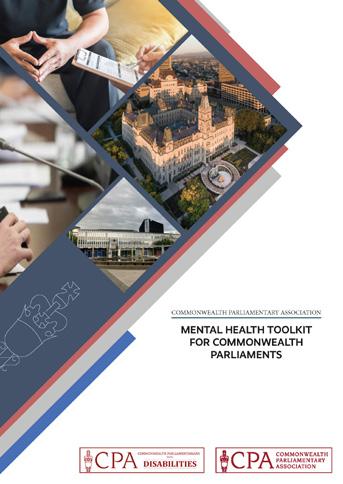
The CPA’s Mental Health Toolkit for Commonwealth Parliaments is available at www.cpahq.org or emailing hq.sec@cpahq. org. The CPA Parliamentary Academy offers online courses for Members of Parliament, parliamentary staff and anyone who wishes to learn about Parliaments and key thematic topics (free to access for CPA Branches) with in-person Residency courses held twice a year. Visit www.cpahq.org/parliamentaryacademy to register.
The Parliamentarian | 2024: Issue One | Over 100 years of publishing | 53 BUILDING PARLIAMENTARY NETWORKS TO PROMOTE GOOD MENTAL HEALTH
OUT OF ORDER: MANAGING UNPARLIAMENTARY LANGUAGE IN THE AUSTRALIAN HOUSE OF REPRESENTATIVES
In the Australian House of Representatives (the House), the use of unparliamentary language is governed by Standing Orders relating to Disorder. The Standing Orders outline the following instances of Disorder:
• 'A Member must not refer disrespectfully to The Queen, the Governor-General, or a State Governor, in debate or for the purpose of influencing the House in its deliberations.
• A Member must not use offensive words against:
• either House of the Parliament or a Member of the Parliament; or
• a member of the Judiciary.
• All imputations of improper motives to a Member and all personal reflections on other Members shall be considered highly disorderly.’2
Standing Order 91 further highlights that ‘a Member’s conduct shall be considered disorderly if the Member has ... used objectionable words, which he or she has refused to withdraw’. House of Representatives Practice (Reps Practice) also notes that ‘A Member is not allowed to use unparliamentary words by the device of putting them in somebody else’s mouth, or in the course of a quotation.’3
Other than the specific instances highlighted in Standing Orders 88-90, the Standing Orders do not define ‘objectionable words’. Reps Practice indicates that the decision rests with the Chair: ‘The determination as to whether words used in the House are offensive or disorderly rests with the Chair, and the Chair’s judgment depends on the nature of the word and the context in which it is used.’4
This is in line with Standing Order 60: ‘The Speaker, or the occupier of the Chair of the House at the time, shall keep order in the House’.
Unparliamentary language or conduct can be raised either by a Member as a Point of Order for the Speaker or Chair’s determination, or by the Speaker themselves. The Speaker is empowered by Standing Order 92 to intervene where a Member’s conduct may be offensive or disorderly. If the Speaker determines that the language

or conduct breaches the Standing Orders, the most common response is to request that the offending Member withdraw the unparliamentary language. In most cases, the Member does so. Other disciplinary measures are available to the Speaker under Standing Order 94, such as a direction to leave the Chamber for a one-hour period, or naming and moving to suspend the Member.
The role of the Presiding Officer
As highlighted by the Standing Orders, the Speaker is the ultimate arbiter for determining what constitutes disorder and, consequently, unparliamentary language. The Clerk of the House observes that the uncertain definition of what constitutes ‘unparliamentary language’ allows for the Speaker to take a principles-based approach: ‘The Speaker may be guided by relevant precedents and rulings by former Speakers, such as those cited in House of Representatives Practice. While it could be argued that the current absence of specific types of ‘offensive’ or ‘objectionable’ words in the Standing Orders is a concern, it does mean that the Speaker is not restricted if faced with unanticipated circumstances and can take context into account.’5
Similarly, the current Speaker of the Australian House of Representatives, Hon. Milton Dick, MP, highlights that the broad outlines contained in the Standing Orders enable the Speaker to reflect evolving community standards: ‘Speakers’ rulings over time have changed. In the same way that standards of dress have evolved since the first sitting of Australia’s Parliament, what constitutes acceptable language and behaviour has also evolved. For example, some inherently sexist language or behaviour may once have been somewhat tolerated but is no longer considered acceptable in contemporary Australia or in today’s Parliament. Similar comparisons can be made regarding actions that discriminate or are exclusionary based on race, disability, or sexual orientation.’6
The flexibility in practice enables the Speaker to adapt to both the context in the specific instance and to broader changes in society. As the Standing Orders in relation to unparliamentary
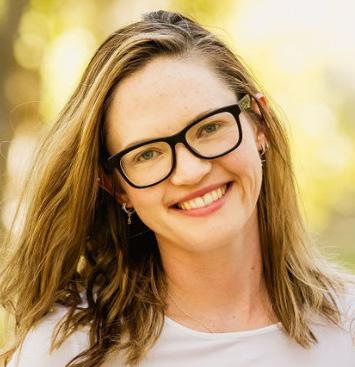
54 | The Parliamentarian | 2024: Issue One | Over 100 years of publishing
Joel Bateman and Ophelia Tynan 1 work at the Department of the House of Representatives at the Parliament of Australia.
MANAGING UNPARLIAMENTARY LANGUAGE IN PARLIAMENT
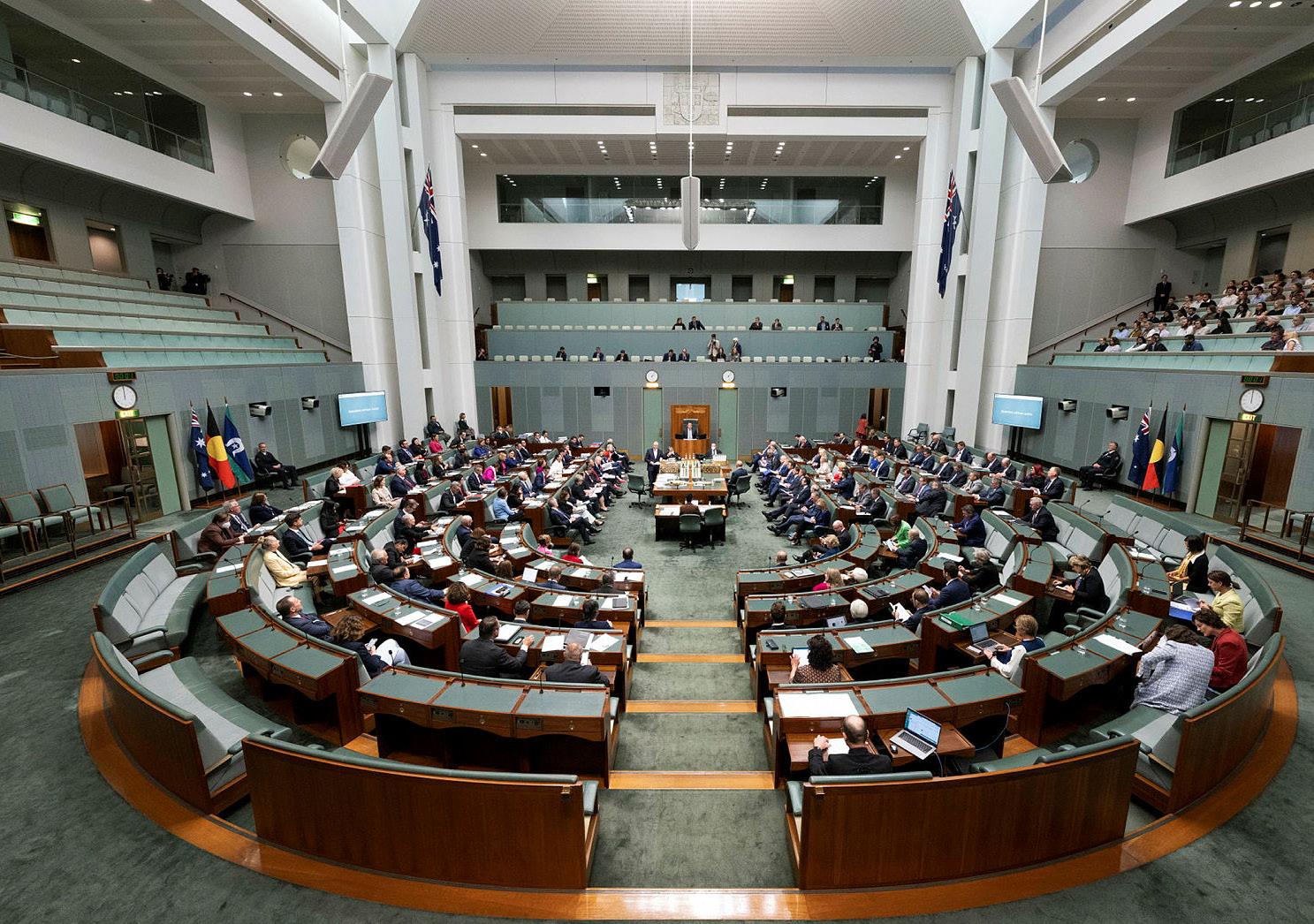
language and conduct have generally been interpreted to be applicable to a broad range of behaviours and language, they have been infrequently amended.7
Notwithstanding the Speaker’s capacity to flexibly respond to the situation at hand when making rulings, this can result in inconsistent rulings. As illustrated below, offensive language that may be considered a breach of Standing Orders may not be ruled out of order in a different context or under a different Chair.
Context is everything: Examples of unparliamentary language
For this article, we focus on both quantitative analysis of unparliamentary language in addition to several case studies from the House. This highlights how much context matters in unparliamentary language.
Study
of 2022-23 instances of unparliamentary language in the House of Representatives
Between 2 August 2022 and 22 June 2023, there were 68 Speaker’s rulings regarding unparliamentary language, in almost all instances requesting that the Member withdraw the offending language. There was only one instance where a Member refused to withdraw, and in two other cases, on appeal from a Member or Members, the Speaker undertook to consider and review specific instances. Of these, 15 instances were unrecorded by Hansard.
Unparliamentary language is most common during Question Time, with 25 recorded instances during that time of the day during the reviewed period. The next most common times were during time reserved for Matters of Public Importance (12 instances) and Bills debate (eight instances).
The content of unparliamentary language was largely in relation to personal reflections, comprising 35% of recorded rulings. The second- and third-most common forms of unparliamentary language relate to allegations of corruption and imputations of lying. This is reflective of the historical origins of the concept, as discussed earlier in this article. However, while many Members referred to broader investigations (including Royal Commissions or court cases) which had made adverse findings, it is still considered disorderly to ascribe improper motives to another Member even where external processes may have done so.
Finally, gender is a significant parameter in unparliamentary language. The majority of recorded rulings were by male Members (60%, as opposed to 10% by women; the remainder were unidentified speakers). This finding does not necessarily indicate that men are more likely to breach the rules of the House; higher rates of male Members using unparliamentary language may be reflective of their having more speaking opportunities than women, such as in positions of higher duties (e.g. as Ministers or as parliamentary office holders).
The Parliamentarian | 2024: Issue One | Over 100 years of publishing | 55 MANAGING UNPARLIAMENTARY LANGUAGE IN PARLIAMENT
Image credit: AUSPIC/Federal Parliament of Australia.
MANAGING UNPARLIAMENTARY LANGUAGE IN PARLIAMENT
Individual examples
There are limitations with this study, particularly in relying on instances where the Speaker has determined that the relevant Standing Order has been breached and where Hansard has been able to capture the words expressed, which may not be inclusive of all unparliamentary language uttered. In addition, the sourced data is from the House (including the Federation Chamber) and does not include Hansard transcripts of public hearings of Parliamentary Committees.
A closer examination of instances of unparliamentary language highlights the importance of context in the Chair’s determination of whether the Standing Orders have been breached or otherwise. The following examples are included in exactly the form as recorded in Hansard (or other formal sources). Readers should be aware that some of the language below may be upsetting.
As noted earlier, Reps Practice highlights that ‘A Member is not allowed to use unparliamentary words by the device of putting them in somebody else’s mouth, or in the course of a quotation’. Yet we can find instances where this prohibition is not followed.
In making her valedictory speech in 2022, then Member for Boothby, Ms Nicolle Flint, MP highlighted the abuse she had experienced as a Parliamentarian based on her gender. On this occasion, Hansard’s record contains all words as spoken in full: ‘I want to be very clear about the sort of behaviour that I'm talking about. Men on the Left, some of whom are public figures of influence, have done the following: stalked me; suggested I should be strangled; criticised the clothes I wear and the way I look; repeatedly called me a whiny little bitch; repeatedly called me weak, a slut, a dick-hole—and I apologise for the language—and much, much worse over email, online, on YouTube, on Facebook, and on Twitter. They've commented that I should be raped, grudgefucked, that I am doing sexual favours for all my male colleagues, that I should be killed, that I should kill myself, and many, many more things that I will not repeat here. These men have also consistently reminded me that I deserve everything that has happened to me.’8
Immediately before this, Ms Flint had said:
‘
It’s tempting to describe the Leader of the Opposition with a single word, a four-letter word. It begins with L and ends with R. But that would be unparliamentary, so I won’t.’9
It is notable that, even in a speech containing the above language, the Member was unwilling to use the ‘unparliamentary’ term of describing another Member as a ‘liar’, highlighting that reflecting on a Member remains the most prohibited form of speech in debate. It is also noteworthy that despite the Member’s allusion to the use of an unparliamentary term, an act which could be ruled out of order, her comments were permitted without interjection.
A contrasting example can be found more recently. When making a statement on the International Day for the Elimination of Violence against Women in 2023, the Member for North Sydney, Ms Kylea Tink, MP spoke of her experience of abuse since becoming an MP: ‘I’ve now been subject to gender based bullying and harassment online, as I suspect many of my colleagues have. I believe we’d all be subjected to a similar daily barrage of abuse from cowards hiding behind their keyboards. But even knowing this as I took on this role, some of the messages that I’ve received during this time have been truly breathtaking, with one of the more recent—and
I’ll apologise in advance for offence— saying, ‘You ****ing ugly big nosed slut. And you’re a fat ****. Climate change is bullshit.’10
Notably, Ms Tink was directly quoting a message (as opposed to the general sense of messages relayed by Ms Flint), and yet ‘fuck’ (as part of ‘fucking’) is here indicated with asterisks, as is another word, yet ‘slut’ and ‘bullshit’ are both transcribed.
Conclusion
Unparliamentary language is a complex issue for Parliaments to manage. Parliaments need to balance competing priorities in regulating the terms and nature of their debates: raising standards of behaviour and creating a workplace which is more inclusive and reflective of the community; maintaining Parliamentarians’ appropriate use of privilege to discuss matters of importance; and allowing debate without encouraging personal clashes. Parliaments, and particularly Presiding Officers managing debates, have an unenviable task in making determinations, often in the moment itself. However, as shown in this article, context is crucial but the application of consistent principles is as important as flexibility.
This is an extract of a longer paper by Joel Bateman and Ophelia Tynan from the Parliament of Australia presented at the Australasian Study of Parliament Group (ASPG) Conference in 2023 in Perth, Western Australia and published in the Australasian Parliamentary Review, Spring/Summer 2023 (Vol 38 No 2). Visit www. aspg.org.au.
References:
1 We thank our colleagues in the Australian Parliament’s Department of the House of Representatives Procedure Office, especially Natalie Cooke, for their assistance. An earlier version of this paper was presented at the annual conference of the Australasian Study of Parliament Group, Perth, Australia, September 2023 and can be viewed at: Joel-Bateman-Ophelia-Tynan-ASPG-Sept-2023-UnparliamentaryLanguage-as-Self-Regulated-Freedom-of-Speech.pdf
2 HOR Standing Orders 88-90.
3 David Elder, House of Representatives Practice (HRP), 7th Edition. Canberra: Department of the House of Representatives, 2018, p. 514.
4 Elder, HRP, p. 514.
5 Claressa Surtees, Clerk of the House, Procedure Committee Inquiry into Recommendations 10 and 27 of Set the Standard, Submission 2, p. 2. Set the Standard is a report on the Independent Review into Commonwealth Parliamentary Workplaces that was established in 2021. Set the Standard can be viewed at: https://humanrights.gov.au/set-standard-2021
6 Hon. Milton Dick, MP, Speaker of the House, Procedure Committee Inquiry into Recommendations 10 and 27 of Set the Standard, Submission 7, p. 1.
7 The last broad-scale review of the House of Representatives Standing Orders was in November 2003, which modernised the language and form of the Standing Orders. The House of Representatives Standing Committee on Procedure is currently undertaking an inquiry into the Standing Orders.
8 Ms Nicolle Flint MP, Commonwealth, Parliamentary Debates, House of Representatives, 16 February 2022, pp. 841-842.
9 Ms Nicolle Flint MP, Commonwealth, Parliamentary Debates, House of Representatives, 16 February 2022, p. 841.
10 Ms Kylea Tink MP, Commonwealth, Parliamentary Debates , House of Representatives, 29 November 2022, p. 3834.
56 | The Parliamentarian | 2024: Issue One | Over 100 years of publishing
DECORUM IN PARLIAMENTARY DEBATES: ‘A PERSISTENT PROBLEM’ FOR PRESIDING OFFICERS
Beheadings are no longer an occupational hazard for Speakers, but the modern job is not without its challenges. As the figurehead of the House and custodian of parliamentary customs, Speakers often shoulder some of the blame when the public perceives a deterioration in the decorum of Members. After all, the job description of a Speaker is broadly described in most Standing Orders as simply ‘maintaining order and decorum’, with few details about what acceptable order and decorum actually is. When the House is dysfunctional or disorderly, it can be seen as a failure on the part of the Presiding Officer to do their job. As a result, Speakers often have a keen interest in improving decorum, or at least clarifying the rules surrounding decorum to assist them in their role.
This article will explore the history of decorum and public views of Parliamentary debate as well as steps that have been taken at two Legislatures in Canada to improve the perceived decorum dilemma.
(Dis)Orders of the Day
Reporting on disorders in the House predates the introduction of official Hansard records. In 1873, an MP shared his view on the Westminster Parliament compared to other political systems saying, “[he] never, during [his] long acquaintance with the House of Commons, could understand where its title to be considered an orderly and decorous legislative assembly came in… [It was] almost the noisiest and rudest legislative assembly with which [he had] any manner of personal acquaintance.”1 From around the same time, in Erskine May’s 21st edition, it is noted that in Westminster “on 19 March 1872…notice was taken of the crowing of cocks, and other disorderly noises…and the Speaker condemned them as gross violations of the orders of the House and expressed the pain with which he had heard them.”2 In Canada, there are also well-documented instances from our very first Parliaments of MPs - namely, the Prime Minister - being drunk and disorderly in the House of Commons.3
With historical records showing many examples of parliamentary disorder, is the occasional breach of decorum or outburst of grave disorder merely a traditional part of the cut-and-thrust of the House and its lively policy discussions? Unlike the Parliaments of our predecessors, being a Member of Parliament today is often a fulltime occupation, and for some, a lifelong career. Therefore, it is not unusual that the public would expect Parliamentarians to set a higher example of professionalism; or that Parliamentarians themselves

would aim for more civil debate on important issues. In addition, there is a greater degree of scrutiny on Parliamentarians since it is easier than ever for the public to tune into parliamentary proceedings.
Bringing the Legislature into the Living Room
Since the introduction of television, critics have blamed broadcast for the bad behaviour of MPs, and political commentators will often lament the downfall of politics from grand speeches by great orators to short sound bites fit for television or social media. However, many reports from the time that video recording was introduced in Legislative Chambers suggest that cameras did not change the way Members acted. Instead, it was the first opportunity for most members of the public to see what was happening in the Chamber; live on air.
The directness and intimacy of broadcast merely allowed the public to experience what normally goes on in a Parliament. It destroyed any false perception that Parliaments were “solemn places of sublime perfection.”4 However, in some instances, cameras actually had a positive impact on decorum, since honourable Members wanted to be seen as such to their audience of voters.
Even with the professionalisation of Parliament and impact of televised proceedings, order and decorum has continued to be a “perennial topic of discussion at meetings of Presiding Officers and Clerks”,5 in part because these gatherings often focus on the role of the Chair, but also because public opinion polls continue to suggest that voters are disillusioned with their Legislatures.
The Public’s View of Parliament
In 2023, Statistics Canada found that less than one-third of Canadians had a good or great level of confidence in the Federal Parliament.6 While their study did not get into reasons for why confidence is low, research from the Samara Centre for Democracy suggests that over half of Canadians think less of our Parliamentary system after tuning in to Question Period.7 It is natural then, that those charged with preserving order and a level of respect for the institution of Parliament are continually trying to repair its reputation.
After his recent election as Speaker of the House of Commons in Canada, Hon. Greg Fergus asked Parliamentarians to assist in his efforts to improve the perception of debates. He noted that “despite [his] own strong individual determination to maintaining the dignity and decorum of the House, ultimately those efforts will come to naught without Members themselves taking responsibility for their
Rachel Nauta is the Executive Assistant to the Speaker of the Legislative Assembly of Ontario. She began working at the Legislature in 2016 as part of the Ontario Legislative Internship Programme (OLIP), a non-partisan internship where participants work with both government and opposition Members of Provincial Parliament. Rachel has a Master’s Degree in Public Administration from the University of Western Ontario’s Local Government Program. She occasionally contributes articles to the Canadian Parliamentary Review, a publication of the Canadian Region of the Commonwealth Parliamentary Association.
The Parliamentarian | 2024: Issue One | Over 100 years of publishing | 57 DECORUM IN PARLIAMENTARY DEBATES
behaviour and conduct, and showing their own personal efforts in comporting their business in an appropriate and civil manner.”8 It is true that Presiding Officers alone cannot be the “sole protector of the Parliament” 9 In the Legislature, the Speaker is but a humble servant of the House, enforcing the rules set in the Standing Orders, with the support of some longstanding parliamentary conventions. Without the opportunity to participate in debate, it is also impossible for Speakers to exemplify their idea of decorous behaviour. However, if Members feel compelled - by personal conviction or public opinion - it is possible to improve parliamentary practices.
Improving Our Image
There are examples from around the Commonwealth of efforts to improve decorum and change the rules of engagement for House debates. One benefit of our parliamentary network is the ability to share these ideas and learn from one another. A few years ago, then Speaker of the House of Commons in the United Kingdom, Rt Hon. John Bercow, released a document addressed to MPs in Westminster, which included reminders of appropriate behaviour while they were conducting the public’s business in Parliament.
Inspired by this effort, the Speaker and Presiding Officers at the Legislative Assembly of Ontario created a similar paper, with the assistance of the Clerks-at-the-Table. Entitled, “Rules of Respect and Courtesy in the Chamber”, the document was a quick reference guide for Members, outlining the parliamentary traditions and courtesy practices in the House. In the guide’s introduction, Speaker Hon. Ted Arnott wrote that: “All of us who have been elected to Ontario's Provincial Parliament have many things in common, regardless of whether we serve in Government, Opposition or as Independent Members…Yet, when it comes to the challenges and opportunities Ontario confronts, we naturally have divergent opinions on what needs to be done, based on principle, practicality and fundamental belief. This is not a weakness - in fact, it is the strength of democratic discourse and debate, as all ideas are evaluated and discussed before the House makes its decisions…It is my firm belief that the respect we show each other in the House can be seen as a measure of the respect we have for the concept of Parliament, and indeed democracy itself.”
The document received favourable media coverage and enthusiastic acceptance by many Members. It also led to an improvement in the decorum of the House as the expectations for Members were clearly presented in an accessible format. Additionally, in an effort to build relationships outside the Chamber, the Speaker hosted lunches for groups of Members, so when debating in the House there was a greater sense of collegiality and respect across the aisle.
In Québec’s National Assembly, Members actually have implemented a stronger set of rules for themselves than what currently exists in other Canadian jurisdictions. There, Members are charged with maintaining order and decorum—not the Speaker— with Standing Order 32, Decorum, stating that: ‘Members shall keep order and decorum in the Assembly. They shall occupy the places that the President has assigned them, and they shall remain seated and observe silence unless called upon to speak. They shall refrain from any course of action that may infringe another Member’s freedom of speech or disrupt the orderly conduct of the proceedings. During the time allotted for oral questions, Members shall also refrain from applauding.’10
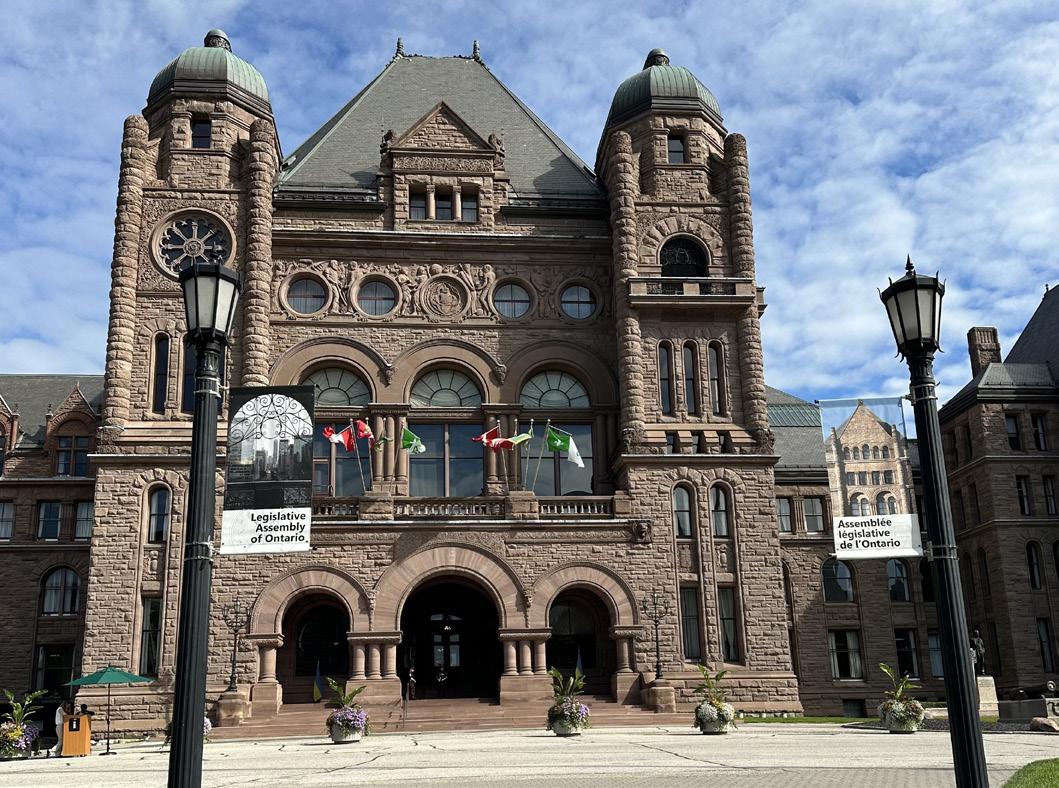
With an aspect of personal responsibility for their behavior as an elected Member and more specific guidelines for what is expected of them in the House, proceedings in Québec’s Chamber are much quieter than other Legislatures. This is something often revered for its civility, though occasional rejected by those who prefer lively interactions across the floor during spirited debates; the balance of which is perennially being considered by Presiding Officers.
Conclusion
While history suggests that outbursts in the House are as longstanding a tradition as parliamentary democracy itself, it remains a worthwhile pursuit for Parliaments to continue pursing a higher standard of decorum in debate.
A majority of Presiding Officers would likely agree that there is a place in our proceedings for a lighthearted remark, or show of support through applause or a call of “hear, hear”. On the other hand, they would also agree that personal attacks, rude gestures or disruptive protests do a disservice to the business of Parliament and the public’s faith in the democratic process. As the longstanding topic of discussion at parliamentary meetings, time will tell how today’s standards of decorum are received at future gatherings of Commonwealth Parliamentarians.
References:
1 McCarthy, Justin. “Parliamentary Manners.” The North American Review 157, no. 445 (1893): 698–706. http://www.jstor.org/stable/25103243.
2 Erskine May’s Treatise on the law, privileges, proceedings and usage of Parliament (25th edition, 2019) available online https://erskinemay.parliament.uk/
3 See, for example, John A. The Man Who Made Us, by Richard Gwyn.
4 Notes on Parliamentary Decorum for Saskatchewan Members attending the Commonwealth Seminar by Gregory Putz, from Gwenn Ronyk’s Manual for Presiding Officers, 1996.
5 Order, Decorum and the Disciplinary Powers of the Chair: A Manual for Presiding Officers. Prepared by Gwenn Ronyk for the Canadian Presiding Officers’ Conference, 1996.
6 Do Canadians have confidence in their public institutions?- https://www.statcan. gc.ca/o1/en/plus/5041-do-canadians-have-confidence-their-public-institutions
7 Cheering or Jeering? Members of Parliament Open Up About Civility in the House of Commons- https://www.samaracentre.ca/articles/cheering-or-jeering
8 See: Speaker Fergus, Debates 44/1, 18 October 2023. pp. 17591-17593
9 Disciplinary Powers of the Chair by Gordon Barnhart, from Gwenn Ronyk’s Manual for Presiding Officers, 1996
10 National Assembly of Québec’s Standing Orders and Other Rules of Procedurehttps://www.assnat.qc.ca/en/publications/fiche-reglement-assemblee.html
DECORUM IN PARLIAMENTARY DEBATES 58 | The Parliamentarian | 2024: Issue One | Over 100 years of publishing
Image: CPA Secretariat.
Above: The Legislative Assembly of Ontario in Toronto, Canada.
CURATING THE RECORD OF FREE SPEECH IN THE PARLIAMENT OF NEW ZEALAND
The importance of accurate Hansard reporting as a historical record of parliamentary debates.
Introduction
The exercise of freedom of speech in Parliament occurs as a brief moment in time, but traditional and social media communicate just a tiny fraction of that parliamentary discourse. As Georgina Stylianou asks, adapting the oft-quoted philosophical question: ‘… if a political speech is made and nobody witnesses it, does it make a sound?’2 Anthony Marinac similarly notes: 'Simply allowing any Member to express themselves freely in the Parliament is of limited utility if their words are only ever heard by those few people able to attend the parliamentary sittings.'3
Unlike print and social media, Hansard does not just report the hot-button topics; it records and communicates everything. It endures across time, serving both a contemporary and unknown future readership. In that sense, it provides access to the free and frank exchange of views of elected representatives and the contest of ideas that play out in parliamentary debates. Hansard therefore has a critical role in giving meaning to freedom of speech in Parliament.
Although Hansard serves a wide range of research purposes, it is not well researched itself. Histories of specific Hansard services have generally been written by Hansard or parliamentary staff. The long evolution of Hansard reporting in Britain has been quite well covered, yet there is a very slim literature on the history of New Zealand’s Hansard.4 Histories of the many Hansard reporting services in Australia are similarly under-researched.5
Hansard’s editorial policies have been the subject of research in the domain of historical linguistics, mostly based on the Hansard services in the UK Parliament’s House of Commons and House of Lords.6 That scholarship has demonstrated the variations between what is said in the House of Commons and how that has been reported in its Hansard with differing views on the significance of those variations.
Across the Commonwealth, legal scholarship on the use of parliamentary materials in statutory interpretation is a narrow, yet quite rich, field of scholarship that reveals an underlying sense of unease about the reliability of historic Hansards. That unease speaks more to the political environment in which speeches are made, rather than the reporting and editing applied to those speeches.
Today, Hansard has been described as one of four ‘democratic parliamentary pillars’ because it enables transparency and accountability.7 Its hallmarks are impartiality, accuracy, timeliness, readability and accessibility. But the principles of Hansard reporting that we associate with it today are not fixed in meaning or time.
For example, what did ‘accuracy of reporting’ mean in an era without sound amplification and recording? And what were the trade-offs between readability and accuracy? Do we want to read every single word spoken by MPs if they stumbled their way through a speech? Who even are Hansard’s readers in a contemporary sense and in the future? How have newer technologies redefined not just accuracy but timeliness of delivery and accessibility of Hansard over time?
Historically, producing the record of free speech in Parliament has not always been straightforward.
Why are historic encounters relevant today? This article makes the case for a nuanced reading of past Hansards and newspaper articles by researchers interested in how the exercise of free speech in Parliaments of the past influenced decisions that have consequences today.
‘Curating' versus 'Editing' the Published Debates Hansard is often referred to as an edited report of the spoken proceedings in Parliament.8 However, the term ‘edited’, with its focus on the structure and wording of the Hansard report, has a fairly narrow scope. We can think about the publishing of Hansard reports more broadly over time as an act of ‘curating’ the record of free speech in Parliament. That is because the term ‘curating’ encompasses a range of activities beyond editorial matters. Establishing Hansard as an in-house service was an attempt by politicians to control the narrative rather than leave parliamentary reporting to the whims of the press.9
Far from it being a simple process of words in, report out, with some editorial tweaks, Hansard reports are the product of an array of challenges overcome, decisions and judgments made, and the combined skills of the many individuals who were involved in its production. The reports reflect the complexity of rendering a spoken language in written form; decisions about what would or would not be included in the report;10 the juggling of limited resources to report lengthy debates; reliance on the human ear and hand to capture sound until at least the mid-twentieth century; and balancing the need to provide a readable, accurate report with getting it published and distributed in a timely manner - all this in a political environment.
Impartiality
Today we take for granted that Hansard is an impartial record of what is said in the House. However, this reputation was hard won, despite the fact that it was the very reason for establishing the Parliament of New Zealand’s Hansard in-house in 1867.11 Unhappy
Cecilia Edwards is a Hansard Editor in the Office of the Clerk of the House of Representatives at the Parliament of New Zealand. She is also a PhD candidate at Te Herenga Waka, Victoria University of Wellington.1
The Parliamentarian | 2024: Issue One | Over 100 years of publishing | 59 CURATING THE RECORD OF FREE SPEECH IN PARLIAMENTS
with selective and biased newspaper reporting that could not possibly cover everything, Members were willing to appropriate money to rectify the imbalance. Queensland, Victoria, South Australia and New South Wales had a similar experience in the nineteenth century.12
Even when an in-house Hansard service was in operation in New Zealand, it was not all plain sailing. Members regularly complained about the quality of Hansard reports, and sometimes accused Hansard staff of not reporting impartially. Until the early twentieth century, all the Hansard reporters were former newspaper reporters or editors of longstanding.13 They retained their press contacts and sometimes wrote articles themselves, usually under a pseudonym. Even after they were replaced by professional shorthand reporters, some Members still accused them of bias.14 However, there were two safeguards against Hansard reporters going rogue and reporting in a partial manner: the Members corrections’ process and oversight of Hansard by Parliament, whether by a Select Committee or by the Speaker.
Constraints on accuracy
Before the advent of sound amplification and recording, accurate reporting depended on the reporter’s ability to hear and understand what was said, to take it down in shorthand, and transform those notes into a readable report. Unsurprisingly, the reporting style placed an emphasis on readability. All of the characteristics of spoken language were trimmed from the report—the false starts, the stumbles, the repetitions, the excess verbiage, the broken syntax, and the slips of the tongue.15 However, the combination of poor acoustics and considerable editorial licence opened the door to misinterpretation. Hence the convention of allowing Members to check the draft of their speeches prior to publication emerged, which sometimes raised questions about the integrity of Hansard as a truly accurate record of spoken proceedings.16
Members Corrections' Process
It is self-evident that mishears could occur when Members spoke inaudibly and there was no audio record. Allowing Members to check the draft of their speeches prior to publication was therefore an important step in ensuring that the meaning of what was said in Parliament was not altered. However, allowing Members to check for misreporting or misunderstanding sometimes opened the door to actual, or suspected, retrospective revision of speeches, and a corresponding degree of cynicism about the truthfulness of the Hansard report. For example, when Hansard reporting staff in Perth went on strike for better pay in 1908, a local reporter thought the strikers would enjoy the ‘hearty support of the public’ because they would not have to: “[wade] through the garbage … which frequently represents not what a Member has said; but what, after revision, he thinks will please his constituents.”17
From time to time, similar sentiments were expressed about New Zealand’s Hansard; that is, that Members had a free hand to rewrite the Hansard for political purposes. These comments cropped up occasionally in parliamentary debates and in newspaper articles. Although such gibes were usually aimed at denigrating Members, they reflected poorly on the reputation of the Hansard debates.19
However, contrary to what Members may have believed, they did not have freedom to amend their draft Hansards however they pleased. Since 1896, the first port of call in the Parliament of New Zealand was a Hansard Supervisor, who sent drafts out to Members and dealt with any requests for change.20 Decisions were usually straightforward - simple corrections from mishears or misunderstandings. The Speaker would only intervene when the Hansard Supervisor did not agree with a request.21
Only a few such requests have survived. One that did, from 1928, is a notable exception where the Speaker allowed a 223word exchange to be excised from the Hansard on the grounds of reputational damage to the Prime Minister of New Zealand. In the exchange, an Opposition Member had accused then Prime Minister Gordon Coates of ‘justly earning the title of the Mussolini of New Zealand’ after his Government bypassed the Railways Board to directly appoint a general manager.22 Even though Coates could not have anticipated the disastrous consequences of Mussolini’s fascist rule for the next 17 years, he did not wish to go down on the official record as ‘the Mussolini of New Zealand’, and sought the excision of the entire exchange between him and the Opposition Member.23 However, the newspapers had a field day and reported the exchange widely.24 Unfortunately for Coates, the digitisation of old newspapers has ensured its survival into the twenty-first century, even if not in the Hansard, which highlights the value of reading both the Hansard and contemporary newspaper reporting for research purposes.
The availability of Parliament TV and video replays in the twentyfirst century reduced the potential for any sleight of hand through the Members corrections’ process, because Members and staff can freely check the written record against the video. In 2011, the New Zealand Parliament agreed to move away from a ‘substantially verbatim’ reporting style to a ‘more verbatim’ style, recognising ‘the convergence of audio, video and print publishing’.25 This substantially limited the scope for misinterpretation in the reporting and of Members’ requests for correction. In this way, new technologies have greatly enhanced the integrity of the record of free speech in Parliament.
Debates not reported
Until 1996, the Parliament of New Zealand did not report debates of the Committee of the whole House.26 There were practical reasons for not reporting these debates: there simply weren’t enough staff, and the cost for printing all those extra volumes was another factor particularly before time limits for debates were introduced progressively from 1894.27 Instead, for the first 129 years, Hansard provided a summary of important contributions to debates on supply (financial estimates) and recorded any votes that took place in Committee.28 However, for any of the content and flavour of what was discussed, researchers must fall back on the newspaper coveragethe very source that contemporary politicians found to be selective, partial, inaccurate and generally unreliable. For historians, the lack of reporting of Committee debates is a shame, because Committee discussion was generally very free and frank - to such an extent that the debates often went well into the early hours and sometimes continued over a matter of days if a stonewall was in progress.
In rare cases, other debates were not reported, which contributed to a significant gap in Hansard. One reason was security concerns.
CURATING THE RECORD OF FREE SPEECH IN PARLIAMENTS 60 | The Parliamentarian | 2024: Issue One | Over 100 years of publishing
In May 1940, the Parliamentary (Secret Session) Emergency Regulations were approved during the Second World War. They enabled the exclusion of strangers from the Galleries and Hansard staff from the floor of the House. The measure was to prevent ‘the possibility of information of value to the enemy being disclosed’ and it was used on at least 24 sitting days, particularly between 1940 and 1942. In place of a Hansard report, a brief description was inserted into the Hansard, based on the Clerk’s notes, broadly listing the topics. A 21-hour debate on the outbreak of the war in the Pacific was described in just 126 words.29 In Hansard terms, the missing content over 24 sitting days can be estimated at about 1,900 pages between 1940 and 1944.30
Another reason was concerns about matters of public taste. In the following example, Hansard reported a debate in 1888 on the Contagious Diseases Bill, but the House then resolved to suppress its publication because the talk about sexually transmitted diseases was deemed too risqué and offensive to women readers.31 The newspapers were similarly unable to publish the discussion, but referred coyly to ‘the social evil’ and ‘interesting subjects’.32 Another paper simply noted that the Ladies Gallery had been cleared for the debate because ‘Language and arguments [were] indelicate.’33

Seemingly, there are few, if any, topics considered too sensitive for publication in the twenty-first century on the grounds of morality. However, fear of inciting harm led to a notable decision in 2006 by the Legislative Council in the South Australian Parliament to excise from the online Hansard parts of a speech that detailed methods of self-administered euthanasia.34 The historic record remained intact, to a certain extent, however, because they allowed its publication in the printed volume.
Another aspect of historic non-reporting is when speeches were not reported in the language delivered. This was a particular challenge for New Zealand from 1868, when the first Māori Members were elected to the House of Representatives. Speeches delivered in their own language were interpreted in the House, the Hansard reporters took down shorthand notes of the interpretation, and wrote their report based on that.35 By 1913, there were no interpreters and Māori Members were expected to deliver their speeches in English.36 Not all did, especially after the Second World War, when some Members chose to address the House in their own language. They were then expected to provide the text for Hansard.
There were clearly some practical barriers to reporting their speeches in the Māori language, such as the lack of a Māori language skills by Hansard reporters and the lack of a shorthand writing system for the Māori language at this time. However, reporting speeches given in Māori using only a summarised form of the English interpretation has consequently created a massive gap in the historic record of Māori oratory at a time when significant legislation was passed; legislation that resulted in confiscations following the wars of the 1860s/1870s, land loss, and cultural and material dispossession, with ongoing consequences that are still being investigated by a standing inquiry, the Waitangi Tribunal, and effects that are felt to this day.37
Nevertheless, there exists a record of sorts in the Māori language. From 1881 until 1906 a Māori version of Hansard was published. It took the English translations of speeches delivered in Māori and printed in the New Zealand Parliamentary Debates, and translated them back into the Māori language. However, the interpretation that the English translation was based on was given ‘on the fly’, and summarised just some of the speech content, which the Hansard reporter would have then tidied up into a concise report. Consequently, the Māori Hansard can only be a pale reflection of the original speeches.38 It was only in the 1990s, and with technological advances, that Hansard was able to include not just speeches delivered in Māori but also a translation into English.
In the twenty-first century, the challenge of providing a comprehensive report of speeches delivered in indigenous languages is not to be underestimated, particularly where there is more than one indigenous language. Hansard reporting services across the Commonwealth originated from a mono-lingual model, which means that countries like New Zealand and Australia have much to learn from our Pacific neighbours who cater not just for dual languages but multiple languages within the debating chamber or in the Hansard report itself.39
Conclusion
The advent of new technologies in the twentieth century very much helped the accuracy of the published debates, not just by amplifying sound but also recording it. Since then, computer technology has sped up production times and allowed greater accessibility via the web. The availability of videoed debates has greatly reduced the potential for clashes over corrections to the draft Hansard between Members, the Hansard staff and the Presiding Officer. Newer technologies have made it possible to provide comprehensive coverage of all debates. While there remain challenges still with providing a bi-lingual or multilingual Hansard service, there is now a greater understanding of why that is important for contemporary and future readers.
Today, we are the future readership of Hansard debates published in the nineteenth and twentieth centuries. To read and use those debates with confidence for research purposes requires
CURATING THE RECORD OF FREE SPEECH IN PARLIAMENTS The Parliamentarian | 2024: Issue One | Over 100 years of publishing | 61
Image: Parliament of New Zealand.
some understanding of the limitations that applied to the way they were historically curated.
Despite any flaws and omissions in the way that Hansard reports were historically assembled or curated, newspaper articles are no substitute for the record of the entire debate in Hansard. When both are read together, however, present-day researchers are better able to understand what lay behind decisions made by Parliaments of the past that have consequences for the world we now inhabit. In that sense, the enduring legacy of the privilege accorded to the exercise of free speech in Parliament is twofold: the freedom of the press and a Hansard reporting service based on the principles of impartiality, accuracy, timeliness, readability and accessibility, however they were defined over time.
This is an extract of a longer paper by Cecilia Edwards presented at the Australasian Study of Parliament Group (ASPG) Conference in 2023 in Perth, Western Australia and published in the Australasian Parliamentary Review, Spring/Summer 2023 (Vol 38 No 2). Visit www.aspg.org.au.
References:
1 This paper draws on ongoing research for my PhD topic, ‘The Making of New Zealand’s Hansard from 1867 to 1992’. Some of the examples discussed in this article draw upon insights gleaned through that research. The publication of the larger research project will include extensive references to primary source documents. Where possible, examples of this material are referenced in this article. I acknowledge my PhD supervisors, Professor Jim McAloon and Dr Valerie Wallace; the senior leadership team of the Office of the Clerk of the House and Hansard manager Erin Grace, for generous study assistance; Hansard colleagues who have shared my delight in researching the history of New Zealand’s Hansard; and Sraddha Venkataraman, who read the draft and offered helpful suggestions.
2 Georgina Stylianou, ‘To engage voters, politicians have to be authentic’, The Post, 10 July 2023.
3 Anthony Marinac, ‘Shaking the foundations of parliamentary privilege’, ON LINE opinion – Australia’s e-journal of social and political debate, 18 September 2006.
4 William Law, Our Hansard or The True Mirror of Parliament, A Full Account of the official reporting of the debates in the House of Commons, London: Pitman, 1950; John Vice and Stephen Farrell, The History of Hansard, London: House of Lords and House of Commons Hansard, 2017; Kezia Ralphs, ‘Recording Parliamentary Debates: A Brief History with Reference to England and New Zealand’, Australasian Parliamentary Review, 24(2), 151-163. See also John E. Martin, The House: New Zealand’s House of Representatives 1854—2004, Palmerston North: Dunmore Press, 2004.
5 J S Weatherston, Hansard: Its Establishment and Development, Canberra: Commonwealth Government Printer, 1940. The 150th anniversaries of the Victoria and Queensland Hansard reporting services generated a pamphlet publication and exhibition respectively.
6 Stef Slembrouck, ‘The parliamentary Hansard ‘verbatim’ report; the written construction of spoken discourse’, Language and Literature, 1(2), 1992, pp. 101-119; Sandra Mollin, ‘The Hansard hazard; gauging the accuracy of British parliamentary transcripts’, Corpora, 2(2), 2007, pp. 187-210; V Michael Cribb and Shivani Rochford, ‘The Transcription and Representation of Spoken Political Discourse in the UK House of Commons’, International Journal of English Linguistics, 8(2), 2018, pp. 1-14.
7 June Verrier, ‘Benchmarking Parliamentary Administration: The United Kingdom, Canada, New Zealand and Australia’, Australasian Parliamentary Review, 22(1), 2007, p. 44.
8 Most Hansard reporting services in the Commonwealth refer in some way to their official report as ‘edited’ or containing edits or being sub-edited. The UK House of Commons describes its Hansard as ‘an edited verbatim record’. New Zealand no longer describes its report as an edited report, but does refer to the general editing principles that Hansard editors apply.
9 Ralphs, ‘Recording Parliamentary Debates’, pp. 157-9.
10 Slembrouck, Mollin, and Cribb and Rochford provide examples from the UK House of Commons (see footnote 6). From a sample of a 2006 debate in the House of Commons, Mollin found that 43,793 spoken words were reduced to 35,661 words in the Hansard, a reduction of 18 percent. (Mollin, p. 192)
11 A point made by both Ralphs, ‘Recording Parliamentary Debates’, pp. 157-9, and Martin, ‘The House’, p. 53.
12 All four Parliaments initially contracted out (or relied on) parliamentary reporting to newspapermen but later moved to in-house reporting: Queensland 1860-64; Victoria 1856-66; South Australia 1857-1914; New South Wales relied on some form of newspaper reporting prior to 1879.
13 John E Martin, The House, New Zealand’s House of Representatives 1854 –2004, Palmerston North: Dunmore Press, 2004, p. 161.
14 The New Zealand Parliamentary Debates (NZPD) and reports of the Reporting Debates and Printing Committee contain numerous examples.
15 Slembrouck and Mollin list in detail the differences between spoken and written discourse (see footnote 6)
16 John E Martin, The House, pp. 53-55.
17 Reprinted in Waikato Argus, 1 August 1908, p. 2.
18 John E Martin, The House, pp. 53-55.
19 The Members corrections’ process continued to generate headlines from time to time. See Cecilia Edwards, ‘The Political Consequences of Hansard Editorial Policies: the case for greater transparency’, Australasian Parliamentary Review, Vol. 31(2), 2016, pp. 145-161.
20 Premier Seddon to Marcus F Marks [backdated letter of appointment], 20 September 1898, R24835766, Archives New Zealand
21 Specific cases are documented in the Office of the Clerk files: Hansard correspondence 1896 – 1966, barcode: OCR005361-67.
22 Auckland Star, 23 August 1928, p. 10; Evening Post, 23 August 1928, p. 12; Evening Star, 23 August 1928, p. 10; Hawera Star, 23 August 1928, p. p. 9; Poverty Bay Herald, 23 August 1928, 7; Sun (Auckland), 23 August 1928, p. 11.
23 Speaker’s secretary to Hansard Supervisor, 11 September 1928, Hansard correspondence 1924-1935, File barcode: OCR005357
24 See footnote 75.
25 Report of the Standing Orders Committee, Forty-Ninth Parliament, I.18B, September 2011, p. 10. The report’s recommendations were subsequently adopted by the House. See Journals of the House of Representatives, Forty-Ninth Parliament, No. 11.23, 5 October 2011, p. 1351.
26 McGee, Parliamentary Practice in New Zealand (eds. Mary Harris and David Wilson), 4th ed, Auckland: Oratia, 2017, p. 88.
27 McGee, Parliamentary Practice in New Zealand, 4th ed, p. 222.
28 Full reports of debates of the Committee of the Whole House first appear in volume 553 of the New Zealand Parliamentary Debates (from 21 February 1996). Prior to that, McGee estimates that just 10 percent of deliberations by the House in Committee ended up in the Hansard (McGee, 4th ed, p. 88).
29 New Zealand Parliamentary Debates, Vol. 261, 11 December 1941, pp. 26-27.
30 Calculated using the average number of Hansard pages generated per sitting day.
31 New Zealand Parliamentary Debates, Vol. 60, 1 June 1888, p. 416.
32 ‘Parliamentary Notes’, Auckland Star, 9 July 1888, 8; ‘Parliamentary Notes’, Bruce Herald, 5 June 1888, p. 3.
33 ‘Notes on Change’, Wanganui Herald, 2 June 1888, p. 2.
34 Anthony Marinac, ‘Shaking the foundations of parliamentary privilege’, ON LINE opinion, 18 September 2006.
35 Evidence given to the Legislature Expenditure Committee, Appendices to the Journals of the House of Representatives 1886, I-10, pp. 3, 7, 14.
36 Martin, The House, p. 216.
37 The Waitangi Tribunal, established under the Treaty of Waitangi Act 1975, has inquired into and issued hundreds of reports since 1978, supported by thousands of historical reports, oral histories, and a vast archive of documents. Accessed at: https://www.waitangitribunal.govt.nz/publications-and-resources/bibliography/
38 ‘Nga Korero Paramete 1881 – 1906’,Wellington: New Zealand Electronic Text Centre, 2009. This is an online version of Niu Tireni: nga korero Paremete: nga whai korero a nga mema Maori, Wellington: Government Printer, 1881-1906.
39 Julian R. Murphy surveys these issues generally in ‘Indigenous Languages in Parliament and Legislation – comparing the Māori and Indigenous Australian experience’, Māori Law Review, July 2020. Accessed at: https://maorilawreview. co.nz/2020/07/indigenous-languages-in-parliament-and-legislation-comparingthe-maori-and-indigenous-australian-experience/
CURATING THE RECORD OF FREE SPEECH IN PARLIAMENTS 62 | The Parliamentarian | 2024: Issue One | Over 100 years of publishing
EXAMINING THE HISTORY OF ONE OF THE LONGEST ESTABLISHED PUBLIC ACCOUNTS COMMITTEES IN THE COMMONWEALTH
This article examines the history of the Parliamentary Joint Standing Committee of Public Accounts based in Tasmania.
Introduction
Celebrating 162 years of existence on 28 August this year, the following is a potted history of the establishment and successive iterations of what is now the Tasmanian Parliamentary Standing Committee on Public Accounts.
1862: The Establishment of Tasmanian Public Accounts Committee
Whilst three commissions of enquiry into the Colony’s public departments came into existence between 1857 and 1863, none of these lines of inquiry mentioned nor supported the establishment of an ongoing Parliamentary Accounts Committee within the Tasmanian Parliament.1 2 3
Notwithstanding, not long after the commencement of the permanent Select Committee on Public Accounts established by the UK House of Commons on 8 April 1861 (and resolved under Standing Orders on 31 March 1862), on 28 August 1862 Tasmania saw the appointment of a six Member strong House of Assembly Select Committee to enquire into the system of keeping and auditing Public Accounts. This eventuated after a new clerk from the Post Office that went to work for the Colonial Treasury discovered that an amount of £25,0004 could not be accounted for: in fact, it could not be readily ascertained as to whether the amount was actually lost or a mistake.5
Despite the seemingly good cause to investigate this financial irregularity of the Colony’s coffers, no meeting was ever held, and no similar Select Committee was established by the House of Assembly again until 29 October 1875. This was the first meeting where a Public Accounts Committee report was tabled (but not printed) on 2 November 1875. Such was the gravity of that first Report that it was recorded in the Tasmanian Tribune as such: ‘Committee of Public Accounts

The TREASURER brought up the report of the Public Accounts Committee, and moved it to be read. Agreed to.’6
1876 to 1943: Scrutiny of Local Government Loan Applications for Sundry Works
Whilst there were appointments of House of Assembly Public Accounts Select Committees for the periods 1876 81 and 1887 through to 1916,7 no recorded meeting of the Public Accounts Committee took place over that period. The Final Report of the Standing Committee of Public Accounts (No.74 of 1917) noted that for the first time during a period of 30 years, the Committee had met to consider loan applications for sundry works from various local bodies (local government) and that some bodies had not been meeting their loan obligations and that these should be repaid in regular annual instalments until it was fully liquidated.
By and large, most reports tabled from 1916 to 1943 dealt with the Committee considering the merits of loan applications made by local government for water supply, electricity and electric lighting, sewerage, harbour works and the occasional community hall, recreation ground and aerodrome.8
1944 to 1948: The Batt Report and the 1948 Constitutional Crisis
In leading up to the 1944 Public Accounts Committee report, the Tasmanian Government attempted to amend the Audit Act 1918 by introducing a retirement age for Auditor-Generals: 70 for the incumbent Auditor-General, Mr Frederick Batt, and 65 years for succeeding Auditor-Generals. The Opposition alleged that the move was aimed purely at getting rid of Batt and if, as was suspected, his upcoming report revealed differences with the Government it would be ‘a serious blow to the independence of the Auditor General that, following the disagreement, the Government should remove him from office’.
Simon Scott is the Committee Secretary of the Parliamentary Standing Committee of Public Accounts at the Legislative Council of Tasmania. Appointed in February 2022, he previously worked in defence, banking, federal and state public sectors and local governments, across corporate governance, risk management, strategy, communications, legal, investigations, people management and organisational development. A corporate governance professional and trained lawyer, Simon also holds an Honours degree in industrial relations, a Master’s degree in management and a Graduate degree in commercial law. Juggling part-time home renovation, cooking and teen wrangling, he often finding himself wishing for more opportunities to travel and broaden his experiences.
The Parliamentarian | 2024: Issue One | Over 100 years of publishing | 63
PUBLIC ACCOUNTS COMMITTEES IN THE COMMONWEALTH
PUBLIC ACCOUNTS COMMITTEES
In his previous reports, the Auditor-General had proposed the appointment of a Standing Committee of Public Accounts more akin to the UK Public Accounts Committee to inquire into the issues raised in the Auditor-General’s reports but to no avail (i.e., investigating any irregularities highlighted and to deal with the recurrent problem of spending in excess of estimates): rather that the Public Accounts Committee had been set up to inquire into local government matters only. Batt viewed such a Committee as a ‘necessary link in the chain of financial control by Parliament’.9
The Standing Committee of Public Accounts: Report on AuditorGeneral's Report for the Year Ended 30th June 1943 (No.49 of 1944) was scathing of the Auditor-General: ‘… the contents of the AuditorGeneral's report to Parliament for 1942-43 seriously misinformed Parliament in some most important respects, and that there is cumulative proof that his conduct, in many respects, has been such as not to entitle him to the continued confidence of Parliament …’
The Opposition Members of the Committee in a minority report dissented:10 ‘… Having examined all of the evidence we are of opinion that there is very little in the Auditor-General’s report to which any serious objection can be taken. It is clear that there have been occasions when a difference of opinion has been possible, but in the exercise of wide discretionary powers that an Auditor-General must have if he is to be of any real use as a check on improper or unauthorised expenditure of State funds, there is no evidence that the Auditor-General has abused the power vested in him …’
Following the tabling of the Committee’s report, the last weeks of the parliamentary session were dominated by debate about Mr Batt. The Auditor-General had the support of the Opposition, the Legislative Council and the Mercury newspaper: 11 ‘ That extraordinary tribunal, the Public Accounts Committee, on which the accused – that is, the Government – sat on the bench in judgment, while the accuser, the Auditor-General (Mr Batt), found himself figuratively in the dock, has tabled its report … From the
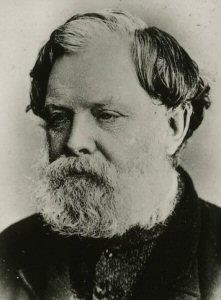
Inaugural
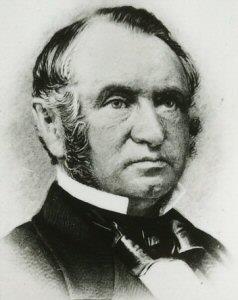
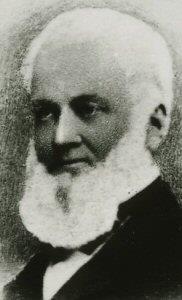

practical point of view, the official report of the committee has the total lack of value which might be expected when a political group deliberately sets out in judgment on itself and whitewash its actions. If the committee had produced anything else but a report which described itself as a pillar of honest public finance, it could have claimed also to be the eighth wonder of the world.
However obvious the report is, its sinister implications are clearly seen, for it seems that the Government is anxious to rid itself, by any means, of an officer of Parliament who has done his duty so well that he has been too critical of the way the finances of the State are handled. It is becoming more obvious also that the Government intends to remove Mr Batt, not honestly by a decision of parliament, but by a back-door methods so well in keeping with the motives behind such an action.’
Two Royal Commissions later, 12 the standing down of the incumbent Premier pending trial of receiving improper payments in relation to State road transport policy (found not guilty and later resumed their seat in Parliament), and the Legislative Council voting to return the Supply Bill to the House with a request that the sums be reduced to two months’ supply ‘on the understanding that the Government seek an immediate dissolution’ led to the 1948 Constitutional Crisis.13 It may be argued that this period foreshadowed a low point in Public Accounts Committee parliamentary oversight for the intervening period.
1944 to 1960: The Absent Years
From 1944-45 through to 1958 there were no Public Accounts Committee meetings recorded. It was nearly a century since the advent of the first appointed Public Accounts Committee in 1862, that the Tasmanian Parliament started to see consistent meetings and eventually more fulsome reporting from the Committee.
During this hiatus of Committee activity, the first woman Member to be appointed, Mrs (then Dame) Mabel Miller, MHA (Member for
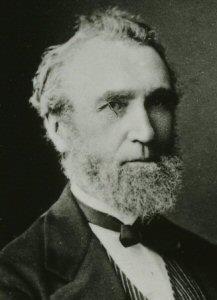
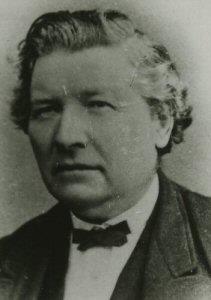
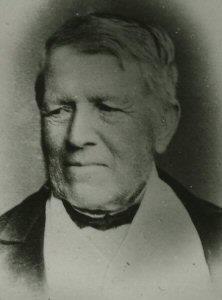
One of the first two women elected to Tasmania House of Assembly (Amelia Best was the other)
First women elected to Hobart City Council 1952; Deputy Lord Mayor 195456, 1964-70; Represented Australia at UN 1967-69.

First woman in Australia to lead an Upper House Longest term of any woman in the Tasmanian Parliament
Mother-in-law of ALP
Premier Bill Neilson Granted the right to use the title 'Honourable' for life on 12 August 1976
64 | The Parliamentarian | 2024: Issue One | Over 100 years of publishing
IN THE COMMONWEALTH
Historical Pictures for Tasmanian Parliamentary Accounts Committee
Tasmanian House of Assembly Select Committee into Public Accounts – 28 August 1862
Mr John Balfe Member for Franklin
Mr John Crookes Member for Launceston
Mr Charles Henty Member for George Town
Mr Frederick Innes Colonial Treasurer Member for Morven
Mr John Perkins Member for Kingborough
Mr William Sharland Member for New Norfolk
First Female Members for House of Assembly Select Committee on Public Accounts and Legislative Council Select Committee on Public Accounts and Finance respectively
Dame Mabel Miller
Liberal Member for Franklin
Hon Phyllis Benjamin, AO, MBE Labor Member for Hobart
Image: Parliament of Tasmania.
Franklin) for the term 1955-59. 14 The Legislative Council’s short-lived Public Accounts and Finance Committee (see below) appointed Mrs Phyllis Benjamin, MLC (Member for Hobart) between 1968 and 1969.15
1960 to 1970: Elevation to Standing Committee
On 7 December 1960, the House of Assembly Standing Orders Committee recommended a new Standing Order No. 408A to be included in the relevant Standing Orders as follows:
‘Public Accounts Committee. 408A.
- (1) A Committee of Public Accounts, to consist of seven Members, of whom four shall be a Quorum, shall be appointed when this Standing Order becomes effective and thereafter at the commencement of each Parliament, for the examination of the accounts showing the appropriation of the sum granted by Parliament to meet public expenditure, and of such other accounts laid before Parliament as the Committee may think fit.

(2) The Committee shall have power to send for Persons, Papers, and Records, to report from time to time, and to sit during any adjournment exceeding Fourteen days and any recess of Parliament.’
This was the first time that a Tasmanian Public Accounts Committee became a Standing Committee in Parliament. A similar amendment to the Legislative Council’s Standing Orders saw for the first time the establishment of a Select Committee of Public Accounts and Finance in that Chamber under authority of Standing Order No. 248A that was agreed on 11 November 1965: ‘At the beginning of every Session a Select Committee on Public Accounts and Finance shall be appointed.’
1970 to Present Day: Statutory Recognition of the Parliamentary Joint Standing Committee
It became evident that having two Standing Committees for public accounts scrutiny was not the best use of resources in a small Parliament. The Public Accounts Committee Bill, 1970 – Second Reading Notes states that the Bill was designed to give effect to the following Resolution which was agreed to by both Houses of Parliament on Tuesday 4 November 1968: ‘That the Legislative Council and the House of Assembly jointly recognise the autonomous role and independence of each House to the other, but in the matter of appointment of Committees of Public Accounts, accept the proposition that interests generally would be better served if both Houses were represented on a single Committee of Public Accounts.’16
The Public Accounts Committee Act 197017 commenced on 15 December 1970 and has remained more or less untouched over the past 54 years. Under section 6 of the Act, the Committee:
• must inquire into, consider and report to the Parliament on any matter referred to the Committee by either House relating to the management, administration or use of public sector finances; or the accounts of any public authority or other organisation controlled by the State or in which the State has an interest; and
• may inquire into, consider and report to the Parliament on any matter arising in connection with public sector finances that the Committee considers appropriate; and any matter referred to the Committee by the Auditor-General
Since 1971, the Public Accounts Committee has consistently tabled a rich and varied range of reports on the topical issues of the day, including but not limited to:
• stores control in public sector departments (1971)
• outstanding fees for Tasmanian public hospitals (1971)
• domestic and interstate travel by State servants (1972)
• purchase of imported wooden benches for a police station (1986)
• prison officers’ absenteeism (1987)
• cost of fire protection in public schools (1996)
• television advertisements for a Tasmanian political party (2008)
• the efficiency and effectiveness of the Fox Eradication Program in Tasmania (2009)
• the Office of the Ombudsman and Health Complaints Commissioner
• the Government's economic and health expenditure response to the COVID-19 pandemic (2022), and
• Tasmanian Government’s Continuing Response to the COVID19 Pandemic (2023).
In line with the Act, the Public Accounts Committee now reviews selected reports from the Parliamentary Standing Committee on Public Work to follow-up on the outcome of approved projects with particular reference to the adherence to authorised budgets, project timeframes and agreed deliverables.
The Parliamentarian | 2024: Issue One | Over 100 years of publishing | 65
COMMITTEES IN THE COMMONWEALTH
PUBLIC ACCOUNTS
Image: Parliament of Tasmania.
With the first Statement of Understanding between the Tasmanian Auditor-General and the Committee having been struck in June 2007, the Public Accounts Committee also reviews past performance audit reports of that Office predominantly with a view of following-up the implementation of recommendations by public sector agencies.18
The maturation of the Public Accounts Committee and the complexities of modern parliamentary processes over the last five years or so has meant the tabling of three special reports for parliamentary debate:
• Failure to Comply with Summons (March 2017)19
• Unauthorised Disclosure of Committee Deliberations (March 2017)20
• Failure of Minister to Agree to Publicly Release Documents (20 November 2020)21
The Public Accounts Committee is also a full member of the Australasian Council of Public Accounts Committees, and since 2022 a member of Commonwealth Association of Public Accounts Committees (CAPAC).
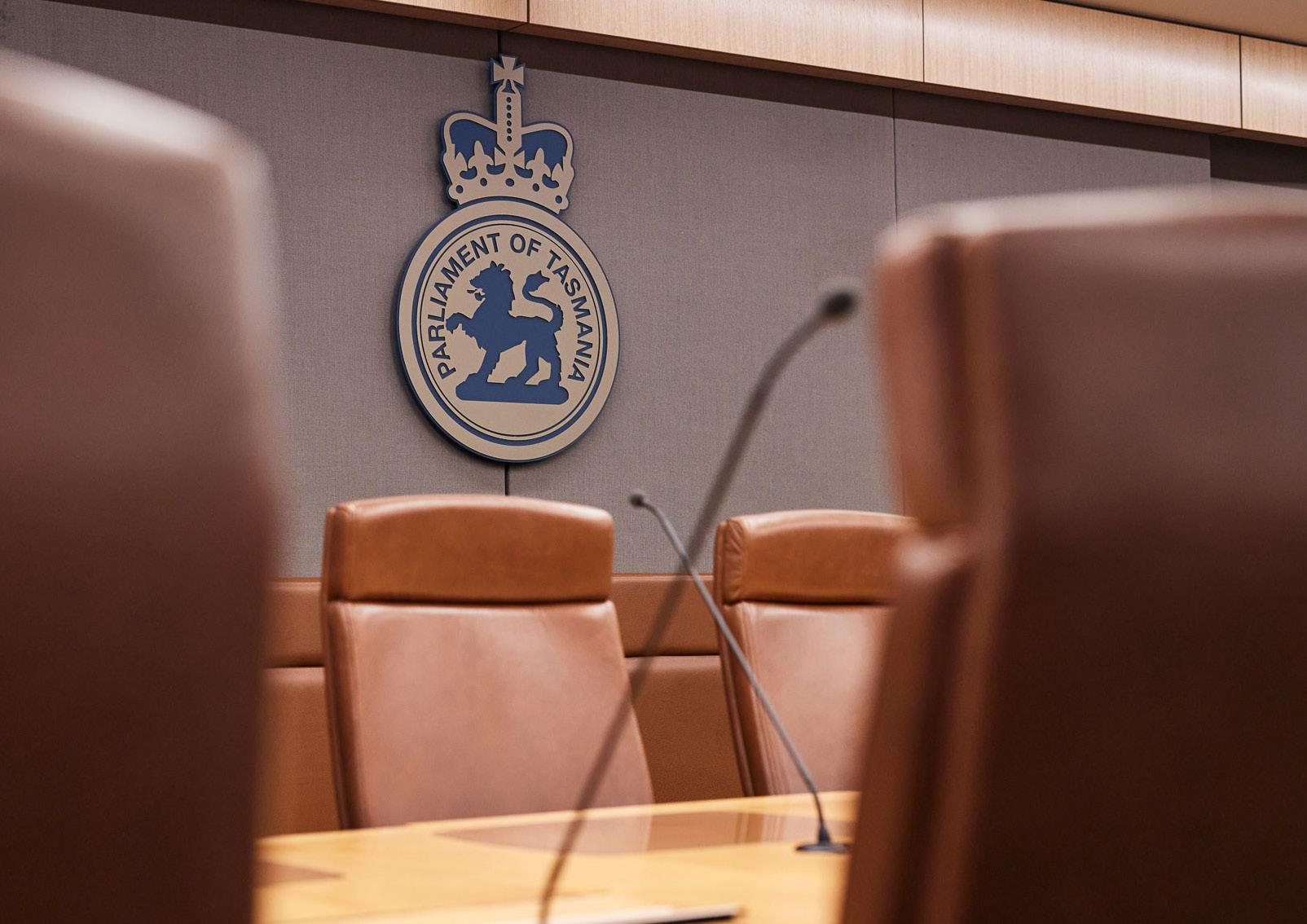
The current Committee continues to provide collective good governance and oversight in a consensus driven way to achieve good outcomes on behalf of the Tasmanian community. The Committee looks forward to tabling well considered and outcome focussed reports in Parliament on any matter relating to the management, administration or use of public sector finances, or the accounts of any public authority or other organisation controlled by the State or in which the State has an interest.
It will be interesting to see what the Tasmania Public Account Committee’s role will be when it reaches its bicentenary in 2062.
• Copies of past and current reports are available on the Tasmania Public Accounts Committee’s website: https://www.parliament.tas. gov.au/committees/joint-committees/standing-committees/publicaccounts-committee.
• The research for this article was undertaken by the author during prorogations of the Tasmanian Parliament in 2022.
The CPA Parliamentary Academy has a Public Accounts Committee online course which is free for both Members of Parliament and parliamentary staff from CPA Branches or for a small fee for others. Visit www.cpahq.org/ parliamentary-academy/ to register.
References:
1 See Tasmanian House of Assembly State of the Public Service Report (No. 2 of 1857), https://www.parliament.tas.gov.au/__data/assets/pdf_file/0016/34702/ ha1857pp2.pdf
2 See Report of the Royal Commission Appointed to Inquire into the Accounts, and the Departments of the Government, Southern Side (No. 11 of 1863), https://www. parliament.tas.gov.au/__data/assets/pdf_file/0029/39674/ha1863s2pp11.pdf
3 See Report of the Royal Commission Appointed to Inquire into the Working of the Departments on the Northern Side of the Island (No.18 of 1863), https://www. parliament.tas.gov.au/__data/assets/pdf_file/0030/39099/ha1863s2pp18.pdf
4 Around $3.37M using the Retail Price Index in 2023: see https://www.thomblake. com.au/secondary/hisdata/calculate.php
5 The Mercury (Hobart, Tas.:1860 – 1954), Friday 29 August 1862, page 4, https:// trove.nla.gov.au/newspaper/article/8810163
6 Tasmanian Tribune (Hobart Town, Tas. : 1872 - 1876), Wednesday 3 November 1875, page 3, http://nla.gov.au/nla.news-article200366699
7 No Select Committees for Public Accounts were established between 1882 and 1886 inclusive.
8 The period between 1916 to 1943 was arguably of sporadic activity: from 1916-17 to 1920-21, there were 18 meetings held but no reports tabled,
• from 1921-22 to 1924-25 saw 14 reports tabled (but no records of meetings),
• from 1925-26 to 1930 saw a total of 16 meetings and 19 reports being tabled, but
• from 1931 to 1943 only one meeting and a single report in 1934.
9 See ‘Chapter Ten – Frederick John Batt’ in Independence – A Foundation of Accountability: A History of the Tasmanian Audit Office, Lindy Scripps, p.169-170
10 See Audit Inquiry Continued from Page 7, The Mercury, Thursday 29 June 1944, p.14 https://trove.nla.gov.au/newspaper/article/26003743/1868838
11 See Parliament Must Decide, The Mercury, Thursday 9 June 1944, p.3 https:// trove.nla.gov.au/newspaper/article/26003706/1868827
12 Journal and Printed Papers of Parliament 1946 No.1 Report of the Royal Commission of Forestry Administration and Journal and Printed Papers of Parliament 1948 No.1 Report of the Royal Commission Upon Certain Allegations of Improper Payments to the Honourable the Premier in Relation to State Road Transport Policy
13 Despite this, the Tasmanian Government was returned to power having lost one seat and with the help of an Independent.
14 One of the first two women elected to Tasmania House of Assembly (Amelia Best was the other). First women elected to Hobart City Council 1952; Deputy Lord Mayor 1954-56, 1964-70. Represented Australia at UNO 1967-69. https://www. parliament.tas.gov.au/history/members/millerm523.html
15 First woman in Australia to lead an Upper House. Longest term of any woman in Tasmanian Parliament. Mother-in-law of ALP Premier Bill Neilson. Granted the right to use the title 'Honourable' for life on 12 August 1976. https://www.parliament.tas. gov.au/history/members/benjaminp514.html
16 See Review of the Public Accounts Act 1970 (No. 34 of 2017), Appendix 3, https:// www.parliament.tas.gov.au/__data/assets/pdf_file/0034/59776/report20no.3420 of20201720report20on20review20of20the20public20accounts20committee20 act201970.pdf
17 See https://www.legislation.tas.gov.au/view/html/inforce/current/act-1970-054
18 See Statement of Understanding between the Public Accounts Committee and the Auditor-General, https://www.parliament.tas.gov.au/__data/assets/pdf_file/00 22/57442/2021090220pac20statement20of20understanding20signed.pdf
19 See: https://www.parliament.tas.gov.au/__data/assets/pdf_file/0030/57891/pac2 0sr20520of20201720for20website20_20printing.pdf
20 See: https://www.parliament.tas.gov.au/__data/assets/pdf_file/0029/58862/pac. rep.finalspecialreport.releaseofdocumentscombined.neaw.002.pdf
21 See https://www.parliament.tas.gov.au/__data/assets/pdf_file/0029/58862/pac. rep.finalspecialreport.releaseofdocumentscombined.neaw.002.pdf
22 It is intended as a future project for copies of all available Tasmania Public Accounts Committee reports to be uploaded to the website for public interest and research purposes.
66 | The Parliamentarian | 2024: Issue One | Over 100 years of publishing
PUBLIC ACCOUNTS COMMITTEES IN THE COMMONWEALTH
Image: Parliament of Tasmania.
EVIDENCE-BASED ACADEMIC ANALYSIS IN LEGISLATIVE AND PARLIAMENTARY RESEARCH
EVIDENCE-BASED ACADEMIC ANALYSIS IN LEGISLATIVE
AND PARLIAMENTARY
RESEARCH
Research undertaken for the Legislature seeks to draw information from a wide range of sources and to synthesize the evidence, within a relatively short time span and in a form that is useful for Members of Parliament and Parliamentary Committees, to understand, review and seek solutions to problems faced by the people.
A Parliamentary Research Service is expected to provide multiple products ranging from brief few-page infographics, a textual synthesis, analytical papers featuring divergent perspectives on a particular topic through to actual qualitative and quantitative scrutiny of government policy and implementation or a comprehensive investigative report to help the Legislature correct the course of a state or government policy or action. Obviously, while there is emphasis on the presence of a seasoned in-house team of researchers, each member of the team having expertise of specific disciplines including social sciences, such as international relations and strategic studies, economics, development studies and public finance, sociology, constitutionalism and law; it is also imperative that a Parliamentary Research Service develops a functional system of readily available access towards individual academics, universities and think tanks. This enables House scholars to retrieve evidence-based papers at short notice, in order to then synthesize the evidence and identify viable policy options and proposals to assist with the informed decision-making by Legislators.
Developing a national pool of academic researchers
Parliamentary Research Services, such as the UK Parliament Office of Science and Technology (POST), the US Congressional Research Services (CRS), the Library and Research Service at the German Bundestag, the Parliamentary Centre in Canada and the Pakistan Institute for Parliamentary Services (PIPS), have all evolved longstanding relationships with the academia. As a first step, a national pool of academic researchers is convened where Professors teaching, supervising and conducting research in areas of law, economics, finance, governance, international relations, strategic studies, agriculture, development studies and public policy, are invited to consult with the Parliament. Academics and international parliamentary researchers are given the opportunity to
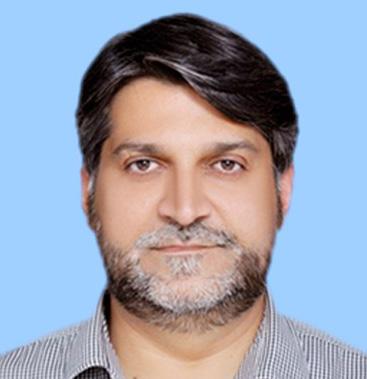
work with the Parliament over a period of time in order to examine how academic evidence may be utilised in the development of research papers provided to individual MPs, Committees and caucuses.
Role of academic research in building strong Parliaments
1. Academics conduct and supervise research with the liberty of having more time and resources to be able to witness societal trends and to analyse human behaviour. This enables them to study different phenomena and their multiple variables in detail in order to develop universal theories. Thus, engaging academic research not only helps in keeping the Legislature abreast of studies on contemporary issues and approaches regarding the challenges faced worldwide, but it also assists Parliaments and Governments in identifying key factors and variables to analyse other societal issues. These could include the impact on our lands, people and life, especially in dire situations of conflict, climate change, pandemics, human and drugs trafficking, terrorism and other natural and man-made hazards, which may trigger humongous dilemmas (i.e. soil salinity, famine, malnutrition, economic recession, unemployment, displacements, poverty and death).
2. Access to academic research also helps accumulate empirical data by experiments and by observation of evidence to recommend solutions in the shape of specific outcomes or new concepts. One example is the creation of– ‘resilient societies’, through policies of climate smart agriculture, mechanisms of conflict resolution and peace building, laws to protect women, children, laborers; taxation to enhance resources, system for disaster mitigation and building correction commissions and introducing public policy initiatives for better governance.
Multiple triangulations make parliamentary work robust
A Parliamentary Research Service is able to draw on academic input as a source of multiple types of triangulations in parliamentary work in order to make it robust. This includes firstly data triangulation where different academic studies approach a problem with different
Professor Muhammad Rashid Mafzool Zaka is the Founding Member and Director General of Research at the Pakistan Institute for Parliamentary Services (PIPS), who commenced its Research and Training programmes in 2010-11. An author and social scientist who has served three decades in academia and Legislatures, he completed Fellowships in Human Rights and Budgets (2008) and Legislative Work (2015) with the Asian Institute of Human Rights and the US Dept of State.
The Parliamentarian | 2024: Issue One | Over 100 years of publishing | 67
EVIDENCE-BASED ACADEMIC ANALYSIS IN LEGISLATIVE AND PARLIAMENTARY RESEARCH
time, space and people. Secondly, investigator triangulation enables a mix of in-House researchers and university Professors to work on the same study ensuring multiple perspectives and approaches to analyse evidence. Thirdly, academics introduce a theory triangulation framework for interpretation that is found largely missing in parliamentary work. Last but not the least, methodological triangulation is possible, as academics promote the use of different methods with regards to the collection of evidence, ranging from desk-based research on published material to conducting surveys, interviews and observation.
Evolution of Parliamentary Studies as a discipline Institutions lie at the core of social reality and of political order. Hence it is valid to focus historically grounded political science on them.1 The definition of Parliament has evolved from a narrow distinction on the basis of the United Kingdom as the role model, the ‘Mother of all Parliaments’, based on age-old rise of parliamentary supremacy over the Crown. Then we have seen concepts of ‘true Parliament’ (used for example in relation to the German Bundestag) and ‘façade Parliaments’, (for weak Legislatures), with the central criterion being whether the Parliament is based on regular, free and inclusive elections. The history of the Legislature manifests “evolution towards this true Parliamentarianism”, as the inherent goal. Therefore, legislative scholars engage in endless debate on the appropriate role of a Member-Elect, oscillating between that of a ‘trustee’ or a ‘delegate’ or the role of a ‘politico’ serving as a residual category in between.2 Nevertheless, such observations and interpretations that the successful “true Parliaments model” in the UK, Germany and Spain for example, can be replicated as a prototype in all parts of the world is complex as there are exceptions inherently opposite to what democracies face in Asia, the Americas and Africa.
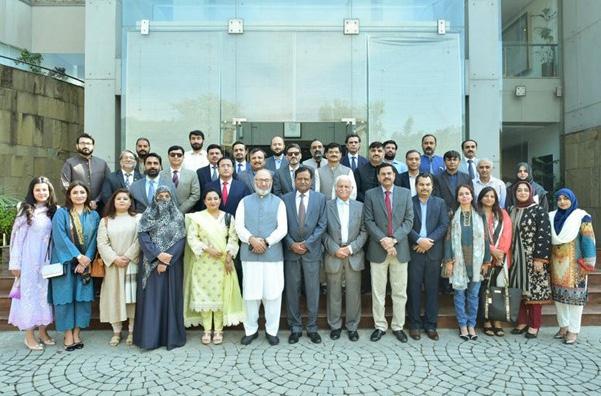
contradictions of legislative theory and practice. Thus, access to evidence provided by academics has enabled legislative scholars to present a comparative perspective during legislative assessment as well as post-legislative scrutiny.
The Parliamentary Affairs: A Journal of Representative Politics, published by Oxford University Press and the Hansard Society of UK (founded in 1944 and is one of the recognised contemporary sources of academic research on parliamentary affairs) presents critical theoretical models on case studies of Parliaments from different regions.
The last half century witnessed a transformative paradigm where the debate on analysing Legislatures evolved from largely the role and performance of Legislatures and Legislators based on chronological descriptive studies by historians and political scientists to a wider scope of scrutiny of parliamentary institutions and more importantly their impact on people’s lives. The input of cross-disciplinary academics, practitioners and subject-experts in legislative work in law, economics, finance, defence, international relations and public policy has triggered a new discipline of parliamentary studies that has introduced ‘evidence-based’ inquiries of legislative outputs that are based on ‘key performance indicators’ (KPIs) viz a viz how legislators’ are measuring their success in law making, sustainable development and improved governance, as well as reforms in policies that are aimed at the wellbeing of their constituents.
Journals as sources of evidence-based legislative research
Consequently, the growth in journals specifically pertaining to parliamentary disciplines has also opened new avenues of accessing evidence-based analysis and scrutiny in parliamentary work. The International Journal of Parliamentary Studies, published in close cooperation with Ludovika University of Public Service, Hungary, calls for papers in fields of legal and social sciences, seeking remedies to specialization within these disciplines and the
The Journal of Democracy published in Washington by John Hopkins University Press, is another academic source, analysing contemporary challenges such as financial secrecy, artificial intelligence, non-state terrorism, theocratic democracy and acute economic and political crisis. Thus, parliamentary and legislative research now has access to a plethora of academic writings as sources of evidence-based scrutiny of issues faced by democracy and representative institutions.
Engaging academics in parliamentary work at the Pakistan Institute for Parliamentary Services
As early as its formative years (2009-10), the Pakistan Institute for Parliamentary Services (PIPS) set up its systems to access authoritative data and empirical evidence to enable the provision of credible and reliable research in the shape of briefing papers, data analytics and technical reports for both Legislators and Committees. The in-House team of researchers (as of 2024) comprises six researchers, including four academics who evolved as parliamentary researchers. The Institute utilised the available legislative fellowships and parliamentary attachments for its in-House researchers to undertake ‘hands on’ experiential learning at different Legislatures in the USA and the UK.
PIPS National Pool of Academic and Parliamentary Researchers
A national pool of 50 academics from reputed Pakistani universities was established, along with the commencement of the PIPS Research and Training Services in 2010 and 2011. A Resource Directory and Policy Resource Guides were compiled with accessdetails of individual experts, academics, researchers, organisations, think tanks and universities. In 2024, more than 100 leading scholars
68 | The Parliamentarian | 2024: Issue One | Over 100 years of publishing
Image: Pakistan Institute for Parliamentary Services (PIPS).
are members of the PIPS network, including 20 economists and social scientists who work closely with the in-House Research Team. PIPS has furnished more than 1,800 in-depth papers, policy briefs and legislative summaries. Academics and Universities as partners for evidence-backed research
The PIPS Institute has trained academics and legislative researchers on legislative theory and has applied the model to assess laws for Members of Parliament. The PIPS Institute has developed formal relationships through Memorandum of Understandings (MoUs) with a number of universities in Pakistan (for example, Quaid e Azam University, National Institute of Pakistan Studies, Pakistan Institute for Development Economics, Fatimah Jinnah Women’s University and Riphah International University) and leading think-tanks (Institute of Strategic Studies, and Sustainable Development Policy Institute).
EVIDENCE-BASED ACADEMIC ANALYSIS IN LEGISLATIVE AND PARLIAMENTARY RESEARCH
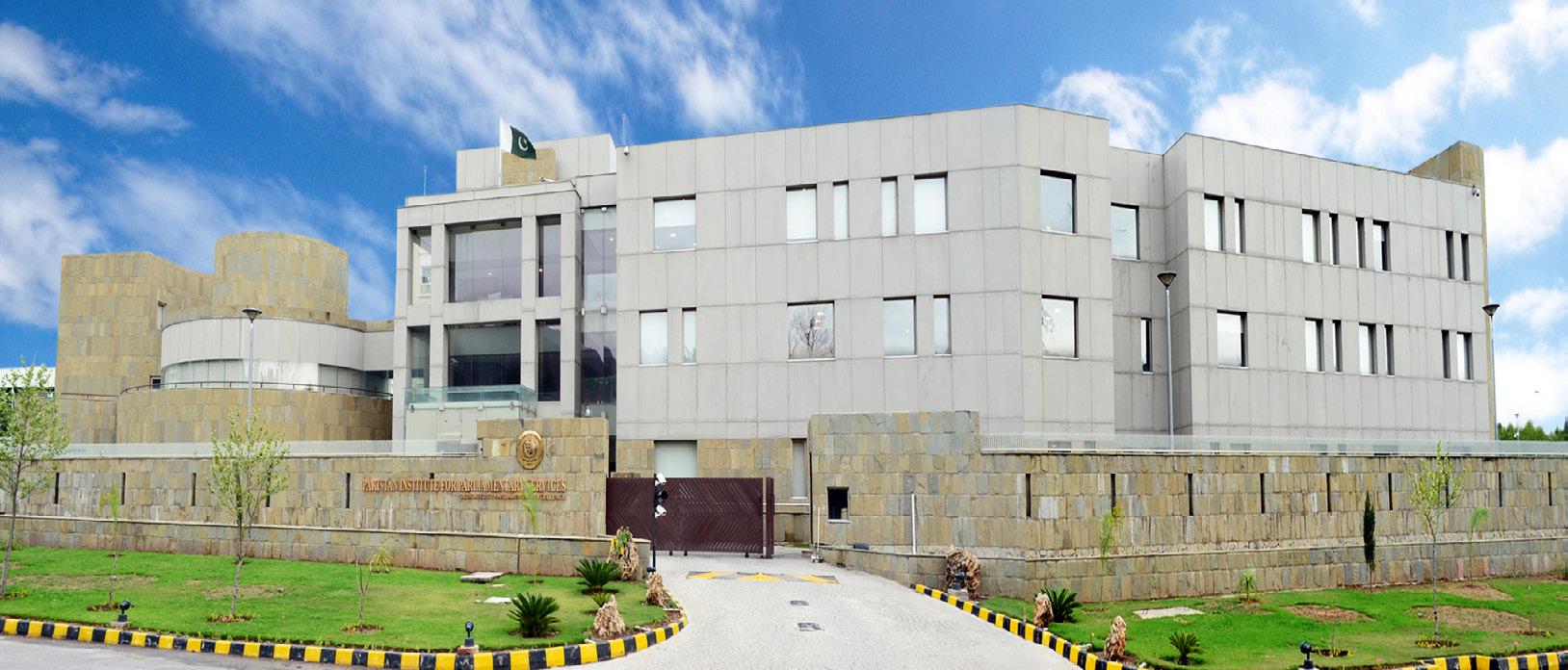
Towards theory-based Legislative research
These two-way partnerships have the enabled the PIPS Institute to access academics’ input into joint Parliamentary seminars, promote the exchange of academics as trainers and engage academics in contributing to research papers for Legislators.
PIPS also introduced Parliamentary Studies at 20 universities in Pakistan including two universities offering fully-fledged degrees at undergraduate level. The Institute’s library maintains an updated repository of all laws enforced in Pakistan from 1812 until the present date (over 800 laws at the federal level and 2,700 provincial laws). The library also provides access to academia to facilitate their research projects.
International networks of Parliamentary research and library fraternity
International Parliamentary networks provide a great opportunity to connect with the wider fraternity of Parliamentary researchers and academics working for Legislatures. The Inter-Parliamentary Union (IPU), the Commonwealth Parliamentary Association (CPA), the International Federation of Library Associations and Institutions (IFLA) are some of the examples of networks that enhance interaction amongst parliamentary research communities. These Parliamentary networks connect the research fraternity to engage in academic and evidence-based studies in legislative work as well as discussing new realities like artificial intelligence (AI) in a digital world.
Challenges of academics’ quality output in Legislative research
Engaging academics to undertake independent assignments for an MP or Parliamentary Committee can pose some practical challenges. These challenges can involve the delivery timelines/deadlines for research papers, with academic deadlines being much longer than in-House research deadlines, and the costs associated with engaging academic research compared to in-House research. In addition, the extended period with academic research may include a peer review, providing further quality assurance to the Member of
The Pakistan Institute for Parliamentary Services (PIPS) has its own niche and a wider overall remit than the Senate and National Assembly Research wings, along with many good connections with different organisations and academics.3 A small team of only six PIPS researchers has always made the publication of their research a top priority.
The PIPS Institute has published over 70 books, coordinating on case-by-case basis with academics on many different topics including legislative assessment, the SDGs, budget analysis, the right to education and parliamentary values. These books and research papers are accessible at www.pips.gov.pk with hardcopies disseminated amongst our 28,500 readers. Experts and Professors regularly contribute to the PIPS Research Digest, one of the country’s most widely read parliamentary periodicals subscribed to by MPs, universities, diplomats, civil society, libraries and think tanks/universities. Access to evidence-based analysis and theory-based legislative work is widely encouraged by our pool of researchers in a two-way partnership with universities. This academic-research relationship is enormously relevant for a dynamic parliamentary research service that aims to furnish high quality and reliable research to individual Members of Parliament and Legislatures.
References:
1 Werner J. Patzelt, ‘Parliaments and Their Evolution’, On parliamentary history, research on Parliaments and Research-Guiding Theory, International Journal of Parliamentary Studies, Brill Netherlands, Issue 3: 2023, p.5.
2 Ibid.
3 Rob Clements, former Clerk, The House of Commons Library, UK Parliament, Final Report on support to research wings of the Pakistan Parliament’, May 2016.
The Parliamentarian | 2024: Issue One | Over 100 years of publishing | 69
Parliament or the Parliamentary Committee who has commissioned the research.
Image: Pakistan Institute for Parliamentary Services (PIPS).
FROM KIGALI TO DUBAI: COMMONWEALTH LOCAL CLIMATE ACTION
The recent Commonwealth Local Government Conference in Rwanda with its focus on building local resilience was followed by the United Nations Climate Change Conference (COP 28) in Dubai which highlighted the importance of local climate action.
In November 2023, shortly before the UN climate summit, COP28 in Dubai, the Commonwealth Local Government Forum (CLGF) held its global local government conference in Kigali, Rwanda, with some 500 senior representatives from over 40 countries.
CLGF, like the Commonwealth Parliamentary Association (CPA), is an accredited Commonwealth organisation composed of democratically elected representatives such as mayors and local councillors, but also national Ministers of local government or urban and rural affairs, normally MPs with Cabinet rank. The Kigali Conference included a strong contingent of young councillors, taking into account that 2023 was the ‘Commonwealth Year of Youth’ (which also continues into 2024); it was preceded by a research colloquium for academics involved in local government studies.
The CLGF Conference had the theme of ‘ Building local government resilience to future shocks’. CLGF Secretary-General, Lucy Slack commented that ‘ COVID-19 re-enforced how much communities rely on local government and local leadership for many of the basic services that are integral to their daily lives and the Conference only confirmed that in the face of the climate crisis, rapid urbanisation and the need to accelerate progress towards achieving the UN SDGs, it is essential at we invest more in local government, local participation and local delivery to build effective resilience from the bottom up.’
These issues were reflected in the Conference outcome, the ‘Kigali Declaration on Building Local Resilience across the Commonwealth’. The Declaration deals with delivering resilient societies through a focus on people; reinforcing resilience through a focus on economies; the environment; and democracy. It explicitly expresses concern about the failure to reduce greenhouse gas emissions adequately and to mobilise sufficient climate finance to support the Global South to achieve a just transition and emphasises that local governments access to finance is crucial in supporting their ability to undertake effective planning, address inequalities, act on climate, re-enforce economies and ensure social and political inclusion.
The Declaration calls for central and local government to work together to raise awareness of the impacts of climate change in
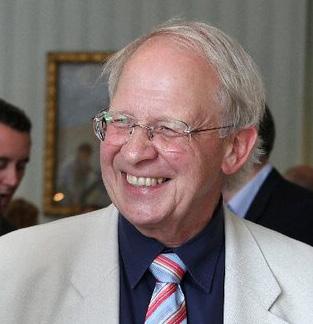
communities, build capacity, mobilise stakeholders and ensure coordinated action for climate mitigation and adaption as well as disaster risk reduction. It states that they should draw on naturebased solutions and traditional knowledge-based systems and engage communities in climate action, noting that this is particularly important in small island developing states (SIDS) which are especially vulnerable to the impacts of climate change.
It is further proposed that local government should have direct access to green finance to reinforce local resilience and enable communities to adapt to and mitigate climate risks, highlighting that local capacity to access data, develop feasibility studies and environmental impact assessments are essential to enabling access to green finance and that efforts should be made to continue to reduce impediments to local access to green finance. CLGF will establish a Taskforce on mobilising finance for development at the local level to provide a space for dialogue and identifying options and innovations, as well as potential partnerships for delivery.
Many of these issues were raised at the United Nations Climate Change Conference (COP 28) in Dubai in December 2023 where CLGF was represented by its Secretary-General. The COP for the first time included a high-level Local Climate Action Summit, addressed by the UN Secretary-General, H.E. António Guterres and COP28 President, Sultan Al Jaber (UAE) and attended by senior mayors and local leaders from across the world, including many Commonwealth countries. With the support of UN Habitat, a Ministerial meeting on climate and urbanisation was also held, as well as a wide range of other local government-related events on climate adaptation and mitigation, where the CLGF Kigali Declaration had much relevance.
COP 28 saw the launch of the Coalition for High Ambition Multilevel Partnerships (CHAMP) under which some 70 national governments have to date formally committed themselves to engage subnational governments, including cities, towns, states and regions, in the planning, financing, implementation and monitoring of climate strategies notably National Determined Contributions (NDCs). This commitment reflects the vital role that cities and urban areas in particular have in tackling climate change,
Dr Carl Wright is Secretary-General Emeritus and Board member of the Commonwealth Local Government Forum (CLGF), which he helped to establish in 1995; he is also Trustee of the United Nations Association, the Ramphal Institute and holds a number of advisory positions, including the Editorial Advisory Board of The Parliamentarian, the Commonwealth Roundtable, Amnesty International and the Kent Business School. He worked previously at the Commonwealth Secretariat and the Commonwealth Trade Union Council (CTUC) and has served on a number of highlevel international expert groups and election observer teams.
70 | The Parliamentarian | 2024: Issue One | Over 100 years of publishing
LOCAL
COMMONWEALTH
CLIMATE ACTION
being both the main source of global greenhouse gas emissions and potentially the vehicle to achieve successful adaptation and mitigation, as seen by the numerous cities which have their own Zero Carbon timetables.
As set out in the CLGF Kigali Declaration, cities and local governments often lack the necessary climate finance to implement climate action, especially in vulnerable developing countries. It is therefore encouraging that COP28 decided that the new UN Loss and Damage Fund, designed to assist such vulnerable countries and administered by the World Bank, will allow local governments access to the Fund.
While details remain to be worked out, it makes sense that local governments which are in the forefront of addressing local resilience and dealing with climate change, including sudden natural disasters like floods or excessive heat and wildfires, should be given more resources. This bottom-up approach should be more effective than channelling funds top down, often with unnecessary bureaucracy and delays and is integral to the policies of the EU, OECD, G7 and others, with the UN having recently established an advisory group on local and regional government with participation of Commonwealth mayors.
CLGF is looking forward to the 2024 Commonwealth Heads of Government Meeting (CHOGM) in Samoa in October 2024 with the theme of ‘One resilient Common Future: Transforming our Common
COMMONWEALTH LOCAL CLIMATE ACTION
Wealth’. This will be valuable opportunity to address in particular the needs of vulnerable and climate-endangered small island states, as well as to integrate the aims of the CLGF Kigali Declaration into wider Commonwealth strategies on resilience.
Many Commonwealth Parliamentarians already collaborate closely in their own localities with their mayors and community leaders in tackling local issues. This collaboration also extends to the level of national Parliaments, which often have Select Committees and other forums dealing with local government issues including financing. Given similarities in structure and democratic mandates, there is much potential for CPA and CLGF to address issues like resilience, climate change and finance collectively for the mutual benefit of their respective memberships.
Dr Carl Wright attended the 2023 CLGF Kigali Conference in Rwanda and has been a delegate at past COPs and has also written on climate change; he is the author of ‘Global Citizen: Grassroot Activism and High Diplomacy’ (Hansib Publications 2022).
The Commonwealth Local Government Forum (CLGF) is a membership organisation providing a voice to local government throughout the Commonwealth. It supports local democracy, good governance and quality service delivery through advocacy, networks, programmes and research. To find out more about the work of CLGF please visit www.clgf.org.uk or follow @CLGF_news on Twitter/X.
RWANDA HOSTS COMMONWEALTH LOCAL GOVERNMENT CONFERENCE FOCUSING ON BUILDING LOCAL RESILIENCE
The Commonwealth Local Government Conference took place from 14 to 17 November 2023 in Kigali, Rwanda and was attended by Commonwealth Parliamentarians, mayors, councillors and local government officials. Rwanda’s Prime Minister, Hon. Dr Édouard Ngirente opened the conference and described its theme - Building Local Resilience across the Commonwealth - as timely, with the current global challenges, including the COVID-19 pandemic, economic crisis, environmental shocks, climate change and conflicts having challenged the resilience of governments. He also welcomed the opportunity to reflect on how to strengthen resilience for local government and explore innovative ways to address these challenges.
Guest speakers at the conference also included Rwanda’s Minister for Local Government, Hon. Jean Claude Musabyimana; the Chairperson of the Rwanda Association of Local Government Authorities (RALGA), Cllr Jeannette Nyiramasengesho; the Chair of the Commonwealth Local Government Forum (CLGF), Rev Mmachakga Mpho BW Moruakgomo; and the Commonwealth Secretary-General, Rt Hon. Patricia Scotland, KC (via video link).
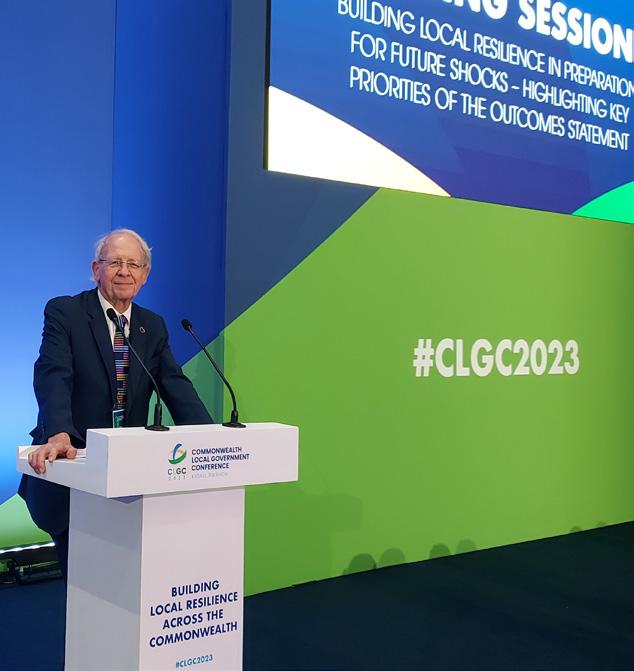

The Conference delegates endorsed ‘The Kigali Declaration on Building local resilience across the Commonwealth’ which will go forward to the forthcoming Commonwealth Heads of Government Meeting (CHOGM) in Samoa later this year. The Prime Minister of Samoa, Fiamē Naomi Mataʻafa, also sent a video message emphasising the importance of resilience in the face of so many global challenges and welcoming the outcomes of the CLGC2023. The CLGF Secretary-General, Lucy Slack said: “The Kigali Declaration will guide our work planning in 2024; our programmes will reflect the importance of a greater focus on building resilience, particularly with respect to the climate crisis; economic development and finance; and we are planning new initiatives to champion local leadership in the Commonwealth and to strengthen learning and cooperation between cities and communities to further underpin resilient local government.”
The Parliamentarian | 2024: Issue One | Over 100 years of publishing | 71
credit: Rwanda Government/CLGF.
Image
Image credit: Rwanda Government/CLGF.
FAST-TRACKING URBAN PUBLIC HEALTH
The Fast-Track Cities network, originally established to accelerate urban responses to HIV/AIDS, has grown to tackle urban public health challenges across the Commonwealth.
In the bustling urban landscapes of Commonwealth countries, a cityfocused network has successfully averted new HIV infections and AIDS-related deaths, while prioritising a rights-based social agenda, since its 2014 launch. The Fast-Track Cities network, originally focused on accelerating urban HIV responses, has transcended its original scope to also encompass efforts to eliminate urban hepatitis C virus (HCV) infections and avoid tuberculosis (TB) deaths, centered around the principle that a high tide can lift all boats.
In relation to HIV, the 500-plus Fast-Track Cities network has leveraged urban public health leadership in close to 100 Commonwealth cities around the world. These cities have achieved significant improvements in HIV treatment coverage, which has a dual effect of preventing disease progression and deaths among people living with HIV (PLHIV) and preventing new onward HIV infections. In Lagos, Nigeria, the percentage of PLHIV who knew their status and accessed treatment increased from 76% in 2015 to 89% by 2021. Moreover, eThekwini (Durban), South Africa, increased its treatment coverage from 77% of diagnosed PLHIV in 2018 to 90% in 2022. Social determinants of health and persistent stigma challenge our ability to further close HIV treatment gaps, which requires sustained efforts to shatter the status quo.
Several Commonwealth countries, including Australia, South Africa and the United Kingdom, host many Fast-Track Cities, in essence becoming Fast-Track Countries. This critical mass of Fast-Track Cities is enabling a national consortium effect with a measurable impact on scaling up HIV prevention services. Among these services is HIV pre-exposure prophylaxis (PrEP), which can prevent HIV-negative individuals from acquiring the virus and is an adjunct to HIV treatment in a combination HIV prevention approach. South Africa, which has 14 Fast-Track Cities, has seen an increase in PrEP use, from 168,538 in 2021 to 888,217 in 2023. Progress in PrEP uptake is uneven, however, with Fast-Track Cities in too many countries constrained by less than favorable environments, including lack of health financing to support universal PrEP access, requiring sustained advocacy to address political and commercial determinants of health.
Fast-Track Cities are also moving the needle towards HIV epidemic control. As a result of their efforts, many cities have
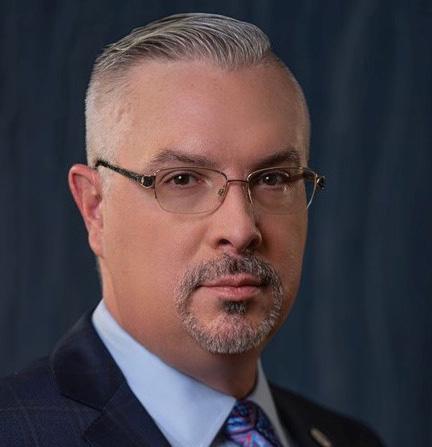
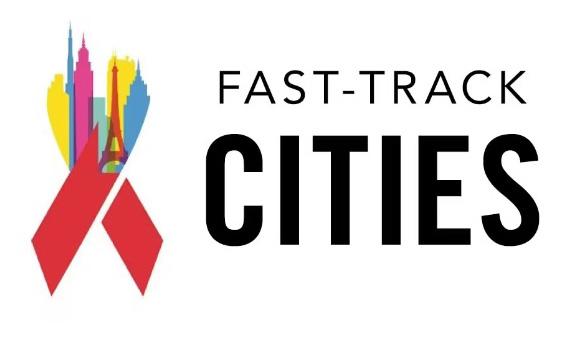
reduced their HIV incidence rates, or the estimated number of persons newly infected with HIV. Some cities have nearly halved HIV incidence in the span of a few years. Kingston in Jamaica, which had 98 new infections per 100,000 population in 2018 saw a decrease in incidence to 56 new infections per 100,000 population in 2021; and Lusaka in Zambia saw a decrease in incidence from 2,312 new infections per 100,000 population in 2018 to 1,099 new infections per 100,000 population in 2022. While these successes are laudable, all cities (and countries) should be on a trajectory towards zero new HIV infections to realise our collective aspiration of attaining the United Nations goal of ending AIDS as a public health threat.
The Fast-Track Cities network’s urban HIV outcomes extend beyond the increased use of biomedical interventions to curb HIV acquisition and transmission. Through partnerships between public health bodies and community-based organisations, we have witnessed the tangible changes public health and affected community leadership has brought about – from reducing HIV and intersectional stigma to implementing culturally competent personcentered care models. The network’s success stories serve as a testament to the power of shared determination in the pursuit of ending HIV epidemics in urban settings – where two out of every three people are projected to live by 2050.
As the network prepares to commemorate its 10-year anniversary this year, Fast-Track Cities as diverse as Johannesburg, Kingston, London, Mumbai, Sydney and Toronto remain steadfast in their priority focus on reaching the last mile towards ending urban HIV and TB epidemics, alongside the elimination of HCV infection by 2030. This strategic commitment will ensure that the hard-fought gains achieved over the past decade within urban settings are sustained and advanced. By prioritising the last mile, the network
Dr José M. Zuniga is President/CEO of the Fast-Track Cities Institute (FTCI) and International Association of Providers of AIDS Care (IAPAC), which is the core technical partner of the Fast-Track Cities network. Dr Zuniga joined IAPAC in 1997 and has served as its President/CEO since 2000. He is also a member of the IAPAC Board of Trustees, and an Editor Emeritus of the Journal of the International Association of Providers of AIDS Care.
72 | The Parliamentarian | 2024: Issue One | Over 100 years of publishing
FAST-TRACKING URBAN PUBLIC HEALTH
FAST-TRACKING URBAN PUBLIC HEALTH
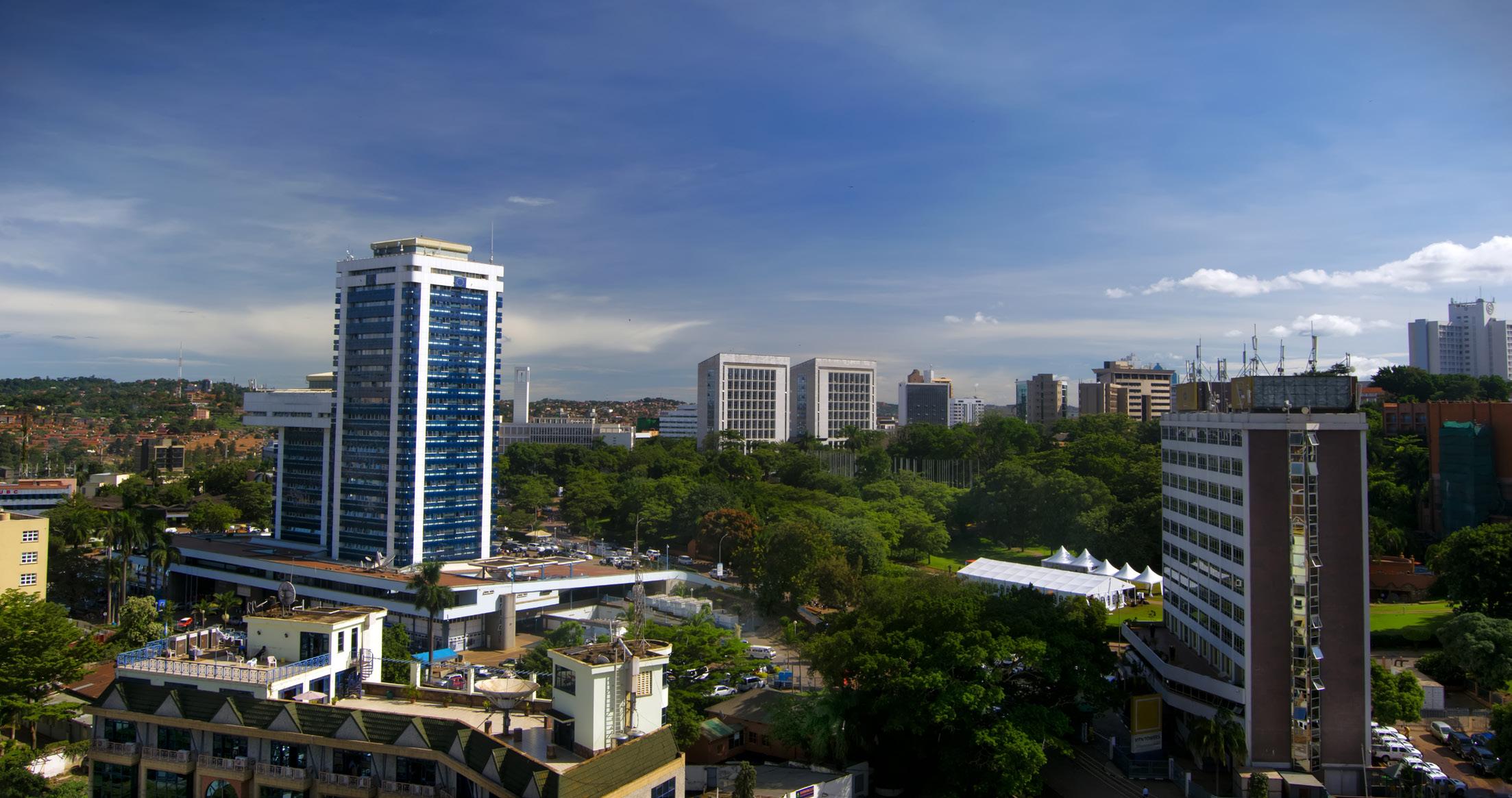
acknowledges the importance of inclusive HIV, TB and viral hepatitis responses, leaving no community behind. Simultaneously, Fast-Track Cities are aligning with the importance of advancing a broader urban public health approach, recognising the interconnectedness of diseases and the need for holistic strategies. This dual commitment reflects the Fast-Track Cities network’s dedication to achieving health equity and fostering resilient urban communities in the pursuit of global health targets.
Leveraging its past achievements across HIV, TB and viral hepatitis responses, the Fast-Track Cities network is poised to achieve a wider range of global public health goals. Whether eliminating cervical cancer as a public health threat by 2030, saving 2.5 million lives from breast cancer deaths by 2040 or ensuring a 20% increase in service coverage for mental health conditions by 2030, the network prepared to redefine urban approaches to myriad health challenges. Strategic partnerships, including between Fast-Track Cities, Fast-Track Countries, Commonwealth countries and the Commonwealth Secretariat, can help to leverage urban public health leadership to realise the right to health for all.
In the face of accelerating global urbanization trends, directing health responses towards cities is of paramount relevance due to an undeniable urban advantage. Cities, as hubs of economic, social and cultural activities, play a pivotal role in shaping public health landscapes. Moreover, the concentration of population in cities facilitates targeted interventions and efficient resource allocation, leading to swifter responses to health challenges. By focusing on cities, health initiatives such as Fast-Track Cities are harnessing the benefits of interconnected urban networks, enabling rapid dissemination of health-promoting information and implementing health and other innovations. Recognising cities as strategic focal points enhances the effectiveness of health responses, contributing to the overall well-being of urban populations and, consequently,
making significant strides towards achieving national and global health goals.
Parliamentarians play a crucial role in shaping and advancing public health policies, enacting laws that promote public health, allocating resources for healthcare systems and providing oversight of existing health policies. Parliamentarians across the Commonwealth can partner with Fast-Track Cities to create enabling environments for public health by ensuring laws and policies, as well as resources, address the specific needs of communities affected by communicable and non-communicable diseases. Examples of such actions include reforming laws that perpetuate social injustice, passing legislation aimed at reducing health disparities and advancing regulatory measures for health promotion. As important, All-Party Parliamentary Groups (APPGs) and parliamentary caucuses also have a crucial role to play in facilitating cross-party collaboration and unity in strengthening urban public health responses, while also engaging with counterparts in other countries to address crosscutting public health challenges.
At the core of the Fast-Track Cities network’s mission lies a value that resonates with the mission of the Commonwealth, namely solidarity. Collaboration and shared responsibility are not just operational buzzwords but the very essence of the network's impact over the past nine years. As we approach the mid-term to the health-related UN Sustainable Development Goals (SDGs) deadline of 2030, solidarity must be the driving force behind efforts to achieve health for all in every city of the world, ensuring that no one is left behind in the pursuit of a more equitable world.
To find out about the Fast-Track Cities Institute please visit www. ftcinstitute.org. Email jzuniga@iapac.org or jzuniga@ftcinstitute.org to learn more about or engage with the network on HIV or other health responses, respectively.
The Parliamentarian | 2024: Issue One | Over 100 years of publishing | 73
Image: Shutterstock_632817764
Kampala skyline Uganda.


CPA BENCHMARKS NEWS
COMMONWEALTH PARLIAMENTS IN NAMIBIA, TONGA, FIJI, BOTSWANA, MALDIVES
AND KIRIBATI UNDERTAKE CPA BENCHMARKS ASSESSMENTS TO FOCUS ON PARLIAMENTARY STRENGTHENING AND REFORM
In recent months, a number of Parliaments in the Commonwealth have been undertaking self-assessments against the CPA Benchmarks to focus with the support of the Commonwealth Parliamentary Association (CPA). The CPA’s Recommended Benchmarks for Democratic Legislatures provide a framework for excellence in Commonwealth parliamentary and legislative practice and were updated to include the UN Sustainable Development Goals (SDGs), in particular SDG16 on strong and sustainable democratic institutions. In recent years, 26 Commonwealth Parliaments have undertaken further assessments against the updated CPA Benchmarks.
Many of these CPA Benchmarks assessments are being supported with project funding from the UK Foreign, Commonwealth and Development Office (FCDO) aimed at furthering parliamentary democracy and good governance across the Commonwealth. The CPA supports Parliaments to fulfil the outcomes of the self-assessments through CPA Technical Assistance Programmes, which could involve updating the rules of procedures, training for Parliamentarians and parliamentary staff, or developing corporate policies. These project outputs will strengthen parliamentary institutions for improved good governance.
During the CPA Benchmarks assessment, CPA officials hold a series of meetings with the Speaker, Members of Parliament and parliamentary staff, as well as a wide range of other stakeholders including Government officials, the Attorney General, Auditor-General and Electoral officials, trade unions, local media and civil society groups.
CPA Namibia Branch
In Namibia, the CPA delegation met with the Deputy Speaker of the National Assembly, Hon. Loise Kasingo, and the Chairperson of the National Council, Hon. Lukas Sinimbo Muha, as well as Members of Parliament and senior parliamentary staff from both Houses as part of the CPA Benchmarks self-assessment from 27 November to 1 December 2023. Speaking about the selfassessment, the Deputy Speaker of the National Assembly of Namibia, Hon. Loide Kasingo, said: “Namibia is Constitutional Democracy firmly entrenched in the values and principles of human rights, rule of law and good governance. As such, we welcome the CPA team to assist us self-assess on the CPA Benchmarks for Democratic Legislatures. This will allow us to improve in areas where we are lacking.”
Following the assessment visit, a report will be formulated by the CPA Headquarters with recommendations for reform to strengthen parliamentary institutions. The outcomes report plays an important role in developing the effectiveness of the Parliament and will contribute to its implementation of the UN Sustainable Development Goals (SDGs).
The CPA Secretary-General, Stephen Twigg, said: “Effective Parliaments are the cornerstone of good governance and the CPA works to ensure that Legislatures can function to their maximum potential. Self-assessment against to the CPA Benchmarks ensures that Parliaments can vigorously scrutinise their practices and procedures to become better performing Legislatures. In addition, the CPA Benchmarks assessments have strengthened public outreach, engagement and confidence.”
To find out more about this project please email hq.sec@cpahq.org. The CPA's Recommended Benchmarks for Democratic Legislatures are available to download on the CPA website.

To download a copy of the Commonwealth Parliamentary Association (CPA)
Recommended Benchmarks for Democratic Legislatures please visit www.cpahq.org
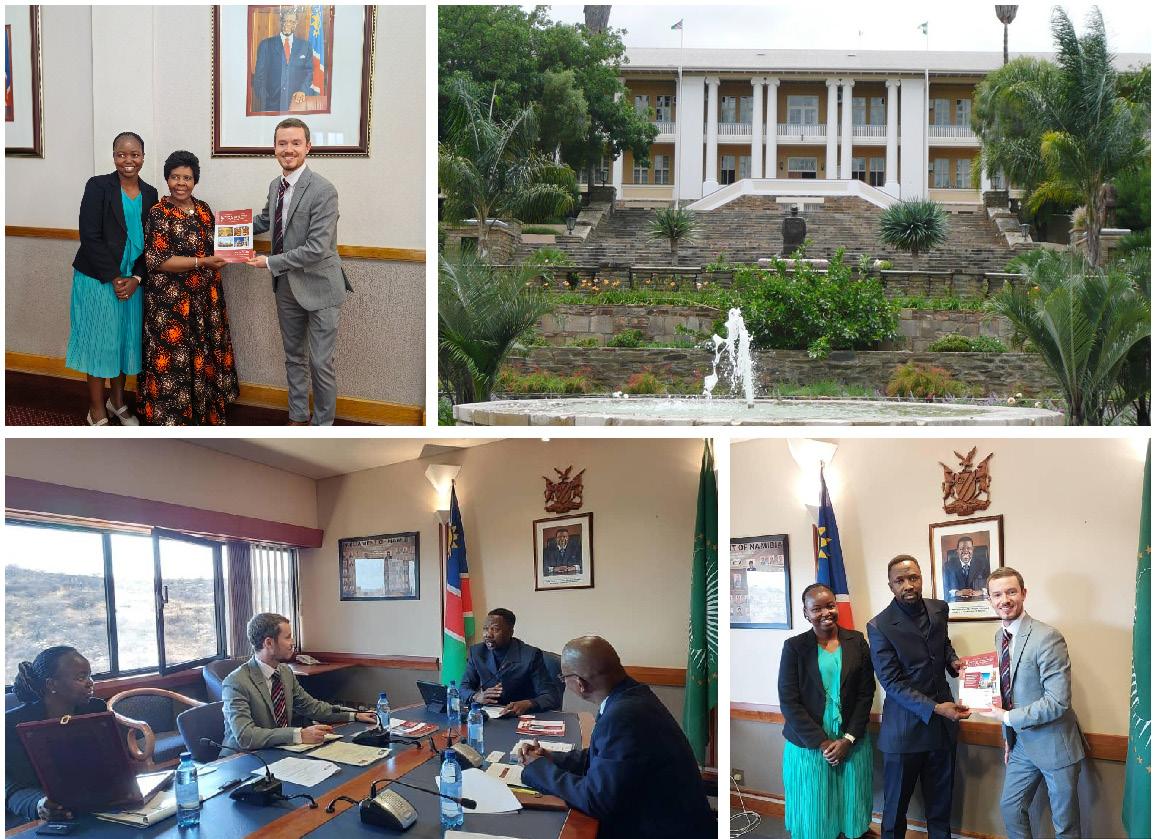
Furthermore, the Chairperson of the National Council of Namibia, Hon. Lukas Sinimbo Muha, said: “The Parliament of Namibia welcomes the Benchmarks Self-Assessment as a tool for us to compare our practices to standards developed by the CPA and adopted by fellow member Parliaments. This important exercise will help the Parliament of Namibia reflect on its strengths and create objectives and strategies to improve on its weaknesses. I am sure the outcomes of this CPA visit will motivate both Members and staff to redouble their efforts to make the Parliament of Namibia more effective.”
The CPA Benchmarks assessment in Namibia was supported by Josephine Watera, Assistant Director (Department of Research Services), Parliament of Uganda, and Fraser McIntosh, Good Governance Project Manager from CPA Headquarters.
74 | The Parliamentarian | 2024: Issue One | Over 100 years of publishing
Image credits: Parliament of Namibia.
CPA Tonga Branch
In Tonga, a CPA delegation visited Nukuʻalofa from 13 to 17 November 2023 as part of a CPA Benchmarks self-assessment during which they met with the Speaker of the Legislative Assembly, the Clerk of the House, and Members of Parliament.

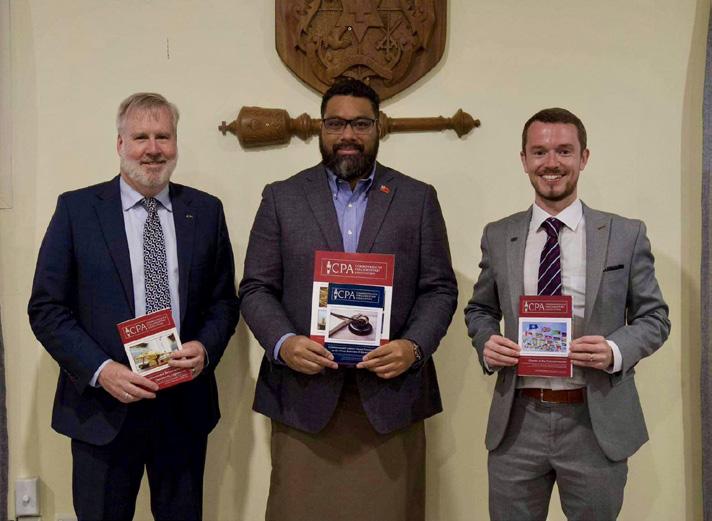
Speaking about the self-assessment, the Lord Speaker of the Legislative Assembly, Lord Fakafanua, said: “The Legislative Assembly of Tonga is delighted to undertake the CPA Benchmarks self-assessment exercise and feels that doing so now is the right time for our Parliament, its Members and staff. Completing this important piece of work will enable us to celebrate the considerable progress that has been made since our 2010 constitutional reforms, while also identifying and addressing key areas for democratic improvement. As Lord Speaker, I look forward to working further alongside the CPA with a shared ambition of building a Parliament here in Tonga that is fit for purpose, resilient and inclusive for all.” The CPA Benchmarks self-assessment was supported by Tom Duncan, Clerk of the Legislative Assembly of Australian Capital Territory, and Fraser McIntosh, Good Governance Project Manager from CPA Headquarters.
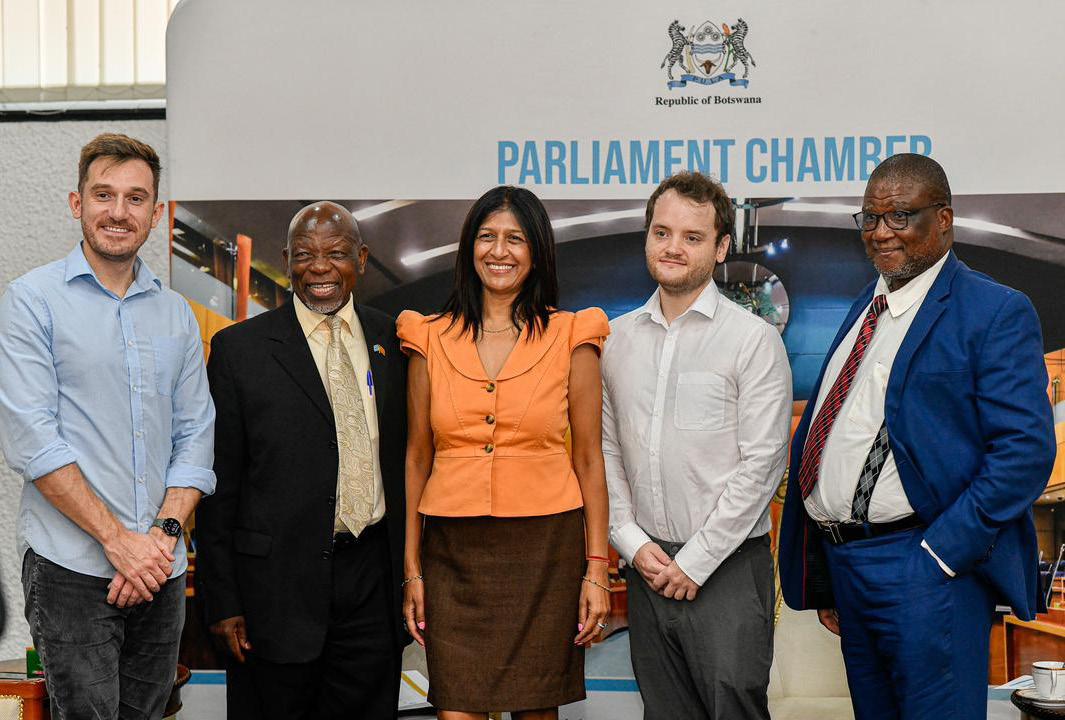
CPA Botswana Branch
The Parliament of Botswana held the first ever joint CPA Benchmarks and Gender Sensitive Parliament (GSP) self-assessment undertaken by a Parliament from 20 to 24 November 2023. Speaking about the self-assessment, the Clerk of the National Assembly of Botswana, Ms. Barbara Dithapo said: “Engaging with the Commonwealth Parliamentary Association Secretariat on the CPA Benchmarks and Gender Sensitive Parliament self-assessments has provided a multifaceted view of our institution's operations. This approach has not only allowed us to thoroughly evaluate our parliamentary procedures and practices but has also shone a light on the importance of gender mainstreaming within our structures. The outcomes of these assessments offer us clear indicators of our successes and areas for reform, ensuring that we forge a path towards enhanced parliamentary governance, inclusiveness and development." As part of their visit, the CPA delegation met with the Vice-President, the Deputy Speaker, the Clerk and Members of Parliament as well as parliamentary staff. The assessments were supported by Nerusha Naidoo, the Secretary of the KwaZulu-Natal Provincial Legislature in South Africa, and James Pinnell and Jack Hardcastle from the CPA Headquarters.
CPA Maldives Branch
A CPA delegation visited the People’s Majlis (Parliament) of The Maldives from 12 to 16 February 2024 to support the Legislature’s self-assessment against the CPA Benchmarks. As part of their visit, they met with the Speaker of the People’s Majlis, the Secretary-General of Parliament, MPs and parliamentary staff.
The Speaker of the People’s Majlis, Hon. Mohamed Aslam, said: "My aspiration for The Maldives Parliament is to facilitate the alignment of its powers and practices in a manner that effectively serves the nation's needs, while upholding the Constitution without external interference. This ensures that it delivers for the people in accordance with international rules and standards. Furthermore, I endeavour to foster an environment where Members of Parliament actively contribute to the ongoing development and evolution of the parliamentary system.
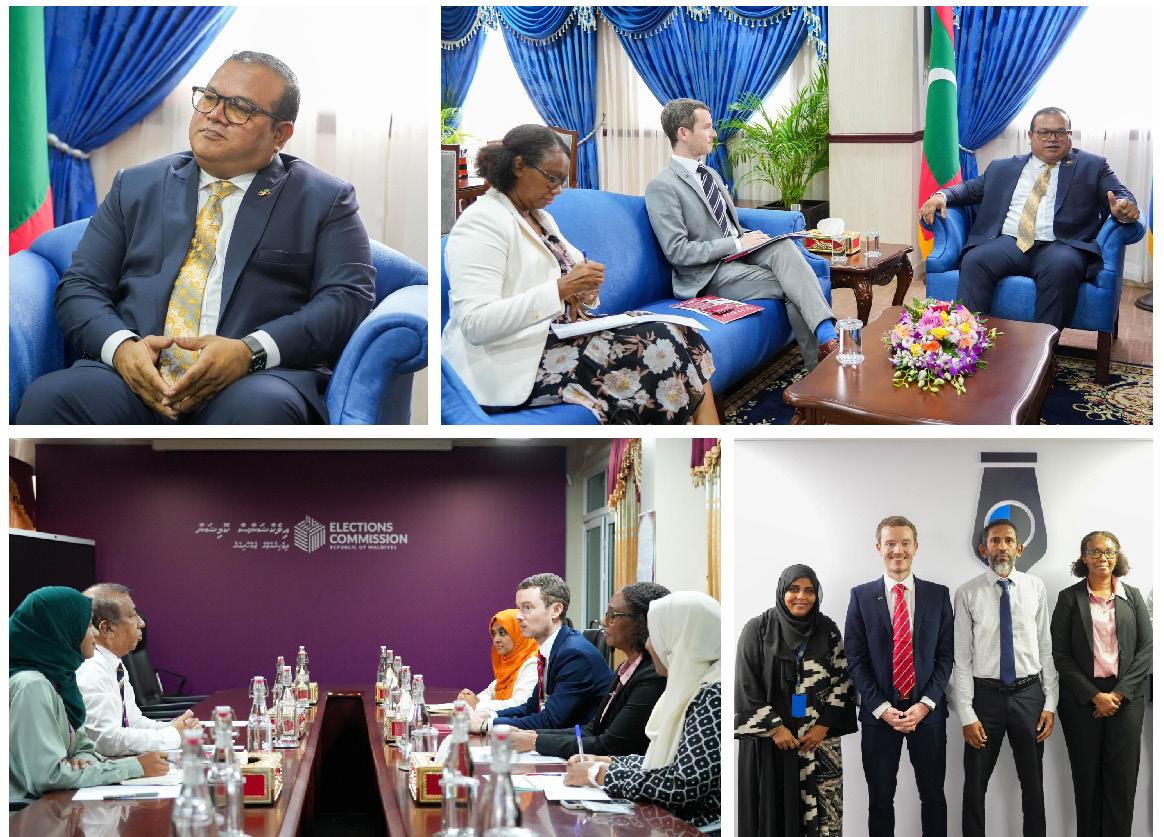
Assessing ourselves against the CPA Benchmarks will provide a valuable opportunity for us to evaluate our progress and to identify areas for improvement. As the CPA has been a longstanding source of support to the People’s Majlis, we are eager to renew our engagement, especially since recently rejoining the organisation. Attending the Commonwealth Parliamentary Conference and other CPA workshops has been instrumental in our capacity building efforts for MPs. With elections on the horizon, the timing of the self-assessment is ideal for us to reflect on our performance and to strategise for the future.”

The Parliamentarian | 2024: Issue One | Over 100 years of publishing | 75
CPA BENCHMARKS NEWS
The Clerk of the Seychelles National Assembly, Tania Isaac and Fraser McIntosh from CPA Headquarters travelled to Malé to provide technical assistance to the Parliament.
Image credit: Tonga Parliament.
Image credit: Parliament of Botswana.
Image credits: Parliament of Maldives.


CPA BENCHMARKS NEWS
CPA Fiji Branch
The Speaker of the Parliament of Fiji, Hon. Ratu Naiqama Lalabalavu welcomed a CPA delegation to Suva from 6 to 10 November 2023 as part of a CPA Benchmarks self-assessment. The Speaker said: “The Fijian Parliament is committed to the benchmarks assessment excercise as the outcome will enable us to embrace and build upon the good practices currently being executed but more importantly to address and improve on the gaps that will be identified as this is critically essential. As the Speaker and in cognisant of the underlying principles under SDG 16, my aim is to strengthen this august institution to ensure that it is accountable, transparent and effective.” The CPA Benchmarks assessment was supported by Anne Sargent, Deputy Clerk, Legislative Council of the Parliament of Victoria and Matthew Salik, Head of Programmes from the CPA Headquarters.
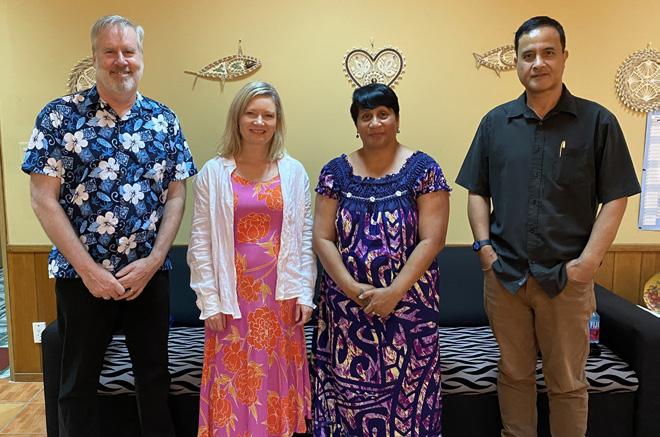
CPA Kiribati Branch

The Parliament of Kiribati (Maneaba ni Maungatabu) welcomed a CPA delegation for a CPA Benchmarks assessment from 19 to 23 February 2024. The CPA delegation are Tom Duncan, Clerk of the Australian Capital Territory Legislative Assembly and Carly Maxwell, Deputy Clerk of the Legislative Assembly of New South Wales. There is also a CPA twinning partnership between the Australian Capital Territory (ACT) Legislative Assembly and the Maneaba ni Maungatabu (National Parliament) of Kiribati. The Speaker of the Kiribati Parliament, Hon. Tangariki Reete said: "The Parliament of Kiribati welcomes the CPA Democratic Benchmarks self-assessment as a tool for us to compare our practices to standards developed by the Commonwealth Parliamentary Association and adopted by member Parliaments. This important exercise will help us to reflect on the Parliament’s strengths and create objectives and strategies to improve on its weaknesses. I am sure the outcomes of this CPA visit will motivate both Members and parliamentary staff to redouble their efforts to make the Parliament of Kiribati more effective for our citizens."
CPA Lesotho Branch
A delegation organised by the Commonwealth Parliamentary Association met with the Parliament of Lesotho as part of a CPA Benchmarks assessment from 26 February to 1 March 2024. As part of their visit, the CPA delegation met with the Speaker of the National Assembly, Rt Hon. Tlohang Sekhamane, MP and the President of the Senate, Senator Hon. Mamonaheng Mokitimi; the Clerks of both Houses, Adv. Lebohang Fine Maema, KC, the Clerk of the National Assembly and Advocate Tšeliso Molise, the Clerk of the Senate; as well as other Members of Parliament and parliamentary staff, the judiciary, the media and civil society groups.
The CPA team also met with the Deputy Prime Minister of Lesotho, Hon. Nthomeng Majara and three Cabinet Members - Hon. Richard Ramoeletsi, Minister of Law and Justice, Hon. Dr. Ntoi Rapapa, Minister of Education and Training and Hon. Limpho Tau, Minister in the Prime Minister's Office. The CPA delegation were Natascha Visser,
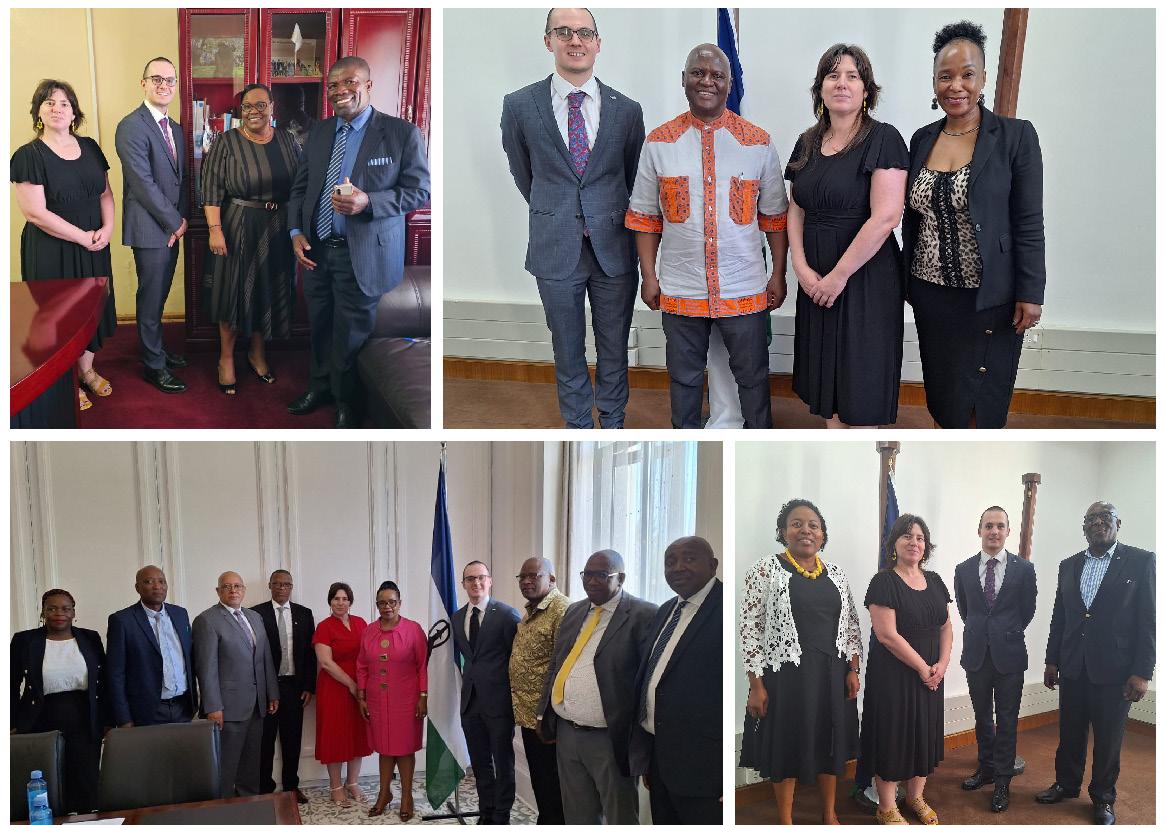
Provincial Parliament in South Africa and Clive Barker, Programmes Manager from the CPA Headquarters.
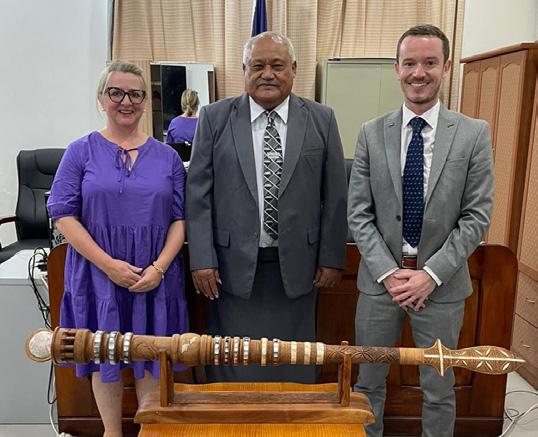
CPA Samoa Branch
The Parliament of Samoa met with a CPA delegation as part of a CPA Benchmarks assessment. As part of their visit, they met with Hon. Papalii Lio Oloipola Taeu Masipau, Speaker of the Legislative Assembly; Hon. Fiame Naomi Mataafa, Prime Minister of Samoa; Mr Satama Leatisa Uitime Tala, Clerk of the Legislative Assembly and CPA Samoa Branch Secretary; as well as other Members of Parliament and parliamentary staff, the judiciary, the media and civil society groups. The CPA Benchmarks self-assessment was undertaken by Catherine Vickers, Clerk of the Tasmanian Legislative Council and Fraser McIntosh, Good Governance Project Manager from CPA Headquarters. There is a CPA twinning partnership between the Parliament of Tasmania and the Parliament of Samoa. The Speaker of the Legislative Assembly of Samoa said: "The CPA Benchmark’s assessment is an important exercise undertaking a review of our Parliament's current practices and procedures. I anticipate that the CPA assessment will shed light on long-held Parliamentary practices and procedures that need to be abolished, reviewed or strengthened so as to reinforce the independence of Parliament."
76 | The Parliamentarian | 2024: Issue One | Over 100 years of publishing
Research Manager at the Western Cape
Image credits: Parliament of Fiji/CPA Headquarters.
Image credit: Carly Maxwell/NSW Parliament.
Image credits: Lesotho Parliament.
Image credit: Parliament of Samoa/CPA Secretariat.
PARLIAMENTARY CLERKS EXAMINE COMMITTEE PROCESSES
PARLIAMENTARY CLERKS FOCUS ON MODERNISATION OF PUBLIC PARTICIPATION AND COMMITTEE LEGISLATIVE PROCESSES IN PARLIAMENTS AT S o CATT AFRICA WORKSHOP IN LESOTHO
The Society of Clerks-at-the-Table (SoCATT) Africa Region held a two-day workshop in Lesotho from 4 to 6 December 2023 on the modernisation of public participation and Committee legislative processes. The workshop was organised by the SoCATT Africa South Subregion and support was provided by the Western Cape Provincial Parliament (WCPP) and the Parliament of Lesotho. Workshop attendees included parliamentary staff from the Parliaments of Namibia and Lesotho, the Limpopo Provincial Legislature and the WCPP in South Africa, as well as the CPA Africa Regional Secretariat and the SoCATT Secretariat.
The objectives of the workshop were to:
• Establish an understanding of how modernising public participation and Committee legislative processes could be advanced.
• Establish outcomes that would positively impact legislation.
• Explore the ways in which technology could be integrated into these processes.
Public participation and Committee legislative processes play an integral role in the functioning of democratic societies. These processes ensure that decisions made by Parliaments are informed by the views and opinions of citizens. However, one of the main challenges of ‘traditional’ public participation processes is the requirement for citizens to attend meetings and public hearings in-person. In addition, Committee legislative processes lack transparency as some discussions and decisions take place behind closed doors. In light of these challenges, there has been an increasing call to modernise public participation and Committee legislative processes. The first day of the workshop commenced with a presentation on the ‘Judicial consideration of public participation in Legislatures’. The presentation highlighted the need to (i) focus on the underlying principles and values informing public participation, (ii) consider the shortcomings that have been identified by the Constitutional Court of South Africa in respect of public participation processes facilitated by legislatures of South Africa, and (iii) comment on areas of future improvement in respect of public participation processes.
Further presentations covered the topics of ‘Evaluating and measuring the impact of public participation in the legislative processes’; ‘Designing a framework for an effective public participation process’; and 'International case studies on modernisation of public participation’ with case studies from Estonia, South Korea, Canada and New Zealand. The second day of the workshop provided the following key recommendations:
• The need to diversify communication methods.
• Adoption of feedback mechanisms.
• Drafting plain language Bills (particularly Technical Bills).
• Importance of partnering with community leaders.
• Possibility of partnering with telecommunication services for mass SMS communications.
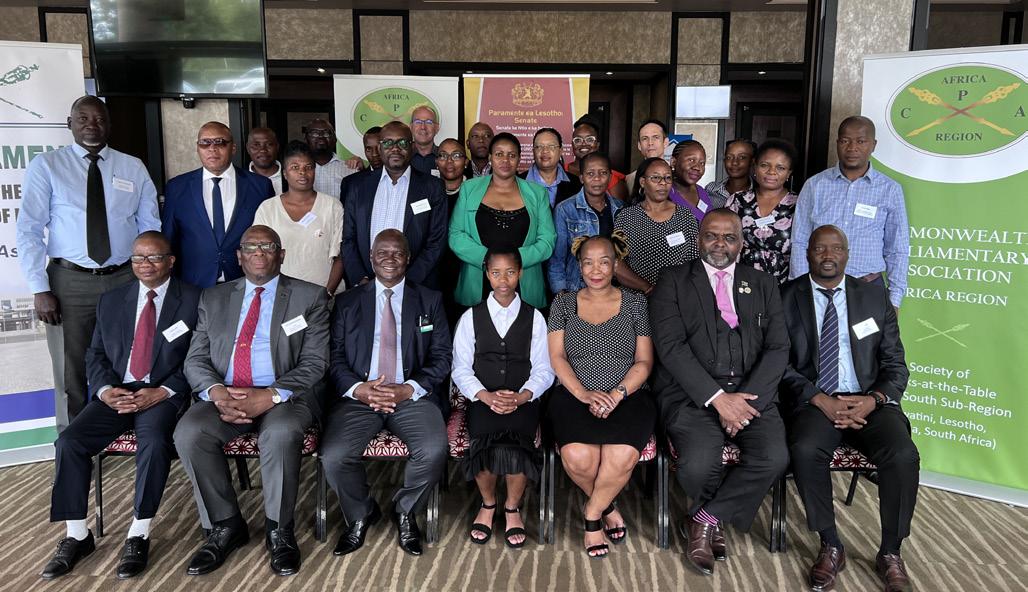
• Use of social media.
• Use of AI to summarise Bills, particularly where there are capacity and resource constraints.
Developments and targets in the SoCATT Africa South Subregion
The SoCATT Africa South Subregion – consisting of the Parliaments of Eswatini, Lesotho, Namibia and South Africa, as well as the Provincial Legislatures of South Africa - has been hard at work promoting the development and enhancement of parliamentary administration and procedure in the subregion.
Notable deliverables of the subregion include:
• Creating opportunities for parliamentary staff to share and develop best practice in parliamentary processes.
• Pursuing engagements with parliamentary partners and stakeholders.
• Remobilising subregion branches who have not been very active in SoCATT matters.
• Enhancing the awareness of SoCATT Africa Region activities, through articles in parliamentary publications.
During this period, two subregional workshops were convened which provided a platform for parliamentary staff to engage with each other on matters related to the administration of Parliaments. The leadership of the subregion has also convened regularly to discuss subregion matters and to plan and implement subregion activities.
Looking ahead to 2024, and as a key deliverable intervention, the subregion intends to collaborate with another subregion to host a joint-subregion workshop on ‘Oversight and Public Participation’. This will provide a further opportunity for parliamentary staff to share their experiences and learn from each other.
“The profiles of Parliamentarians are forever changing. They are becoming more technologically savvy and have a modern approach to doing things. As the enablers of the work of Parliaments and Parliamentarians, parliamentary staff are going to have to continue sharing experiences, adapting to these changes, and being innovative in what we do,” says SoCATT Africa South Subregion Representative, Romeo Adams.
Romeo Adams is the Secretary of the Western Cape Provincial Parliament in South Africa, He was elected as Representative of the SoCATT Africa South Subregion on 21 November 2021, for a period of three years.
The Parliamentarian | 2024: Issue One | Over 100 years of publishing | 77
SHE SHOULD RUN: INSPIRING TOOLS AND SUPPORTS FOR WOMEN INTERESTED IN SEEKING ELECTED POSITIONS
Why should women run for political office? I believe women should run for political office because of the perspectives they bring. It may be obvious to some, but women, like all people, have varying backgrounds, life experiences and strengths. We don’t all think the same way. We don’t all vote the same. We don’t all have the same objectives.
When you look at how decisions are made, it’s important that we have women’s voices and perspectives at the decision-making table. It’s not acceptable that important decisions that strategically affect our lives, male and female alike, are being made by a male majority. Therefore, it’s important that we have the perspective of women at those tables.
This, in part, was my motivation in running for public office. Was it an easy decision? Absolutely not. But there were some very good lessons learned along the way and it has been rewarding.
I didn’t win the first time I ran, yet the lessons I learned were valuable and prepared me for my next run. Those lessons were about developing relationships and doing your homework. That first loss helped me discover what I needed to have in place to be able to run a successful campaign.
In the past, I had volunteered for federal, provincial and municipal campaigns and had managed many of them, so I was very fortunate in that I had some understanding of what was needed to be able to run. The valuable experience I gained gave me the basic understanding and knowledge of running a strategic campaign and is what really gave me the opportunity to run and to win. I would encourage anyone who is interested in running for public office to first volunteer, make connections and get some experience that way.
Much of your success comes down to having a strong network of people around you. People who you can call upon for volunteerism, fundraising and support. This is something we really have to impress upon the individual who is going to run. It’s important to reach out to your network and garner their support.
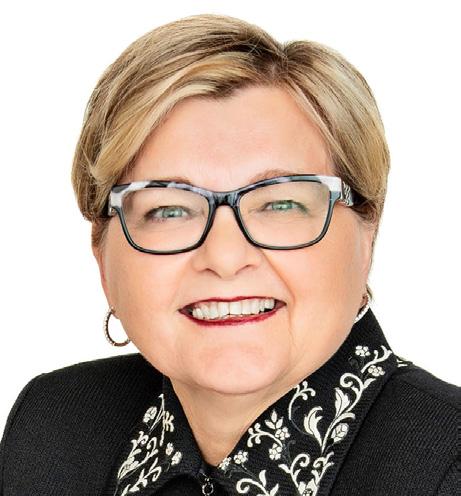
I always encourage any new candidate, male or female, to ensure they have the support of their family and friends. This is not an easy job to serve in public office and there are hard days. Especially now with the rise of social media, there is a lot more room for criticism. Those who venture into politics need to be prepared for that. In spite of that, you also must keep things in perspective. There will be times that you just have to “shrug it off” while ensuring that you always remain empathetic to the core issues at the source of the criticism.
When I was Chair of the Commonwealth Women Parliamentarians (CWP) of Canada Region, I met so many women of all ages, whose common question was “what do I need to do to get into politics? And how do I do this?”. I then realised that we needed to put together a toolbox to help others out with this cause. We needed more resources for women in Canada. Now, you can go online and do your own bit of research, but much of the information that is available is American based or European based. So, along with the research company, we put together a book called ‘She Should Run’.
‘She Should Run’ focuses on how to put together a strong campaign, the steps to take and what women need to know. I am very proud to be a part of that. Although information may change as we advance, the core principles and tools are still very relevant today.
I have observed changes in the support for female politicians since I was first elected. Maybe I was very fortunate that my children weren’t very young when I was elected. I know from experience when talking to young female politicians, they still get asked the question, “How’s this going to affect your family? Who’s going to cook supper?”. But if you have a partner who is there to support you, they will also pitch in and share in the household responsibilities. Roll up their sleeves so to say and make sure that they’re doing their equal part in helping out to make things work at home.
I think the visual of having younger women elected who have young children or are of childbearing age has changed. It used to be like “oh my gosh… that woman’s pregnant and sitting in the
Hon. Laura Ross, MLA is the Minister Responsible for the Status of Women in the Government of Saskatchewan in Canada. She is also Minister of Parks, Culture and Sport. She was first elected in the 2007 Provincial election as the Member of the Legislative Assembly of Saskatchewan for Regina Qu’Appelle Valley, now named Regina Rochdale. She was re-elected in 2011, 2016 and 2020. Laura Ross served as Chair of the Commonwealth Women Parliamentarians (CWP) Canadian Region from 2017-2020 when she also represented the Region on the CWP International Steering Committee. During her time as CWP Canada Chair, she helped create the ‘She Should Run’ campaign and schools initiative which aims to provide young women with information about running for public office. She is also a founding member in the Saskatchewan Chapter of Equal Voice and serves as a role model and mentor to young women interested in professional and political lives.
OVERCOMING BARRIERS TO WOMEN’S REPRESENTATION IN PARLIAMENT 78 | The Parliamentarian | 2024: Issue One | Over 100 years of publishing
house? How can that be?”. Well, you know the days of those stereotypical ideas are pretty much done because we’re seeing more and more women professionals in the workforce. I believe that how women are perceived in the corporate world, business world and in public office, is very different too.
It’s an honour to be able to be at the Cabinet table in Saskatchewan. I fully believe that I have an opportunity to serve the public but to also serve as a really strong female role model to anyone who wants to seek public office.
Women’s interests are everyone’s interests. When you hear it said “well, that’s a women’s issue”, it’s just not true. Every issue should be a concern to men, women and people of diverse backgrounds, because that’s why we’re there. We’re there to represent the constituents within our ridings (constituencies), and also when you take on the role as a Minister, you represent the people of your Province, country or jurisdiction.
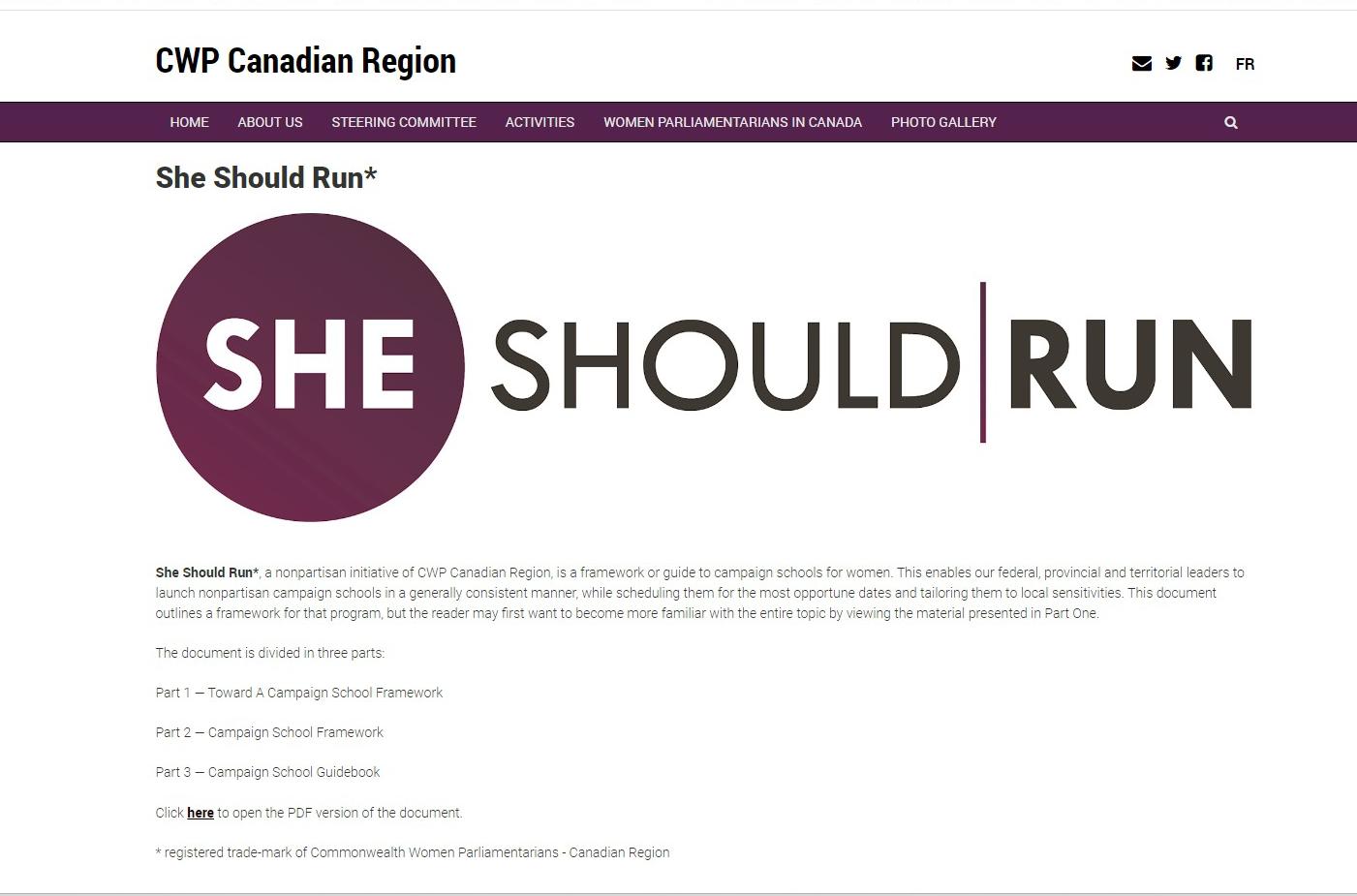
educate young women and girls about the importance of politics, and then provide them with the skills to run for politics.
The hard part is that a lot of women don’t think they’re qualified if they don’t hold a degree in political science. But you know what? Most men who run for public office don’t have a degree in political science either. So it is up to that individual to do their homework, and put together a strong team that is going to go to the wall for them. If there’s one thing I can say, it’s that. Do your homework. Life can outweigh any degree when it comes to public office. One’s experience and an ability to speak one’s mind in a responsible and reasonable manner, that’s what we need.
I must say, I think that the work that our Status of Women’s Offices in Canada have been doing is really important. I know here in Saskatchewan, our STEAM (fields of Science, Technology, Engineering, Arts and Math) program is encouraging young girls to think outside the box and to not just consider traditional roles. Whatever is meant by traditional women’s work. I have a hard time wrapping my head around that kind of saying. I think we need to
We also need to look at leadership within our population. All of those sorts of things, encouraging our young women and women of all ages to look at politics, not in a kind of off-putting manner, but to in fact realise that you have an opportunity to really make important changes.
It is so important that we have diverse voices. Gender-diverse voices of men and women of different ages, because life lessons are different for each age group, socio-economic and cultural backgrounds. If we want to represent our populations effectively, if we want to represent our constituents well, if we want democracy to really work, we need to look at that. We have to realise that diversity is our winning point in having an effective and well-functioning government.
For more information about the ‘She Should Run’ campaign visit www.cwpcanada.ca/en/activities/she-should-run/


OVERCOMING BARRIERS TO WOMEN’S REPRESENTATION IN PARLIAMENT The Parliamentarian | 2024: Issue One | Over 100 years of publishing | 79 Download your copy online at: www.cpahq.org or email hq.sec@cpahq.org to request a copy How can you make your Parliament a gender-sensitive institution? • The Commonwealth Women Parliamentarians (CWP) network is an active advocate for women's representation in Parliament, seeking to ensure Parliaments are gender-sensitive institutions. • The CWP network has produced two complementary publications to help Parliaments through the gender-sensitisation process.
THE IMPORTANCE AND CHALLENGES OF ONLINE VISIBILITY FOR WOMEN PARLIAMENTARIANS: A PERSPECTIVE FROM TANZANIA
As a Member of Parliament in Tanzania who, among other things, champions gender equality in politics across the African continent, I understand firsthand the negative impact of social media and artificial intelligence on democracy, and the positive potential of online visibility for women Parliamentarians.
Prior to becoming a Member of Parliament (MP) I was active online, but then after I was elected, I experienced a dramatic change and I suddenly found myself on the receiving end of unjust abuse in the online space. Being the type of person who always strives to use a negative experience for good, I started to ask other women MPs in Tanzania and within the CPA Africa Region about their experiences online and was shocked by our shared negative experiences. When I asked myself why, it unfortunately comes down to the fact that the online space mirrors the offline, and is not tolerant of strong, confident, vocal and thought-provoking women leaders. Many people therefore resort to abuse as a calculated move to force us into a shell and silence us. Sadly, it seems to have worked because only approximately 25% of women Parliamentarians in Africa actively use social media for their work.
In my quest to understand the challenges faced by Women Parliamentarians in the online space, I came to recognise an important impact which was the creation of a public perception that women political leaders underperform compared to their male counterparts and so should not be voted for. You may be wondering as I did, how can this be so? If we take Tanzania for example where we have around 25% of Women Parliamentarians actively use social media for their work, leaving the remainder about 75% with limited visibility, their impact they create is neither well known nor is it recognised and appreciated. All because, as Women Parliamentarians, we have chosen to self-censor and not use social media and take advantage for the visibility we can potentially gain because it is a more economic means for us in comparison to mainstream media. Now, you tell me, with this reality of almost 75%

of women Parliamentarians left without quality exposure of their work and impact then what will the general public’s perception of us be?
As if Online Gender-Based Violence (OGBV) / TechnologyFacilitated Gender-Based Violence (TFGBV) is not enough, we as Women Parliamentarians are now faced with yet another set of risks brought forward by the unethical and harmful uses of artificial intelligence (AI). This includes challenges like the creation and knowing/unintentional sharing of ‘deepfakes’, misinformation and disinformation. All of which can cause great harm and even end our careers as women political leaders in a flash.
To turn this situation around, we need to make targeted efforts to strengthen the online visibility of Women Parliamentarians not only in Tanzania but across the globe because unfortunately, every country faces this very same challenge, be it developed or developing. How we might do this is a question I aim to shed light on.
We first need to develop a digital resilience capacity-building programme for Women Parliamentarians that aims to empower women leaders to know how to protect themselves online, and to continue actively and strategically communicating the impact of their work online.
From my personal experience, I can confirm that through consistency and standing firm (including calling out those who turn to gender instead of sticking to the agenda), over time, I have successfully managed to vastly reduce and cope with the level of online abuse subjected to me on platforms such as Facebook, Twitter, Instagram, WhatsApp and LinkedIn. Without a doubt, Women Parliamentarians in Tanzania like in other countries do incredible work, creating lasting positive impacts directly to communities, but it can too often go unrecognised because of a lack of digital visibility. We need to collectively say enough, and change this.
Hon. Neema Lugangira, MP is a Member of Parliament in Tanzania with an extensive record and experience in championing advocacy and legislative reform. Her political priorities include food systems, nutrition and climate action, digital inclusion and development, global and community health, gender equality in politics and digital democracy (including election observation) in Tanzania and across Africa. At national level, she is the founder of two NGOs; Agri Thamani, which is committed to ending malnutrition in Tanzania and Omuka Hub, which is focused on accelerating digital development in Tanzania. She is also the founder and Chair of the African Parliamentary Network on Internet Governance (APNIG) and is a member of the Multi-Stakeholder Advisory Group of the United National Internet Governance Forum among many other international platforms.
OVERCOMING BARRIERS TO WOMEN’S REPRESENTATION IN PARLIAMENT 80 | The Parliamentarian | 2024: Issue One | Over 100 years of publishing
It is also equally important for Women Parliamentarians to identify niche priority areas and over time, work to build competence and authority around those areas. This can become a powerful tool for women leaders as it can position them in the public eye as experts and lead to increased opportunities for media engagement and funding for community interventions, often leading to the muchneeded increased visibility of Women Parliamentarians.
I will use my personal experience as an example. As a Member of Parliament, I have four main priority areas. They are digital inclusion and development; nutrition and food systems; global health; and gender equality in politics. In Parliament, in addition to the other areas that I work on, I focus on interventions around my priority areas thus creating a niche for myself. I also realised early on that to make an impact in these areas at the community level, I needed to set up non-profit organisations or groups that will pave the way for the implementation of interventions that I would champion.
OVERCOMING BARRIERS TO WOMEN’S REPRESENTATION IN PARLIAMENT

international cohort of the Munich Security Conference’s Women Parliamentarians Program/Network for Global Foreign and Security Policy for Development, ITU-WSIS Digital Gender Trendsetter, Vital Voices Fellow, Women Political Leaders (WPL) Tanzania Country Ambassador and board member of Transform Health, which is a coalition of organisations advocating the role of digital technologies to reach ‘Health For All’.
With this in mind, I set up the following two organisations. I established Omuka Hub which focuses on digital development through digital skills, school connectivity, digital health, data governance, online safety, women’s rights, open government and democracy. Through this organisation, we can implement projects that aim to strengthen the online visibility of women in politics and strengthen digital democracy. We have already conducted digital resilience training for women ward councillors and women Parliamentarians in Tanzania. We have also successfully championed the recognition of online abuse through the Tanzania Governmental programmes, policies, legislation and regulations.
Alongside this, I also established Agri Thamani which aims to end malnutrition in Tanzania through four pillars of nutrition security, water, sanitation and hygiene, climate action, and policy action. One of our interventions here is to empower grassroots women leaders to take on nutrition as one of their key priority areas too.
However, as a female Parliamentarian, it is also equally important to link your efforts locally, nationally, regionally and globally. As such, at a regional level, I initiated the establishment of the African Parliamentary Network on Internet Governance (APNIG) that aims to strengthen the role of the African Parliamentarians in Digital Development network which I also chair (this network is currently being hosted by Omuka Hub). I also played a key role in the establishment of the African Food Systems Parliamentary Network (AFSPaN). I represent the African Region on the board of the International Parliamentary Network for Education (IPNEd), I am the Chair of the Parliamentary Network on the World Bank and IMF (Tanzania Chapter) and hold the following roles - member of the first
Having niche priority areas is an important differentiating factor that we should strive to invest in because the opportunities for collaboration are many, especially for Women Parliamentarians. Last year at the 147th Inter-Parliamentary Union Assembly in Angola, I was able to partner with Hon. Michelle Rempel Garner, MP from Canada’s Federal Parliament and submit a proposal for the IPU Resolution on the ‘Impact of Artificial Intelligence on Democracy, Human Rights and Rule of Law’. We attended meetings to defend our proposal which was passed, and we are currently working on the IPU Resolution that will hopefully be reviewed and endorsed at the 148th IPU Assembly later this year in October 2024.
My concluding point is to propose to the Commonwealth Parliamentary Association (CPA) and Commonwealth Women Parliamentarians (CWP) networks to work with me to strengthen the online visibility of Women Parliamentarians across the Commonwealth and to source funding for small grants that can support Women Parliamentarians in implementing community projects through their non-profit organisations. It is therefore my sincere hope that from the above, we can all see the holistic approach that we, as Women Parliamentarians, can take to strengthen our visibility both within our jurisdictions and outside our home countries, and I very much welcome the opportunity to work with colleagues across the Commonwealth to meet our targets and beyond.
To connect with Hon. Neema Lugangira, MP email: nlugangira@omukahub. org or find her on social media @neemalugangira (Twitter/Instagram/ Facebook/LinkedIn).
Image credit: Shutterstock_218622694 REDPIXEL.
The Parliamentarian | 2024: Issue One | Over 100 years of publishing | 81
‘A HIDDEN PROBLEM’: COMBATTING VIOLENCE AGAINST WOMEN AND GIRLS (VAWG) IN JERSEY
In September 2022, the Government of Jersey commissioned an independent Taskforce to engage with victim-survivors, children and young people, professional services and the public to research and report on the nature, extent and experiences of violence against women and girls on the island. In November 2023, the Taskforce published its findings and 77 recommendations for Government and other key stakeholders to reduce such violence in all its forms and to improve the support available for victims and survivors. This substantial report, the first piece of research of its kind in the Channel Islands, has been described as a ‘watershed’ moment for the island.
What did we find?
• VAWG is pervasive: To many in Jersey, a jurisdiction with a low crime rate, our research findings are shocking. Almost all general public survey respondents had experienced at least one form of sexual harassment in their lifetime and a quarter of respondents had experienced rape and/or attempted rape. VAWG is so common place in Jersey that many of the girls participating in school focus groups did not recognise the behaviours they experience as gender-based violence and abuse. It is simply, as one of the independent researcher’s observed, the ‘wallpaper to their lives’. Our research indicated that most women and girls in Jersey adapt their behaviour almost every day in a way that men and boys do not, because they are fearful for their safety.
• We have a fragmented, male-biased system: The research provided a comprehensive view across the system that frameworks and influences VAWG and the experiences of victims and survivors. Progress in recent years was identified, for example, the introduction of the Domestic Abuse (Jersey) Law 2022 and a significant increase in rape convictions. We know too that there are many professionals in the States of Jersey Police, support agencies and charities, and in the Law Officers Department and Courts working incredibly hard to build on this progress and support victim-survivors. However, our research clearly evidences a prevailing system that is fragmented and male-biased, that too often fails the victims of VAWG and enables some perpetrators to continue their behaviours or commit crimes.
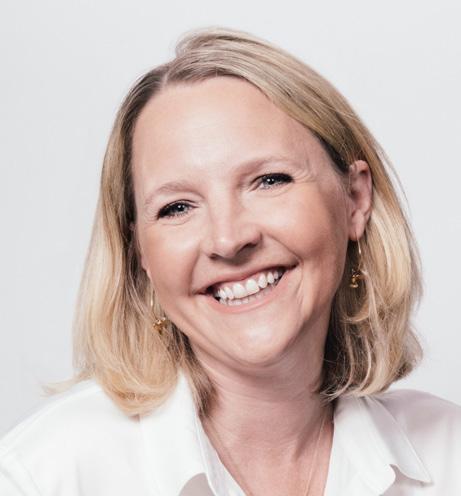
• Optimism and opportunity: Despite the very worrying findings, the Taskforce’s report is also a source of hope and inspiration. The local response to the findings from all quarters has, so far, been very positive and engagement is high. In the three months since the report’s publication, several key bodies and agencies, including the States of Jersey Police, have already accepted all of the findings relating to their services and are implementing action plans that should support wholesale systemic and cultural change. We have seen high-profile, public awareness campaigns launched, such as the Safeguarding Partnership Board’s ‘Spot the Red Flag’ campaign designed to raise awareness of domestic abuse and specifically to enable employers to proactively support victims of such abuse in their workplaces.
A detailed response from Government is imminent and indications are that it will be a very supportive one. It is my firm belief that if all 77 recommendations are accepted and effectively implemented by the Jersey Government and key stakeholders, Jersey can become a world leader in eliminating violence against women and girls.
What is causing VAWG in Jersey?
Evidence suggests that gender inequality is the key driver of VAWG. Women and girls are statistically more likely to be victims of certain types of violence, such as sexual violence or domestic abuse, whilst men are statistically more likely to be the perpetrators. Violence against women and girls does not just happen. These acts of violence are a culmination of certain events, behaviour patterns and cultural expectations that create an environment in which violence against women is able to occur. In our report, we call this environment the ‘conducive context’ consisting in Jersey of:
• a culture that promotes gender inequality and misogynistic attitudes
• a poor understanding of VAWG
• low levels of trust and accountability in the institutions, bodies and agencies that should be there to protect and support victim-survivors
• a range of structural barriers that are limiting our capacity to respond to VAWG
Kate Wright is Chair of the Violence Against Women and Girls Taskforce, Jersey and holds a number of public and voluntary roles in the island, including Commissioner for the Jersey Appointments Commission, Chair of the Jersey Community Relations Trust, an Adult Advisory Panel member for the Office of the Children’s Commissioner and Vice-Chair of the Policy Centre’s Advisory Council. A cultural change and HR consultant by background through her business, Arbre Consulting, Kate is also co-founder of The Diversity Network, a business network and campaign group seeking to enable greater diversity, equity and inclusion in the workplace.
COMBATTING VIOLENCE AGAINST WOMEN AND GIRLS 82 | The Parliamentarian | 2024: Issue One | Over 100 years of publishing
COMBATTING VIOLENCE AGAINST WOMEN AND GIRLS
Some of our Key Findings and Recommendations
You can find all of our key findings and recommendations that span across the system in Jersey, from support agencies, to education, to healthcare, to the courts, in the summary and full reports at Taskforce reports (gov.je) 1, but the following should give you a sense of their complexity and scope.
The Criminal Justice System
The Taskforce found that a lack of trust in the criminal justice system was a key theme across the research. The belief of many victimsurvivors that nothing will be done and/or that justice would not be served are key barriers to reporting to the police or pursuing prosecution in the courts. This distrust is based on poor criminal justice outcomes, negative reporting experiences such as victim-blaming attitudes and inappropriate conduct and poor communication from professionals, and suspicion around sentencing.
Our recommendations therefore centred around a recommendation to conduct an independent review of Jersey’s criminal justice system in relation to domestic abuse, rape, and serious sexual offences, to determine whether the current arrangements deliver the best outcomes for victims, defendants and justice.
We also found that gaps in Jersey’s legislation are undermining the ability of the criminal justice system to protect victim-survivors or effectively manage perpetrators and, as such, the Taskforce made several recommendations to close these gaps, for example by introducing emergency barring orders, codifying non-fatal strangulation and stalking as named offences, and defining economic abuse as a form of coercive control under the Domestic Abuse (Jersey) Law 2022
The Immigration System
The Taskforce found that immigration rules and policies in Jersey are compounding the violence experienced by women who do not have 5 years residency in the island, by creating economic dependencies and power imbalances in relationships that make it difficult for a victim to leave an abusive relationship. Additional barriers exist for these women to report abuse, because they fear police will share their data with immigration enforcement and that they will be forced to leave the island.
A key recommendation is the establishment of an agreement between the police and Immigration Services that a victim-survivor’s data relating to their immigration status will not be shared without their consent. The Taskforce would also like to see a concession introduced for victim-survivors of domestic abuse in spouse visas to ensure they have access to public funds to facilitate their access to safety.
The Family Court System
The testimony of victim-survivors surfaced a range of issues within the Jersey Family Court system that demonstrate significant parallels with the issues identified by international research on family court systems in other jurisdictions, such as the Harm Panel in the UK and research on VAWG by the UN Special Rapporteur. Examples include the perception that allegations of domestic abuse have been dismissed in child residency cases, abusive former partners using counter-allegations of parental alienation to silence victims’ allegations of domestic abuse, victim-survivors of domestic abuse
feeling that they were being treated with less care than their male counterpart and that their abuser was able to continue to intimidate and exert control over them by manipulating family court processes. Evidence was also presented that the Court’s presumption that parental contact was in the best interests of the child was resulting in contact orders that prioritised parental contact over the rights of the child to be protected from abuse.
The Taskforce’s recommendations include several related to training for the judiciary and professionals working in the courts, and a recommendation that The Family Courts in Jersey follow UK practice directions for managing cases where there is suspected or alleged domestic abuse.
Cultural change and a primary prevention approach
Addressing VAWG is ultimately about creating cultural change to combat the ‘conducive context’ that enables it. This means creating change at different levels of social ecology: social, system and institutional, organisational and community, and individual.
The Taskforce found that understanding how factors at these different levels contribute to VAWG can help us to identify how best to address and reduce this violence – we need to shift historical efforts to tackle VAWG, which focused on responding to perpetrators and supporting the recovery of victims, to tackle the drivers of VAWG at each of these levels to prevent it from happening in the first place. This is known as a primary prevention approach.
Specific recommendations to support and accelerate this cultural change include actions to continuously improve knowledge and awareness within the community and to ensure responsible reporting of VAWG cases within the media. It is also essential that we fully engage men and boys in all future work to tackle VAWG, challenge VAWG-conducive behaviour in schools and co-ordinate work across government bodies, third sector services and community organisations via a clear Government VAWG strategy.
The Taskforce’s 77 recommendations taken together will challenge and change the systems, structures, norms, attitudes, practices, and power imbalances that drive violence against women and girls. This will enable Jersey to address the underlying drivers of such violence and create a context wherein the perpetration of violence against women and girls is simply unthinkable.
To find out more about the Violence Against Women and Girls (VAWG) Taskforce in Jersey email VAWGJersey@gov.je
References:
1 https://www.gov.je/stayingsafe/ homepersonal/emybys/pages/ na6ule.aspx

The Parliamentarian | 2024: Issue One | Over 100 years of publishing | 83
COMMONWEALTH WOMEN PARLIAMENTARIANS NEWS
CWP ‘CHAMPIONS FOR GENDER EQUALITY’
WORKSHOP IN TANZANIA PROMOTES EQUAL REPRESENTATION IN COMMONWEALTH PARLIAMENTS
Commonwealth Parliamentarians from 17 different jurisdictions came together in Dar Es Salaam, Tanzania for the second Commonwealth Women Parliamentarians (CWP) Workshop on ‘Champions for Gender Equality: Achieving Equal Participation in Commonwealth Parliaments’ held from 6 to 8 December 2023. Hosted by the Parliament of Tanzania and the CPA Africa Region, the workshop was designed to equip male and female Members of Parliament with skills and resources to take action on gender equality to strengthen their roles as gender champions in their respective Parliaments.
Participants from Belize; Botswana; Canada Federal; Eastern Cape; Kenya; Kerala; Mozambique; Namibia; Nigeria; Queensland; Rwanda; Sierra Leone; South Africa; Tanzania; Victoria; and Zambia were welcomed to the CWP Workshop by the Commonwealth Women Parliamentarians (CWP) Chairperson, Hon. Dr Zainab Gimba, MP (Nigeria); Hon. Angellah Kairuki, MP, Minister of Natural Resources and Tourism (representing the Speaker of the National Assembly of Tanzania); Hon. Madina Ndangiza, MP (Rwanda), CWP Africa Region Chairperson; and the CPA Africa Regional Secretary, Ms Nenelwa Joyce Mwihambi, who is also the Clerk of the National Assembly of Tanzania. The CPA Secretary-General, Stephen Twigg also sent a video message to the participants.
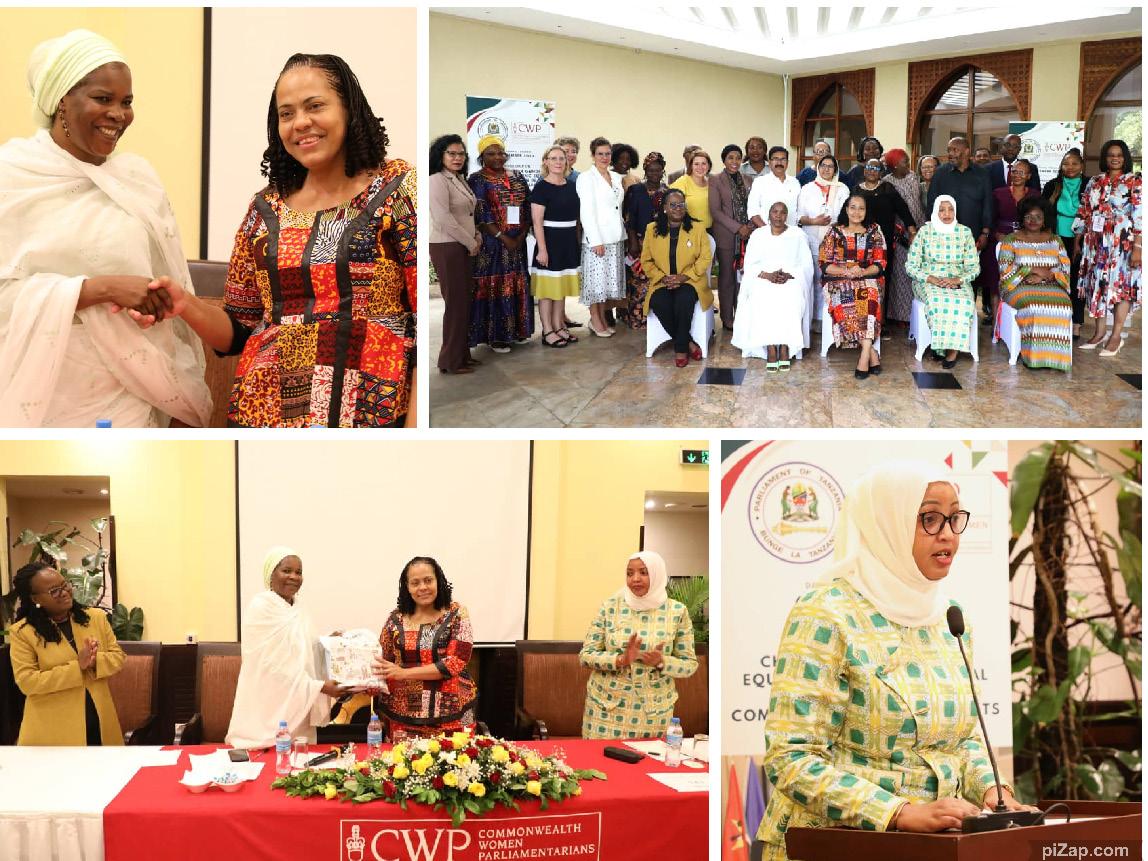
men and women in its structures, operations, methods and in its work.”
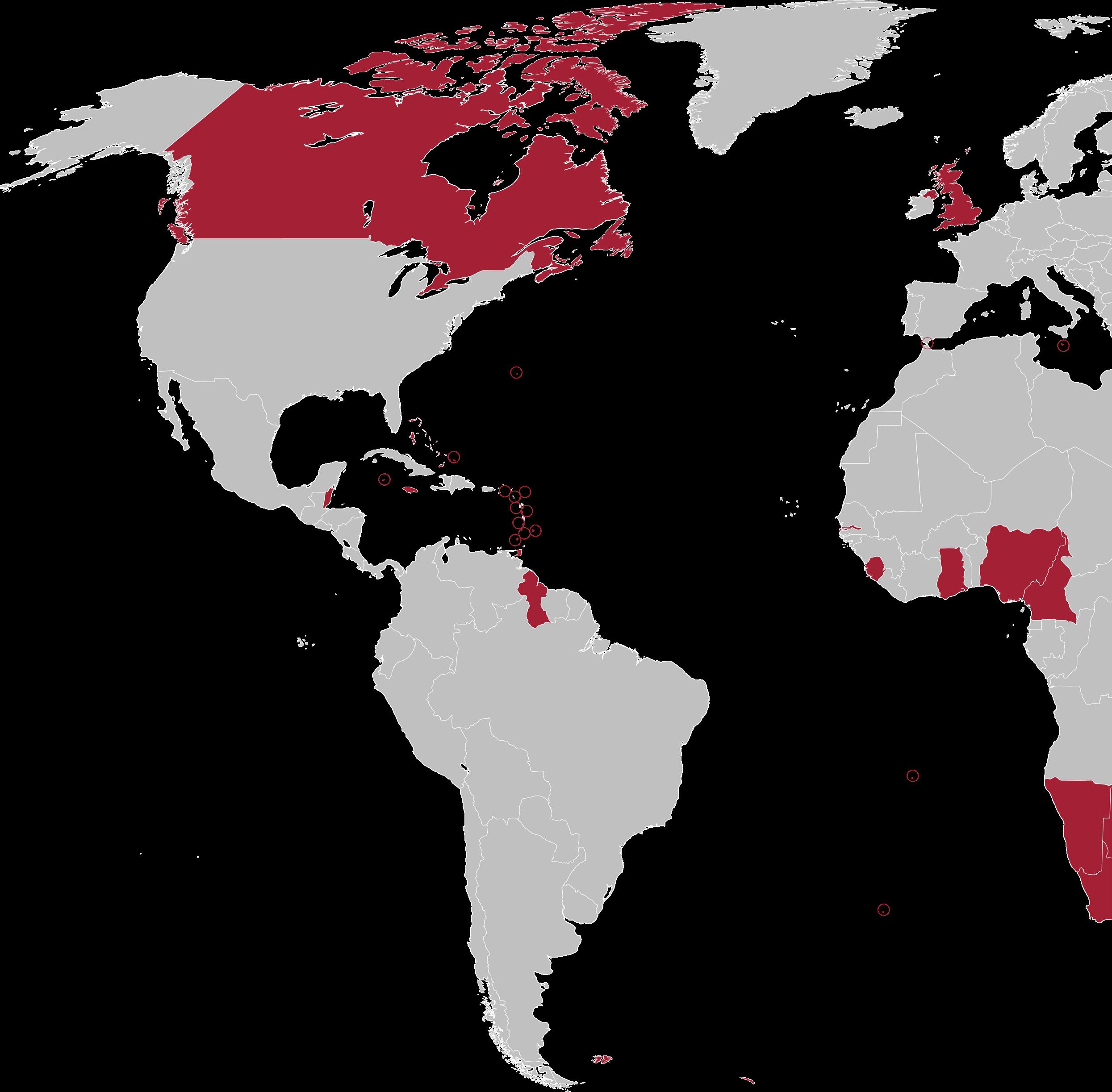
In her opening remarks, the CWP Chairperson said: “As we pursue this mandate together, it is vital that we act as gender champions throughout our time in Parliament, whilst also encouraging those around us to join us in this noble cause. Whilst we all share the same ambitions to see more women in Parliament and positions of leadership, we also have our own contexts and journeys to share with each other. As gender champions, we must guide against all forms of misconceptions that limit women, we must continue to take more seriously, our parliamentary caucuses for therein lies our strength and cohesion, we must continue to synergise to mentor, empower and encourage ourselves to positions of prominence in political leadership.”
The Tanzanian Minister, Hon. Angellah Kairuki, MP spoke about the importance of including everyone in the campaign for gender equality and said: “Undoubtedly, gender equality in politics, can only be achieved if men work side by side with women to share the responsibility in breaking harmful cultural norms and practices, as well as the institutional, structural and legal barriers that hinder women’s equal and influential political participation.
We should bear in mind that gender equality is not guaranteed simply because there are women in Parliament. It is more a question of how gender-sensitive the Parliament, its policies and its infrastructure are. It requires a combination of greater numbers of women; stronger gender-sensitive infrastructure; and stronger gender equality policy and legislation. A gender-sensitive Parliament is one that responds to the needs and interests of both
Expanding on the work already being undertaken by the CWP network on Gender-Sensitive Parliaments (GSP) with particular reference to two of the dimensions of a GSP: Equality of Participation and Gender Equality Policy and Women’s Substantive Representation, the CWP Workshop looked at how Champions of all genders can better address discriminatory practices, unequal access to resources and other issues that prevent the equal participation of women in Parliament. Participants also discussed the importance of developing gender parliamentary caucuses and how they can be utilised to promote gender-sensitive Parliaments and gender equality.
Workshop participants also had the opportunity to hear from leading experts in the field including Dr Lulu Mahai, Director of the Institute of Gender Studies at the University of Dar Es Salaam; Kimberly McArthur from the Apolitical Foundation; Suzie Dunn from University of Ottawa/Dalhousie University; Dr Kiran Hassan, Coordinator of Freedom of Expression and Digital Rights at the Institute of Commonwealth Studies as well as speaking with organisations engaged in promoting gender equality in Tanzania including UN Women; Institute of Gender Studies; Tanzania Media Women Association; Tanzania Women Lawyers Association (TAWLA); Thamani Foundation; Tanzania Gender Networking Programme; and Equality for Growth Tanzania.
This workshop continued the recent work of the Commonwealth Women Parliamentarians (CWP) network which held workshops on gender quotas in Parliament and mapping discriminatory laws across the Commonwealth at the 66th Commonwealth Parliamentary Conference in Ghana.

84 | The Parliamentarian | 2024: Issue One | Over 100 years of publishing
Images: Tanzania Parliament.
COMMONWEALTH WOMEN PARLIAMENTARIANS NEWS
COMMONWEALTH WOMEN PARLIAMENTARIANS CONVENE ONLINE SEMINAR ON GENDER-BASED VIOLENCE
To mark the #16DaysofActivism against gender-based violence in November 2023, the Commonwealth Women Parliamentarians co-convened an online webinar on legislative, policy and policing approaches to domestic abuse across the Commonwealth. The online discussion was led by CPA UK Branch Chair and CWP Steering Committee Member, Rt Hon. Dame Maria Miller, MP (United Kingdom) together with Hon. Juliana Addison, MP (Victoria), Hon. Cindy McLeish, MP (Victoria) and diversity and inclusion specialist, Kate Wright (Jersey). This insightful event looked at ways that Commonwealth countries have acted to tackle domestic abuse and sought to address how Parliamentarians can take decisive action including creating and/or strengthening existing legislation on domestic abuse to ensure that Parliaments and Legislatures uphold their commitments to put an end to domestic violence.

GENDER EQUALITY IN THE PARLIAMENTS OF VICTORIA AND WESTERN AUSTRALIA
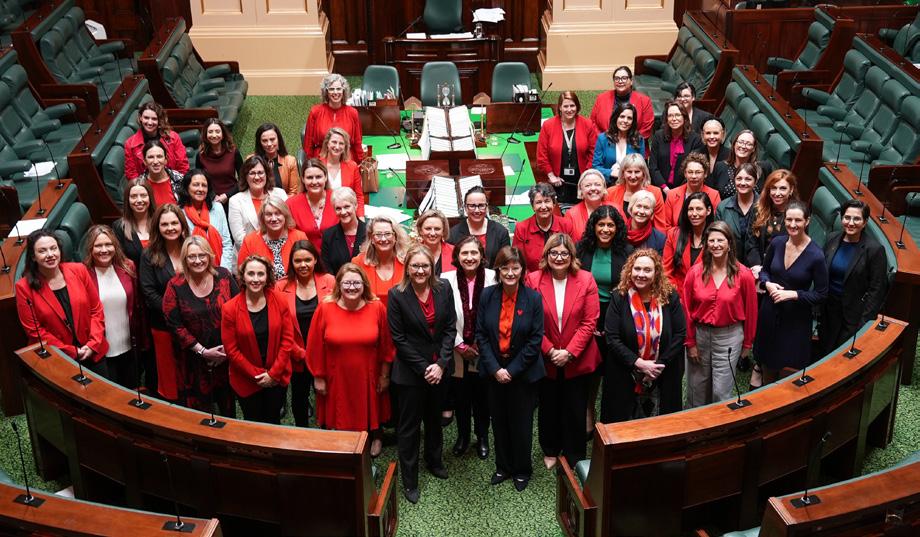
In November 2023, the Parliament of Victoria recently became the latest Commonwealth Parliament to reach equal gender representation amongst its Members of Parliament. The Premier of Victoria, Hon. Jacinta Allan, MP said: “For the first time ever women make up half of the Victorian Parliament. Now when school groups visit, they can look out from the galleries and see chambers that are truly representative of men and women.” To celebrate the occasion, all women MPs were invited to the Chamber for a photo to mark the milestone.
This follows a history-making time for the Legislative Assembly of Western Australia, which now has a majority of women Members in the lower house for the first time. The election of Magenta Marshall, Member for Rockingham, to the Parliament of Western Australia in July 2023 increased the number of women Members to 30 out of a total of 59 Members - more than 50% female representation in the chamber.
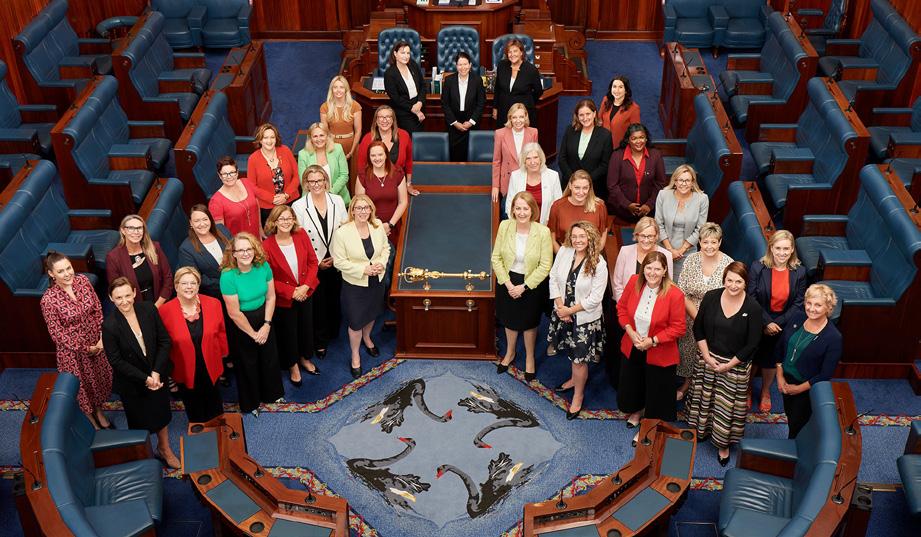
WOMEN LEADERS COMMIT TO ENDING DOMESTIC AND SEXUAL VIOLENCE
Visionary women leaders from across the Commonwealth came together on 15 November 2023 in London to commit to safeguarding women and girls from domestic and sexual violence. Under this commitment, women leaders from different professions will coordinate actions for individuals, households and communities to protect women and girls, including in hard-to-reach areas across the Commonwealth’s 56 countries. The event was attended by more than a hundred representatives from government, business, academia and civil society, and Her Majesty Queen Camilla – a long-time campaigner on supporting women who are affected by domestic violence - also joined the event.
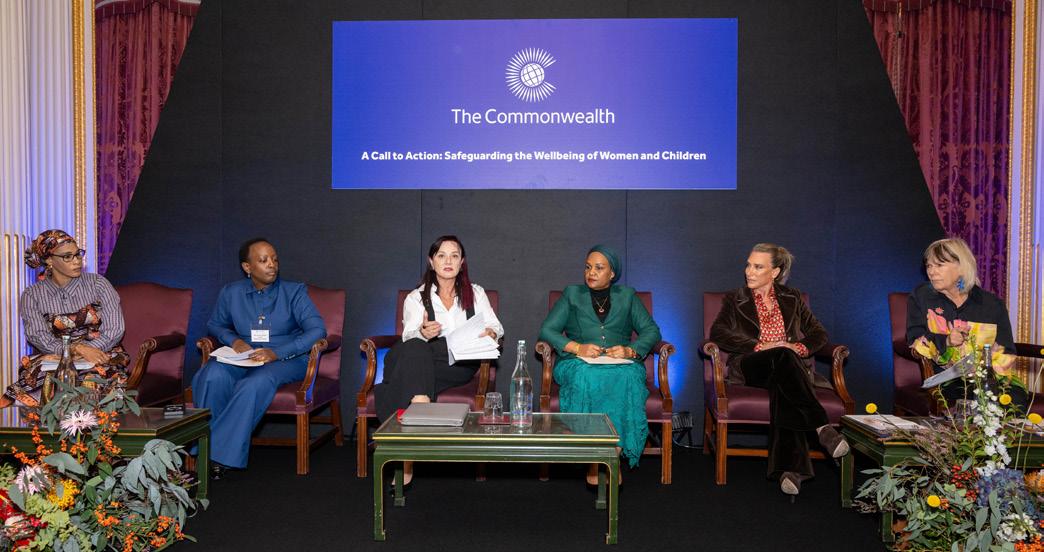
The Commonwealth Secretary-General, Rt Hon. Patricia Scotland, KC said: “The widespread prevalence of domestic and sexual abuse, which affects one in three women in their lifetimes, and the pernicious impact on survivors, families, communities and economies are a constant reminder that action is urgently required. For far too long and far too often, we are told it is impossible to end this... But, today, we reject that notion and say NO MORE because together, we can.”
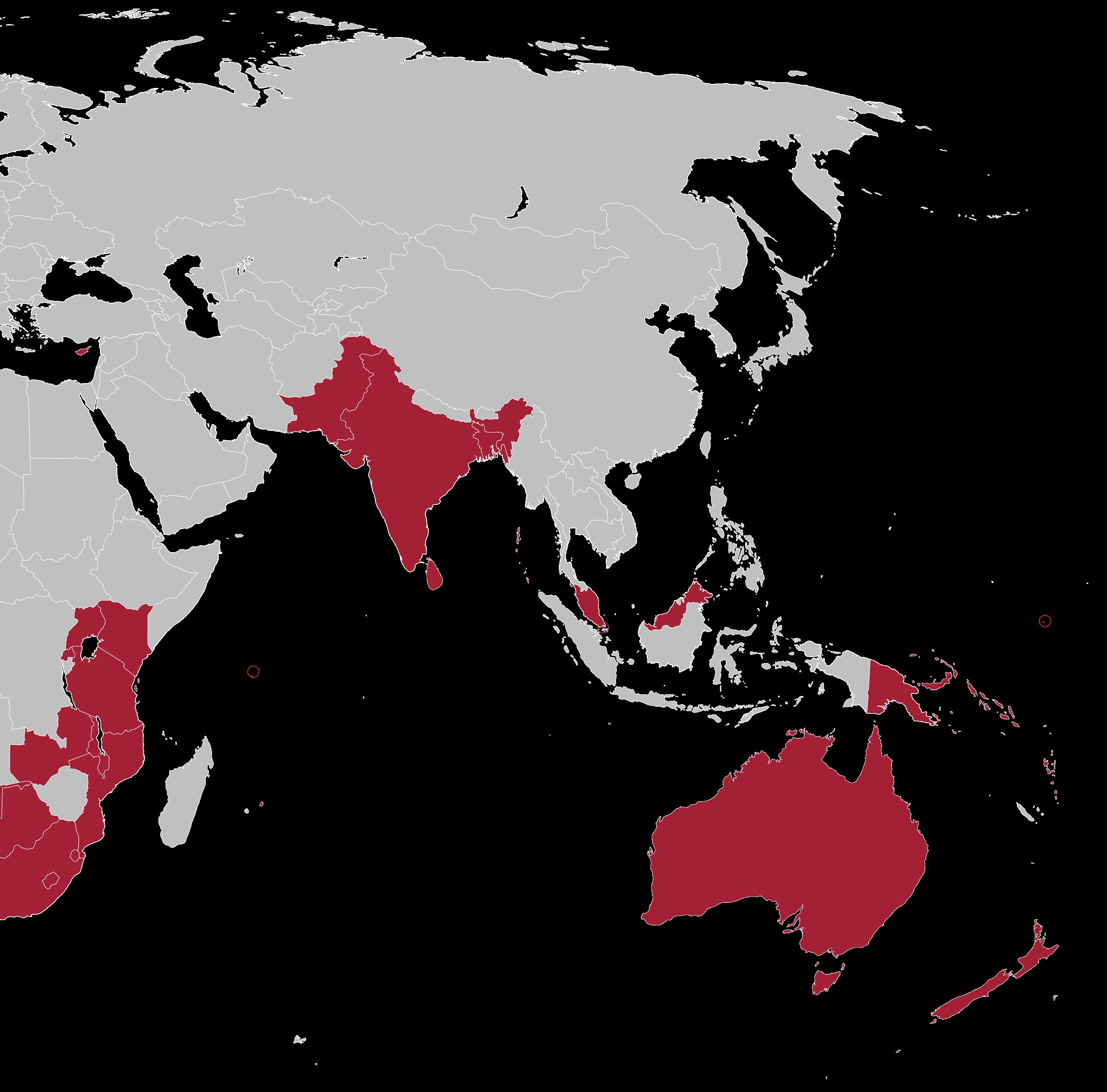
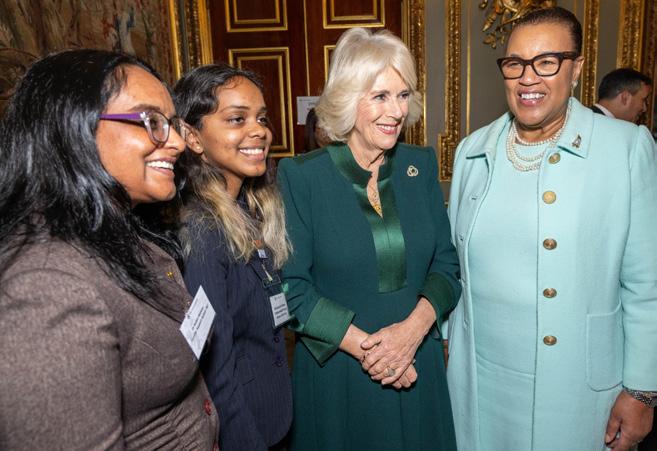
Commonwealth First Ladies - Fatima Maada Bio of Sierra Leone, Fatoumatta Bah-Barrow of The Gambia and Maryam Mwinyi of Zanzibar - discussed alarming statistics which laid bare the plight of the millions of women and girls who are abused, isolated and even killed in their homes.
“The statistics are horrible,” the First Lady of Sierra Leone said, adding: “They constantly remind us of the mammoth task ahead. But together, we can, and we must end this violence.” During the discussions, specific measures were outlined that can be adopted by all Commonwealth countries, such as early childhood education to dismantle harmful cultural norms, one-stop centres to offer non-judgmental health, legal and counselling support, campaigns to engage men and legislation to enshrine equality under the law to help bring an end to the violence.

The Parliamentarian | 2024: Issue One | Over 100 years of publishing | 85
Image: CPA Secretariat.
Image: Parliament of Victoria.
Image: Parliament of Western Australia.
Image: Commonwealth Secretariat.
Image: Commonwealth Secretariat.
COMMONWEALTH WOMEN PARLIAMENTARIANS NEWS
COMMONWEALTH PARLIAMENTARIANS AGREE TO JOINT RESOLUTIONS TO ADDRESS GENDER-BASED VIOLENCE AND MODERN SLAVERY
Delegates at a joint three-day workshop signed two joint resolutions to address both gender-based violence and modern slavery in supply chains. With one in three women experiencing violence due to their gender and 28 million people across the world living in forced labour, gender-based violence and modern slavery in supply chains are two of the world’s most challenging and prevalent humanitarian issues.
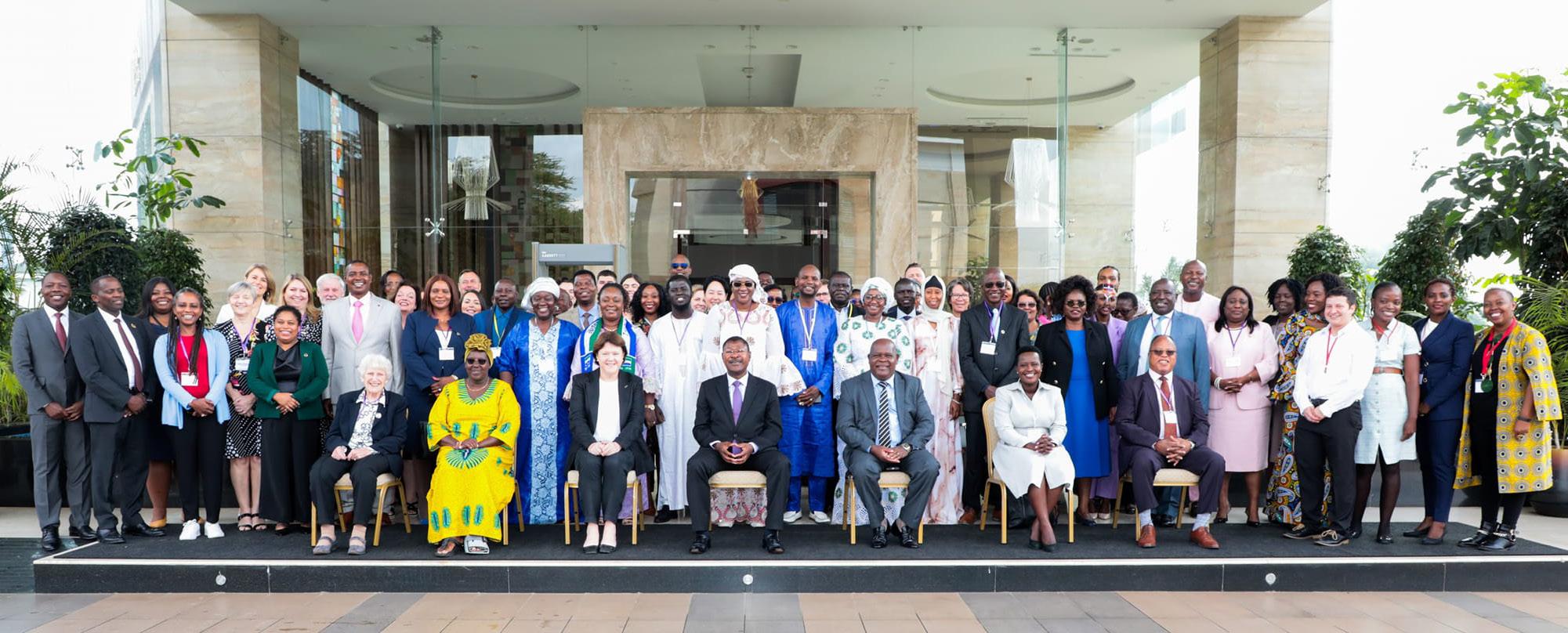
The workshop was organised by the CPA UK Branch in partnership with the Parliament of Kenya from 13 to 16 November 2023 and delegates from 12 Commonwealth Legislatures gathered in Nairobi to take part, including The Gambia, Jamaica, Jersey, Kenya, Lesotho, New South Wales, Nova Scotia, Sierra Leone, St Helena, Uganda, the United Kingdom and Zambia. Delegates were addressed by Chief Justice and President of the Supreme Court of Kenya, Lady Justice Martha Koome and the Speaker of the National Assembly of Kenya, Hon. Dr Moses M. Wetang’ula, EGH, MP, who formally opened the workshop and said: “The work that lies before us carries an unprecedented significance that cannot be overstated.”
The CPA UK Chairperson and CWP Steering Committee Member, Rt Hon. Dame Maria Miller, MP, spoke at the workshop on the genderbased violence resolution and commented: “The issues this workshop addressed are two of the most far-reaching and devastating humanitarian challenges of our time. Their global scale requires parliamentarians from across the world to come together and learn from one another’s experiences and, crucially, to commit to their eradication behind a unified strategy - I am pleased that the workshop achieved just that. The Commonwealth, with its similar legal and parliamentary structures, enables us to collaborate and detail our response strategies in a way no other organisation can.”
The workshop was delivered as part of a UK Foreign, Commonwealth and Development Office-funded project. Legislators also pledged to establish a ‘Global Network of Parliamentarians to End Modern Slavery’ through which best practice can be shared about how local modern slavery laws are implemented and enforced. Other pledges included addressing gaps within existing legislation, collaboration with other Commonwealth nations to harmonise legislative frameworks, introducing Private Member’s Bills to prevent forced marriage and FGM, campaigning for greater maternal and childcare funding at budget debates and establishing safe spaces to support affected women and girls.
KENYA’S DEPUTY CLERK CALLS FOR INCREASED SUPPORT FOR WOMEN MPS WITH TARGETED CAPACITY BUILDING
The Deputy Clerk of the National Assembly of Kenya, Serah Kioko, has urged development partners to increase support for female Parliamentarians. Presiding over the official opening of a two-day mentorship training for the Kenya Women’s Parliamentary Association (KEWOPA), with Members from both the National Assembly and the Senate in attendance, the Deputy Clerk expressed gratitude for ongoing efforts to enhance the capacity of women MPs but emphasised the need for more targeted support for women Parliamentarians to enhance their leadership capacities and to equip them with the skills to be effective leaders.

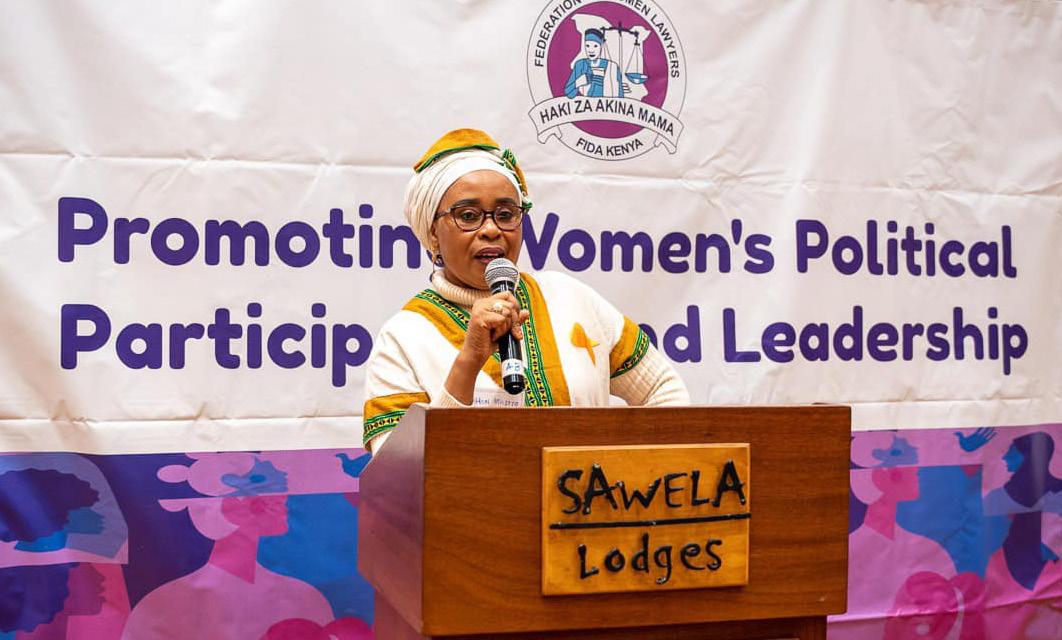
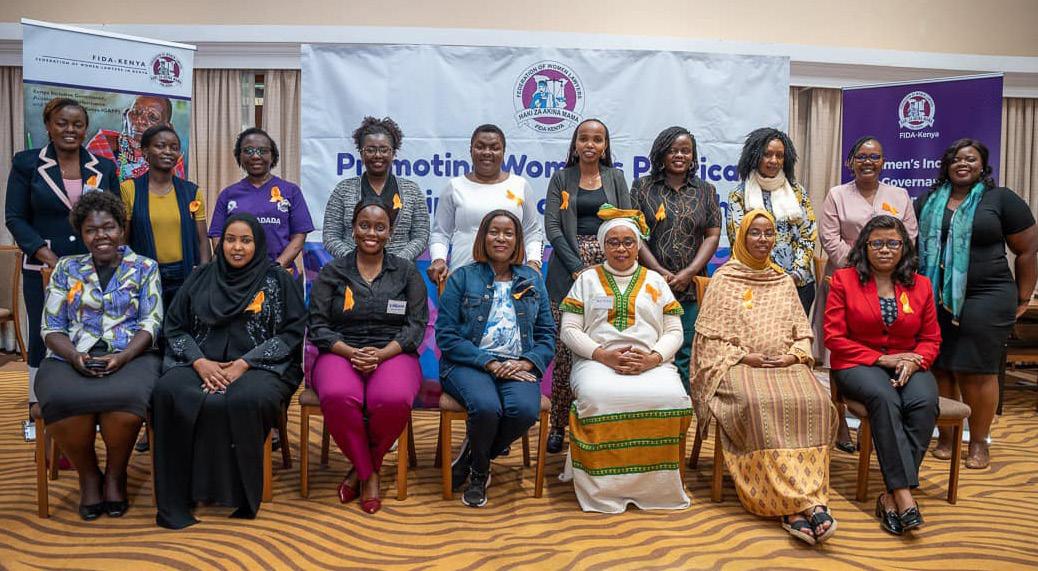
Hon. Mary Emaase, MP (Teso South) suggested that encouraging more women to run for elective posts is crucial to increase the number of female legislators in both Houses of Parliament and at the County Assembly level. She asked partners to support aspiring Parliamentarians as well.
The session was convened by the Federation of Women Lawyers (FIDAKenya) as part of a two-day training programme on the theme of ‘Promoting Women’s Political Participation and Leadership’.

86 | The Parliamentarian | 2024: Issue One | Over 100 years of publishing
Image: Parliament of Kenya.
Image: Parliament of Kenya/KEWOPA.
Image: Parliament of Kenya/KEWOPA.
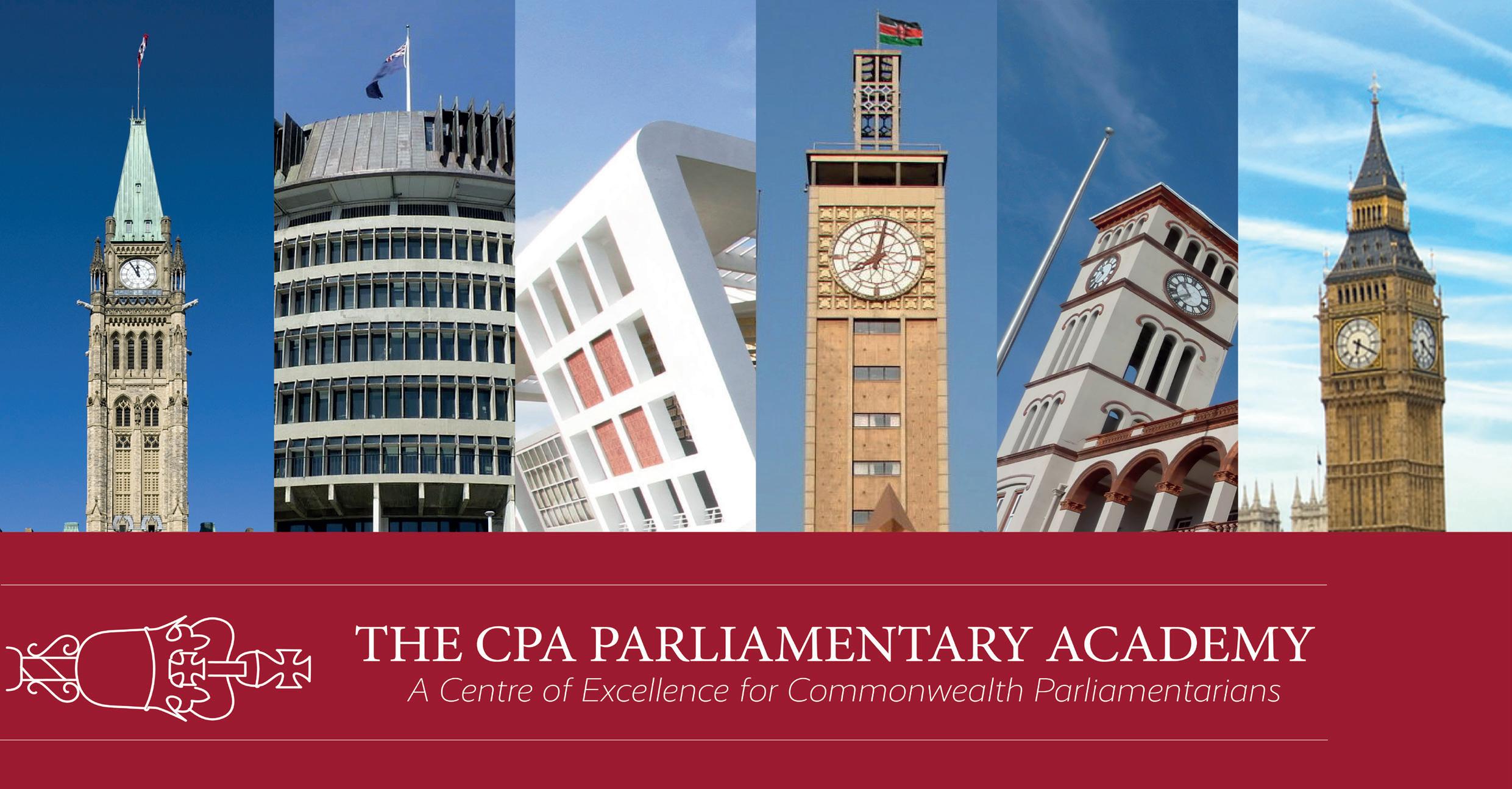
Register for the CPA Parliamentary Academy Now

The CPA has designed a curriculum of online courses specifically for Parliamentarians and parliamentary officials.
Our courses are intended to strengthen your capacity to fulfil constitutional and statutory obligations as well as to enhance your knowledge and understanding of the role of Parliament in the democratic governance process. These accessible courses offer an adaptive and flexible learning approach, with both written and visual content along with access to a variety of useful resources. So if this sounds right for you, register for the Academy now and get started!
To register for the CPA Parliamentary Academy, please email hq.sec@cpahq.org or fill out a ‘Contact Us’ form on our website. More information can be found on our website: www.cpahq.org/parliamentary-academy.
COMMONWEALTH LEGISLATIVE NEWS
PARLIAMENTARY REPORTS AND THIRD READINGS FROM PARLIAMENTS AROUND THE COMMONWEALTH
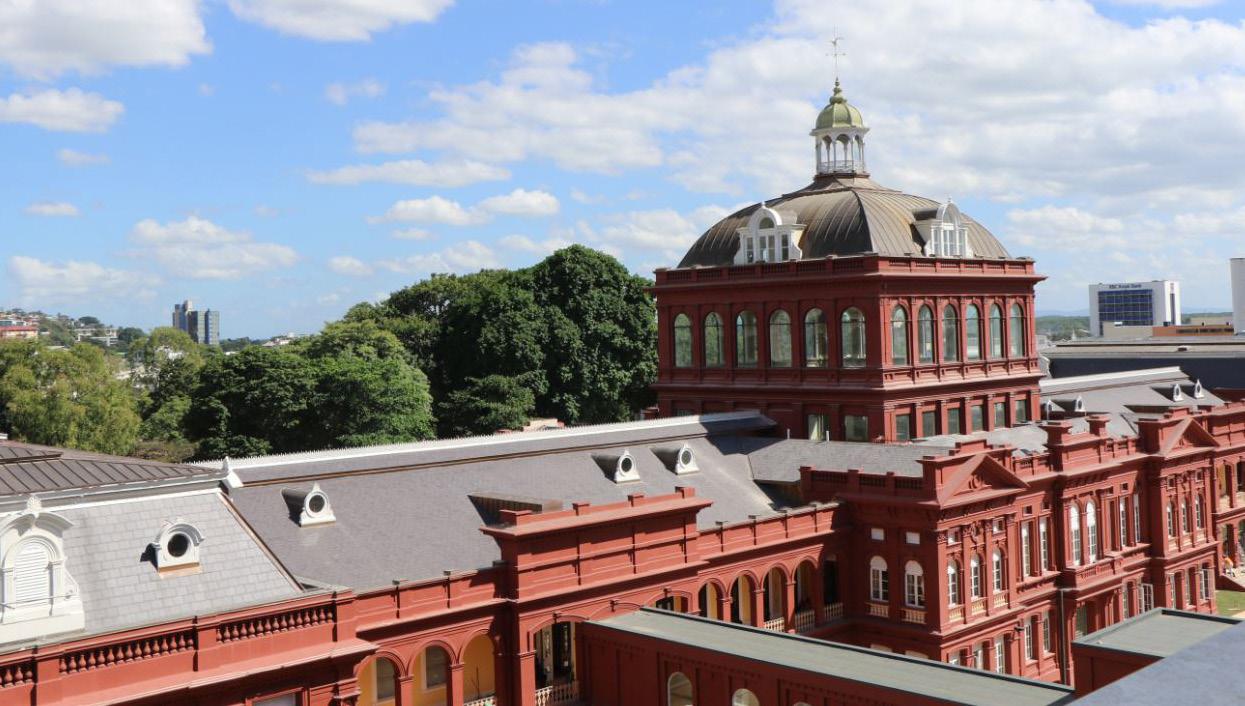

AUSTRALIA
First Pacific Leader to address Australia’s Parliament
Page 89
CANADA
Member changes at Canadian Parliament
Page 95
UNITED KINGDOM
State Opening of Parliament and new UK Foreign Secretary
Page 97
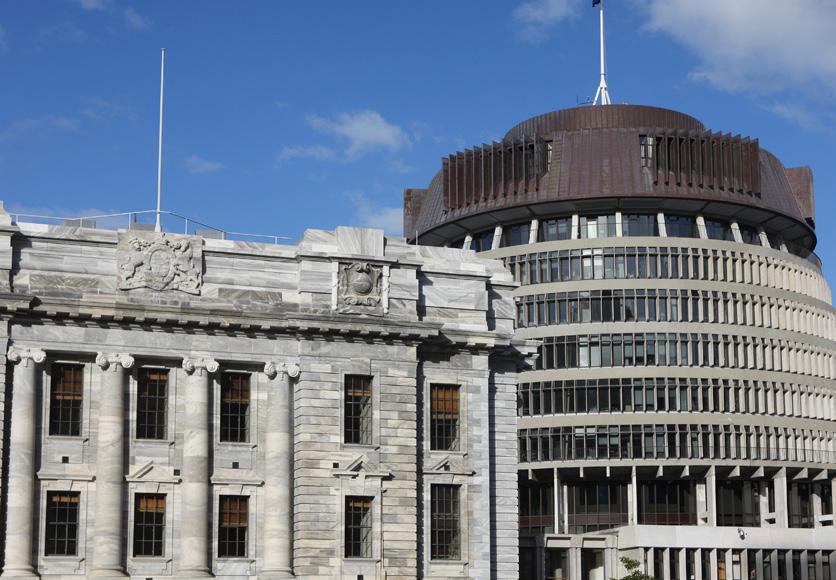
TRINIDAD AND TOBAGO
Tributes to former Prime Minister
Page 98
NEW ZEALAND
General Election results and Opening of the 54th Parliament
Page 100
THIRD READING REPORTS
• Australia Federal Page 92
British Columbia Page 94
• New Zealand Page 101
OBITUARY
Former CPA Chairperson Page 102
BOOK REVIEW
Caribbean Policy Analysis after the COVID-19 Pandemic Page 103
88 | The Parliamentarian | 2024: Issue One | Over 100 years of publishing
FIRST PACIFIC LEADER TO ADDRESS AUSTRALIA’S PARLIAMENT
HISTORIC SPEECH BY THE PRIME MINISTER OF PAPUA NEW GUINEA
On 8 February 2024, the Prime Minister of Papua New Guinea, Hon. James Marape, MP, gave an address in the Australian House of Representatives. At the start of proceedings, the Speaker, Hon. Milton Dick, MP, welcomed as guests the President of the Senate, Senator Hon. Sue Lines, and Senators, to the sitting of the House to hear the address.
After Mr Marape was announced by the Serjeant-at-Arms and escorted into the Chamber, the Australian Prime Minister, Hon. Anthony Albanese, MP, extended a welcome, on behalf of the government and the people of Australia, to Prime Minister Marape, Madam Marape and the delegation from Papua New Guinea.
Prime Minister Albanese, observed that next year is the 50th anniversary of Papua New Guinea’s independence, ‘a momentous day in the life of both our nations.’ He told Prime Minister Marape: ‘we embrace each other as equals. We learn from each other as neighbours. We are there for each other as mates.’ He ended his remarks by saying that Australia ‘will never forget what the people of Papua New Guinea did for us in the past. Let us never doubt what we can achieve together in the future.’
The Leader of the Opposition, Hon. Peter Dutton, MP, told the House he wholeheartedly supported the ‘hospitable’ words of Mr Albanese, calling Prime Minister Marape ‘a dear friend to Australia.’
The Speaker then invited Prime Minister Marape to address the House. Prime

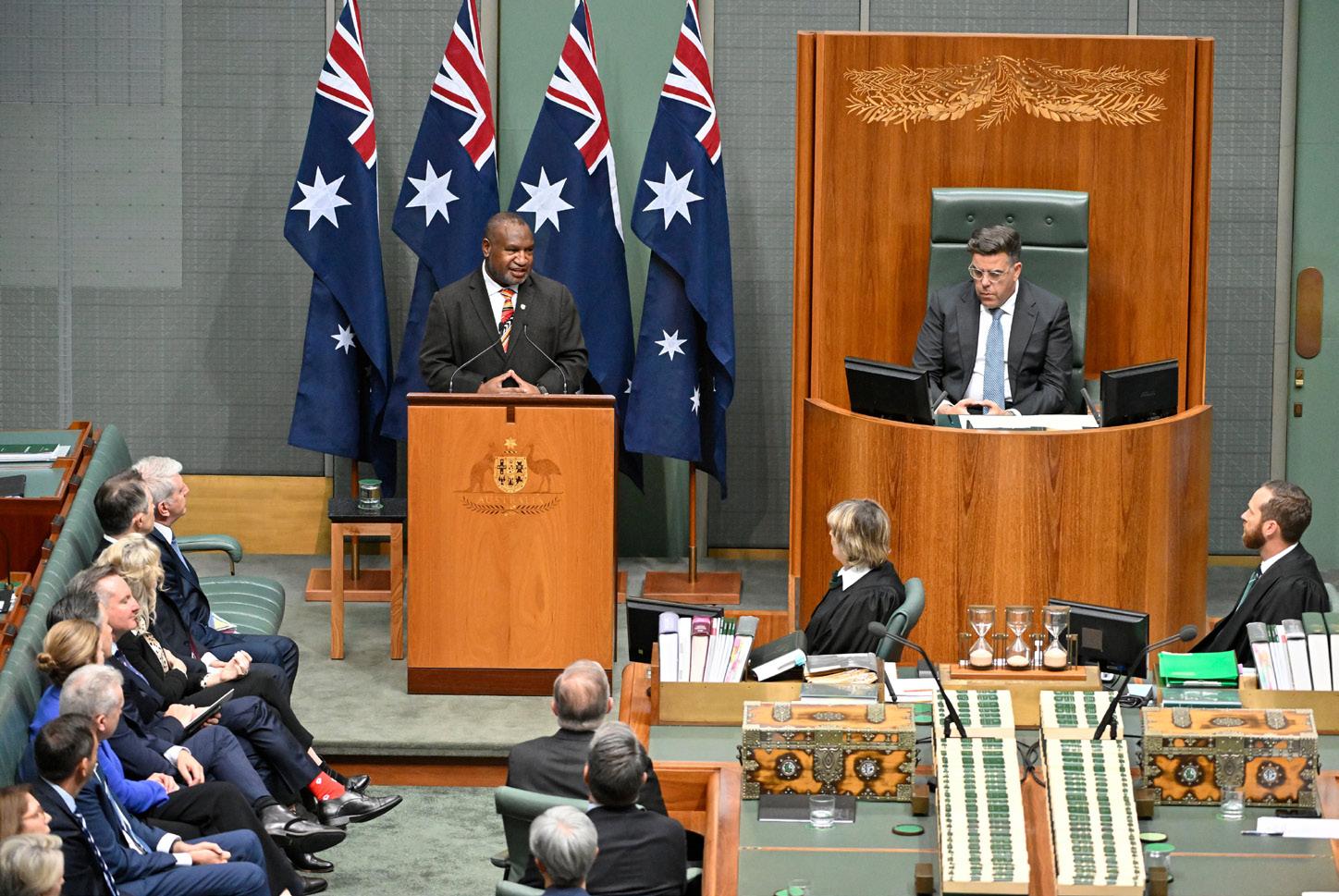
Minister Marape said that he was ‘deeply honoured’ to be the first Prime Minister of his country to address the Australian Parliament in Canberra. Reflecting on the upcoming anniversary of independence, Prime Minister Marape said: ‘How have the last 49 years been for Papua New Guinea? It is true that our challenges are many and our systems remain fragile. It is true that our people need greater empowerment in many aspects of their lives. But not all is bad. Nearly 50 years on, our democracy remains as strong as ever.’ He implored Australia: ‘do not give up on Papua New Guinea’, saying that ‘our shared modern history over a century…makes us uniquely related…one can choose friends, but one is stuck with family forever.’ He ended his address by saying ‘our set past cannot change, but it must become the tailwind to guide us into the collective future. Our future becomes more certain when we find common grounds to preserve and protect each other.’
The Speaker, on behalf of the House, then thanked Prime Minister Marape for his address and the President of the Senate and Senators for their attendance, and invited Prime Minister Albanese to escort Prime Minister Marape from the Chamber.
Prime Minister Marape is the first leader of another nation to give an address to the House from within the Chamber since 2020, and the first leader of a Pacific island nation ever to do so.
PRESENTATION OF THE PARLIAMENTARY LEADERSHIP TASKFORCE ANNUAL REPORT
On 7 February 2024, on the two-year anniversary of the adoption of the Set the Standard report, the Speaker of the House of Representatives, Hon. Milton Dick, MP, presented the Parliamentary Leadership Taskforce 2023 Annual report: update on the implementation of recommendations from the Set the Standard report. The report, which contained 28 recommendations, was preceded by an independent review, led by then Sex Discrimination Commissioner Ms Kate Jenkins, into the Federal Parliament’s workplaces.
The Speaker told the House that ‘today we recommit the Parliament to positive change.’ He said that while significant progress had been made, ‘the work towards truly respectful and inclusive parliamentary workplaces is ongoing.’ The Prime Minister said that he wanted ‘to see the culture here continue to change and improve…the more the Parliament looks like modern Australia, the better. It’s better for the culture and better for our democracy.’
In his statement, the Leader of the Opposition, Hon. Peter Dutton, MP, welcoming the progress that had been made to date, said that ‘whether we are an elected Parliamentarian, a political adviser or a public servant, we all serve
The Parliamentarian | 2024: Issue One | Over 100 years of publishing | 89 PARLIAMENTARY REPORT AUSTRALIA
Parliamentary Report by Fleur Hall, Parliament of Australia.
Image credit: Parliament of Australia/AUSPIC.
Image credit: Parliament of Australia/AUSPIC.
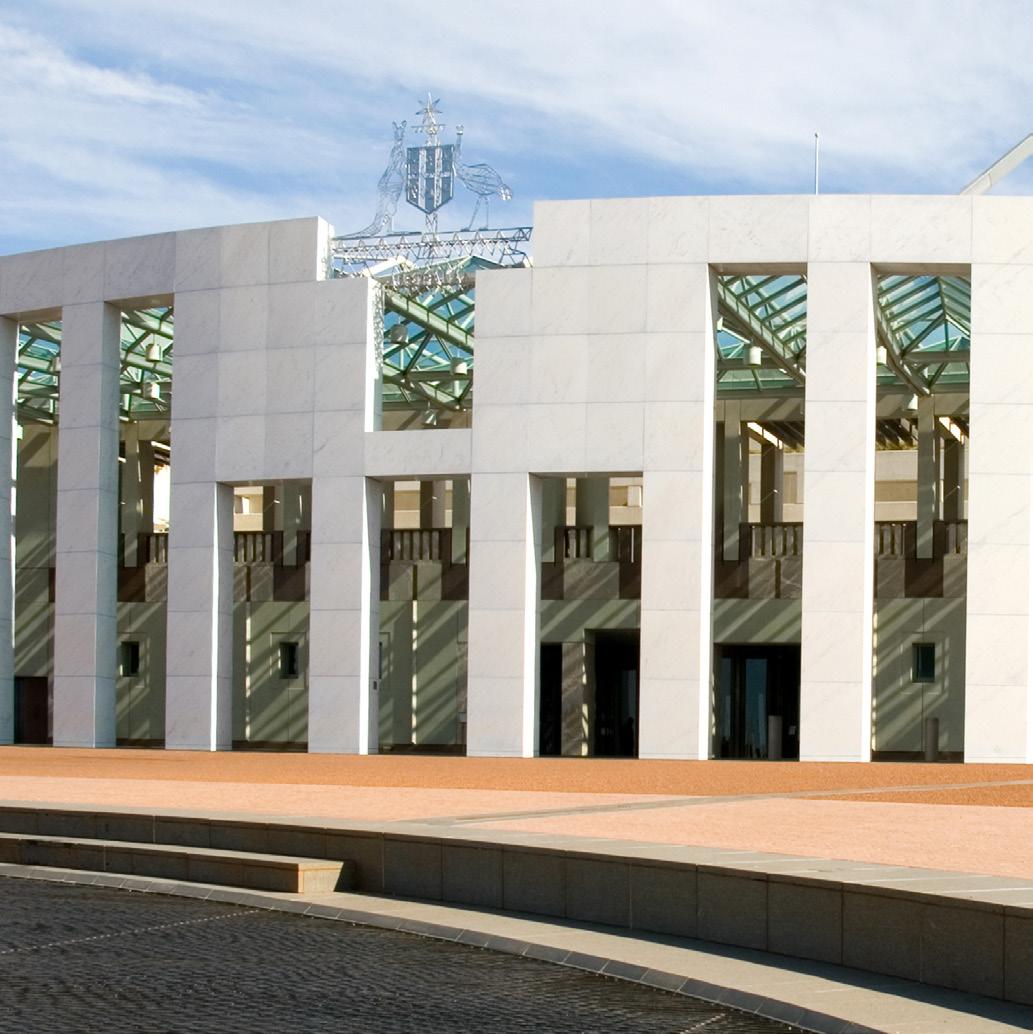
the public, and our service is a privilege... Australians demand and expect of us higher standards, and we should offer nothing less in return.’
The Leader of the Nationals, Hon. David Littleproud, MP, the Leader of the Australian Greens, Mr Adam Bandt, MP, and the Member for Warringah, Ms Zali Steggall, MP (Independent) also made statements in connection with the report.
DEATH OF SITTING MEMBER: PETA JAN MURPHY
On 6 December 2023, the Speaker of the Australian House of Representatives, Hon. Milton Dick, MP, informed the House of the death, on 4 December 2023, of Peta Jan Murphy, a Member of the House for the Division of Dunkley.
The Prime Minister, Hon. Anthony Albanese, MP (Australian Labor Party), moving a motion of condolence for Ms Murphy, said that ‘we offer our nation’s condolences to all those who had the great fortune of knowing Peta Murphy. Peta Murphy was special. We gather today as a Parliament to mourn a great loss to our Parliament. All of us in the Labor family have been left broken-hearted by the passing of our beloved Peta Murphy, and I appreciate that grief is keenly felt by many others in this place.’ The Prime Minister described Ms Murphy as ‘a fiercely loyal friend and colleague, a boss her staff adored; and a brilliant, funny, courageous and caring person who made this a better Parliament because she cared so deeply about representing her community,
because she believed so passionately in the power and value and responsibility of government and because she worked so hard to make Australia a better country.’
The Leader of the Opposition, Hon. Peter Dutton, MP (Liberal National Party of Queensland) told the House that it was his ‘privilege to join the Prime Minister in honouring the life of Peta Jan Murphy.’ Mr Dutton said that Ms Murphy had ‘an unfaltering faith in our democratic system… [and] an unbreakable belief in the cauldron of Australia’s national conversation and in the power of ideas and robust debates to break through the wall of brute politicking.’ He said that ‘with Peta leaving us at only age 50, we all know she had so much more to say, so much more to contribute and so much more to do.’
Throughout the day, many Members spoke about Ms Murphy’s work before entering Parliament as a solicitor, barrister and public advocate; her success on the squash court including as a gold medalist at the Australian Masters, US Masters and World Masters Games; her work in the Parliament as Chair of the Standing Committee on Social Policy and Legal Affairs, in which she led an inquiry and tabled a report into the adverse social effects of online gambling, and its impacts on those experiencing gambling harm; her commitment to her constituents in Dunkley and her advocacy for a national registry for metastatic cancer patients. The Minister for Aged Care, Hon. Anika Wells, MP, perhaps summed up best what many observed that ‘what was finest about [Ms Murphy’s] character…was that she constantly found a way to take the sharpest circumstances that life presented her with and make them a gift for others.’
Contributions extended well into the evening, with Members on both sides marking the life and service of the Member for Dunkley. Just before 9.00pm, debate on the motion was adjourned and the resumption of the debate was made
an order of the day for the next sitting, whereupon the sitting was suspended for a period of time as a mark of respect. The following day, on 7 December 2023, the motion was agreed to, all Members present rising in silence.
On 6 February 2024, the Leader of the Government in the Senate, Senator Hon. Penny Wong, by leave, moved a motion of condolence relating to the death of Ms Murphy. The Leader of the Opposition in the Senate, Senator Hon. Simon Birmingham, rose to associate the Opposition with the remarks of Senator Wong, and further contributions were made before the motion was agreed to, Senators joining in a moment of silence to signify their assent.
Earlier, on 3 February 2024, the Australian Government announced that AU$1.5 million would be provided to accelerate the collection of cancer stage and recurrence data in Australia, in response to the Breast Cancer Network Australia’s report Time to Count People with Metastatic Breast Cancer: A Way Forward. The Prime Minister said that ‘even in what turned out to be the final week of the late Peta Murphy’s life, she travelled to Parliament to help launch [the report]. Having this information in one place will make our screening and testing processes better to make sure we’re putting resources where it’s needed most.’ A by-election for the division of Dunkley will be held on 2 March 2024.
DEATH OF FORMER MEMBER AND GOVERNOR-GENERAL, HON. BILL HAYDEN, AC
On 28 November 2023, the Prime Minister, Hon. Anthony Albanese, MP moved a motion of condolence for Hon. Bill Hayden, AC, a former Governor-General of Australia, a former Leader of the Australian Labor Party, Minister and Member of Parliament for Oxley from 1961 to 1988. The Leader of the Opposition, two other Members and the Speaker, who is the current Member for Oxley, also made remarks. All Members present rose in silence before the debate was adjourned and referred to the Federation Chamber, where Members made speeches on the morning of 30 November 2023. That afternoon, the motion was returned to the House and agreed to, all Members present rising in silence.
90 | The Parliamentarian | 2024: Issue One | Over 100 years of publishing
REPORT
PARLIAMENTARY
AUSTRALIA
Image credit: Parliament of Australia/AUSPIC.
PARLIAMENTARY REPORTS FROM THE CPA AUSTRALIA REGION
NEW CHIEF MINISTER OF THE NORTHERN TERRITORY
On 19 December 2023, Hon. Natahsa Fyles (Territory Labor), announced she would be resigning as Chief Minister of the Northern Territory. In a press conference she told reporters that ‘upon further review of my personal interests, it became clear that I did not declare…a small shareholding in a company…which came from a BHP merger in 2015.’ Ms Fyles said the error in failing to declare the interest was ‘not intentional, but it is unacceptable.’ She remains the Member for Nightcliff.
On 21 December 2023, the Member for Drysdale, Hon. Eva Lawler was sworn in as the Northern Territory’s 13th Chief Minister, following a meeting of the Labor caucus on 20 December. The Member for Gwoja, Hon. Chanston (Chansey) Paech, was sworn in as the Deputy Chief Minister.
Ms Lawler is the Northern Territory’s third Chief Minister within 18 months. Mr Michael Gunner, Ms Fyles’ predecessor, announced his resignation while delivering the Northern Territory’s Budget on 10 May 2022.
NEW PREMIER OF QUEENSLAND
On 10 December 2023, Hon. Annastacia Palaszczuk (Australian Labor Party), announced she would be resigning as Premier of Queensland and retiring as the Member for Inala, in Brisbane. Ms Palaszczuk was the 39th Premier of Queensland and was first elected to the Queensland Parliament in 2015. She was sworn in for a third term as Premier on 12 November 2020 and was one of the last leaders remaining, along with the Australian Capital Territory’s Chief Minister Andrew Barr, to have led a state or territory through the COVID-19 pandemic.
At a press conference, Ms Palaszczuk said that ‘standing up for the people of Queensland has been the honour of my life….I have fought the good fight, I have given everything, now is the time for me to find out what else life has to offer.’ She said that she had given the matter thought while on a recent holiday and that she had made the final decision while at a meeting of national Cabinet.
The Australian Prime Minister, Hon. Anthony Albanese, MP said on social media platform Twitter/X that Ms Palaszczuk ‘retires as a Labor hero, a three-time election winner, Australia’s longest-serving female Premier and – above all else – a champion for Queenslanders.’
On 15 December 2023, during a caucus meeting, the Deputy Premier and Member for Murrumba, Hon. Steve Miles, was elected unopposed as party leader and was sworn in as the state’s 40th Premier that afternoon. The Member for Woodridge, Hon. Cameron Dick, was sworn in as Deputy Premier. Mr Miles said that he would ‘work day and night to earn the trust of Queenslanders.’ The next state election for Queensland will be held later this year.
AUSTRALASIAN STUDY OF PARLIAMENT GROUP –ANNUAL CONFERENCE 2023 HELD AT THE PARLIAMENT OF WESTERN AUSTRALIA
The 2023 Annual Conference of the Australasian Study of Parliament Group (ASPG) took place from 27 to 29 September 2023. The conference was hosted by the Western Australia Chapter of the ASPG at the Parliament of Western Australia.
Established in 1978, the ASPG is a politically non-partisan body, focused on encouraging and stimulating research, writing, teaching and discussion about parliamentary institutions, particularly those of Australia, New Zealand and the South Pacific. The ASPG has a main Executive body and has established Chapters in all States and Territories of Australia and in New Zealand.
The annual conference brings together those with an interest in Parliament and parliamentary affairs, such as parliamentary officers, academics, staff and former and current Members of Parliament, and the media. Due to the COVID-19 pandemic, the last ‘in-person’ conference to have been held was in 2019.
The theme for the 2023 conference was ‘Freedom of Speech, Debate and Information’. One hundred and twenty delegates from Australia, New Zealand, Canada, the Cook Islands and the UK participated. The conference was formally opened by the Speaker of the Legislative Assembly of the Parliament of Western Australia, Hon. Michelle Roberts, MLA, and a welcome on behalf of the ASPG was given by Dr Isla Macphail, ASPG President
and Clerk Assistant (Committees) at the Western Australia Legislative Assembly.
The conference featured two keynote speakers. Dr Arif Ahmed, MBE, inaugural Director for Freedom of Speech and Academic Freedom at the UK Office for Students, delivered his keynote speech live from London on the topic of ‘Arguing for Free Speech in the 21st Century’. Hon. Robert French, AC, who served as Chief Justice of Australia from 2008 to 2017, opened the second day of the conference with his keynote speech entitled ‘Your Freedom Ends Where My Nose Begins –But What if the Nose Moves?’ Additionally, guest speaker Nadine Strossen, New York Law School Professor Emerita and past national President of the American Civil Liberties Union from 1991 to 2008, presented a special address live from Los Angeles on the topic of ‘Free Speech: Why it Matters’.
During the two days, a range of presentations and panel discussions on the conference theme allowed participants to consider freedom of speech, information and the press from a variety of perspectives, and to engage in general discussion, pose questions, exchange ideas and share content from the various Parliaments and academic institutions represented.
An international perspective on freedom of speech was provided through the jurisdiction reports given by Liam Laurence Smyth, Clerk of Legislation at the UK House of Commons; Charles Feldman, President of the Canadian Study of Parliament Group and David Wilson, Clerk of the House of Representatives at the New Zealand Parliament.
Papers from the conference have been published in a special edition of the Australasian Parliamentary Review, the official journal of the Australasian Study of Parliament Group, available at www. aspg.org.au. Extracts from two of the papers at the conference – ‘Curating the Record: Hansard Editing’ and ‘Out of Order: Managing unparliamentary language in the Australian House of Representatives’ are also published in this issue of The Parliamentarian
The 2024 ASPG Conference will be held in Wellington, New Zealand, from 2 to 4 October 2024, with the topic ‘Parliament’s resilience in a changing world’. See www. aspg.org.au for more details.
The Parliamentarian | 2024: Issue One | Over 100 years of publishing | 91
PARLIAMENTARY REPORT AUSTRALIA
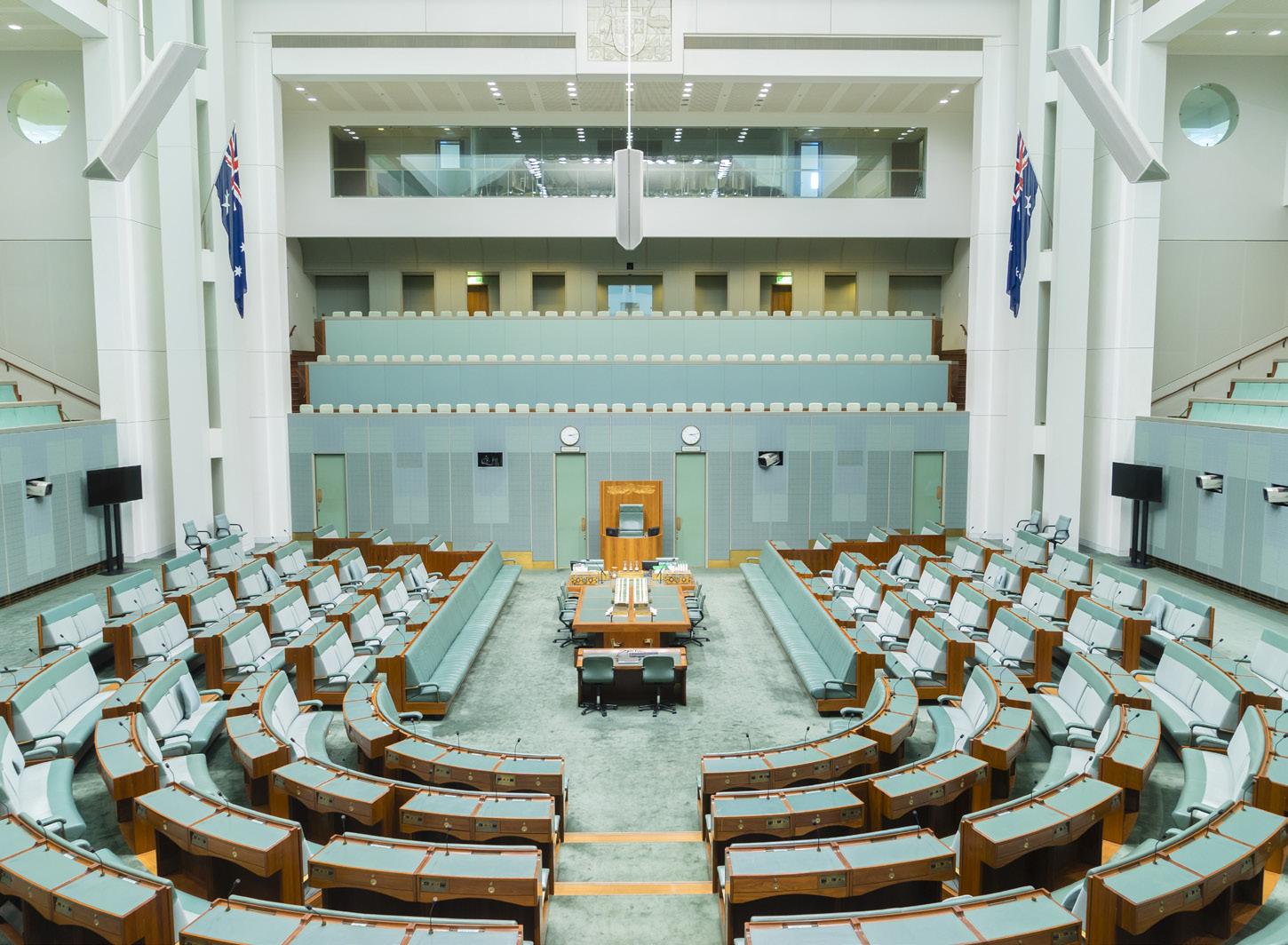
Counter-Terrorism Legislation Amendment (Prohibited Hate Symbols and Other Measures)
Bill 2023
Introduced on 14 June 2023 in the Australian House of Representatives, the Bill amends the:
• Crimes Act 1914 and Criminal Code Act 1995 to establish criminal offences for the public display of prohibited Nazi and Islamic State symbols and the trading of goods that bear a prohibited Nazi or Islamic State symbol; and establish criminal offences for using a carriage service for violent extremist material and possessing or controlling violent extremist material obtained or accessed using a carriage service.
• Criminal Code Act 1995 to expand the offence of advocating terrorism to include instructing on the doing of a terrorist act and praising the doing of a terrorist act in specified circumstances and increase the maximum penalty for the offence of advocating terrorism from 5 to 7 years imprisonment.
• Criminal Code Act 1995 and Legislation (Exemptions and Other Matters) Regulation 2015 to remove the sunsetting requirement for instruments which list terrorist organisations and bolster safeguards.
This Bill was introduced by the AttorneyGeneral, Hon. Mark Dreyfus, KC, MP (Australian Labor Party). The Attorney-
General told the House that the Bill ‘makes critical changes to the Commonwealth Criminal Code to support law enforcement in their efforts to manage and protect the community from those planning, preparing and inspiring others to do harm.’ He observed that ‘until recently, it would have been unthinkable that Neo-Nazis would burn crosses and openly chant white supremacist slogans in a popular national park or perform Nazi salutes in the front of the Victorian Parliament’ but that ‘over the last several years, we have seen these incidents more and more.’
The Attorney-General explained that the Bill makes it a criminal offence to publicly display prohibited hate symbols: the Nazi Hakenkreuz, the Nazi double sig rune and the Islamic State flag, and to trade items bearing these symbols. The Attorney-General said that extremist insignia ‘are an effective propaganda tool because they are easy to remember and understand. They also transcend language and cultural divides’ and that the public display offence ‘is designed to stamp out the harassment and vilification of innocent Australians whose communities are callously targeted by Nazi, Neo-Nazi and Islamic State supporters.’ He added that the offences had been carefully considered and crafted so as not to capture legitimate uses of these symbols, and that the Bill expressly excludes conduct that is done for a religious, academic, educational, artistic, literary, scientific or journalistic purpose.
The Attorney-General concluded by saying that he found it ‘almost unthinkable that that this legislation is even necessary…but we need to make it clear that we will not tolerate this kind of conduct.’
The Manager for Opposition Business and the Member for Bradfield, Hon. Paul Fletcher, MP (Liberal Party of Australia), noting the Coalition’s support for the Bill, said ‘there is no place in our civil society for symbols which are directly linked to one of the most hateful regimes in history. A million Australians served in the fight against the Nazis’ race-based ideologies and those of their allies throughout the Second World War, and 39,600 Australians paid the supreme sacrifice. The public display of Nazi symbols dishonours their memory and diminishes every Australian.’ But he argued that ‘the Bill has taken too long and it falls short’ and said that the Coalition would be moving amendments to ‘improve’ the Bill, the effect of which would be to ‘prohibit the public display of the Nazi salute in the same way the Bill prohibits the public display of the Nazi swastika and the Nazi double sig rune.’
Also ‘wholeheartedly’ supporting the Bill was the Member for Goldstein, Ms Zoe Daniel, MP (Independent) who said that, in relation to banning the public display of Nazi salutes, she was ‘pleased that the Government has come around to including this in the legislation, despite initial hesitancy around jurisdiction.’ She added that she ‘would further urge the government to consider…mechanisms to deal with hate speech online’ noting that she had been informed of the distribution in her electorate of Neo-Nazi flyers ‘laden with antisemitism that vilified current and former MPs with language redolent of the catchphrases of Nazi Germany in the 1930s and 1940s.’ Ms Daniel observed that ‘the horrors that led to the Holocaust were enabled, in part, by the Nazi regime’s sophisticated harnessing of the popular media of the time: radio, film and print. The digital landscape of the 21st century is far more complex, enabling evil actors not just to spout their extremist invocations but to interact with each other and to seduce those vulnerable to their conspiracist siren songs.’
During consideration in detail, 34 Government amendments were moved, which the Attorney-General explained would implement the recommendations
92 | The Parliamentarian | 2024: Issue One | Over 100 years of publishing THIRD READING REPORT AUSTRALIA
Third Reading Report by Fleur Hall, Parliament of Australia.
of the advisory report of the Parliamentary Joint Committee on Intelligence and Security (PJCIS). The amendments, all agreed to, included making it a criminal offence to publicly perform the Nazi salute and removing the express reference to the Islamic State flag from the definition of prohibited symbol for the purposes of offences for the public display of and trade in items that bear a prohibited symbol.
The Attorney-General said that the latter addressed concerns raised by the Muslim community, and accepted by the PJCIS, that the shahada and the seal of the Prophet had been misappropriated by a terrorist organisation. The Bill was read a third time on 30 November 2023.
The Bill, introduced in the Australian Senate on 4 December 2023, progressed very quickly through the Chamber, as a limitation of debate under Standing Order 142 was agreed to as part of a variation to the routine of business, which had the effect of limiting Senators’ opportunities to speak on the Second Reading.
During the Committee of the Whole debate, on 6 December 2023, detailed amendments were moved by Senator David Shoebridge (Australian Greens), Senator Michaelia Cash (Liberal Party of Australia) and Senator Malcolm Roberts (Pauline Hanson’s One Nation). None were agreed to. The Bill was agreed to and read a third time. The Bill received royal assent on 11 December 2023.
Ministers of State Amendment Bill 2022
This Bill was introduced in the House of Representatives on 1 December 2022. It amends the Ministers of State Act 1952 to require the Official Secretary to the Governor-General to publish a notifiable instrument on the Federal Register of Legislation to advise that the GovernorGeneral has chosen, summoned and sworn an Executive Councillor to the Federal Executive Council, appointed an officer to administer a Department of State of the Commonwealth, directed a Minister of State to hold an office or has revoked any of these positions.
The Attorney-General, Hon. Mark Dreyfus, KC, MP (Australian Labor Party), told the House that the Bill ‘provides for greater transparency and accountability in Commonwealth administration. It will ensure the Australian people are able
to access information related to the composition of the Federal Executive Council, those appointed to administer certain departments of state, and the high offices that Ministers of State hold.’ He explained that the reforms were being made in response to the recommendations of the ‘Report of the Inquiry into the Appointment of the Former Prime Minister to Administer Multiple Departments’, led by former High Court Justice, Hon. Virginia Bell, AC. The Attorney-General said that the ‘genesis of the Bell inquiry stemmed from media reports that the former Prime Minister, the Member for Cook, had been appointed to administer multiple portfolios during 2020 and 2021 - namely, the Departments of Health; Finance; Industry, Science, Energy and Resources; Treasury; and Home Affairs - in addition to his appointment to administer the Department of the Prime Minister and Cabinet.’
The Member for Hume, Hon. Angus Taylor, MP (Liberal Party of Australia) said that the Opposition ‘supports this Bill…[and] will always support sensible legislation that is put before this Chamber.’ He observed that the Bill was ‘consistent with recommendation one of the Bell inquiry’ in requiring ‘the making of a notifiable instrument as soon as practicable after the Governor-General chooses, summons and swears in or revokes the membership of an Executive Councillor under section 62 of the Constitution; appoints or revokes the appointment of an officer to administer a department of state under section 64 of the Constitution; and directs that a Minister of State hold an office under section 65 of the Constitution or revokes such a direction.’
The Member for Kooyong, Dr Monique Ryan, MP (Independent), said that ‘responsible government is the foundation of our system of parliamentary democracy. The principle that Ministers are responsible to Parliament and that Parliament is responsible to the people is part of our great British constitutional heritage. It’s one of the features of our parliamentary democracy that distinguishes us from the United States and from many European democracies.’ She said that ‘the most startling breach of responsible government occurred in a 14-month period from March 2020 to May 2021, when the Member for Cook, acting as the Prime Minister, was secretly appointed to administer five departments of state in addition to
that of the Prime Minister and Cabinet. These appointments were not disclosed to the Parliament or to the public. The secrecy of these appointments has been widely condemned.’ In commending the Bill to the House, Dr Ryan said ‘my Kooyong constituents deeply value our rich British parliamentary heritage, our constitutional conventions and our system of parliamentary democracy. They want their representative to uphold and protect the tenets of responsible and transparent government.’
Among many contributions in the debate from the Australian Labor Party was that of the Prime Minister, Hon. Anthony Albanese, MP, who said that ‘until the extraordinary revelations last year, I could not have imagined that this legislation… would be needed.’ The Prime Minister told the House that ‘we should never lose sight of here is this one simple fact: government belongs to all Australians. Our democracy belongs to all Australians, and it is such a precious thing. Together, we have carefully nurtured and strengthened it, standing on the shoulders of the generations that have gone before us. It is resilient, but it is not impervious and it is not invincible. If we ever want to be reminded how vulnerable even the most venerable old democracies are, all we need to do is to look around the world. We have seen it overseas, not the least of which was the assault on the Capitol Building in the United States. We cannot take our democracy for granted.’ The Prime Minister said that the legislation was needed ‘not because I think there will be someone who will come along and think that it’s a good idea to appoint themselves to multiple Ministries without telling anyone, but because we thought that would never happen in the first place.’
The Bill was read a third time on 19 June 2023 and introduced in the Senate the same day.
On 17 November 2023, a limitation of debate under Standing Order 142 was agreed to as part of a variation to the routine of business, which had the effect of limiting Senators’ opportunities to speak on the Second Reading. As a consequence, the question on the Second Reading, which was agreed to, was put that afternoon, and then the Bill was read a third time. The Bill received royal assent on 28 November 2023, almost a year after it had been introduced.
The Parliamentarian | 2024: Issue One | Over 100 years of publishing | 93 THIRD READING REPORT AUSTRALIA
During the fall sitting period of the Legislative Assembly of British Columbia, the Government introduced a suite of measures intended to address challenges with housing in British Columbia. This included three Bills, Bills 35, 44 and 47, aimed at increasing the supply of housing. The first Bill limits the operation of shortterm rentals, the second requires local governments to update zoning rules to permit small-scale denser housing and the third requires local governments to approve housing developments that meet minimum density levels in designated areas around rapid transit stations and bus exchanges.
Bill 35, Short-Term Rental Accommodations Act
Bill 35, Short-Term Rental Accommodations Act, was introduced on 16 October 2023. The Bill restricts the operation of short-term rentals, such as those offered through companies like Airbnb and VRBO, with the aim of returning units to the long-term housing market. The Bill limits short-term rentals to the host’s principal residence (including one detached suite on their property) in communities that have a population of 10,000 people or more, as well as small neighbouring communities. It also provides the ability for communities to ‘opt out’ of the principal-residence requirement if the community has a rental vacancy rate of 3% or more for two consecutive years. The Bill also strengthens the enforcement powers of both local governments and the Provincial Government.
During the Second Reading debate, Hon. Ravi Kahlon, MLA, Minister of Housing, noted that British Columbians are struggling to find affordable housing and that rental vacancy rates across the Province are low. He suggested that short-term rentals are removing housing units from the long-term
market, citing research that found more than 16,000 homes in British Columbia are operating as short-term rentals rather than being occupied long-term. The Minister stated that while some local governments have begun to regulate short-term rentals, they have indicated a need for more support from the Province.
Official Opposition Shadow Minister for Housing, Karin Kirkpatrick, MLA, stated that she agrees that short-term rentals have had a negative effect on the housing market, but expressed concern that the legislation may have unintended consequences. The Member noted that short-term rentals are not only used by people on vacation, but also by those travelling for work, such as locum physicians or students who arrive before the school term to find accommodation or families who need to travel to obtain medical treatment. She also expressed concern about the shortage and cost of hotel spaces and how this could affect tourism. To address these concerns, the Member proposed multiple amendments at Committee stage that were defeated; the Minister of Housing was of the view that the original language in the Bill is balanced and provides better clarity to have the desired effect of limiting the widespread availability of short-term rentals in communities that require more long-term housing.
Adam Olsen, MLA, Third Party House Leader, supported the Bill and highlighted that it provides an opportunity to address the supply of housing using existing units, rather than exclusively building new units. Olsen expressed concern about how housing is viewed as an investment and how being unable to find affordable housing displaces people from their communities and limits the formation of community bonds.
At the Committee stage, the Fourth Party House Leader, Bruce Banman,
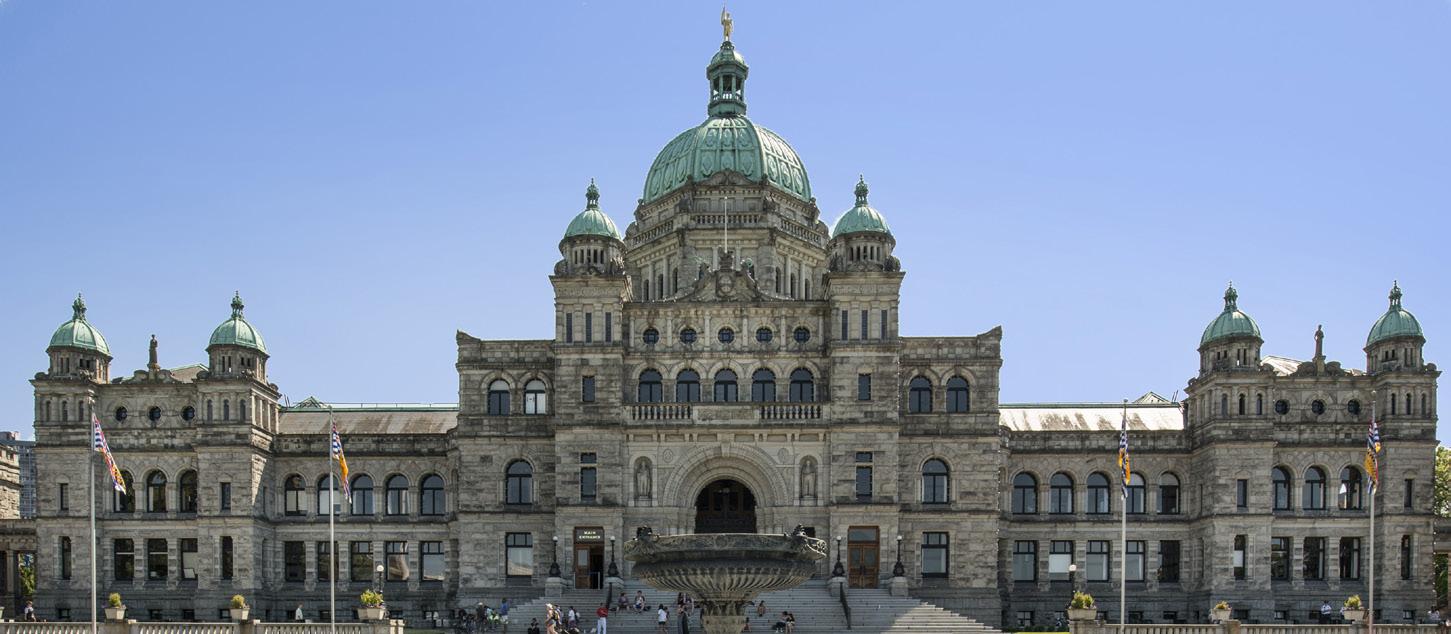
MLA, expressed concern about the Bill’s impact on property ownership rights and suggested that regulation of short-term rentals should be left to local governments.
The Short-Term Rental Accommodations Act passed its Third Reading on 26 October 2023.
Bill 44, Housing Statutes (Residential Development) Amendment Act, 2023
Introduced on 1 November 2023, Bill 44, Housing Statutes (Residential Development) Amendment Act, 2023, requires local governments to update zoning bylaws to allow small-scale, multiunit housing such as townhouses on lots previously zoned for single-family homes. Zoning bylaws, which govern land use within municipalities and regional districts, have traditionally been the purview of local governments. The Bill requires local governments to permit at least one secondary suite on lots zoned for singlefamily homes. In municipalities with more than 5,000 people, the Bill requires local governments to permit three to six housing units on lots previously zoned for single-family homes, based on lot size and proximity to public transit. The Bill also integrates assessment of housing needs into the official community plans developed by local governments. Additionally, when a project aligns with a community’s official community plan, the Bill prohibits local governments from holding a public hearing regarding the rezoning of individual lots.
During the Second Reading debate, Hon. Ravi Kahlon, MLA, Minister of Housing, stated that the proposed changes would be the most significant shifts made to local government land use planning systems in decades. He noted that the Ministry heard from interested parties that British Columbia’s site-by-site rezoning process is one of the biggest barriers to building enough housing. He also indicated that restrictive single-family zoning has limited the development of alternative types of housing units like triplexes, garden suites and townhouses.
Official Opposition Shadow Minister for Housing, Karin Kirkpatrick, MLA, stated that she supports increasing housing supply but expressed concern that the Bill will allow denser housing to be built in areas that do not have the infrastructure capacity to support more people. She also suggested
94 | The Parliamentarian | 2024: Issue One | Over 100 years of publishing
THIRD READING REPORT
BRITISH COLUMBIA
Third Reading Report by Lisa Hill, Legislative Assembly of British Columbia.
development stemming from these zoning changes might displace current residents. The Member recommended that the Government instead focus on reducing regulations and costs to spur development in the housing sector.
She also expressed concern that Bill 44 ends the process through which some local governments negotiate funding from housing developers for community amenities during the rezoning process.
The Third Party House Leader, Adam Olsen, MLA, stated that Bill 44 will increase the wealth of existing property owners and worsen inequality, because lots previously zoned for single family homes will be worth more if they can accommodate multiple units. During the Second Reading, he emphasised that this aspect of the Bill perpetuates individualism and the view of housing as an investment. He also criticised the Bill for perpetuating the land use planning system that dispossessed Indigenous Peoples by subdividing land and distributing it to settlers, and for not having affordability requirements for new developments or increased incentives for non-profit or cooperative housing. During the Committee stage, he further noted challenges with capacity and funding for local governments to upgrade, replace or expand critical infrastructure to support increased density, as well as to provide additional services such as schools and health care.
On 29 November 2023, the Housing Statutes (Residential Development) Amendment Act, 2023 passed its Third Reading.
Bill 47, Housing Statutes (Transit-Oriented Areas) Amendment Act, 2023
Bill 47, Housing Statutes (TransitOriented Areas) Amendment Act, 2023, was introduced on 8 November 2023. The Bill requires local governments to designate areas around rapid transit stations and bus exchanges as transitoriented development areas. In these designated areas, local governments will be required to approve housing developments that meet minimum density levels. The minimum allowable height and density for different areas is based on the proximity to the
transit hub, type of public transit and size of municipality. The legislation also removes minimum parking space requirements for proposed developments in the designated areas.
During the Second Reading debate, Hon. Ravi Kahlon, MLA, Minister of Housing, stated that the Bill supports building more housing and creating livable communities near public transit. He noted that many international and local cities have walkable and accessible communities centred around transit hubs, but this is prevented in some British Columbian communities by restrictive zoning and delays in development approvals.
Official Opposition Shadow Minister for Housing, Karin Kirkpatrick, MLA, stated that her caucus has been calling for transit-oriented communities. She emphasised that concentrating housing options near essential transportation supports accessibility and sustainability; however, she noted concerns from local government officials regarding the impact of the Bill in practical terms. This includes impacts to emergency response vehicle access to taller buildings, infrastructure to support increased density and inter-community transportation options to connect higher-density hubs. While in favour of offering some units without parking spots to reduce costs of individual units, she emphasised the need to ensure adequate and accessible permanent or temporary parking spots.
The Leader of the Third Party, Sonia Furstenau, MLA, indicated that she supports vibrant, resilient communities with easy access to transit and highlighted how they contribute to reducing greenhouse gas emissions. Additionally, she emphasised that British Columbia needs more nonmarket housing; the solution is not just increasing housing supply but providing the right type of housing in the right areas. She also expressed concern about how local governments will be supported to implement these changes as well as about a lack of public transit between different regions.
The Housing Statutes (TransitOriented Areas) Amendment Act, 2023 passed its Third Reading on 30 November 2023.
MEMBER CHANGES AT CANADIAN PARLIAMENT
Parliamentary Report by Gabrielle de Billy Brown, Parliament of Canada.
CHANGES IN THE SENATE OF CANADA
A total of ten new Senators have been appointed to the Senate of Canada since the end of October 2023.
Two new Senators were appointed to represent the Province of Nova Scotia on 31 October 2023. Hon. Réjean Aucoin practised law for more than 30 years, specialising in the linguistic rights of Francophone Canadians and Acadian communities, among other fields of law. He has also worked as a print journalist and a radio producer. On 30 January, he announced that he would sit as a member of the Canadian Senators Group. Hon. Rodger Cuzner was a Member of the House of Commons between 2000 and 2019, representing the constituency of Bras d’Or-Cape Breton and later the constituency of Cape Breton-Canso. As an MP, he occupied such roles as Whip of the Liberal Party of Canada and Chief Opposition Whip. On 15 December 2023, he joined the Progressive Senate Group.
Three new Senators were appointed to represent the Province of New Brunswick on 31 October 2023. Hon. John M. McNair held various roles as a public servant during his career, including General Counsel and Corporate Secretary to Service New Brunswick and Deputy Attorney General and Deputy Minister of Justice for the Province. He has been a member of the Independent Senators Group since 15 January 2024. Hon. Krista Ross worked for over twenty years for the Fredericton Chamber of Commerce where she helped develop business opportunities for the city and the Province at large. She has always been heavily involved in her
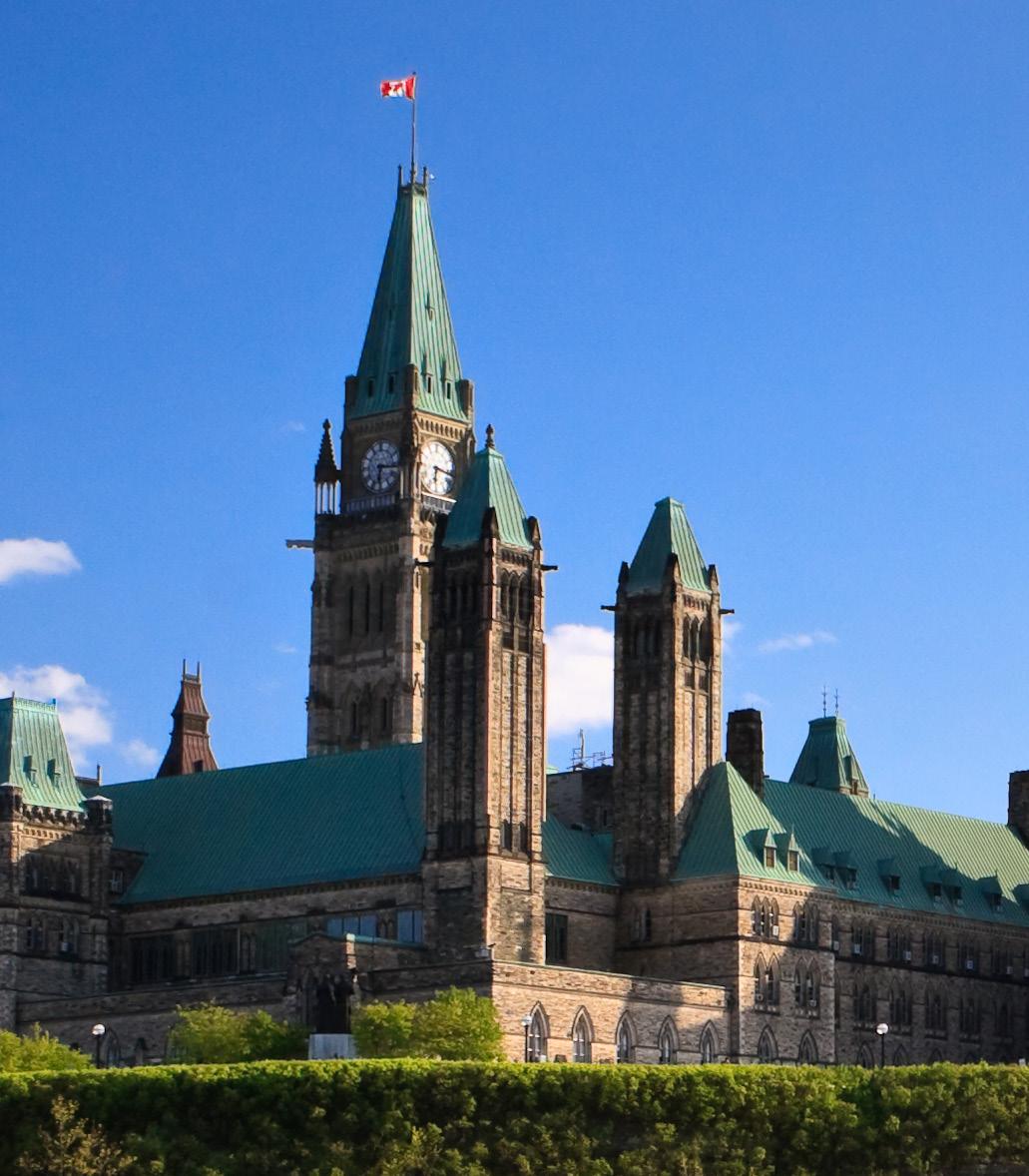
The Parliamentarian | 2024: Issue One | Over 100 years of publishing | 95 PARLIAMENTARY REPORT CANADA
Image credit: Shutterstock_32250118/Parliament of Canada.
CANADA
community, especially in welcoming new Canadians to her region. On 10 January 2024, she joined the Canadian Senators Group. Hon. Joan Kingston worked as a nurse and consultant at the University of New Brunswick prior to joining the Senate. She was also active in Provincial politics, having served as a Member of the New Brunswick Legislative Assembly between 1995 and 1999 and having worked in the Office of the Premier of New Brunswick. She joined the Independent Senators Group on 14 December 2023.
Three new Senators were appointed on 20 December 2023 to represent the Province of Ontario. Hon. Marnie McBean is a motivational speaker and author who has won four Olympic medals in rowing, including three gold. She has been involved with many Canadian Olympic Teams over the years as a mentor and Chef de mission. Hon. Paulette Senior has dedicated her career to the advancement of gender equality, notably as President and Chief Executive Officer of the Canadian Women’s Foundation. Hon. Toni Varone worked in real estate and is a pillar of Toronto’s Italian-Canadian community. Through his philanthropy, he has contributed to building affordable and safe housing for those in need in Toronto. All currently sit as unaffiliated Senators.
On 22 January 2024, Hon. Mary Robinson was appointed to the Senate to represent the Province of Prince Edward Island.
Serving as the Vice-President of the World Farmers’ Organisation until she joined the Senate, she has dedicated her career to the agricultural sector and has held many positions in agricultural organisations at the Provincial, national and international level. She currently sits as an unaffiliated Senator.
On 28 January 2024, Hon. Mohammad Al Zaibak was appointed to the Senate to represent the Province of Ontario. Prior to his appointment, he was involved in multiple public-private partnerships with various levels of government, as well as serving as the Director of the Canadian Chamber of Commerce. He has also previously served as the Chair of the Canada Arab Business Council. He currently sits as an unaffiliated Senator.
Other changes to the Senate of Canada include the change in affiliation of Hon. Paul J. Prosper, who represents the Province of Nova Scotia. Senator Prosper joined the Canadian Senators Group on 8 November
2023, having sat as an unaffiliated Senator since his appointment in July 2023.
On 16 January 2024, Hon. Renée Dupuis retired from the Senate, having represented the senatorial division of the Laurentides, in the Province of Québec, since 2016. At the time of her retirement, she was a member of the Independent Senators Group.
On 6 February 2024, Hon. Frances Lankin was appointed to the role of Government Liaison in the Senate and has therefore left the Independent Senators Group to sit as an unaffiliated Senator. She replaced Hon. Michelle Audette, who occupied this position from August to December 2023 and who has now rejoined the Progressive Senate Group. The Government Liaison in the Senate is responsible for outreach on Government business in the Senate and, similar to parliamentary whips, can exert powers over the timing of votes.
As of 12 February 2024, the standings in the Senate were: Independent Senators Group 40, Canadian Senators Group 17, Conservative Party of Canada 15, Progressive Senate Group 14 and non affiliated 10. Eight seats were vacant.
CHANGES IN THE CANADIAN HOUSE OF COMMONS
Two Members of the House of Commons have stepped down since the last edition of The Parliamentarian was published. Hon. Carolyn Bennett, MP, resigned from the House of Commons on 16 January 2024. She represented the constituency of Toronto-St Paul’s in the Province of Ontario for 26 years, having first been elected in 1997. During her parliamentary career, she held various roles in Cabinet, most recently serving as the Minister of Crown-Indigenous Relations and as the Minister of Mental Health and Addictions. On 17 January, the Prime Minister of Canada, Rt Hon. Justin Trudeau, MP, announced Ms Bennett’s appointment as Canada’s next Ambassador to Denmark.
On 31 January 2024, Hon. David Lametti, MP resigned from the House of Commons after eight years of representing the constituency of LaSalle-Émard-Verdun in the Province of Québec. During his time in office, he served as Minister of Justice and Attorney General of Canada and Parliamentary Secretary to the Minister of Innovation, Science and Economic Development, among other roles.
No by-election has yet been called for these two constituencies. However, a
by-election for the constituency of Durham, in the Province of Ontario, has been called for 4 March 2024. This seat has been vacant since 1 August 2023.
The standings in the House of Commons as of 12 February 2024 were: Liberal Party of Canada 156, Conservative Party of Canada 117, Bloc Québécois 32, New Democratic Party 25, Independent 3 and Green Party of Canada 2. Three seats are currently vacant.
APPOINTMENT OF THE CLERK OF THE HOUSE OF COMMONS
On 18 December 2023, Erik Janse’s appointment as the Clerk of the House of Commons was confirmed by the Members of the Lower Chamber. He had held the position on an interim basis since January 2023. Mr Janse’s career in the House of Commons has spanned over 30 years; among his notable contributions, he oversaw the pivot to hybrid proceedings during the COVID-19 pandemic. He is also a former Secretary to the Conference of Speakers and Presiding Officers of the Commonwealth (CSPOC).
IN MEMORIAM
On 24 October 2023, Hon. Ian Shugart passed away while in office following an illness. He had been appointed to the Senate of Canada on 27 September 2022 to represent the Province of Ontario and sat as an unaffiliated Senator. Prior to joining the Senate, he had had a long career as a public servant, most notably as Clerk of the Privy Council and Secretary to the Cabinet between 2019 and 2021, where he advised the Government of Canada and guided the public service through the COVID-19 pandemic.
On 11 January 2024, Hon. John Edward (Ed) Broadbent, former MP, passed away. He had been a Member of Parliament for 23 years over two different periods: 19681990 for Oshawa (later Oshawa-Whitby) and 2004-2006, representing the riding of Ottawa Centre. Mr Broadbent was the Leader of the New Democratic Party of Canada for 14 years and was widely admired and respected. Following his retirement from politics, he created the Broadbent Institute, a think-tank dedicated to progressive values and research. A state funeral was held in his memory on 28 January 2024, a first for a party leader who was neither a Prime Minister nor an official Opposition Leader.
96 | The Parliamentarian | 2024: Issue One | Over 100 years of publishing PARLIAMENTARY REPORT
UK PARLIAMENT HOLDS FIRST KING’S SPEECH SINCE 1950
STATE OPENING OF PARLIAMENT AND NEW BILLS
The UK Parliament’s current parliamentary session - widely expected to be the last before a general election is held later this year - began on 7 November 2023 with the traditional ceremony of the State Opening of Parliament. The occasion marked the first time that His Majesty King Charles III had participated in a State Opening as monarch, making the speech from the throne the first “King’s Speech” delivered in person since 1950. (The King had represented his late mother Queen Elizabeth II as a Counsellor of State alongside his son the then HRH The Duke of Cambridge to deliver the Queen’s Speech at the opening of the previous session in May 2022. In addition, the last King’s Speech of George VI’s reign in 1951 had been read on the then King’s behalf by the then Lord Chancellor).
The King prefaced details of the UK Government’s legislative programme for the forthcoming session with a tribute to his late mother, saying it was “mindful of the legacy of service and devotion to this country set by my beloved mother, the late Queen, that I deliver this, the first King’s Speech in over 70 years.” Queen Elizabeth II had in turn paid tribute to her father’s “selfless devotion to his duties” in her first Queen’s Speech in November 1952.
The King’s Speech, which by coincidence happened to take place during the UK Parliament’s annual Parliament Week, included reference to 21 Bills. These
ranged from proposals to extend the time individuals convicted of certain serious crimes must serve in prison, expand oil and gas licencing for the North Sea and ban smoking for those born after 2008, to measures to establish a legal framework for self-driving vehicles, create an independent regulator for English football clubs and regulate pedicabs in London. Of the remaining Bills, one, the Rail Reform Bill, would be published in draft form to allow for pre-legislative scrutiny, and two, the Media Bill and Terrorism (Protection of Premises) Bill, had been published in draft form the previous session and would now be introduced as Government Bills. In addition, six of the 21 Bills had been ‘carried over’ from the 2022–23 session to allow for them to continue their passage through both Houses of the UK Parliament, the House of Commons and the House of Lords, before the end of the current Parliament later in 2024.
The start of the new parliamentary session also saw ballots for Private Members’ Bills in both Houses of the UK Parliament. The ballot in the House of Lords on 9 November 2023 saw Baroness Burt of Solihull’s Conversion Therapy Prohibition (Sexual Orientation and Gender Identity) Bill, Lord Northbrook’s Succession to Peerages and Baronetcies Bill and Lord Woodley’s Employment and Trade Union Rights (Dismissal and Re-engagement) Bill chosen as the three top-placed results. The first two of these have already been debated at Second Reading, while the third is scheduled to be considered on 1 March 2024.
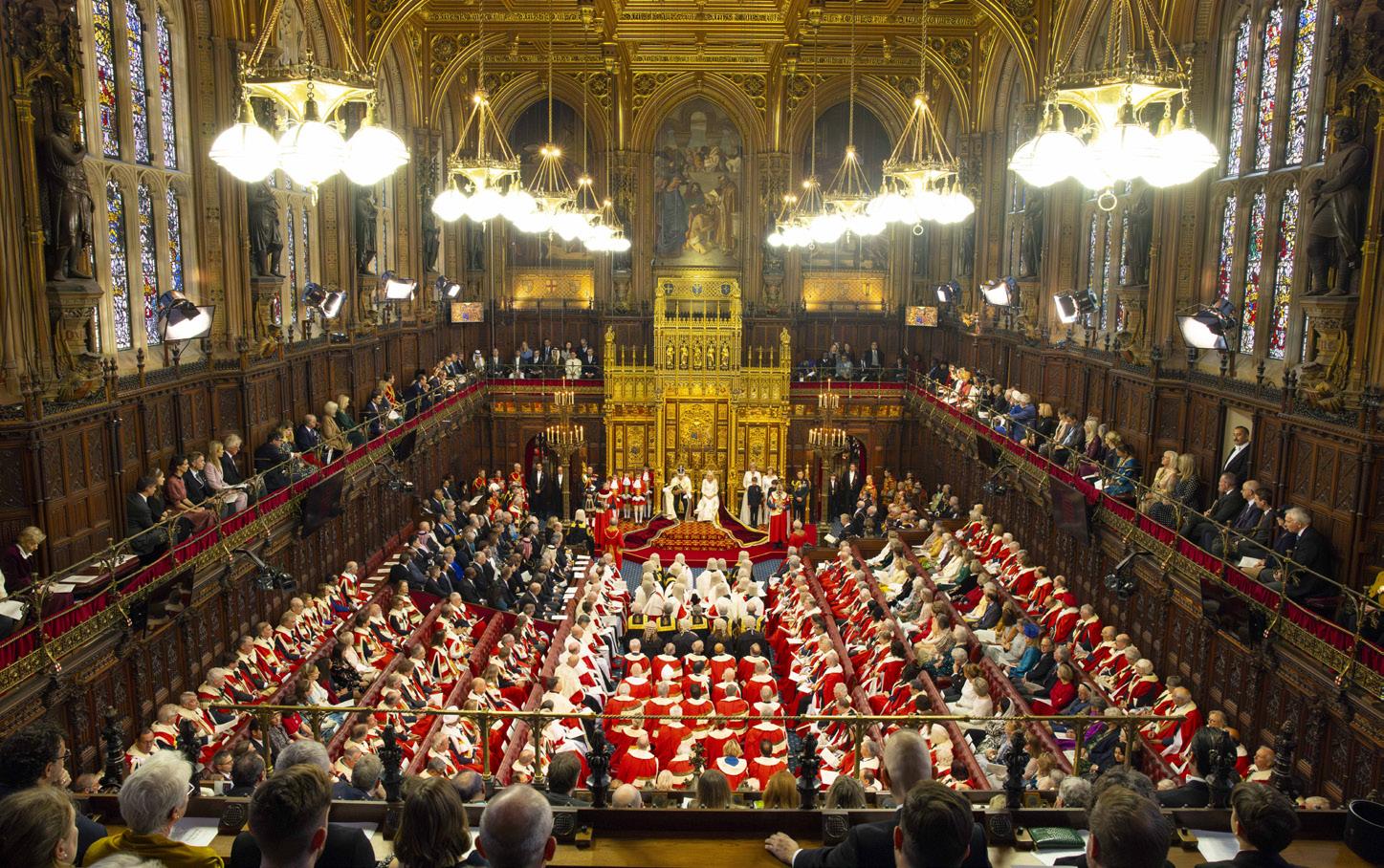
Meanwhile in the House of Commons ballot held on 16 November 2023, Hon. Julie Elliott, MP, Labour MP for Sunderland Central in north-east England, Hon. Chris Elmore, MP, Labour MP for Ogmore in south Wales, and Hon. Laurence Robertson, MP, Conservative MP for Tewkesbury in south-west England were the top-placed MPs to win the right to introduce a Private Member’s Bill on a subject of their choice. They subsequently introduced, respectively, Bills to help building societies access more funding from sources other than customer savings, reform how ‘shared parental leave’ operates in cases where a mother has died, and extend the life expectancy period in which those with a terminal illness can receive terminal illness payments from pension schemes. The Government supports the policy intent behind all three Bills and so all three are expected to become law before the end of the session.
NEW UK FOREIGN SECRETARY
The week after State Opening, the Prime Minister, Rt Hon. Rishi Sunak, MP, carried out a Cabinet reshuffle which saw the surprise return to government of David Cameron, who had served as UK Prime Minister between 2010 and 2016. Mr Sunak appointed Mr Cameron as Foreign Secretary, with departmental responsibility for the Foreign, Commonwealth and Development Office (FCDO). As part of the appointment, the Government announced that that Mr Cameron would receive a life peerage enabling him to sit in the UK Parliament’s second chamber, the House of Lords. By the end of the week, Mr Cameron had become Rt Hon. Lord Cameron of Chipping Norton, including in his peerage title the name of a town in west Oxfordshire located in the constituency that he had represented as an MP in the House of Commons.
In the UK, there is no formal requirement for a Minister to be a Member of either the House of Commons or House of Lords. However, in practice and by strong convention Government Ministers are Members of either House, not least so that they can be directly accountable to Parliament.
Lord Cameron made his maiden speech in the House of Lords on 21 November
The Parliamentarian | 2024: Issue One | Over 100 years of publishing | 97 PARLIAMENTARY REPORT UNITED KINGDOM
Parliamentary Report by Thomas Brown, Parliament of the United Kingdom.
Image credit: State Opening Nov 2023_Credit_HoL_Roger_Harris.
Left: The first State Opening of the UK Parliament of the new reign of King Charles III took place in November 2023.
UNITED KINGDOM
2023, opening the Second Reading debate on a Government Bill aimed at aiding the UK’s accession to the Comprehensive and Progressive Agreement for Trans-Pacific Partnership (CPTPP) trade agreement. Lord Cameron began his remarks by acknowledging that, as both Leader of the Opposition and then as Prime Minister in the House of Commons, he had been responsible for nominating many Members of the House of Lords for their membership of the second chamber. Recalling the words of the last former UK Prime Minister to take a life peerage, Baroness Thatcher, he said: “I am in what Margaret Thatcher described in her maiden speech here as a ‘delicate position […] responsible as Prime Minister for proposing the elevation to this House’ of quite so many of its current Members.” Lord Cameron also cited the precedent of the late Lord Carrington having served as Foreign Secretary from the House of Lords in Prime Minister Margaret Thatcher’s first Cabinet. He added that Rt Hon. Andrew Mitchell, MP, a Minister of State at the FCDO, would deputise for him in the elected chamber.
Lord Cameron’s appointment led to calls from MPs in the House of Commons for improved scrutiny arrangements for Senior Ministers serving from the House of Lords. Indeed, the Speaker of the House of Commons, Rt Hon. Sir Lindsay Hoyle, MP, had on the day of Lord Cameron’s appointment said that “given the gravity of the current international situation, it is especially important that this House is able to scrutinise the work of the FCDO effectively.” He told the House he had commissioned advice on options for “enhanced scrutiny” of the Foreign Secretary while the office was held by a Member of the second chamber. The House of Commons Procedure Committee subsequently recommended in late January 2024 that Cabinet Ministers in the House of Lords should be able to appear at the bar of the House of Commons for departmental question time, statements and urgent questions. However, the Committee said this arrangement should be a temporary measure and should not set a precedent. The UK Government is yet to respond to the proposal.
Meanwhile, the House of Lords Procedure and Privileges Committee endorsed proposals by the Leader of the House, Rt Hon. Lord True, that the time allowed for monthly questions for Lord Cameron as Foreign Secretary be extended, as should the time allowed for backbench questions following oral statements. The House agreed to these changes and Lord Cameron has now answered
questions put to him as Foreign Secretary during three dedicated question time sessions.
SAFETY OF RWANDA (ASYLUM AND IMMIGRATION) BILL
In addition to the Bills announced in the King’s Speech, the UK Government introduced the Safety of Rwanda (Asylum and Immigration) Bill in December 2023 as part of a package of measures to safeguard its ‘Rwanda policy’. The Bill, which invites the UK Parliament to confirm Rwanda as a safe country in UK domestic law, follows a UK Supreme Court judgment that the Government’s existing Rwanda policy was unlawful based on a risk that individuals removed to Rwanda under a UK-Rwanda asylum partnership could be returned to countries where they may face persecution or other inhumane treatment. This is known as ‘refoulement’. The Bill accompanies a new treaty signed by the UK and Rwanda to strengthen safeguards in the earlier asylum partnership agreement.
The House of Commons passed the Bill in mid-January 2024, although its provisions have been politically controversial. The opposition Labour Party has called the Government’s Rwanda policy unaffordable, unworkable and unlawful. In addition, a number of Conservative backbenchers in the House of Commons argued the Bill’s provisions were not robust enough to implement the Government’s policy as intended. Despite these concerns, the Bill passed its Third Reading in the House of Commons on 17 January 2024 by 320 votes to 276.
The next morning, the Prime Minister, Rt Hon. Rishi Sunak, MP, called on the House of Lords to “do the right thing” and pass the bill “as quickly as possible.” However, the House of Lords later agreed a motion, tabled by former Attorney General, Rt Hon. Lord Goldsmith, Chair of the House of Lords International Agreements Committee, to resolve that the Government should not ratify the new UK-Rwanda treaty “until the protections it provides have been fully implemented, since Parliament is being asked to make a judgement, based on the agreement, about whether Rwanda is safe.” The House of Commons Home Affairs Committee had earlier called for time to debate the treaty in the elected chamber. The Government rejected the Committee’s request.
Separately, the UK Parliament’s Joint Committee on Human Rights published a report on 12 February 2024 saying the Bill was “fundamentally incompatible with the UK’s human rights obligations.”
The House of Lords is currently considering the Bill at Committee stage.
TRINIDAD’S PARLIAMENT PAYS TRIBUTE TO FORMER PRIME MINISTER
The Speaker of the Trinidad and Tobago House of Representatives, Hon. Bridgid Annisette-George led parliamentary tributes to the former Prime Minister and Opposition Leader, Hon. Basdeo Panday who died at the age of 90 on 1 January 2024.
Basdeo Panday was first elected to the Parliament of Trinidad and Tobago in 1972 and served until 2010 in several different capacities including Prime Minister, Minister of National Security, Minister of External Affairs and International Trade, Leader of the Opposition, Member of Parliament for Couva North and Opposition Senator. He was the first Prime Minister of East Indian descent in Trinidad and Tobago (1995 to 2001) and the fifth person to hold the office since Independence in 1962.
Basdeo Panday was born on 26 May 1933 and worked as a primary school teacher and also as a civil servant in the Magistrates Court. He later studied law in the United Kingdom in 1962 where was a member of Lincoln’s Inn and was called to the English Bar. He first stood for election in Trinidad in 1965 but he lost his deposit. However, he entered Parliament as an Opposition Senator in 1972 and he later successfully won a seat in 1966 to represent the Couva North constituency. Panday later formed the United National Congress (UNC) in 1988 and following a snap General Election, he became Prime Minister. He was also an established actor and played leading roles in several films.
The Speaker of the Trinidad and Tobago House of Representatives said that his contributions are well-known throughout the country and throughout the wider Caribbean diaspora. She added that when
98 | The Parliamentarian | 2024: Issue One | Over 100 years of publishing PARLIAMENTARY REPORT
LEGISLATIVE NEWS FROM TRINIDAD AND TOBAGO PARLIAMENT
the alias ‘Silver Fox’ was mentioned, it was well-known of whom you were speaking in political settings.
The President of the Republic of Trinidad and Tobago, Her Excellency Christine Kangaloo said she was saddened by his passing and that Basdeo Pandey was ‘a giant of a man who led this country with passion and compassion’.
The Prime Minister of Trinidad and Tobago, Hon. Dr Keith Rowley said that Panday had made an indelible mark on the nation, having served it for so long and in so many different ways with such resolve and panache. The Opposition Leader, Hon. Kamla PersadBissessar, who later succeeded him as the Leader of the UNC, noted that Panday was a great leader who helped the oppressed and the poor.
Hon. Ravi Ratiram, MP, the current Member for Couva North constituency, said that Basdeo Panday’s early involvement in the trade union movement and his political career, which spanned several decades, was marked by his unwavering advocacy for social justice, equal opportunities and economic development, and showcased his passion for championing the rights of workers and the working class.
Tributes continued in the Parliament of Trinidad and Tobago and a state funeral was held under Hindu rites.
PROPERTY TAX TO BE IMPLEMENTED IN TRINIDAD AND TOBAGO
The Minister of Finance, Hon. Colm Imbert, has told the Parliament of Trinidad and Tobago that the Government intends to collect property taxes in 2024. The Minister said that those who have not yet received valuation notices for residential houses will soon receive these via the post. He recalled in his statement to Parliament that when he delivered the 2024 Budget in October 2023, he gave notice that the collection of property taxes will take effect in the ensuing financial year.
The Minister pointed out that the Valuation Division of the Ministry of Finance had already printed and dispatched some 33,787 notices to residents through the post and that a total of 200,000 notices are earmarked to be issued. Previous property taxes in 2023 had been waived by the Government as well as in previous years.

The Minister also announced that the National Insurance Board (NIB) has reported increases in revenue, with the number of beneficiaries increasing up to the end of the financial year (30 June). The number of contributors to the NIB during 2023 was recorded at 491,726, which was an increase of 8% on the previous year (455,448 in 2022) while the beneficiaries increased by 4.1%. This represents an increase of over 36,000 contributors, with the 2023 contributions reaching TT$4.807 billion.
GOVERNMENT-BUILT HOSPITALS LABELLED AS ‘WHITE ELEPHANTS’ BY MP
Opposition MP for Caroni East, Dr Rishad Seecheran has called hospitals built by the Trinidad Government ‘white elephants’ and also called for the Government to hire more doctors. The Member said that huge sums of money were spent on hospital structures, but that many hospitals lacked adequate staff, IT systems, medicines and drugs, equipment and facilities to function properly. It was also highlighted that nurses are paid low wages and many were only hired on a contract basis, with large numbers of nurses leaving the healthcare system due to poor salaries and working conditions.
MP CALLS FOR A REVIEW OF THE EXISTING FREE DRUG PLAN
Opposition MP for Fyzabad, Dr Lackram Bodoe has called on the government to review the existing free drug plan, the Chronic Disease Assistance Plan (CDAP), as the existing guidance is outdated. The Member, who is a medical doctor, said that some drugs have to be upgraded and more modern drugs should be added to the list of Government-approved medication. Patients suffering from noncommunicable diseases such diabetes and hypertension should be treated with modern and updated drugs to reduce morbidity. Hospitals are also in need of new equipment and modern facilities to be able to deliver health care.
FINANCE MINISTER REPORTS SUSPICIOUS FINANCIAL REPORTS
Speaking in the House of Representatives, the Minister of Finance, Hon. Colm Imbert reports that the Financial Intelligence Unit (FIU) has received 950 suspicious transaction reports for the financial year 2023. The Minister pointed out that the monetary value amounted to TT$5,954,472,732.00 of which 784 were completed transactions. It also represented a 12% decrease compared to the previous reporting period in 2022.
The Parliamentarian | 2024: Issue One | Over 100 years of publishing | 99 PARLIAMENTARY REPORT TRINIDAD AND TOBAGO
Parliamentary Report by Paras Ramoutar, Freelance Journalist based at the Parliament of Trinidad and Tobago.
Image credit: Parliament of Trinidad and Tobago.
Above: The former Prime Minister of Trinidad and Tobago, Hon. Basdeo Panday (centre) takes part in a parliamentary debate a few years ago.
2023 GENERAL ELECTION AND OPENING OF THE 54th PARLIAMENT OF NEW ZEALAND
New Zealanders cast their votes on 14 October 2023 to elect Members of the 54th Parliament of New Zealand. Voter turnout was down compared to the previous election, at 78.2%, compared to 82.2% in 2020. The number of special votes (cast by people who were away from their electorate on election day, for example) increased to 567,000, compared to 504,621 special votes in 2020.
The centre-right National Party, led by Rt Hon. Christopher Luxon, gained the highest number of votes, winning 38.06% of the party vote, or 43 of the 72 electorate seats. The previous governing party, the Labour Party, gained 26.91% of the vote, down from 50% in 2020. The Green Party gained 15 seats in total, its largest ever result. Te Pāti Māori (the Māori Party) won six out of the seven Māori electorate seats, its largest ever result. Hana-Rawhiti Maipi-Clarke, Te Pāti Māori’s candidate for Hauraki-Waikato, aged 21, became New Zealand’s youngest Member of Parliament since 1853.
New Zealand’s mixed-member proportional system means that it is rare for one party to have enough votes to govern alone, so the National Party entered into coalition talks with the ACT Party (who gained 8.64% of the vote) and New Zealand First (6.08% of the vote).
After weeks of negotiations, the parties announced a coalition agreement had been reached, with New Zealand First Leader, Rt Hon. Winston Peters, to be the
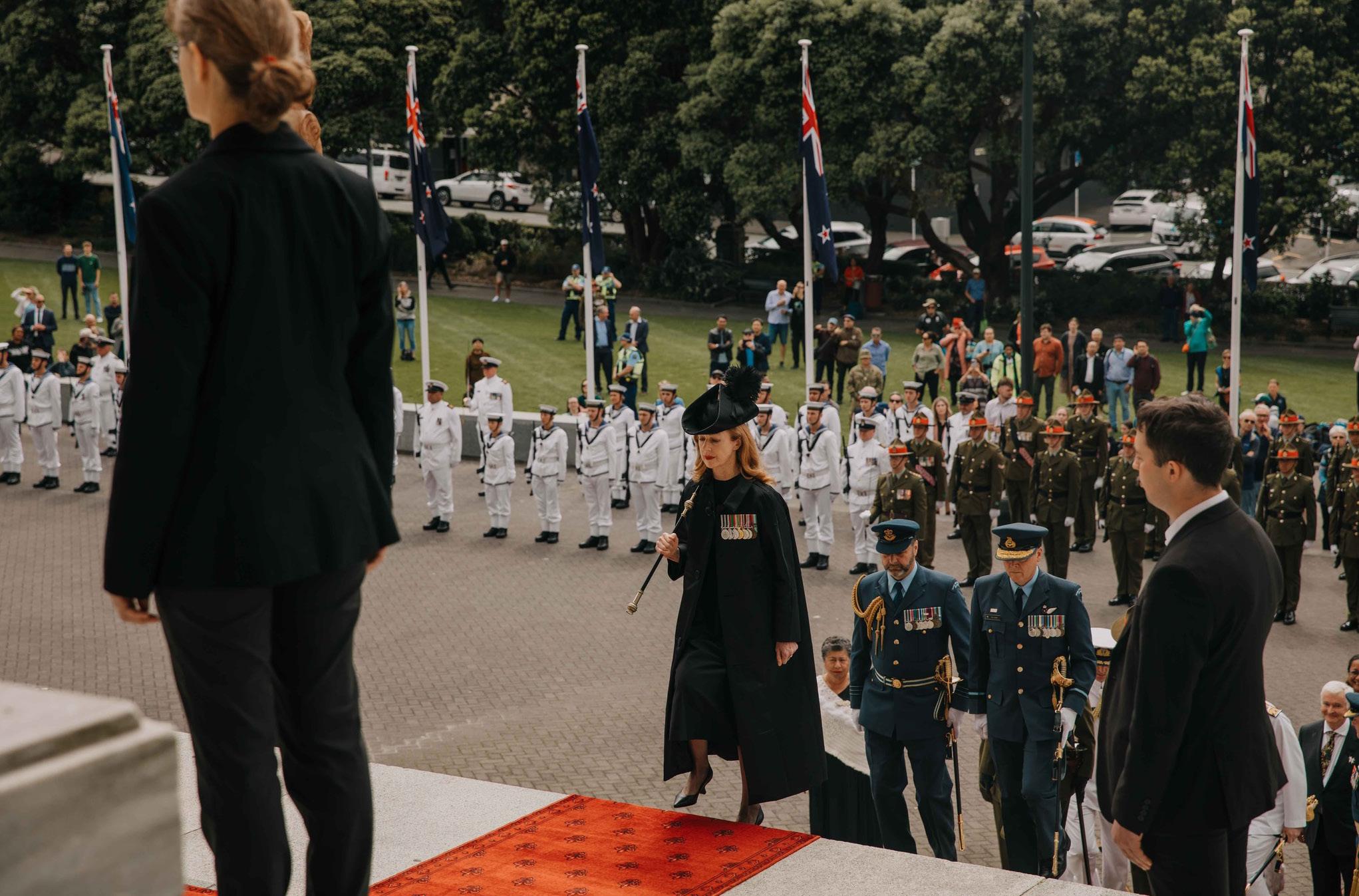
Deputy Prime Minister for the first half of the three-year Parliamentary term and the ACT Leader, Hon. David Seymour, to be the Deputy Prime Minister for the second half of the term. The coalition agreement signalled the incoming Government’s plan to “manage a strong economy that will ease the cost of living and deliver tax relief, restore law and order, deliver better public services and strengthen democracy.”
New Zealand’s 54th Parliament met for the first time on 5 December 2023 for Members
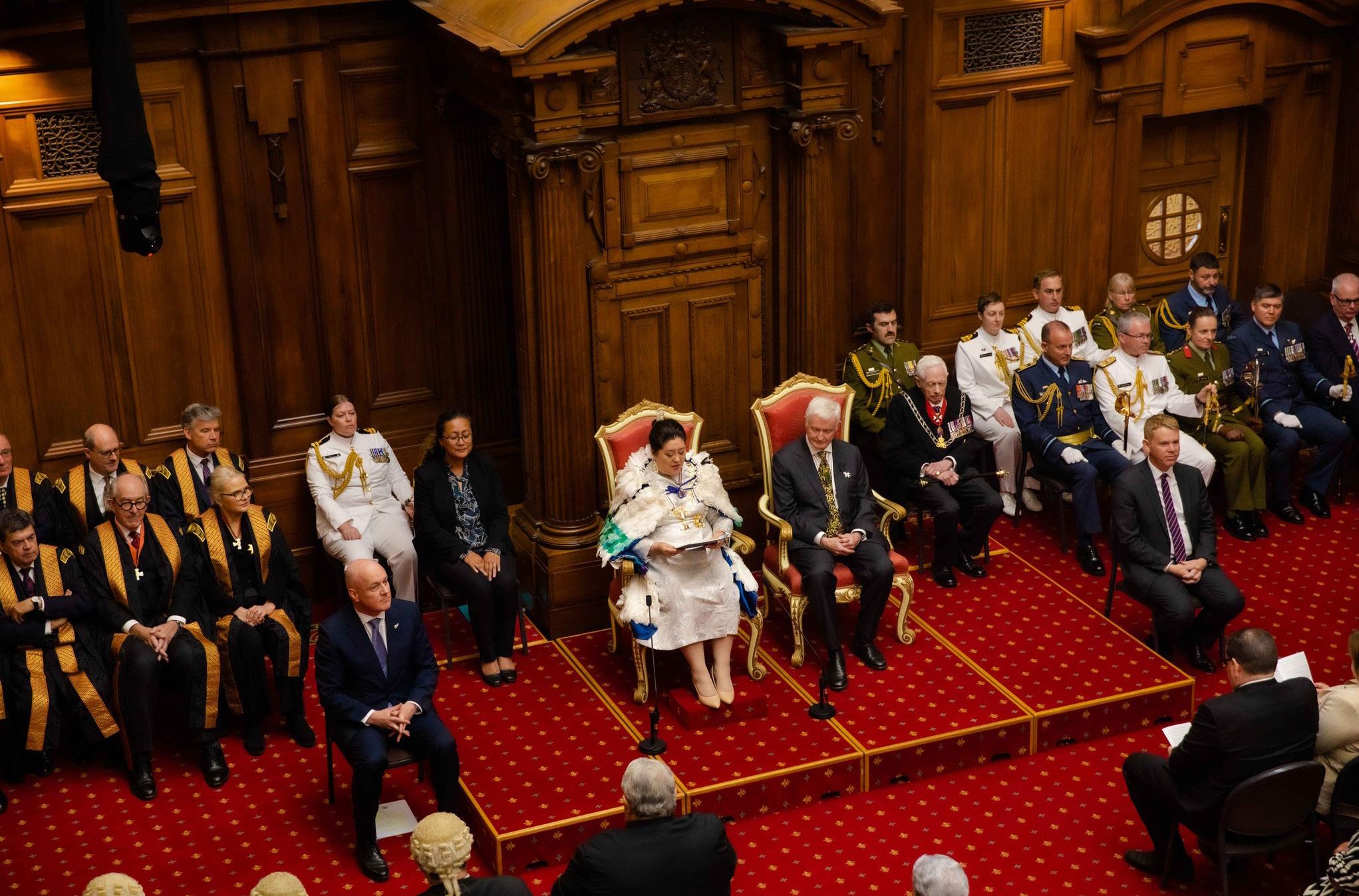
to be sworn in and elect the Speaker of the House. Rt Hon. Gerry Brownlee, MP (National Party), who is also the longestserving Member and so Father of the House, was elected as the Speaker. Members swore their oaths or made their affirmations in English or Māori, and several repeated the words in second languages including Samoan, Tongan, Cantonese, Korean, Filipino, Vietnamese, Arabic and Danish. Te Pāti Māori Members wore traditional attire, performed haka and waiata (songs), and before giving their oath or affirmation, they promised to bear true allegiance to mokopuna (future generations) according to tikanga Māori (Māori protocol), and to perform their functions and duties and exercise their powers in accordance with Te Tiriti o Waitangi. While Members must be sworn in using the words prescribed by law, the Clerk of the House, in administering the procedure, does not preside over the conduct of Members as they approach the Table.
The Governor-General of New Zealand, Her Excellency Dame Cindy Kiro, gave
100 | The Parliamentarian | 2024: Issue One | Over 100 years of publishing PARLIAMENTARY REPORT NEW ZEALAND
Image credit: Parliament of New Zealand.
Parliamentary Report by Lizzie Hendy, Parliament of New Zealand.
Image credit: Parliament of New Zealand.
Above: The Usher of the Black Rod of New Zealand, Sandra McKie serves as the GovernorGeneral’s messenger for ceremonial communications with the New Zealand House of Repressentatives. She leads the procession into Parliament House ahead of the Opening of the 54th Parliament of New Zealand.
Left: The Governor-General of New Zealand, Her Excellency Dame Cindy Kiro, gave the Speech from the Throne at the State Opening of the 54th Parliament of New Zealand in the Legislative Council Chamber,
the Speech from the Throne at the State Opening in the Legislative Council Chamber, in which she outlined the New Zealand Government’s intentions for the 54th Parliament, including reducing core Crown expenditure in order to deliver tax relief, training 500 more police officers, providing police with additional powers to tackle gangs, restoring a ‘three strikes’ rule for serious repeat criminals, disestablishing the Māori Health Authority, repealing the clean car discount, reinstating 90-day trials for new employees, repealing fair pay agreement legislation, repealing the Natural and Built Environment and Spatial Planning Acts and reforming the Resource Management Act. The House appointed Barbara Kuriger, MP (National Party) as Deputy Speaker, and Maureen Pugh, MP (National Party), Greg O’Connor, MP (Labour Party), and Teanau Tuiono, MP (Green Party) as Assistant Speakers. Mr Tuiono is the first Presiding Officer to be appointed from a party other than the two largest parties. Members delivered the Address in Reply debate and new Members gave their maiden speeches.
The Leader of the Opposition, Rt Hon. Chris Hipkins, MP (Labour Party), criticised the Speech from the Throne as “a plan to take New Zealand backwards - repeated use of words like ‘stop’, ‘repeal’, ‘replace’, ‘reverse’ and ‘disestablish’ - a plan to go backwards, not a plan to take New Zealand forward.” The Prime Minister of New Zealand, Rt Hon. Christopher Luxon, MP (National Party) said, “it is great to be back… with a bigger team, more talent, fresh ideas, committed coalition partners and a big programme to deliver, and a big mandate from voters to get New Zealand back on track.”
Fair Pay Agreements Act Repeal Bill
The Fair Pay Agreements Act Repeal Bill passed through all stages in the New Zealand Parliament under urgency on 12 December 2023. The Bill repealed the Fair Pay Agreements Act 2022, which established a framework for collective bargaining for fair pay agreements across industries or occupations rather than between unions and particular employers. The Act enabled sector-wide minimum standards to be set relating to worker issues such as wages, leave and health and safety in the workplace. The Government had committed to repealing the fair pay legislation in their first hundred days in office as part of the coalition agreement between the National Party and the ACT Party.
The purpose of the repeal was to reduce regulations and costs for businesses and allow greater flexibility in employment arrangements.
The Minister for Workplace Relations and Safety, Hon. Brooke van Velden, MP (ACT) commented that the Act “forced a minority of union workers’ views on all affected workers and businesses” and “risk[ed] harming New Zealand’s already dismal productivity growth.”
Hon. Mark Patterson, MP (NZ First Party) said the agreements would “stifle flexibility in our labour market” and “decrease the appetite for employers to take a risk and employ people.”
The New Zealand Government discussed the pressures that regulations placed on small businesses and businesses in rural regions. Mike Butterick, MP (National) noted that these businesses “don’t have the same capacity to absorb blanket, top-down costs that large businesses do and they’re suffering right now from the cost of living crisis.” The Minister stated: “The best and most sustainable way to increase the wages of workers and to lower prices for consumers is to improve productivity and reduce the regulations holding businesses back.” Between 200,000 and 300,000 workers were expected to have been covered by fair pay agreements. The Minister noted that no fair pay agreements had yet been finalised and those under way were in the early stages of bargaining.
Opposition Parties discussed the ramifications of the repeal on workers like bus drivers, cleaners, early childhood education teachers and those in the hospitality industry, particularly in the current cost of living crisis. They noted that people with disabilities, Māori, Pasifika, women and young people are over-represented within these industries and would be most
affected by low wages and poor working conditions. Tākuta Ferris, MP (Te Pāti Māori) said, “Low wages impoverish whānau (families) and cause extensive inter-generational harm and trauma. Māori, Pasifika, young people and whānau hauā (Māori with disabilities) are often over-represented in jobs where low pay, job security, health and safety, and upskilling are significant issues.”
The Opposition also disagreed that fair pay agreements would impede productivity. Ricardo Menéndez March, MP (Green) noted: “We do have small businesses who do their work to guarantee good wages and, actually, the research shows that those working environments do lead to higher productivity.”
Camilla Belich, MP (Labour) argued that the agreements “allow employers and workers to come together, whether they’re in a union or not, and discuss what works best for the industry - what they consider to be fair terms and conditions that will allow them to have secure work, secure pay and be able to see a career moving forward. … It is something that actually allows New Zealand to move forward and allows us to become a high-wage, productive economy.”
During the Committee of the Whole House, amendments were put forward seeking a review of the legislation to assess its impact, check New Zealand’s international obligations under existing free-trade agreements, allow the negotiations that were already under way to be completed and exempt particular industries from the repeal. The amendments were not agreed to. The Fair Pay Agreements Act Repeal Bill was passed with 67 in favour (National, ACT Party and New Zealand First) and 54 against (Labour, the Green Party and Te Pāti Māori) and received Royal Assent on 19 December 2023.
Resource Management (Natural and Built Environment and Spatial Planning Repeal and Interim Fasttrack Consenting) Bill
The Resource Management (Natural and Built Environment and Spatial Planning Repeal and Interim Fast-Track Consenting) Bill was read for a third time on 19 December 2023. It delivers on the New Zealand Government’s policy commitment to repeal the previous Government’s Natural and Built Environment Act and the Spatial Planning Act. It reinstates the previous Resource Management Act 1991 (the RMA) as the primary legislation for New Zealand’s resource management system, ahead
The Parliamentarian | 2024: Issue One | Over 100 years of publishing | 101 THIRD READING REPORT NEW ZEALAND
Third Reading Report by Lizzie Hendy, Parliament of New Zealand.
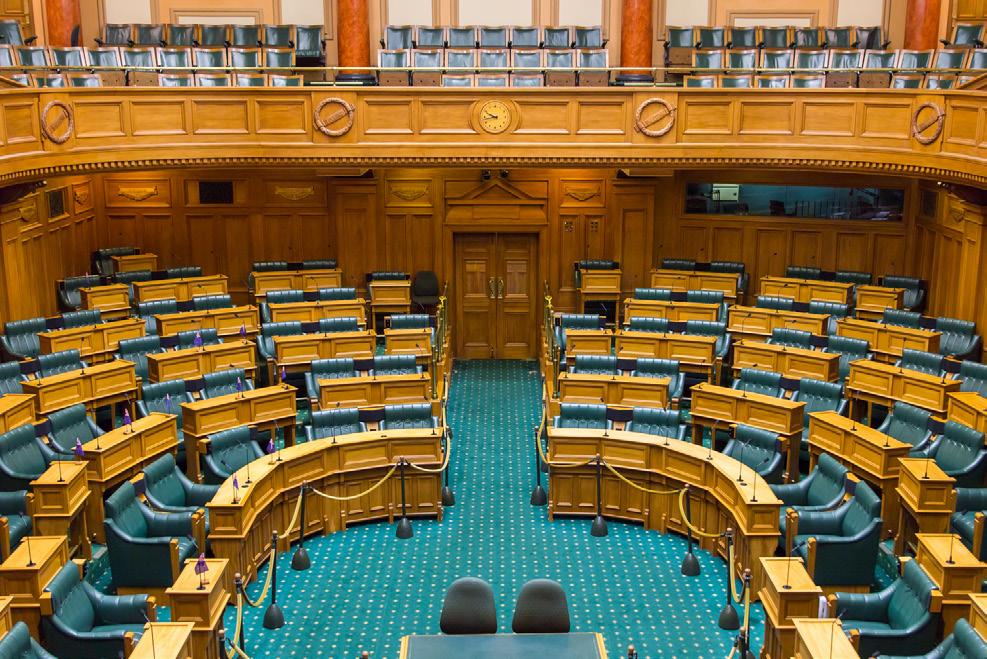
of proposed future resource management reform.
The Minister responsible for RMA Reform, Hon. Chris Bishop, MP (National Party), indicated the Government’s intention to reform the RMA in the future: “The Government remains committed to sensible changes to our planning regime that make it easier to get houses built, get aquaculture under way and get infrastructure built whilst protecting the environment.” He talked about the need for the repeal Bill: “The replacement regime that we are repealing today…was a wellintentioned but unfortunate and misguided attempt at fixing our planning regime, and many people consider it would not have worked.” He went on to talk about the need to pass the Bill under urgency, saying “I’m not a fan of urgency in a general sense, but I think it is justified in this case because there’s a 10-year transition window, and if we hadn’t got it off the statute book by Christmas, people would spend… time and money on a regime that the Government made clear wasn’t going to exist at some point in the future.”
Hon. Rachel Brooking, MP (Labour), although opposed to the repeal Bill, agreed with the Minister that “planning is always difficult. People are going to have different views.” She said that “there’s a debate to be had. Those debates should be higher up the food chain, not at the consenting level. That is what these two Acts that have been repealed today did.” Hon. Dr Megan Woods, MP (Labour) said that: “The legislation that is being repealed is legislation that is about getting that balance between protecting our environment and making sure that we can enable activity in our economy that needs to be enabled. This was not rushed legislation; this was
legislation that went through scrutiny after scrutiny after scrutiny.”
Debbie NgarewaPacker, MP (Te Pāti Māori) also criticised the repeal Bill, saying: “We did not support the RMA changes with Labour, because they weren’t enough.
When we look at what it is you’re proposing, I have never seen anything so backward in my life.” She stated that the Bill contained “some of the most offensive exclusions and amendments that we’ve ever seen.” She criticised the fact that ‘Te Tiriti’ had been removed from the Bill and replaced with ‘the Treaty of Waitangi’, and that ‘hapū’ (subtribes) had been removed from the Bill.
Hon. Julie Anne Genter, MP (Green) also criticised the repeal Bill, saying that it had been “rushed through urgency to repeal six years of work, where thousands of people submitted, where we spent a quarter of a billion dollars getting the advice and doing the work to come up with a new system.”
She noted that “the one thing being kept is fast-tracked consenting. Now, that’s not really a surprise…they are here to represent the existing power structure of people who currently have all the money and power.”
The Parliamentary Under-Secretary for RMA Reform, Hon. Simon Court, MP (ACT), supported the repeal Bill and the inclusion of fast-tracked consenting as an opportunity “for businesses and organisations that want to get on, get a consent and start building things that produce value. Because unless we do that in New Zealand, we will continue the economic and social decline that the previous Labour Government perpetuated.” Hon. Mark Patterson, MP (New Zealand First) also supported the repeal Bill, saying the previous Labour Government had “started with something as bad as the Resource Management Act and made it worse... we are going to dig our way out of it with some decisive legislation which will get this country back moving again in the right direction.”
The Bill was passed with 68 votes in favour and 55 against, and received Royal Assent on 22 December 2023.
OBITUARY: FORMER CPA CHAIRPERSON, SIR COLIN SHEPHERD (1938-2024)

The CPA International Headquarters has learnt of the sad news of the death of Sir Colin Shepherd. A former UK Parliamentarian, he was elected as a Member of the UK House of Commons in October 1974 as the Conservative Party candidate for Hereford on the EnglishWelsh border. He held the seat for 23 years and was a champion for local rural issues. He was a life Patron of the Hereford and South Herefordshire Conservative Association and remained involved in local politics throughout his life. He also came from a politically active family and his mother, Dame Margaret Shepherd was Chair of the National Conservative Women’s Organisation.
Sir Colin Shepherd became the Chairperson of the Commonwealth Parliamentary Association (CPA) International Executive Committee from 1993 to 1996. He had previously held the position of CPA Treasurer before being elected as the CPA Chairperson at the 16th CPA General Assembly at the 39th Commonwealth Parliamentary Conference in Cyprus. During his time as CPA Chairperson, he travelled extensively in the Commonwealth visiting Canada, Tanzania, Kenya, India, Botswana, Northern Ireland and Pakistan as well as attending a special Inter-Parliamentary Council meeting at the United Nations in New York in one year alone. He also oversaw the CPA’s re-engagement with the Parliament of South Africa before, during and after the historic 1994 elections and the country’s return to the Commonwealth, and he led a number of
102 | The Parliamentarian | 2024: Issue One | Over 100 years of publishing
THIRD READING REPORT NEW ZEALAND
Image credit: Parliament of New Zealand.
CPA missions to South Africa as part of this work.
Rt Hon. Lord Alan Haselhurst, who was also CPA Chairperson (2011-2014) and a UK MP, said: “In his long involvement in the Commonwealth Parliamentary Association at both national and international levels, Sir Colin Shepherd was a highly respected colleague. It was not long after his first election to the UK Parliament that he became a major figure in the CPA and remained so for several years. Those who came after him were glad to have the opportunity to consult their illustrious predecessor and he helped them to calm any storm that might be brewing. His experience was a great help, and, on many occasions, he was a source of inspiration. I and others who followed in his path will mourn his passing. And so will the CPA.”
In the UK Parliament, Sir Colin Shepherd was a Member of the Finance and Services Committee (1992-1997) and the House of Commons Liaison Committee (1993-1997). He held his UK Parliament seat of Hereford until May 1997 when he was defeated by Paul Keetch (Liberal Democrat) who
held the seat until 2010. Boundary changes followed and the seat returned to the Conservative Party as the constituency of Hereford and South Herefordshire.
The current Member, Rt Hon. Jesse Norman, MP said that Sir Colin Shepherd would be remembered as a great public servant. “He was the most delightful man, incredibly gentle and thoughtful and public-spirited. I enormously valued our friendship, I felt honoured to have known him.”
Sir Colin Shepherd was given the honour of a knighthood in the 1996 New Year Honours. He lived with his family at the historic 17th century Ganarew Manor, a Grade II listed building in Herefordshire. Sir Colin Shepherd is survived by three sons and his wife, Lady Lou Shepherd.
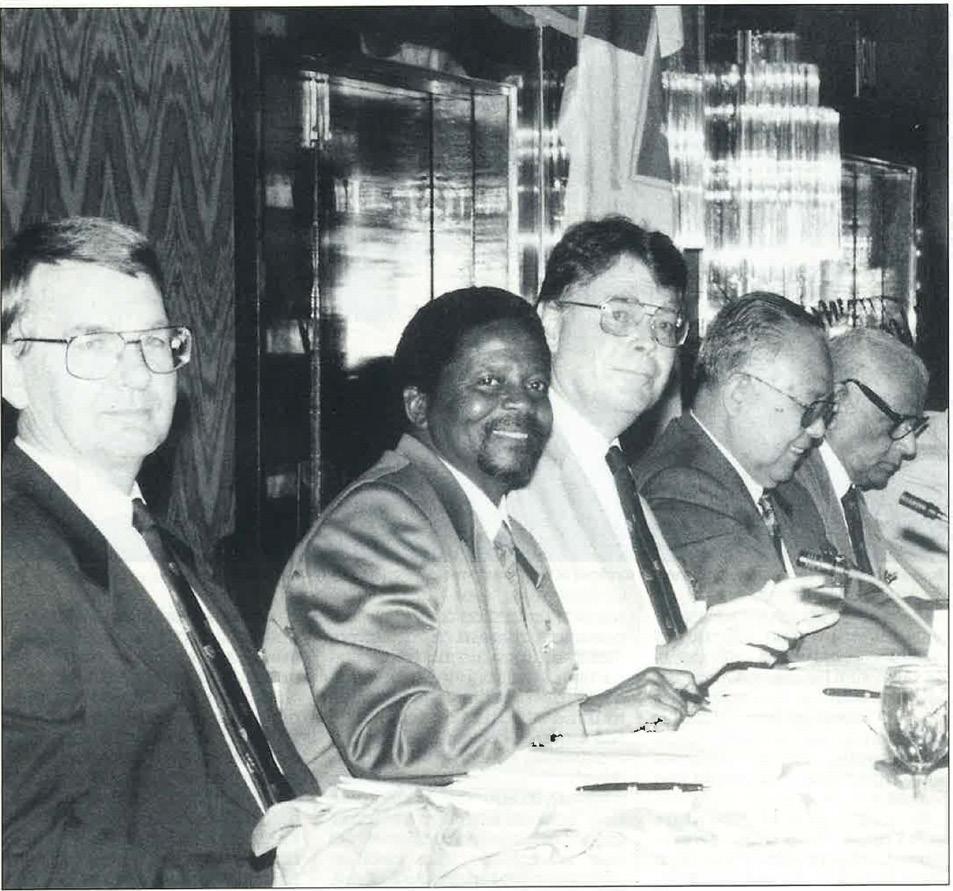
Above: A photography from The Parliamentarian in January 1996 showing the Officers of the CPA including
Senator Pierre Horsfall of Jersey
Treasurer); Hon. Ephraim Magagula of Eswatini
Vice-Chairperson); Hon. Colin Shepherd of the United Kingdom (CPA Chairperson); Hon. Y.B Sri Dato’ Mohamed Zahir Haji Ismail of Malaysia (CPA Vice-President); and Hon. K.B. Ratnayake of Sri Lanka (CPA President).
Obituary written by the Editor of The Parliamentarian
Political philosopher proclaims a new pathway for economic development in the Caribbean in the aftermath of COVID-19
Development and Diplomacy: Resetting Caribbean Policy Analysis in the Aftermath of the COVID-19 Pandemic - Edited by Winston Dookeran and M. Raymond Izarali, Published by The University of the West Indies Press, October 2023.
Book review by Paras Ramoutar, Journalist and Parliamentary Correspondent in Trinidad and Tobago. All views are personal opinions.
‘Development and Diplomacy: Resetting Caribbean Policy Analysis in the Aftermath of the COVID-19 Pandemic’ edited by Winston Dookeran (former Government Minister and a Governor at Trinidad’s Central Bank, among many other hats) and Dr M. Raymond Izarali (Philosopher and Associate Professor at Wilfrid Laurier University, Canada), stirs the imagination of not only Caribbean politicians and thinkers, but also the entire Caribbean and Latin American social, political and economic landscape. His testimony stands out as a testament for the future – analytical in style and containing documentary policy responses. The publication aims to target all public policy makers with a sense of direction, not only because of the COVID-19 pandemic and its aftermath, but also to provide a
number of long-term responses aimed at rekindling economies in the Caribbean.
At the discussion held to mark the book’s launch at the Central Bank auditorium, Dr Indera Sagewan, Adjunct Lecturer at the Institute of International Relations, pointed out that COVID-19 had the potential to cause generational catastrophe in the conduct of national activities and that people are still adjusting to the ‘new normal’. Society is still grappling with the Fourth Industrial Revolution, and now the Fifth Industrial Revolution will cause high unemployment, health and climate issues.
Professor Zhangviatong of Fudan University (China) stressed how developmentalism is at the core of the theory of economic diplomacy and in the practice of global politics, while Dr Vaalmliki
Visit
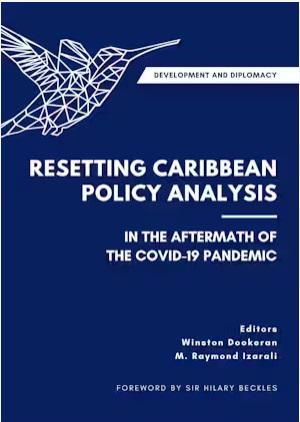
Arjoon, Senior Lecturer at the University of the West Indies, spoke on the complexity of making diversification happen.
Professor Lloyd Griffith from the Centre for Strategic and International Studies outlined that this book is about ‘the logic of economics with the logic of politics’. He surmised that this book outlines the missing gaps between the theory and the practice in the processes of development and the conduct of diplomacy.
This book gives a serious analytical perspective to the nature of our economic structures. It is a dynamic portrait for the future, and we owe it to ourselves to join in its theories before we are left out of the new world paradigm.
THE PARLIAMENTARIAN OBITUARY | BOOK REVIEW
The Parliamentarian | 2024: Issue One | Over 100 years of publishing | 103
order
https://www.uwipress.com/9789766409357/development-and-diplomacy/ to
a copy.
(from left to right):
(CPA
(CPA

Commonwealth Parliamentary Association Office Holders
Office Holders of the Commonwealth Parliamentary Association
CPA Executive Committee
Dates of membership below. Some Members are completing terms started by other Members. *TermdatesextendedasnoCPAGeneralAssemblyheldin2018,2020and2021.
CPA Officers
CPA PRESIDENT: (66th CPC to 67th CPC - 2023-2024): Hon. Ben Franklin, MLC, President of the Legislative Council (New South Wales)
CPA VICE-PRESIDENT: (66th CPC to 67th CPC - 2023-2024): Vacant
CHAIRPERSON OF THE CPA EXECUTIVE COMMITTEE: (65th CPC to 68th CPC - 2022-2025): Hon. Ian Liddell-Grainger, MP (United Kingdom)
CPA VICE-CHAIRPERSON: (66th CPC to 67th CPC - 2023-2024): Hon. Arthur Holder, MHA, Speaker of Barbados
CPA TREASURER: (65th CPC to 68th CPC - 2022-2025): Hon. Shri Anurag Sharma, MP (Lok Sabha, India Union)
COMMONWEALTH WOMEN
PARLIAMENTARIANS (CWP)
CHAIRPERSON: (65th CPC to 68th CPC - 2022-2025): Hon. Dr Zainab Gimba, MP (Nigeria)
CPA SMALL BRANCHES
CHAIRPERSON: (65th CPC to 68th CPC - 2022-2025): Joy Burch, MLA, Speaker of the Legislative Assembly of Australian Capital Territory
COMMONWEALTH
PARLIAMENTARIANS
WITH DISABILITIES (CPwD)
CHAIRPERSON: (65th CPC to 68th CPC - 2022-2025): Hon. Laura Kanushu Opori, MP (Uganda)
The CPA Coordinating Committee comprises the CPA Chairperson, Vice-Chairperson, Treasurer, CPA Small Branches Chairperson and the Chairpersons of the Commonwealth Women Parliamentarians (CWP) and the Commonwealth Parliamentarians with Disabilities (CPwD) networks.
Regional Representatives
CPA AFRICA REGION
Hon. Osei Kyei Mensah Bonsu, MP, Ghana (64th CPC to 67th CPC2019-2024)*
Rt Hon. Dr Abass Bundu, MP, Speaker, Sierra Leone (64th CPC to 67th CPC - 2019-2024)*
Hon. Solomon Lechesa Tsenoli, MP, Deputy Speaker of the National Assembly, South Africa (65th CPC to 68th CPC - 2022-2025)
Hon. Raymond Nkhata, MP, Malawi (65th CPC to 68th CPC - 2022-2025)
Vacant, Mauritius (66th CPC to 69th CPC - 2023-2026)
Vacant, Eswatini (66th CPC to 69th CPC - 2023-2026)
CPA ASIA REGION
Hon. Mahinda Yapa Abeywardana, MP, Speaker, Sri Lanka (64th CPC to 67th CPC - 2019-2024)*
Completing term started by another Sri Lanka Member.
Hon. Kazi Nabil Ahmed, MP Bangladesh (65th CPC to 68th CPC2022-2025)
Vacant (66th CPC to 69th CPC2023-2026)
CPA AUSTRALIA REGION
Senator Hon. Sue Lines, President of the Senate, Australia Federal (64th CPC to 67th CPC - 2019-2024). Completing term started by other Australia Federal Senators.
Hon. Mark Shelton, MP, Speaker of the Legislative Assembly, Tasmania (65th CPC to 68th CPC - 2022-2025)
Hon. Curtis Pitt, MP, Speaker of Queensland (66th CPC to 69th CPC2023-2026)
CPA BRITISH ISLANDS AND MEDITERRANEAN REGION
Hon. Chris Elmore, MP, United Kingdom (64th CPC to 67th CPC - 2019-2024)* Completing term started by other UK Members.
Hon. Stuart McMillan, MSP, Scotland (65th CPC to 68th CPC2022-2025)
Deputy Mary Le Hegarat, Jersey (66th CPC to 69th CPC - 2023-2026)
CPA CANADA REGION
Hon. Terry Duguid, MP, Canada Federal (64th CPC to 67th CPC - 2019-2024)* Completing term started by another Canadian Member.
Hon. Donna Skelly, MPP, Deputy Speaker of the Legislative Assembly of Ontario (65th CPC to 68th CPC - 2022-2025) Completing term started by another Ontario Member.
Hon. Raj Chouhan, MLA Speaker of the Legislative Assembly of British Columbia (66th CPC to 69th CPC - 2023-2026)
CPA CARIBBEAN, AMERICAS AND THE ATLANTIC REGION
Hon. Gordon J. Burton, MHA Speaker, Turks & Caicos (64th CPC to 67th CPC - 2019-2024)* Completing term started by another Turks & Caicos Member.
Hon. Arthur Holder, MHA Speaker, Barbados (65th CPC to 68th CPC- 2022-2025) - Also CPA Vice-Chairperson
Senator Hon. Dr Dessima D. Williams, President of the Senate, Grenada (66th CPC to 69th CPC2023-2026)
CPA INDIA REGION
Hon. Shri Uday Pratap Singh, MP, Lok Sabha, India Union, (64th CPC to 67th CPC - 2019-2024)* Completing term started by other India Members.
Smt. Ritu Khanduri Bhushan, MLA Speaker of Uttarakhand Legislative Assembly (65th CPC to 68th CPC2022-2025)
Shri Biswajit Daimary, MLA Speaker, Assam (66th CPC to 69th CPC - 2023-2026)
CPA PACIFIC REGION
Hon. Ratu Naiqama Lalabalavu Speaker, Fiji (64th CPC to 67th CPC2019-2024)*
Hon. Carmel Sepuloni, MP, New Zealand (65th CPC to 68th CPC - 2022-2025) Completing term started by other New Zealand Members.
Hon. Dulcie Tei, MP Tonga (66th CPC to 69th CPC2023-2026)
CPA SOUTH-EAST ASIA REGION
Hon. Dr Dato’ Noraini Ahmad, MP, Malaysia (64th CPC to 67th CPC - 2019-2024)* Completing term started by another Malaysia Member
Hon. Dato’ Law Choo Kiang, MLA Speaker, Penang (65th CPC to 68th CPC - 2022-2025)
Hon. Mohd Fahmi Aliman, MP Singapore (66th CPC to 69th CPC2023-2026)
104 | The Parliamentarian | 2024: Issue One | Over 100 years of publishing
Commonwealth Parliamentary Association (CPA)
CPA Small Branches Steering Committee
CPA SMALL BRANCHES CHAIRPERSON
Joy Burch, MLA, Speaker, Australian Capital Territory (2022-2025)
CPA AFRICA REGION
Hon. Churchill Gill, MNA Seychelles (2021-2024) - CPA Small Branches Vice-Chairperson
CPA ASIA REGION
Hon. Eva Abdulla, MP Maldives (2022-2025)
CPA AUSTRALIA REGION
Hon. Mark Monaghan, MLA Speaker, Northern Territory (20202023)
CPA BRITISH ISLANDS AND MEDITERRANEAN REGION
Deputy Adrian Gabriel Guernsey (2023-2026)
CPA CANADA REGION
Hon. Brian Warr, MHA, Deputy Speaker, Newfoundland and Labrador (2022-2025)
CPA CARIBBEAN, AMERICAS AND THE ATLANTIC REGION
Hon. Barbara Webster-Bourne, MHA, Speaker, Anguilla (2020-2023)
CPA INDIA REGION
Shri Arun Kumar Upreti, MLA Speaker, Sikkim (2022-2025)
CPA PACIFIC REGION
Hon. Lord Fakafanua, Speaker, Tonga (2022-2025)
CPA SOUTH-EAST ASIA REGION
Hon. Rus’sele Eizan, MLA, Perlis (2020-2023)
Commonwealth Women Parliamentarians (CWP) Steering Committee
CWP PRESIDENT
Vacant
New South Wales (2023-2024)
CWP CHAIRPERSON
Hon. Dr Zainab Gimba, MP Nigeria (2022-2025)
CPA AFRICA REGION
Hon. Madina Ndangiza, MP, Rwanda (2022-2025)
CPA ASIA REGION
Vacant Bangladesh (2021-2024)
CPA AUSTRALIA REGION
Hon. Kate Doust, MLC Western Australia (2022-2025)
Also CWP Vice-Chairperson (2023-2024)
CPA BRITISH ISLANDS AND MEDITERRANEAN REGION
Rt Hon. Dame Maria Miller, MP United Kingdom (2021-2024)
CPA CANADA REGION
Hon. Susan Leblanc, MLA Nova Scotia (2023-2026)
CPA CARIBBEAN, AMERICAS AND THE ATLANTIC REGION
Hon. Valerie Woods, MP Speaker of the House of Representatives, Belize (2021-2024)
CPA INDIA REGION
Smt. Sunita Duggal, MP Lok Sabha, India (2020-2023)
CPA PACIFIC REGION
Hon. Lenora Qereqeretabua, MP, Deputy Speaker, Fiji (2023-2026)
CPA SOUTH-EAST ASIA REGION
Hon. Rodiyah Binti Sapiee, MP Malaysia (2022-2025)
Commonwealth Parliamentarians with Disabilities (CPwD) Regional Champions
CPwD CHAIRPERSON
Hon. Laura Kanushu Opori, MP Uganda (2022-2025)
CPA AFRICA REGION
Hon. Timothy Wanyonyi, MP Kenya (2020-2023)
CPA ASIA REGION
Hon. Sudarshana Denipitiya, MP Sri Lanka (2024-2027)
CPA AUSTRALIA REGION
Hon. Liesl Tesch, MP New South Wales (2020-2023)
CPA BRITISH ISLANDS AND MEDITERRANEAN REGION
Hon. Jeremy Balfour, MSP Scotland (2024-2027)
CPA Regional Secretaries
CPA AFRICA REGION
Ms Nenelwa Joyce Mwihambi, Parliament of Tanzania
CPA ASIA REGION
Mrs Kushani Rohanadheera, Parliament of Sri Lanka
CPA AUSTRALIA REGION
Ms Alex Cullum, Parliament of Australia
CPA BRITISH ISLANDS AND MEDITERRANEAN REGION
Ms Sarah Dickson, OBE Parliament of the United Kingdom
CPA CANADA REGION
Hon. Shane Thompson, MLA Northwest Territories (2024-2027)
CPA CARIBBEAN, AMERICAS AND THE ATLANTIC REGION
Senator Hon. Paul Richards
Trinidad and Tobago (2020-2023)
Also: CPwD Vice-Chairperson
CPA INDIA REGION
Smt. Supriya Sule, MP India (2020-2023)
CPA PACIFIC REGION
Hon. Viam Pillay, MP
Assistant Minister for Agriculture, Waterways and Environment, Fiji (2020-2023)
CPA SOUTH-EAST ASIA REGION
Senator Hon. Isaiah Jacob Malaysia (2020-2023)
CPA CANADA REGION
Mr Jeremy LeBlanc, Parliament of Canada
CPA CARIBBEAN, AMERICAS AND THE ATLANTIC REGION
Mr Pedro E. Eastmond, Parliament of Barbados
CPA INDIA REGION
Shri Utpal Kumar Singh, Parliament of India
CPA PACIFIC REGION
Ms Amber Walters, Parliament of New Zealand
CPA SOUTH-EAST ASIA REGION
Ms Lavinia Vyveganathan, Parliament of Malaysia
CPA Headquarters Secretariat
Stephen Twigg
CPA Secretary-General Commonwealth Parliamentary Association, CPA Headquarters Secretariat, Richmond House, Houses of Parliament, London SW1A 0AA, United Kingdom
Tel: +44 (0)20 7799 1460
Email: hq.sec@cpahq.org
www.cpahq.org
Twitter @CPA_Secretariat
Facebook.com/CPAHQ
Instagram @cpa_secretariat
LinkedIn | YouTube
A full A to Z listing of all CPA Branches can be found at: www.cpahq.org
InformationassuppliedbyCPABranchesandCPARegionstoCPAHeadquartersSecretariat
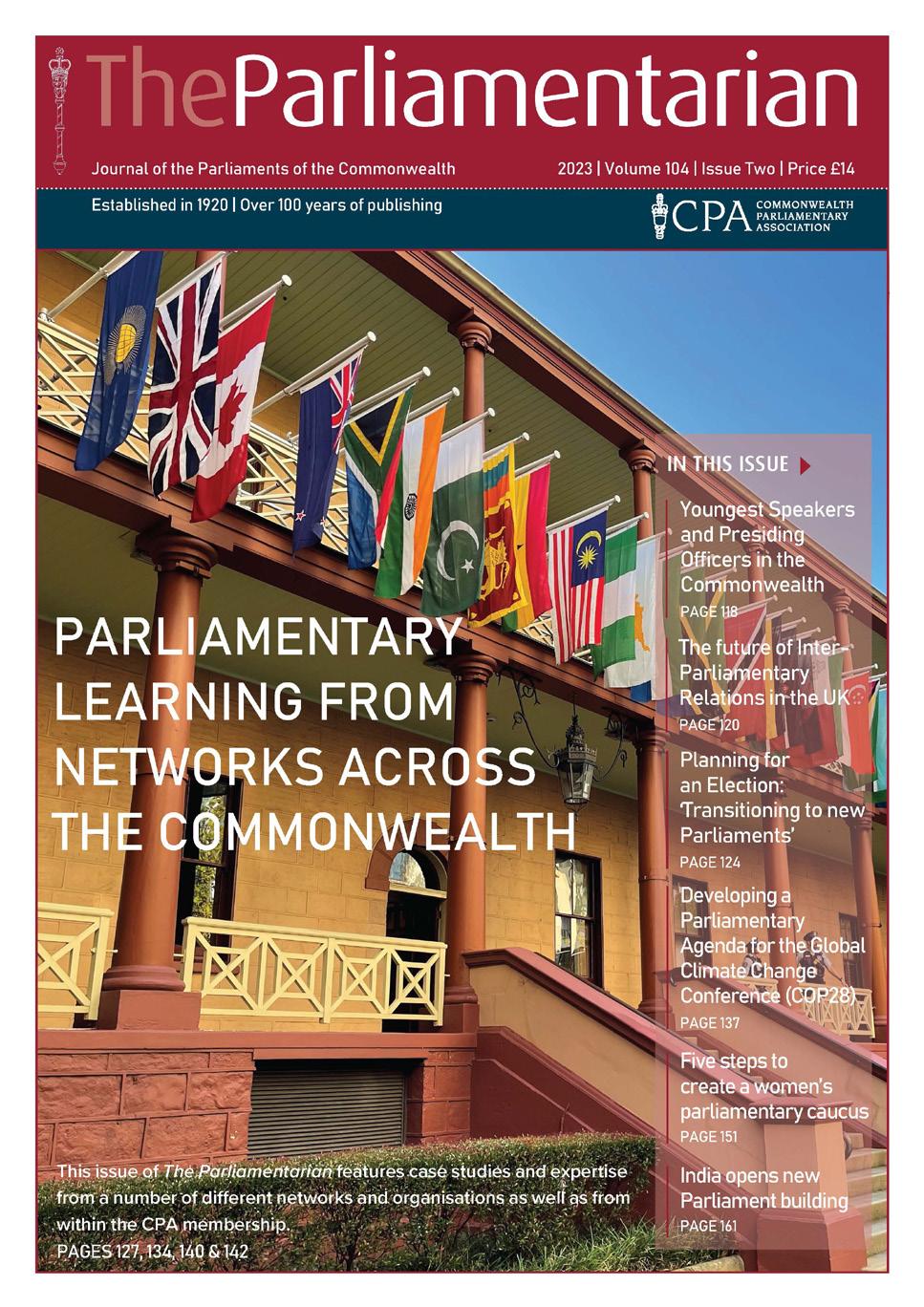
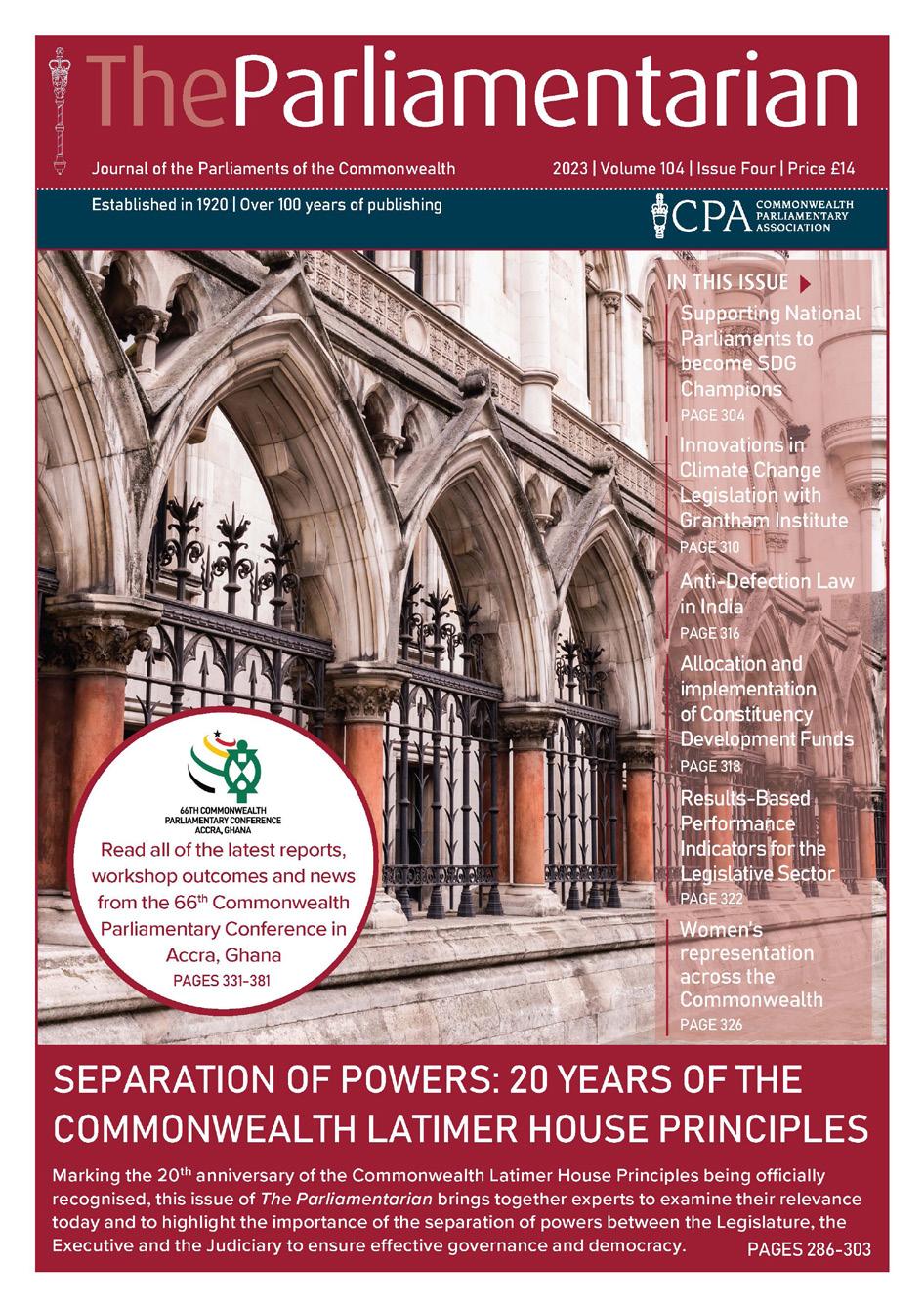

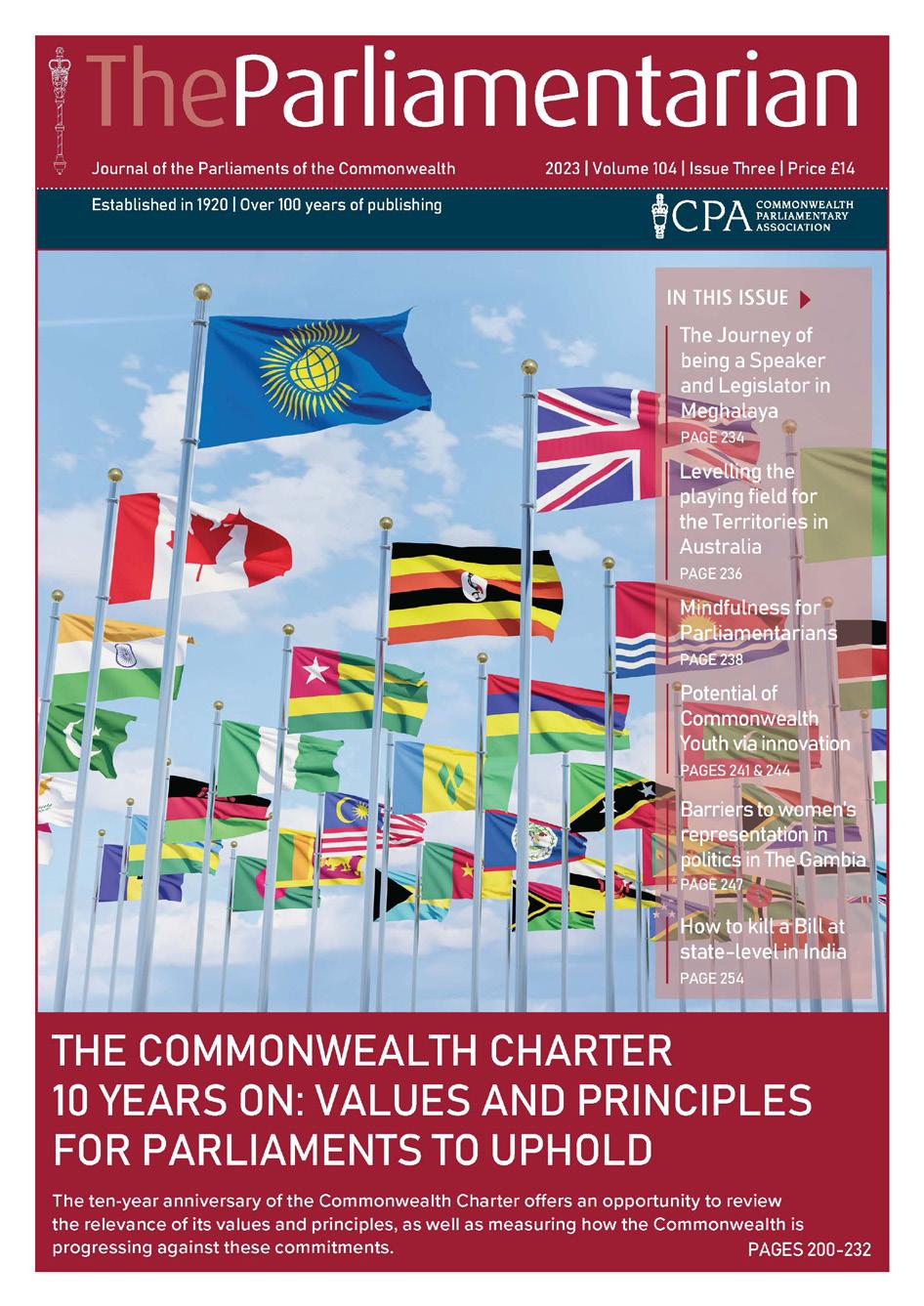
SUBSCRIBE TODAY THE PARLIAMENTARIAN To subscribe to The Parliamentarian, please email editor@cpahq.org Members of Parliament: Please contact your CPA Branch Secretary for print and digital copies. Individual subscriptions also available.



















 Mr Jeffrey Hyland, Editor, The Parliamentarian, Commonwealth Parliamentary Association
Mr Jeffrey Hyland, Editor, The Parliamentarian, Commonwealth Parliamentary Association


 Hon. Ian Liddell-Grainger, MP, Chairperson of the CPA Executive Committee and Member of the United Kingdom Parliament.
Hon. Ian Liddell-Grainger, MP, Chairperson of the CPA Executive Committee and Member of the United Kingdom Parliament.




































































































































































